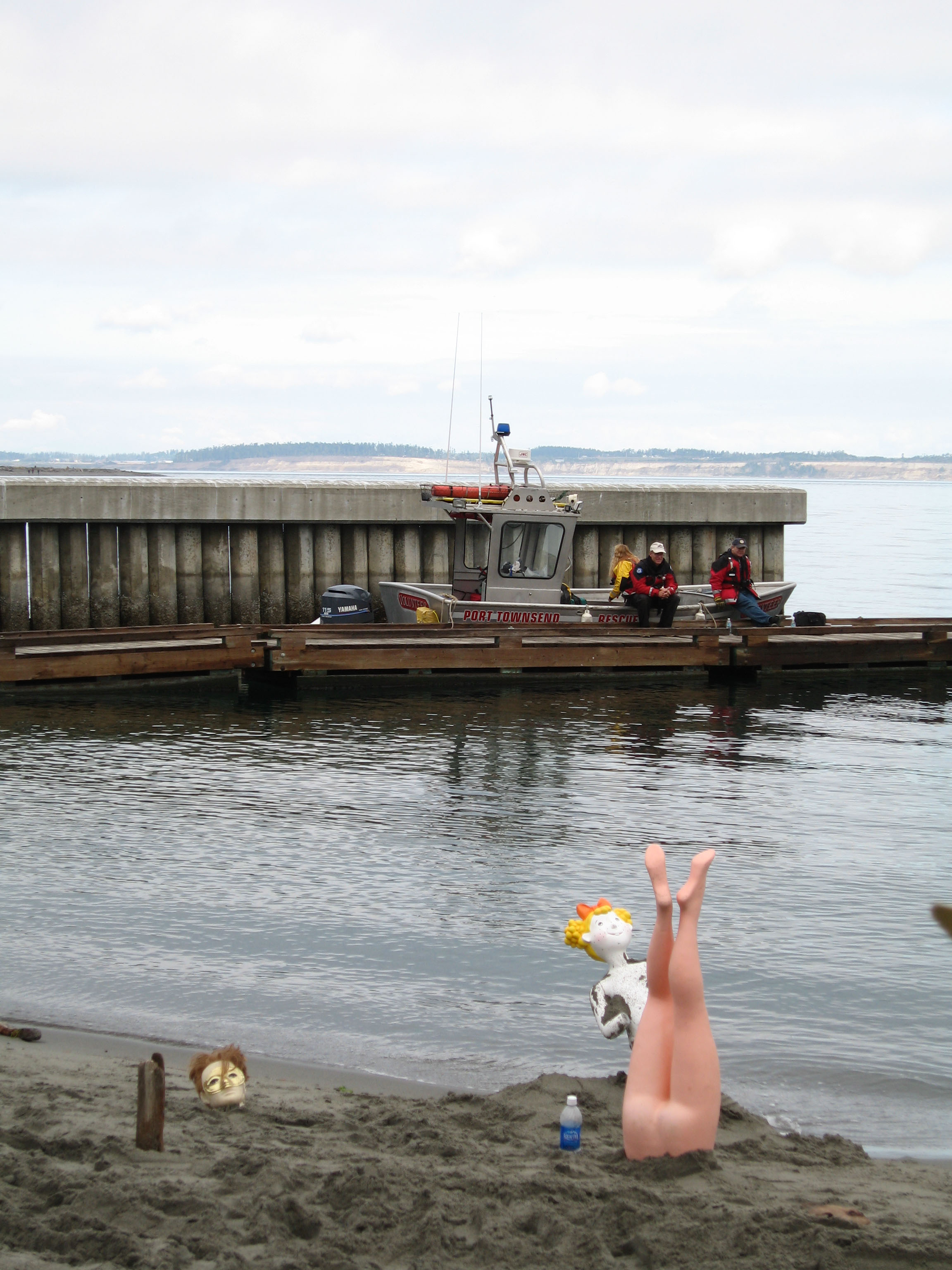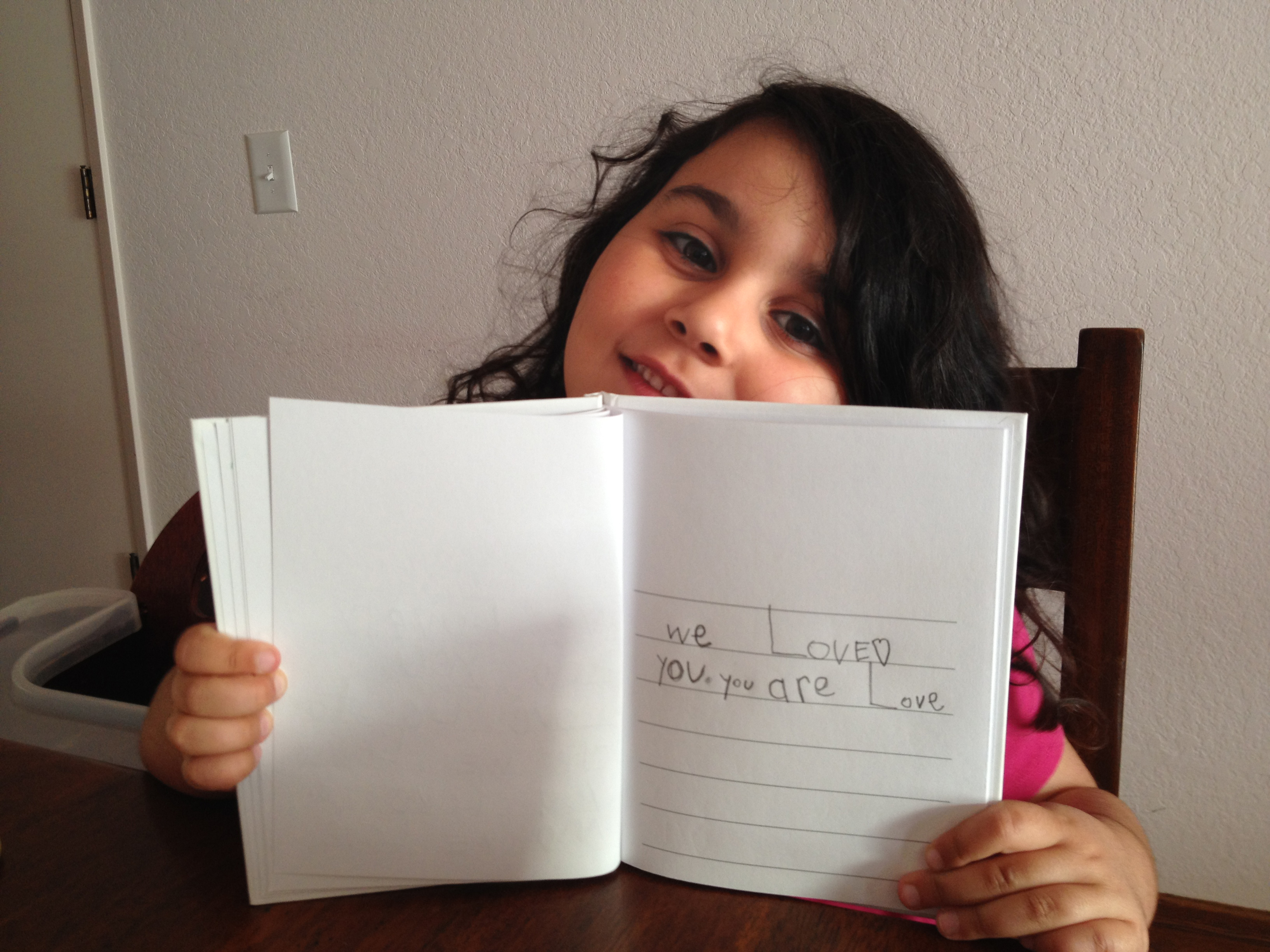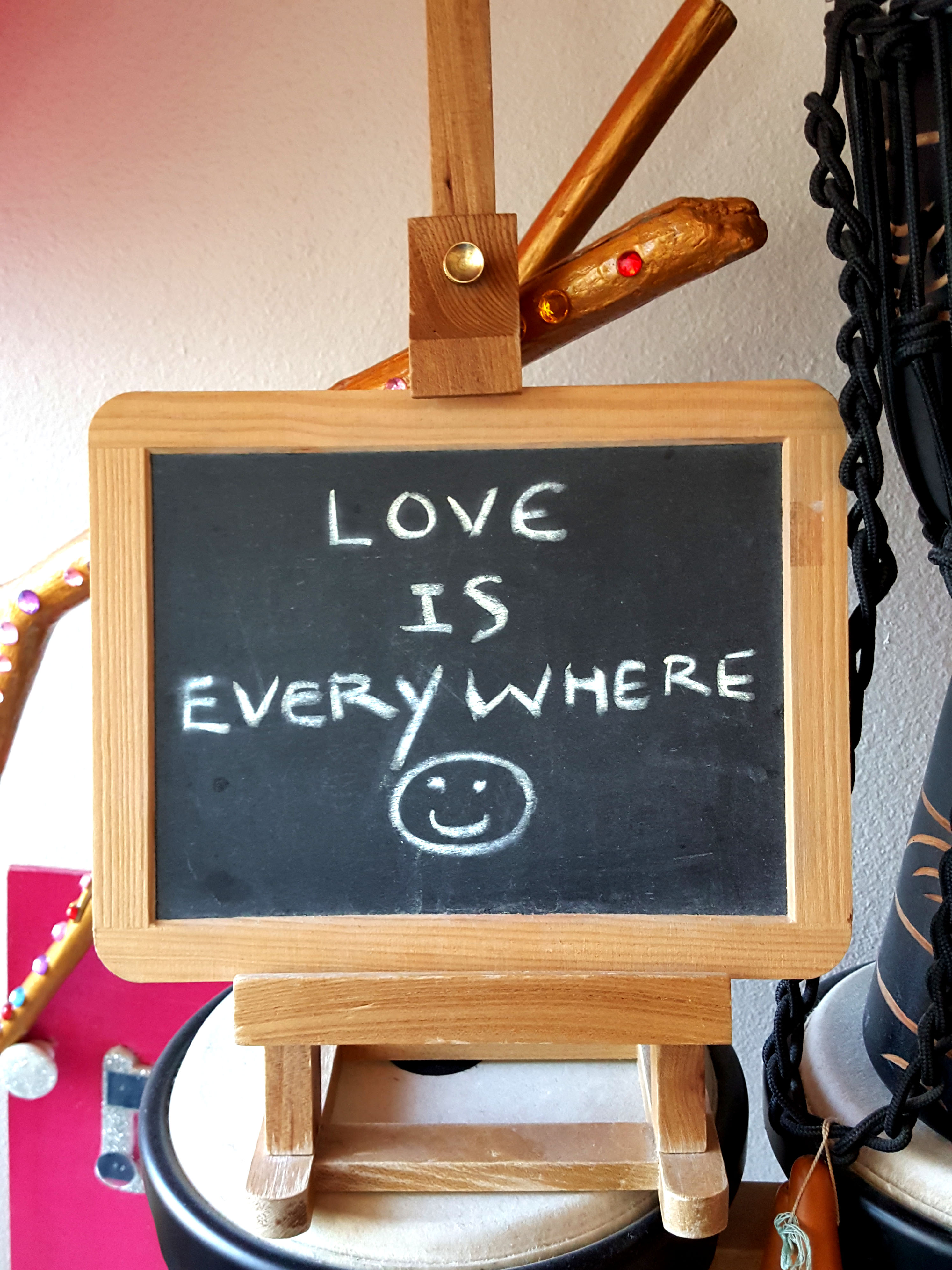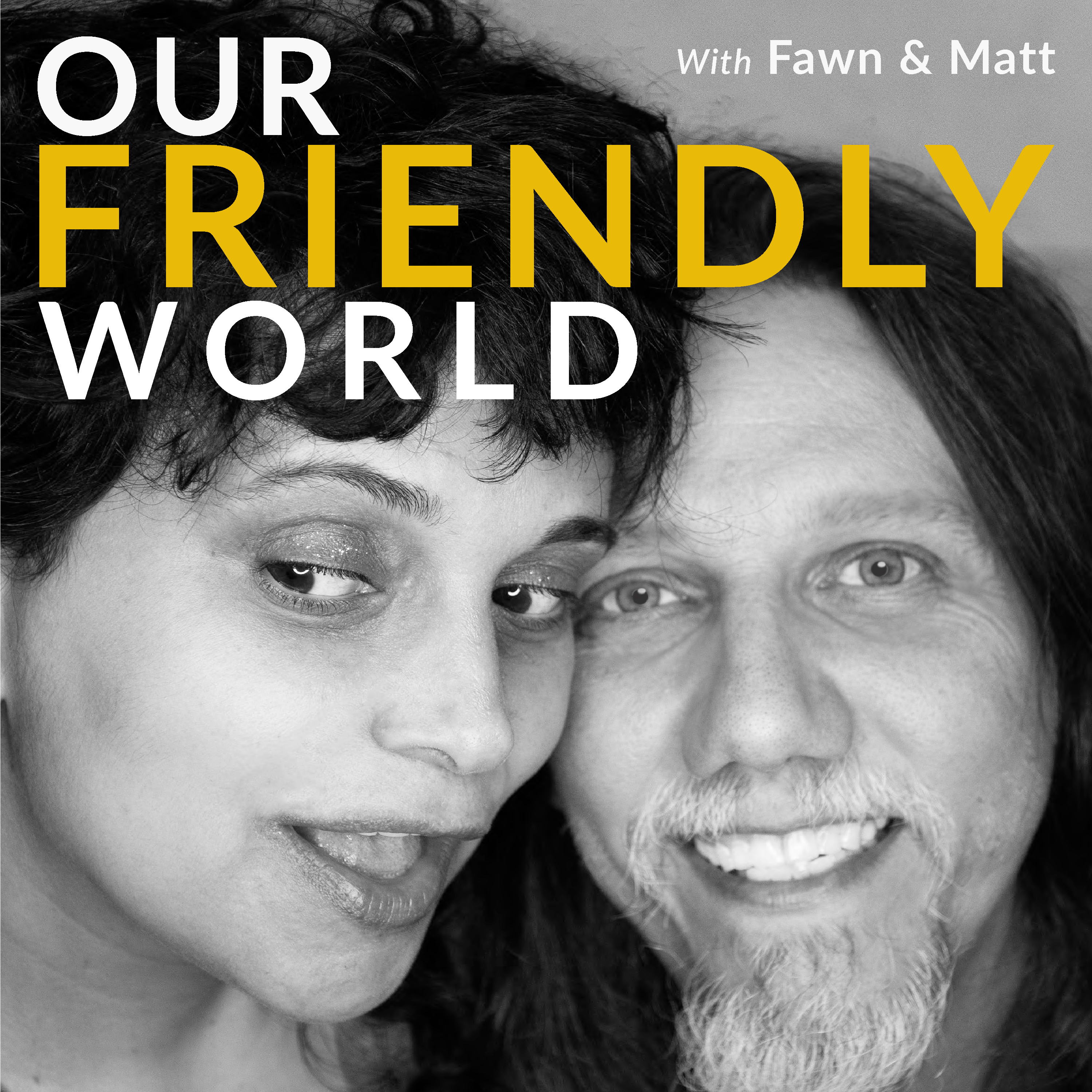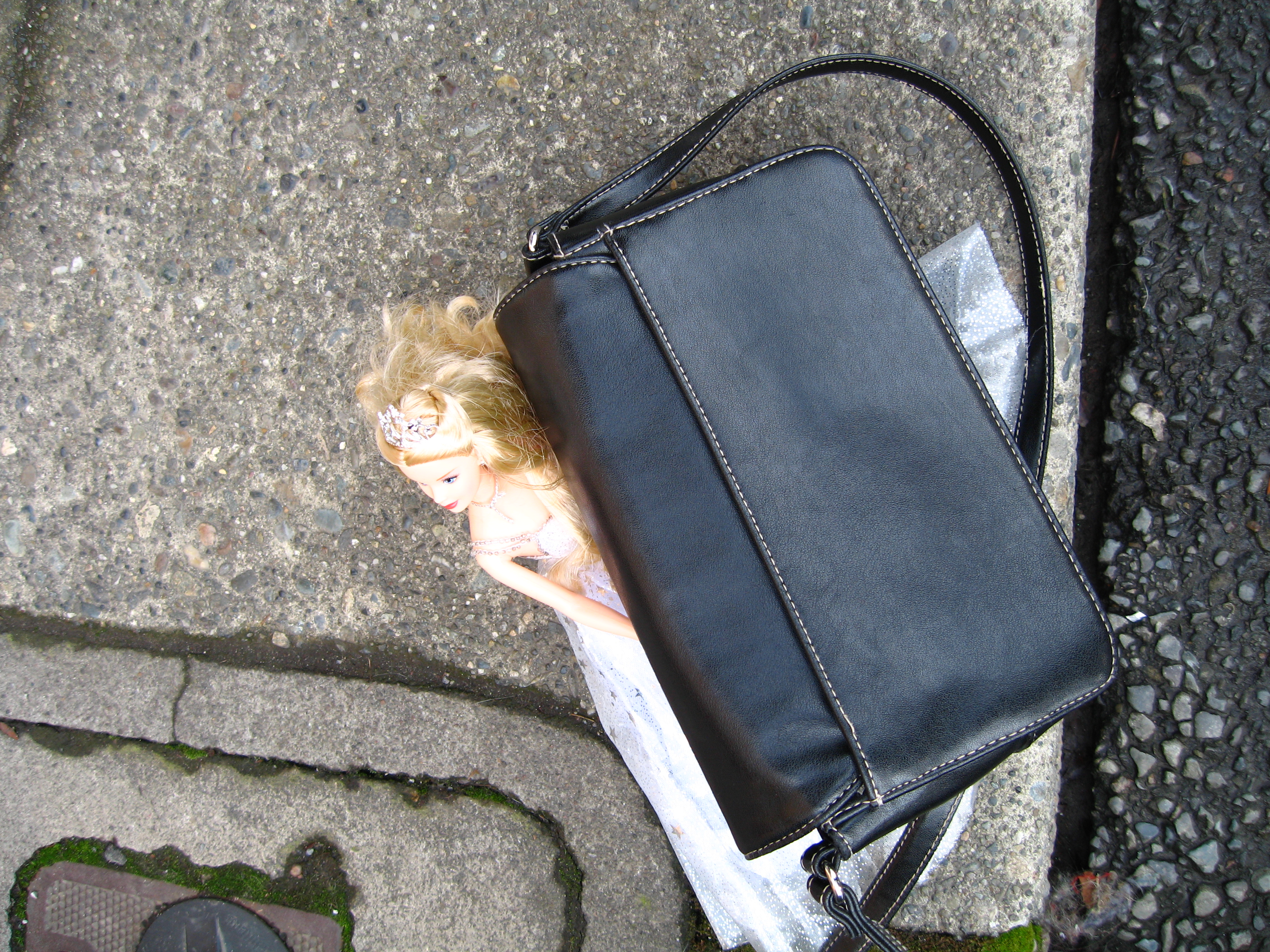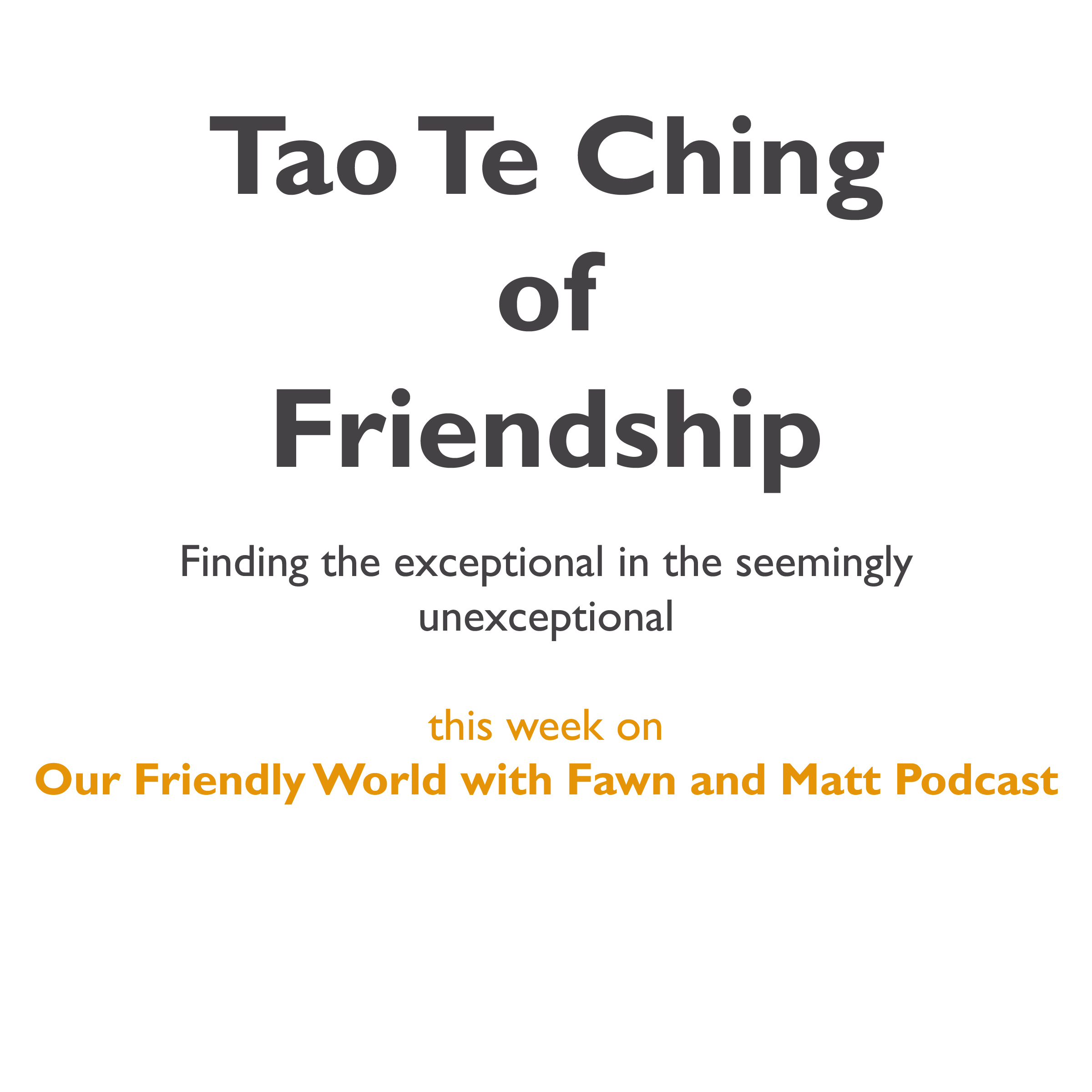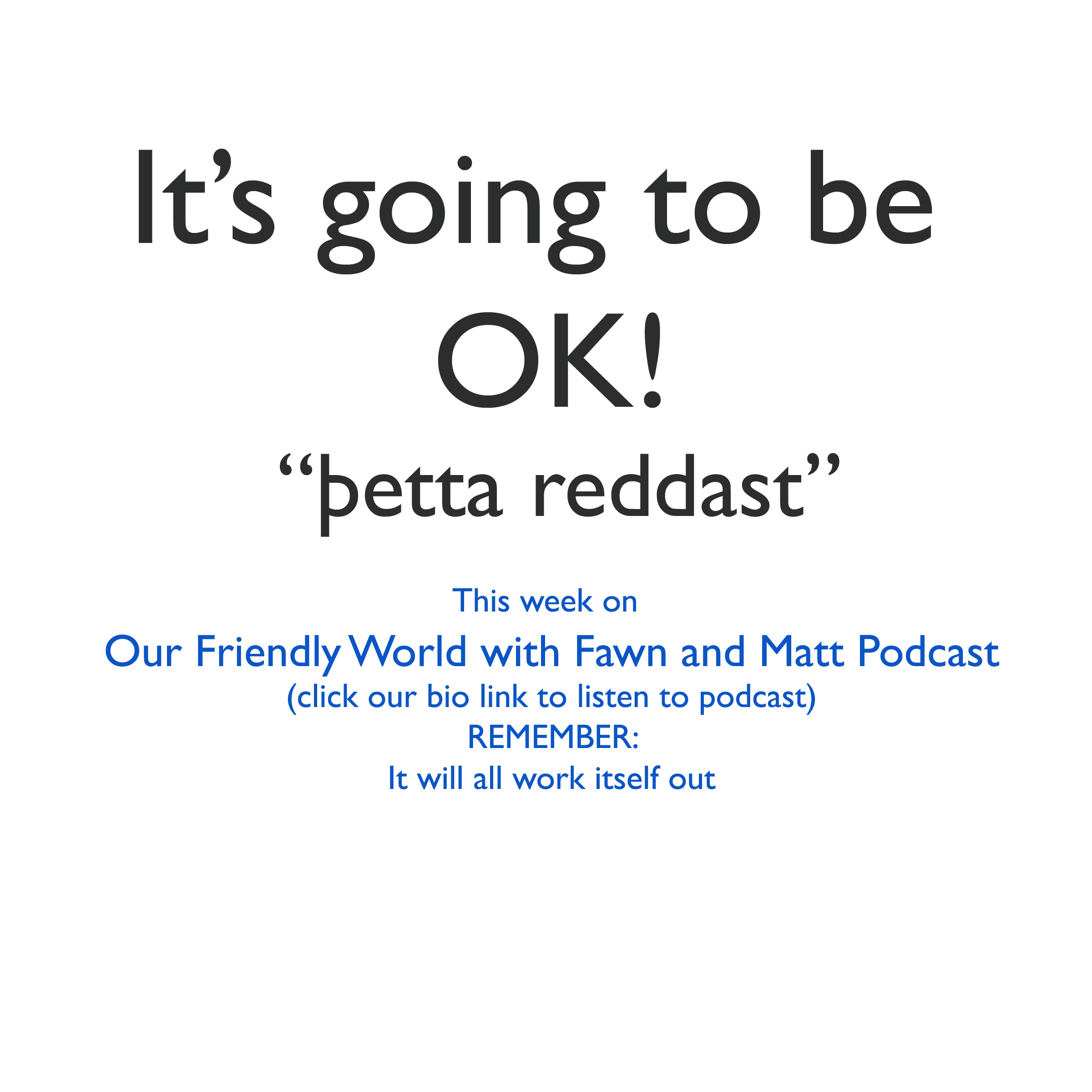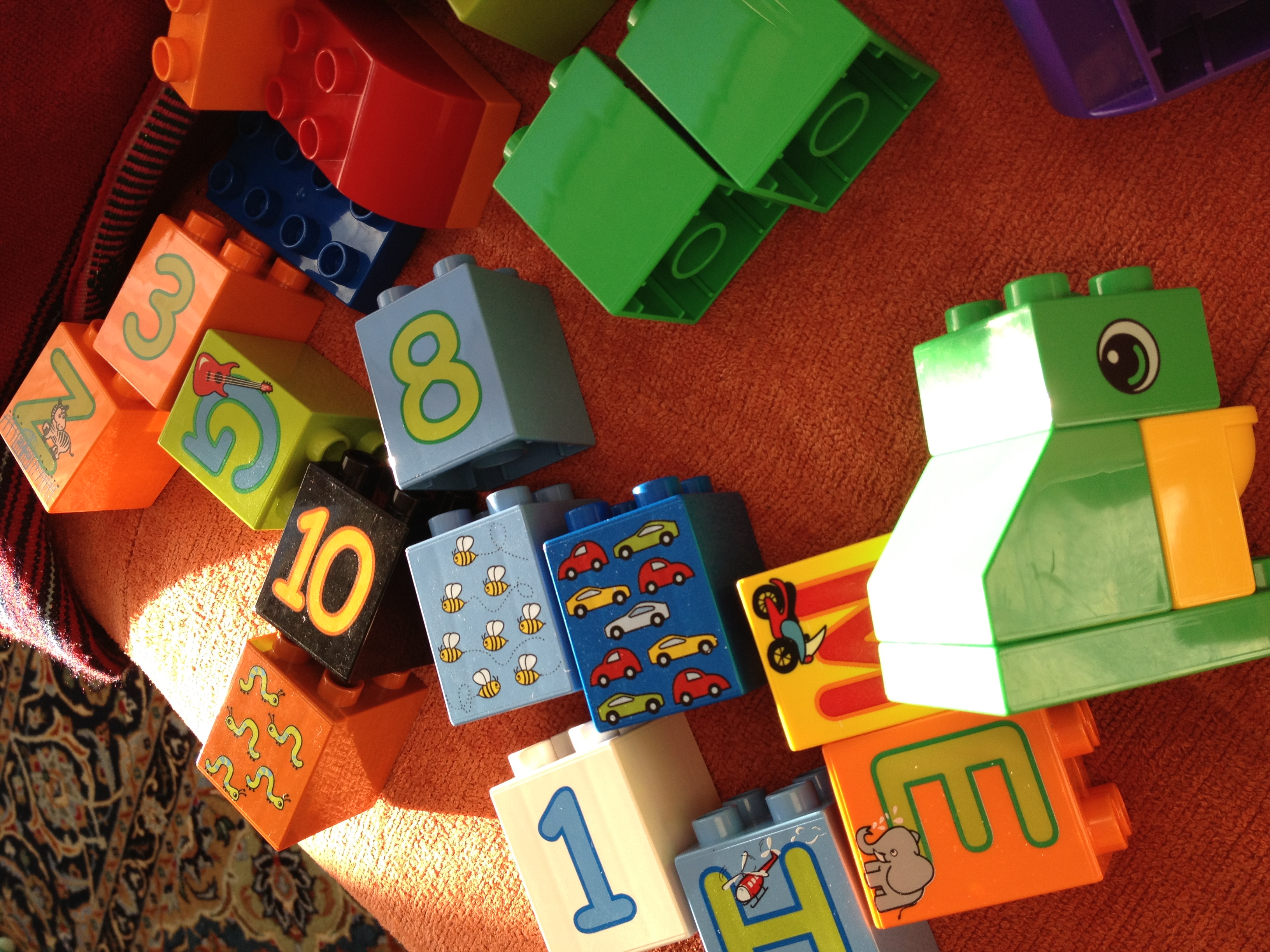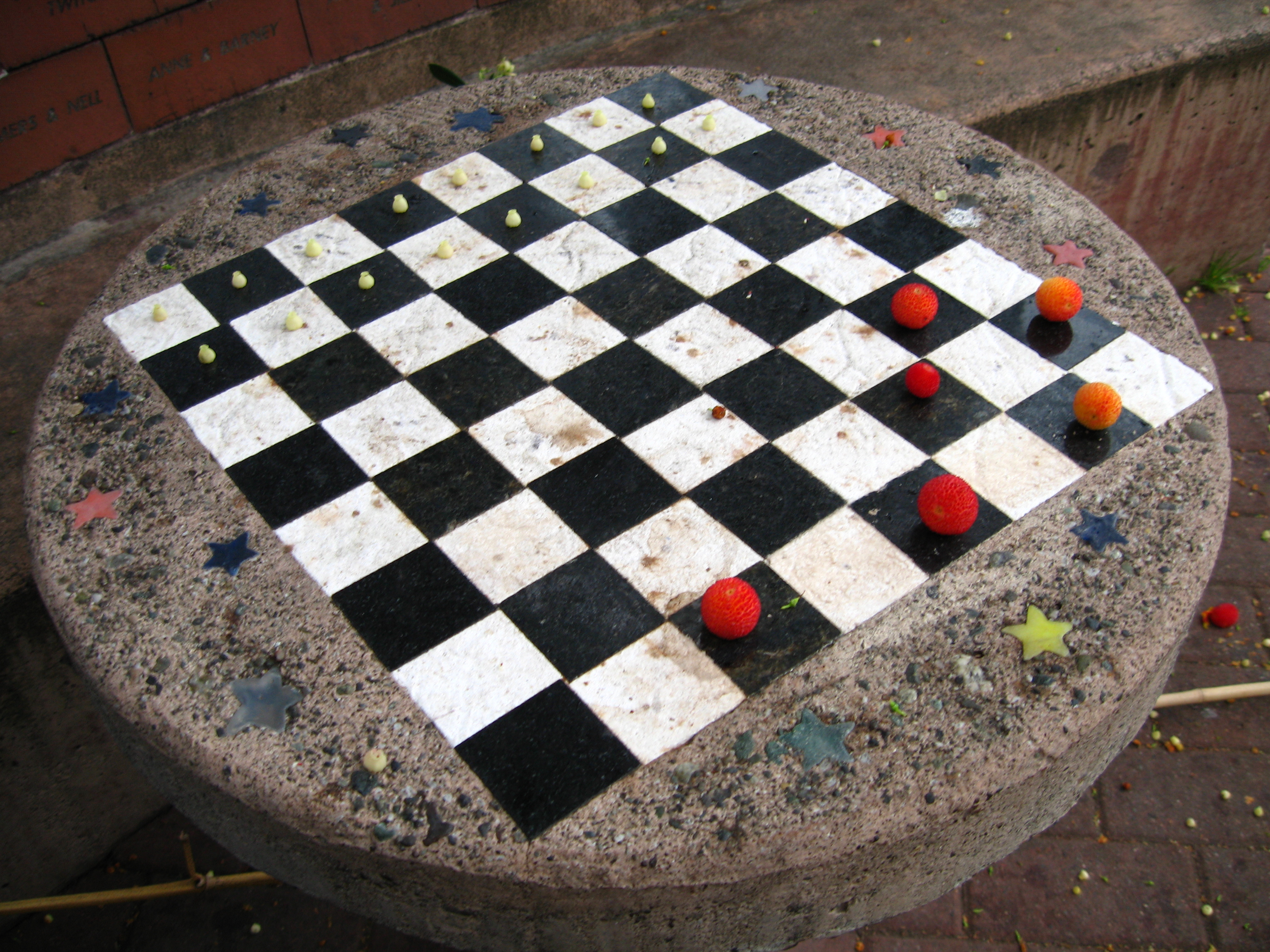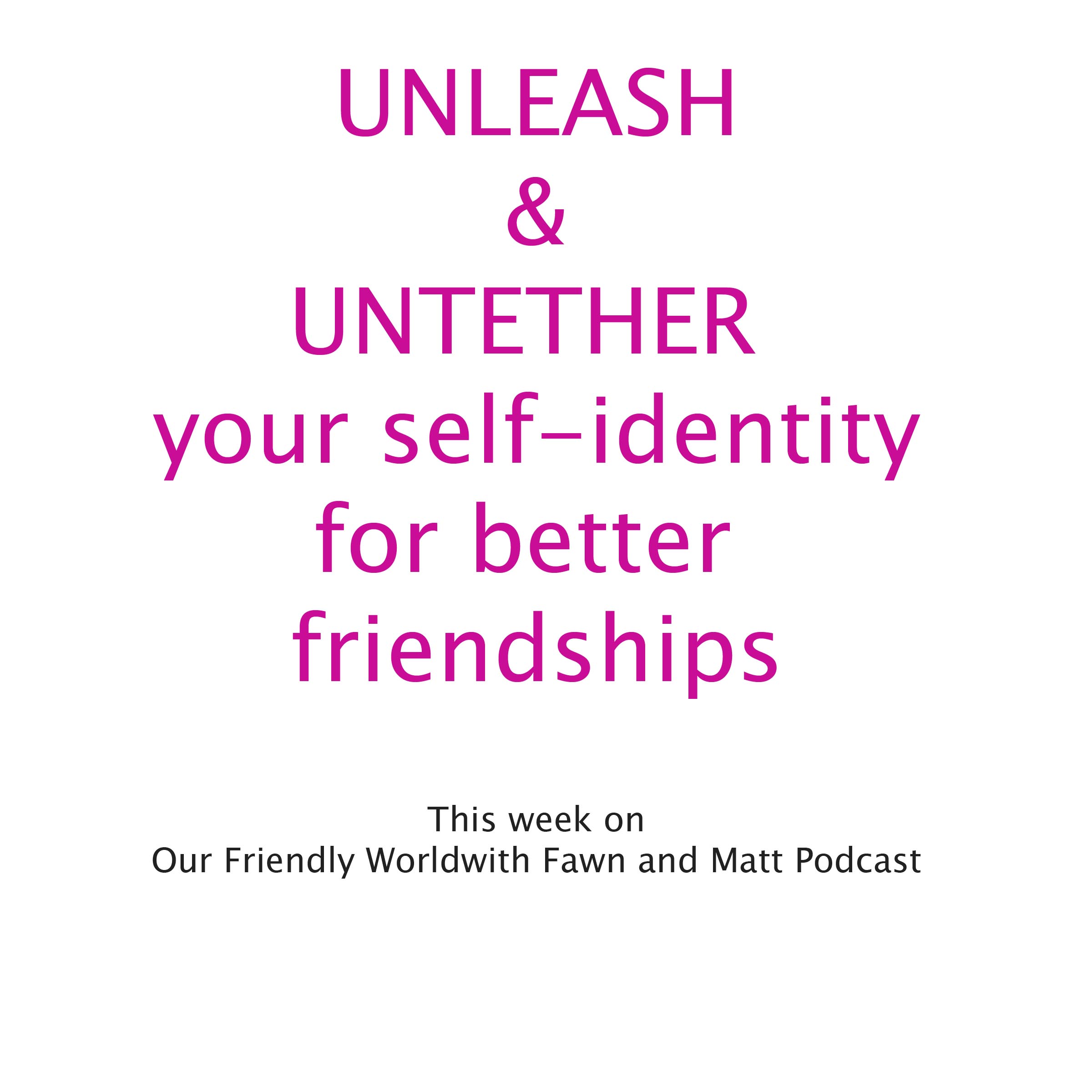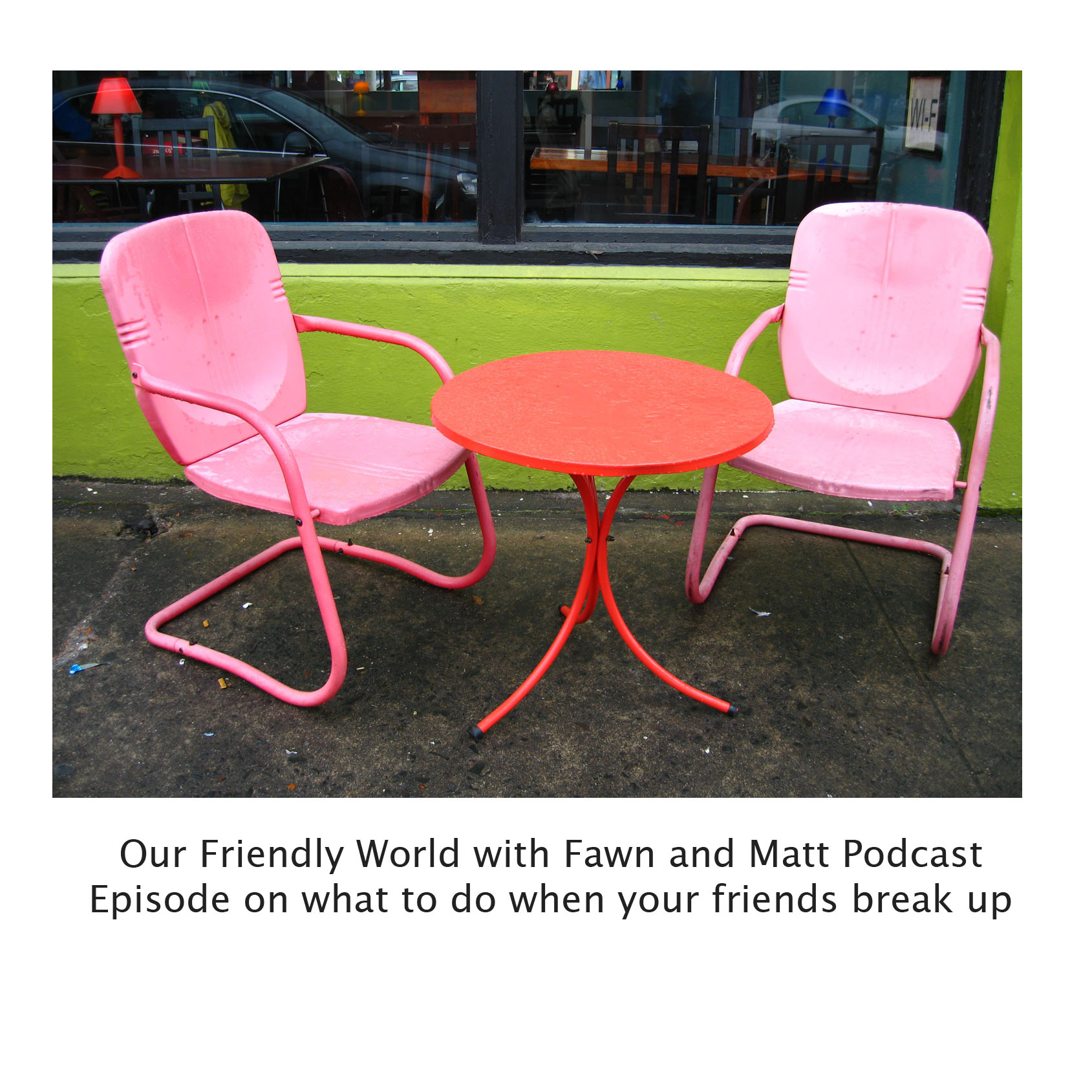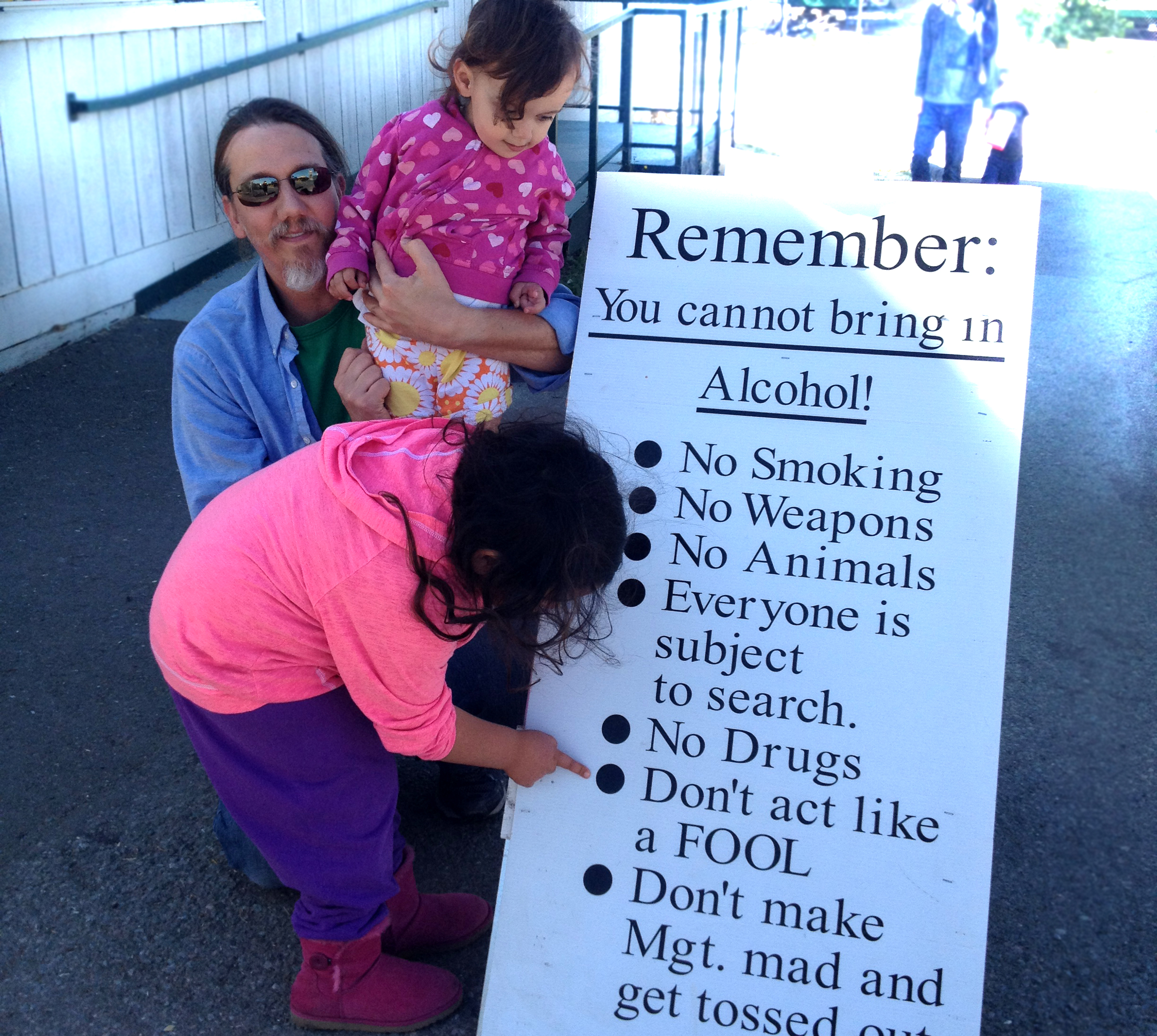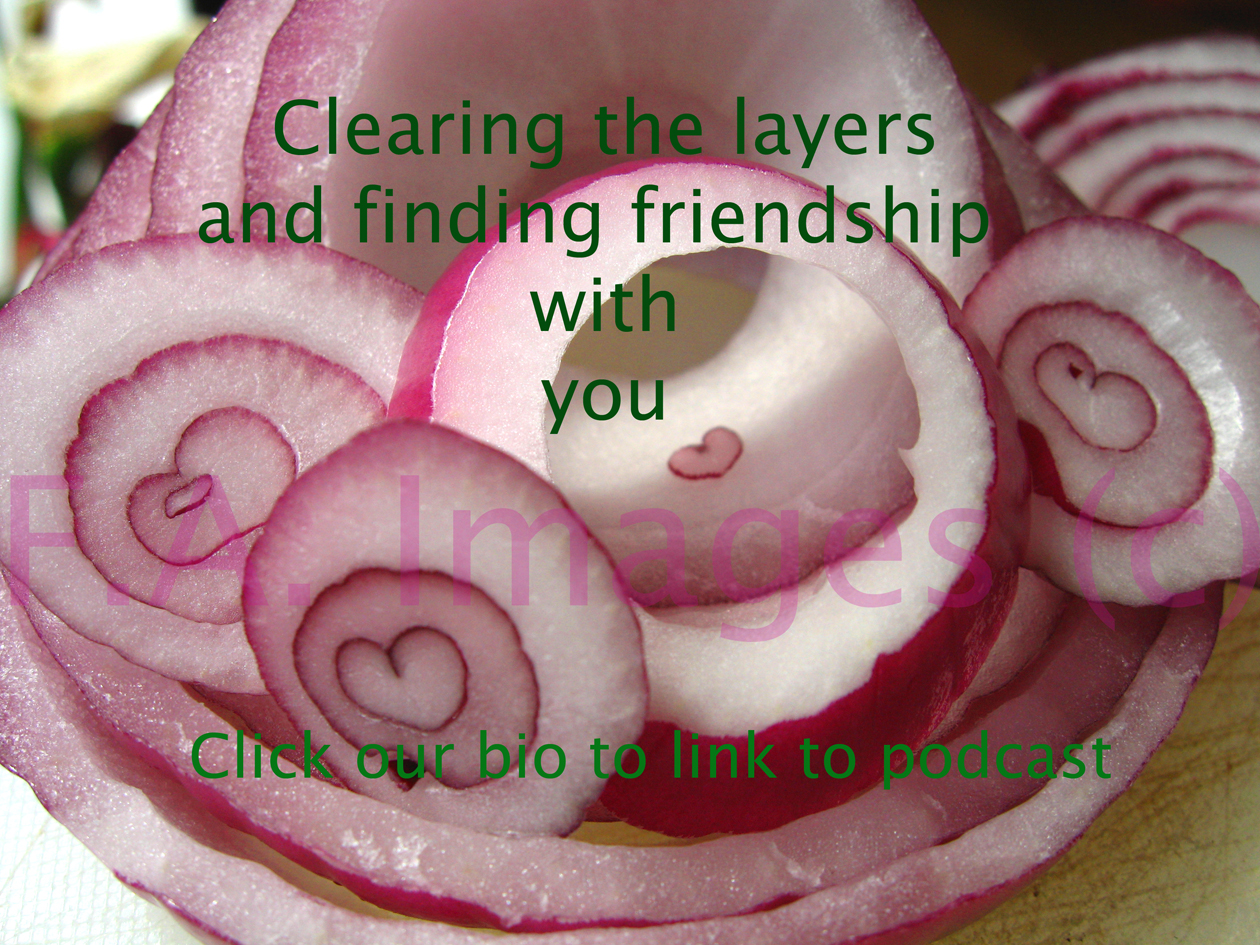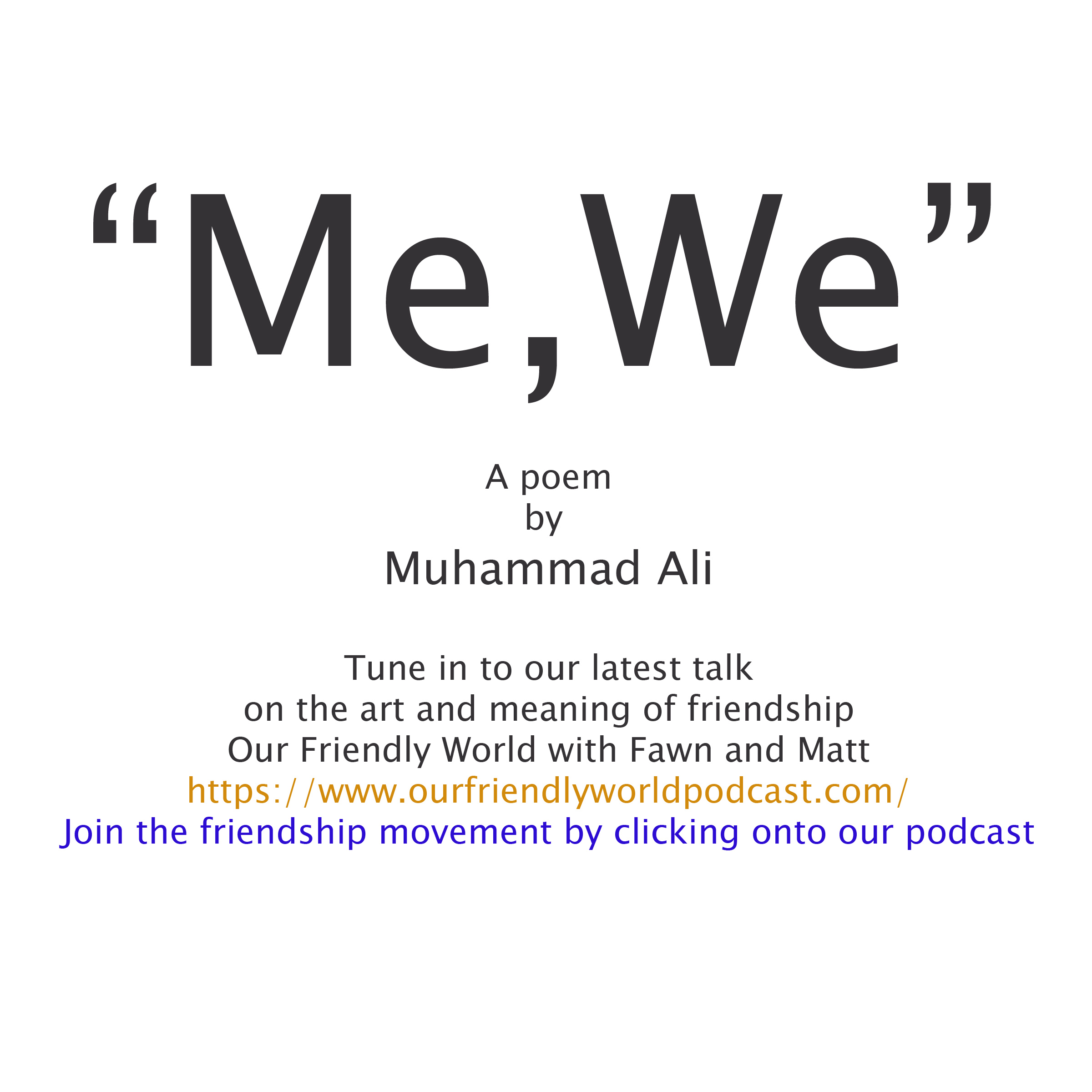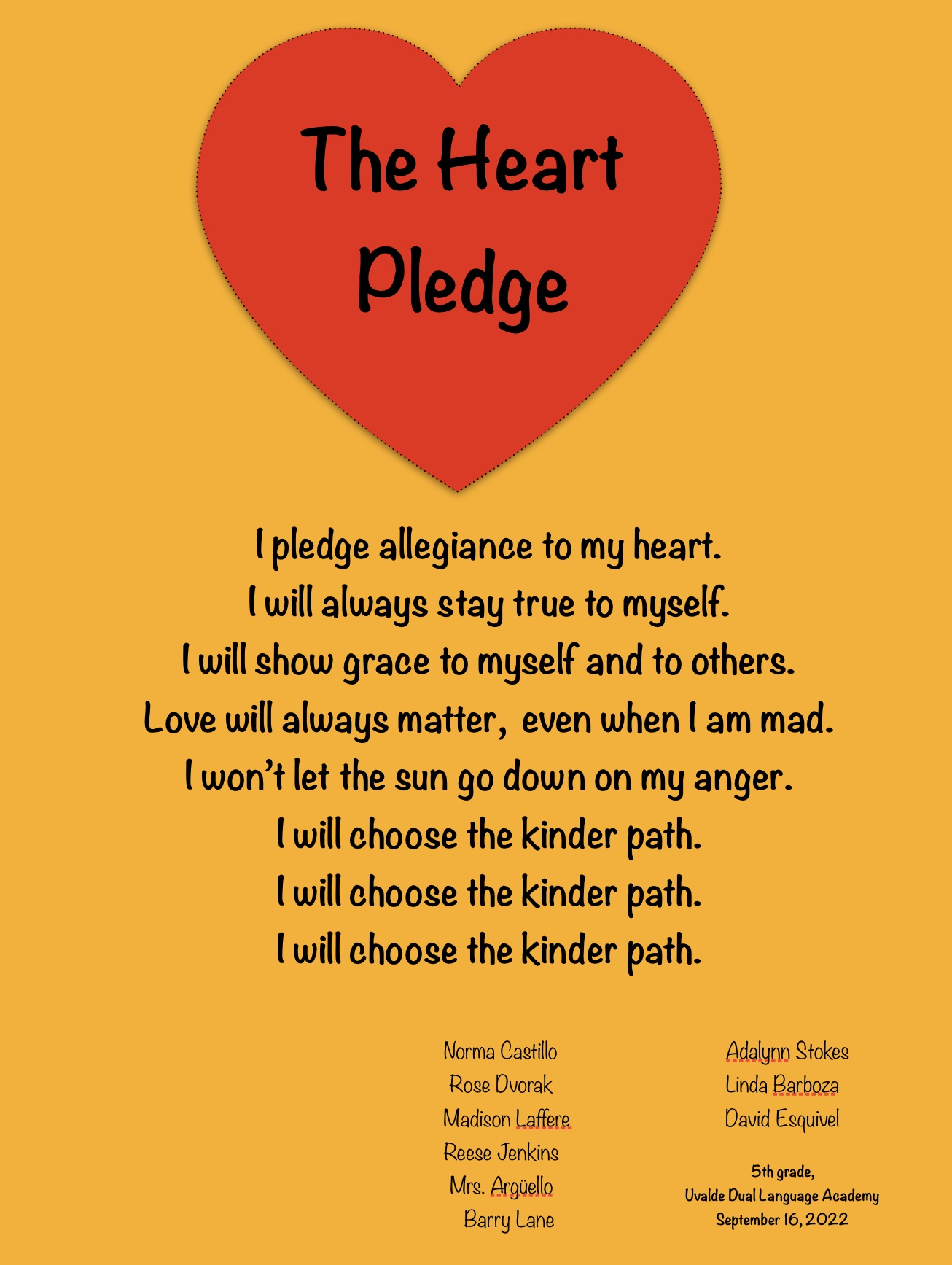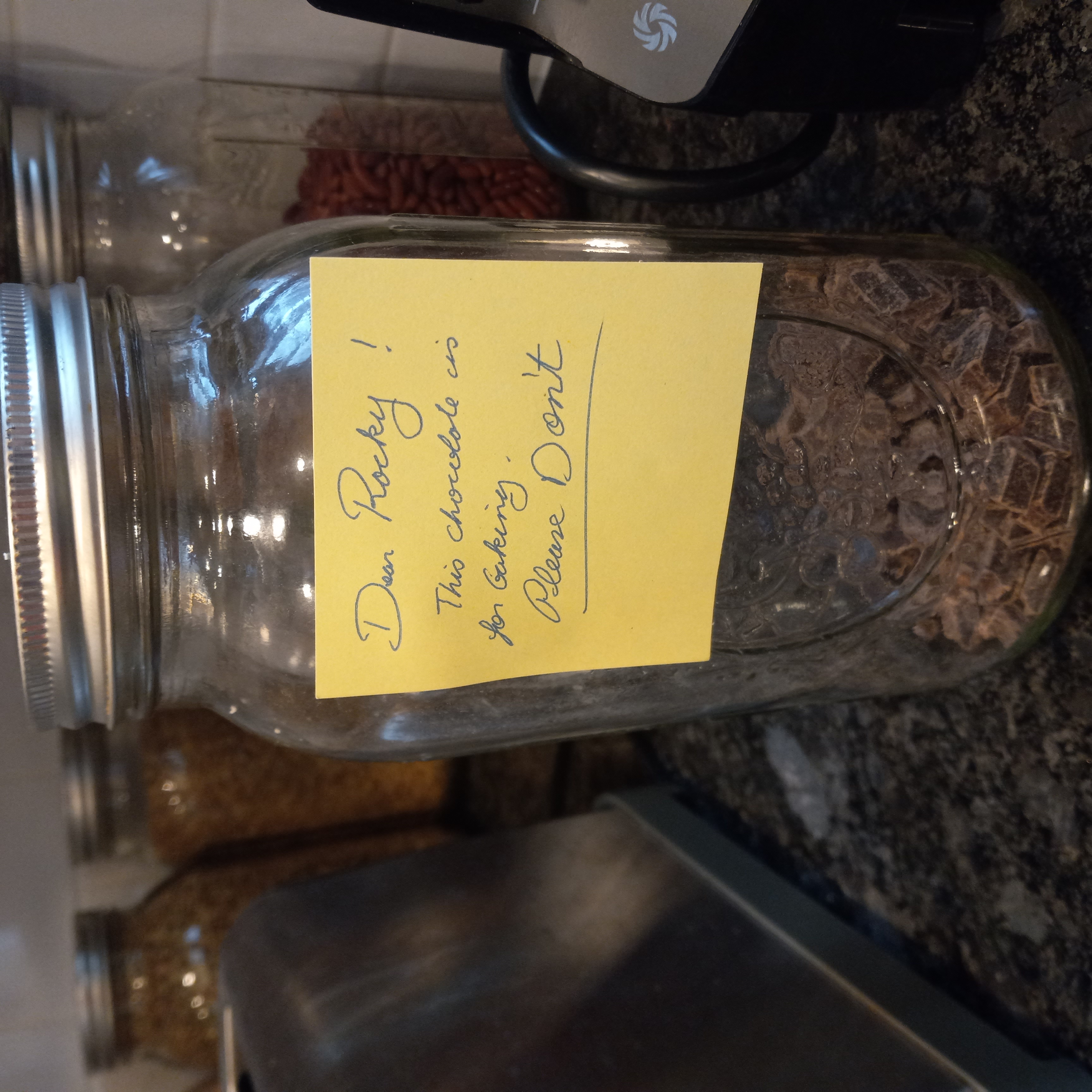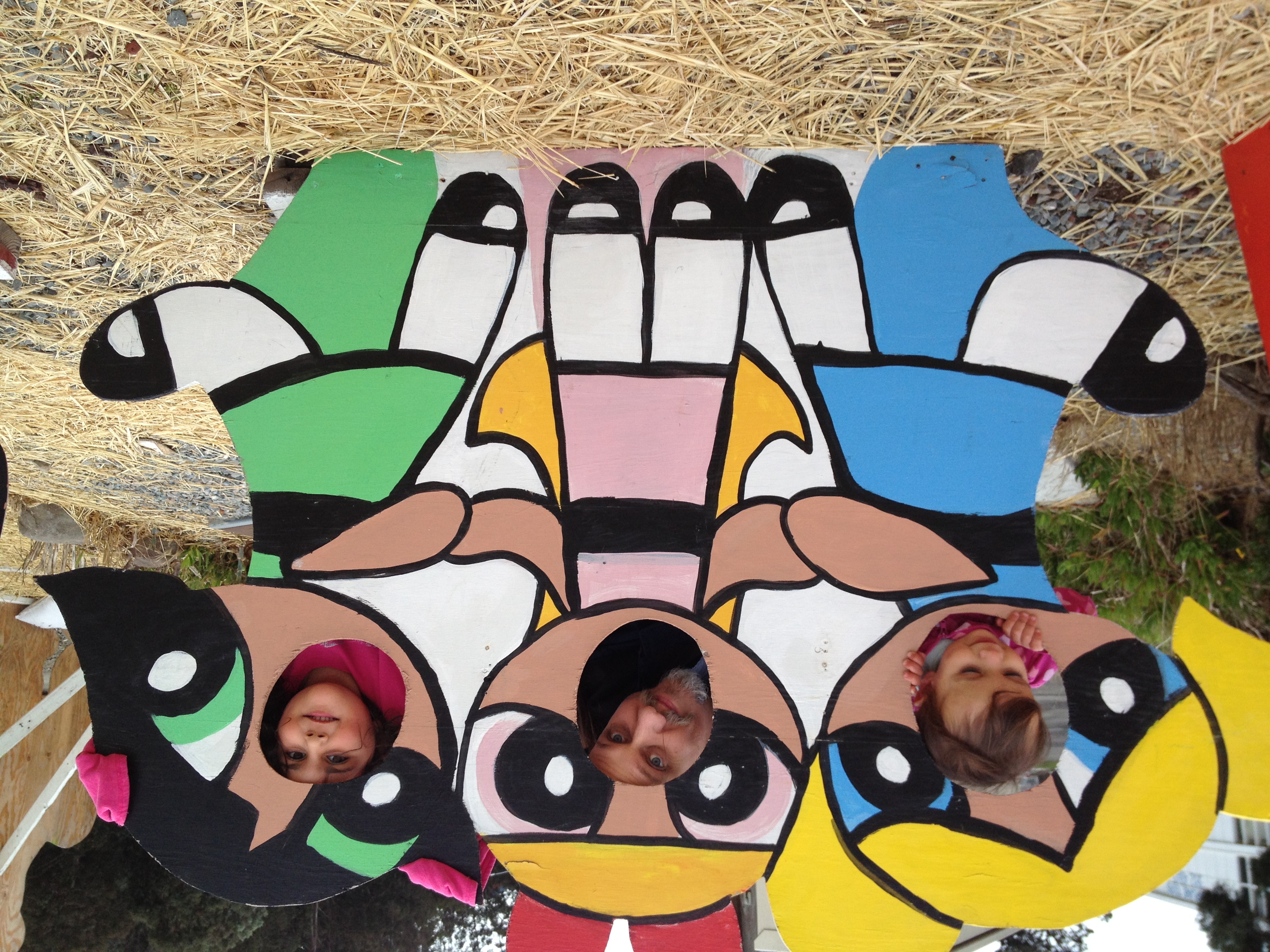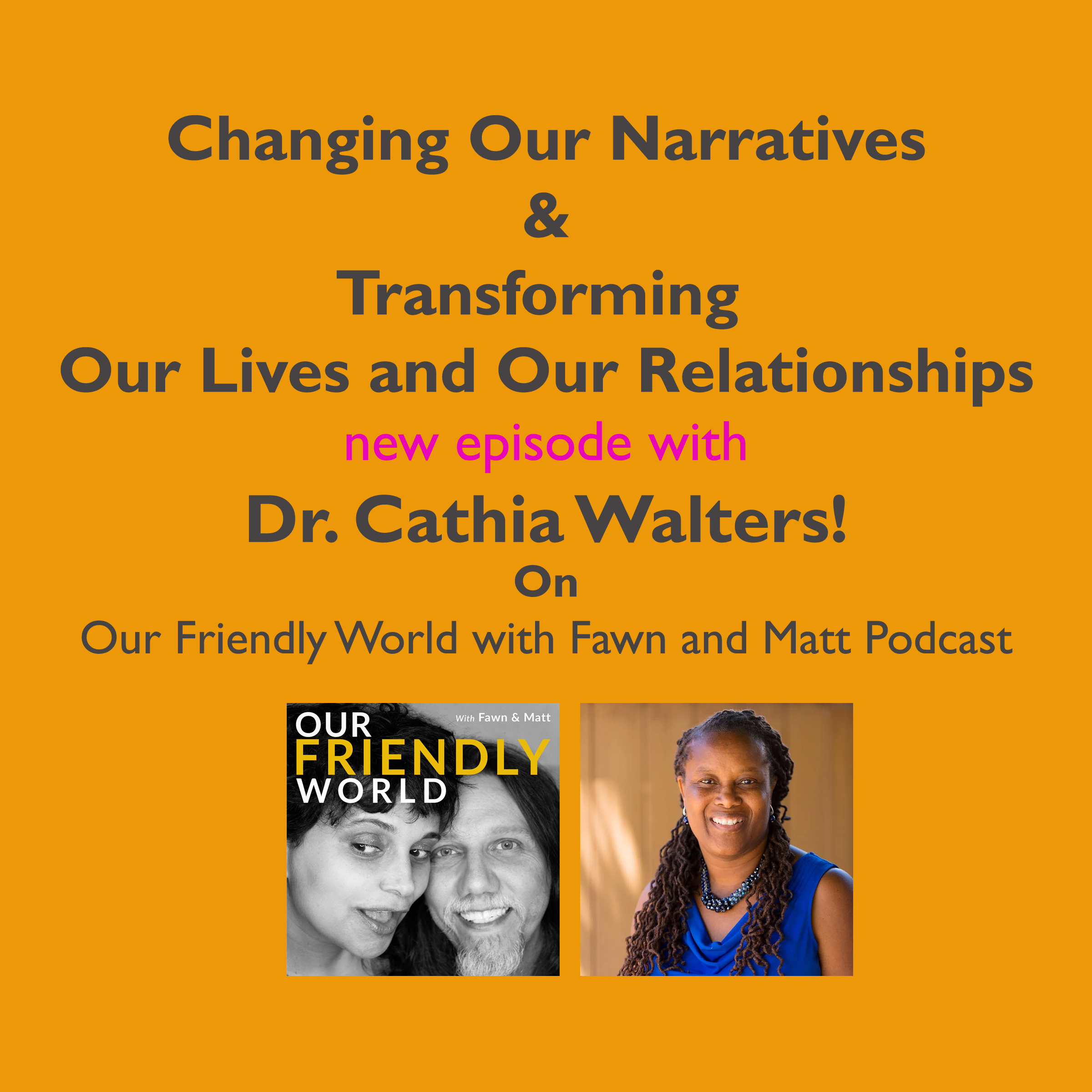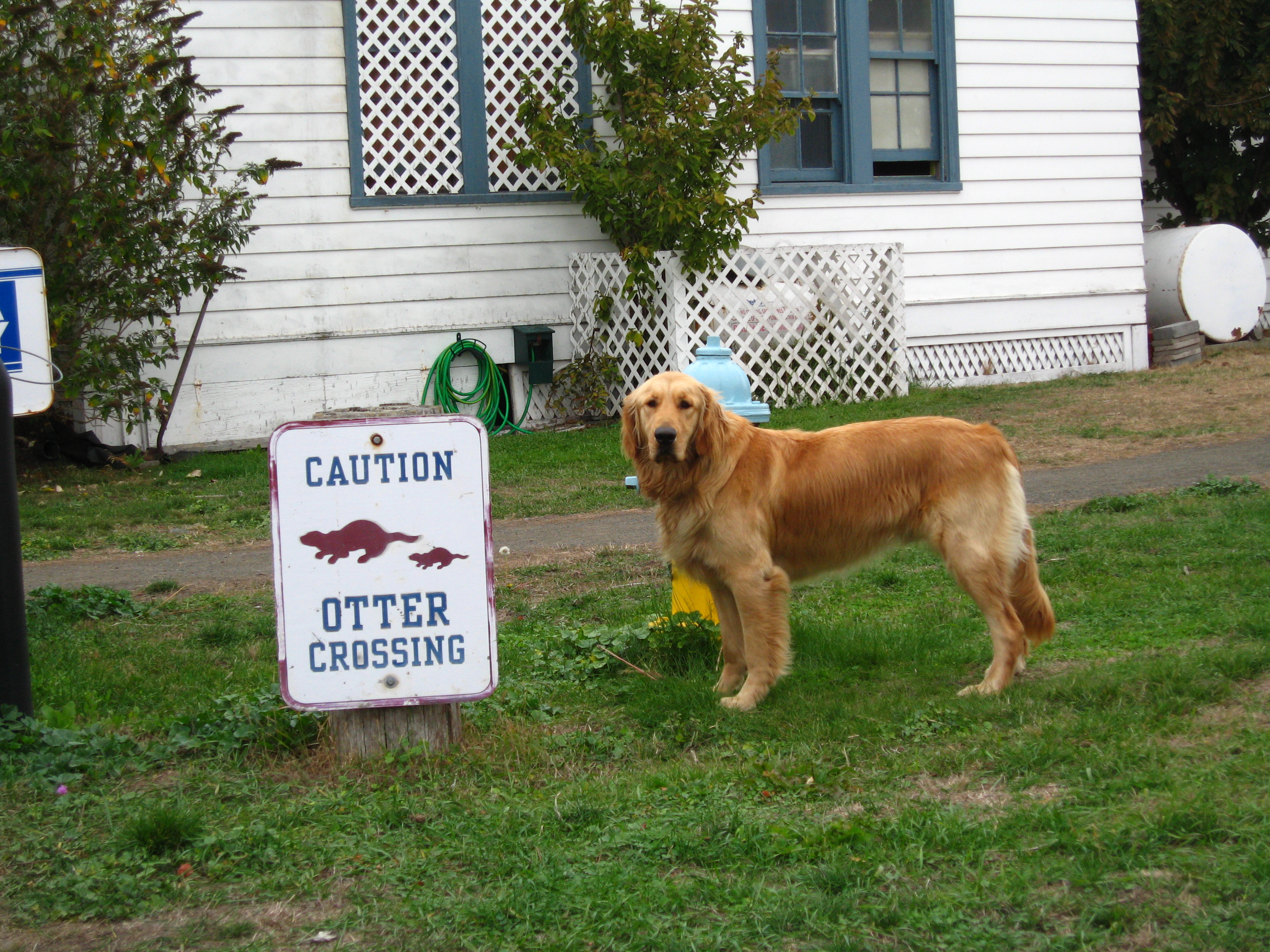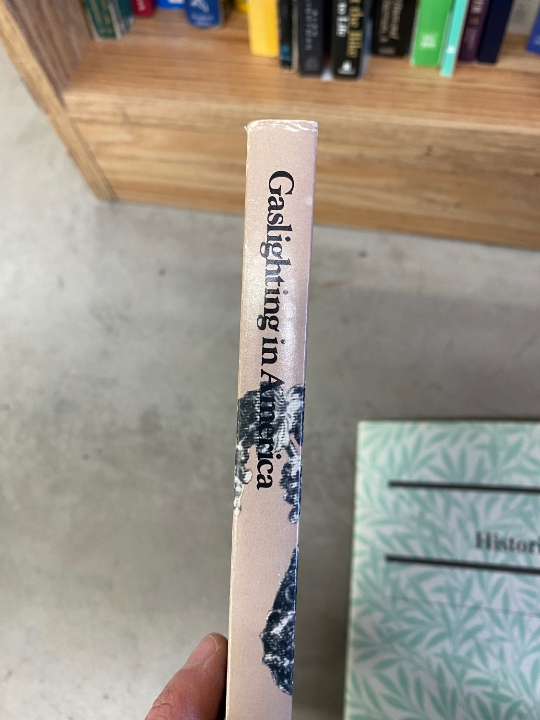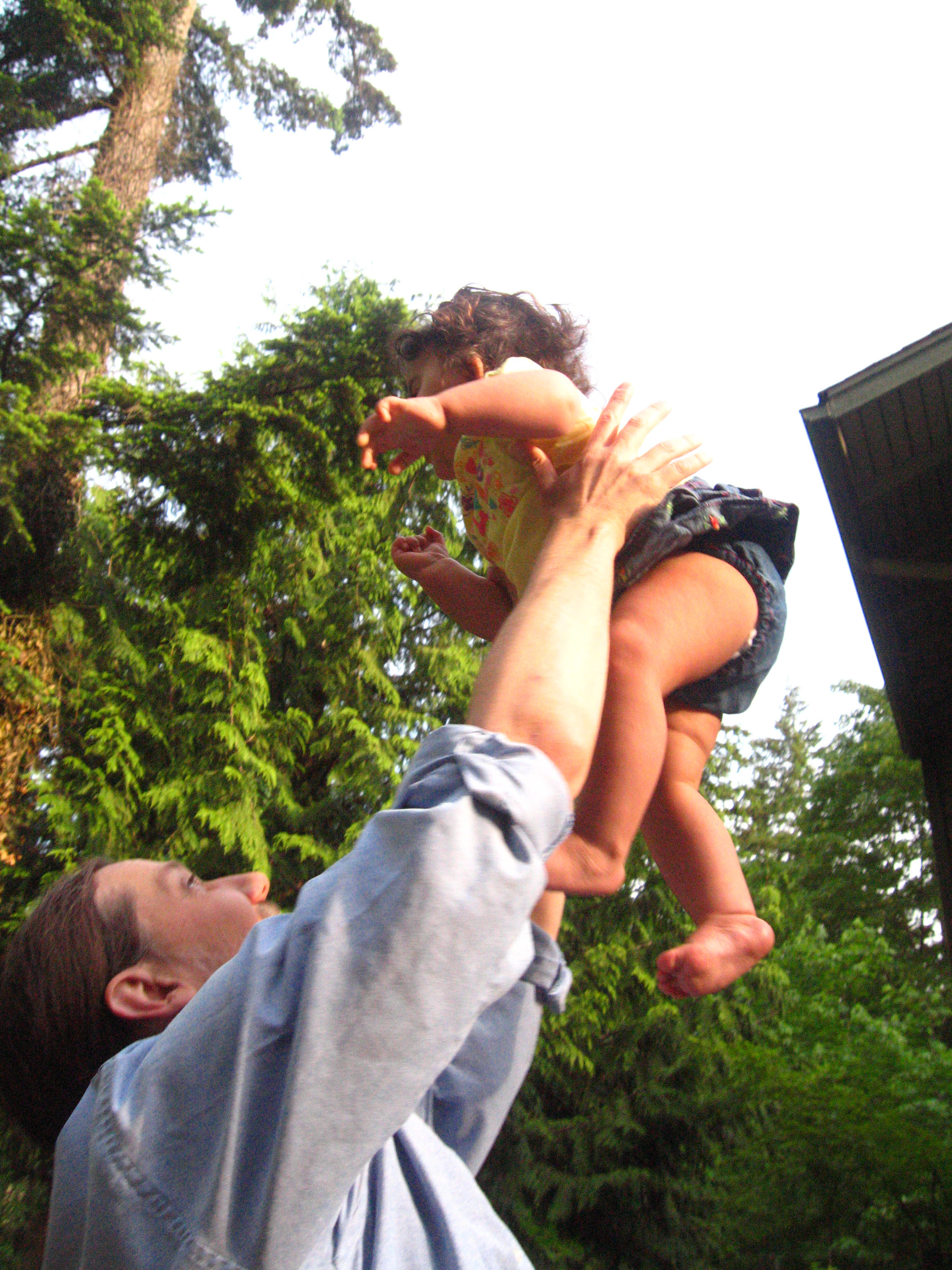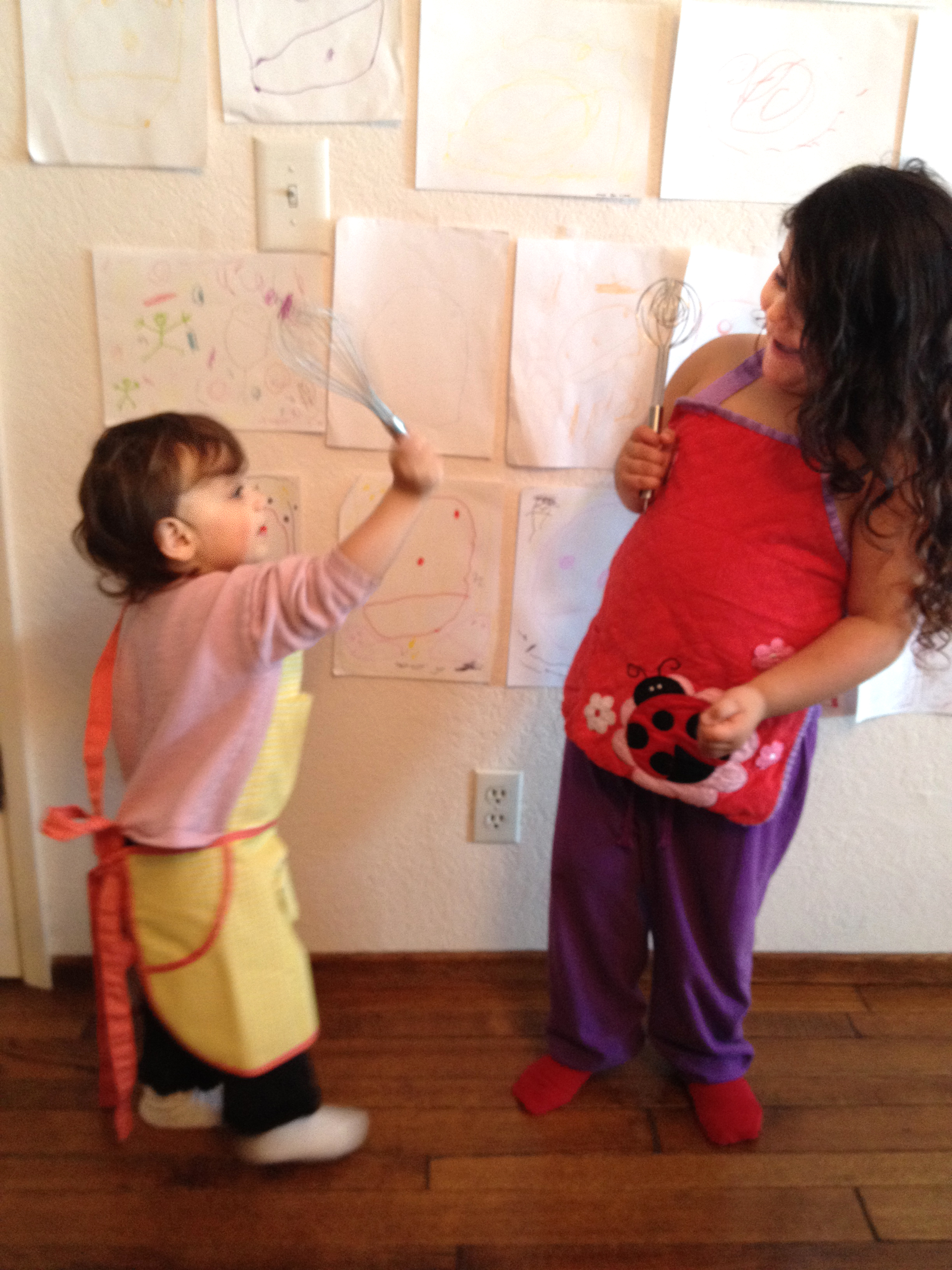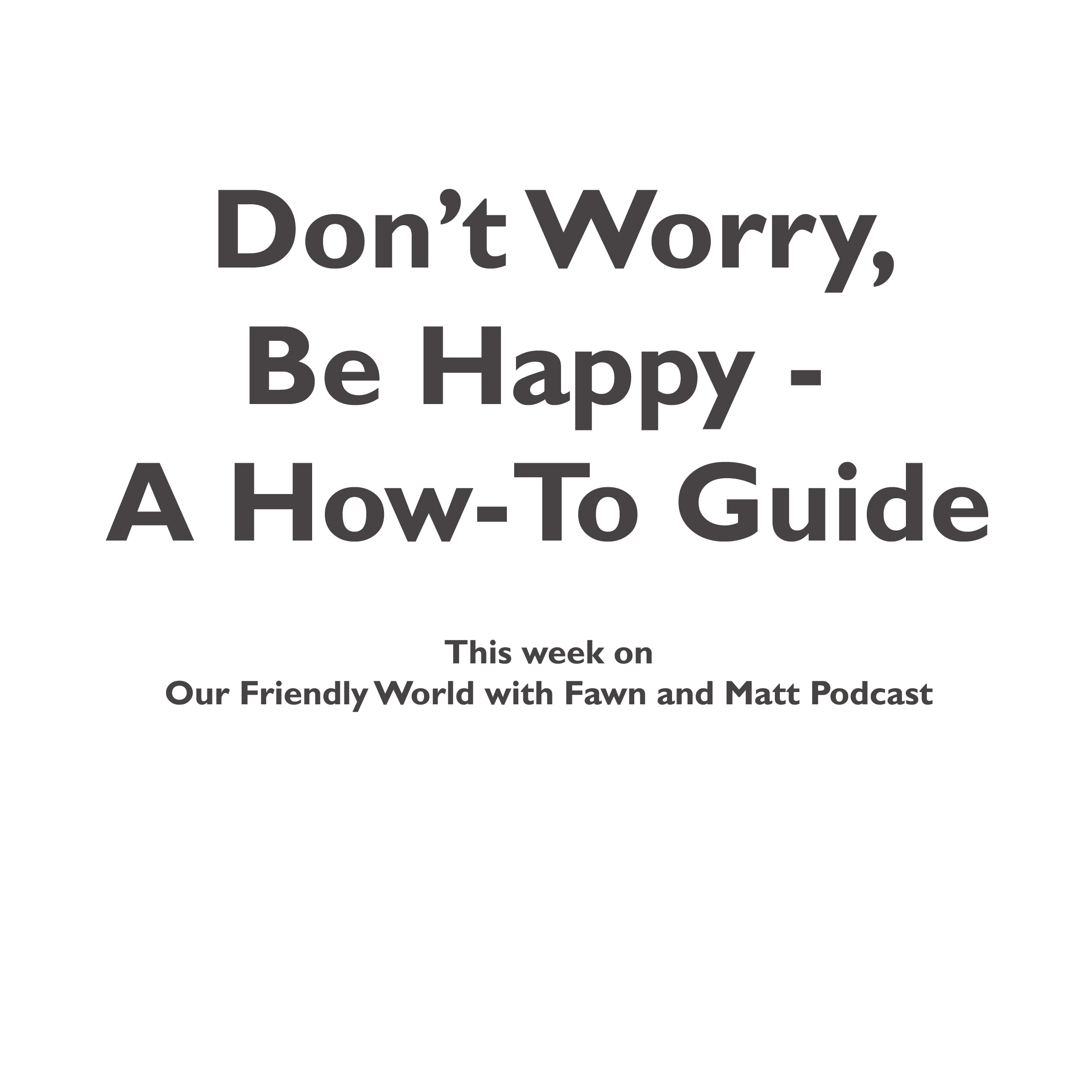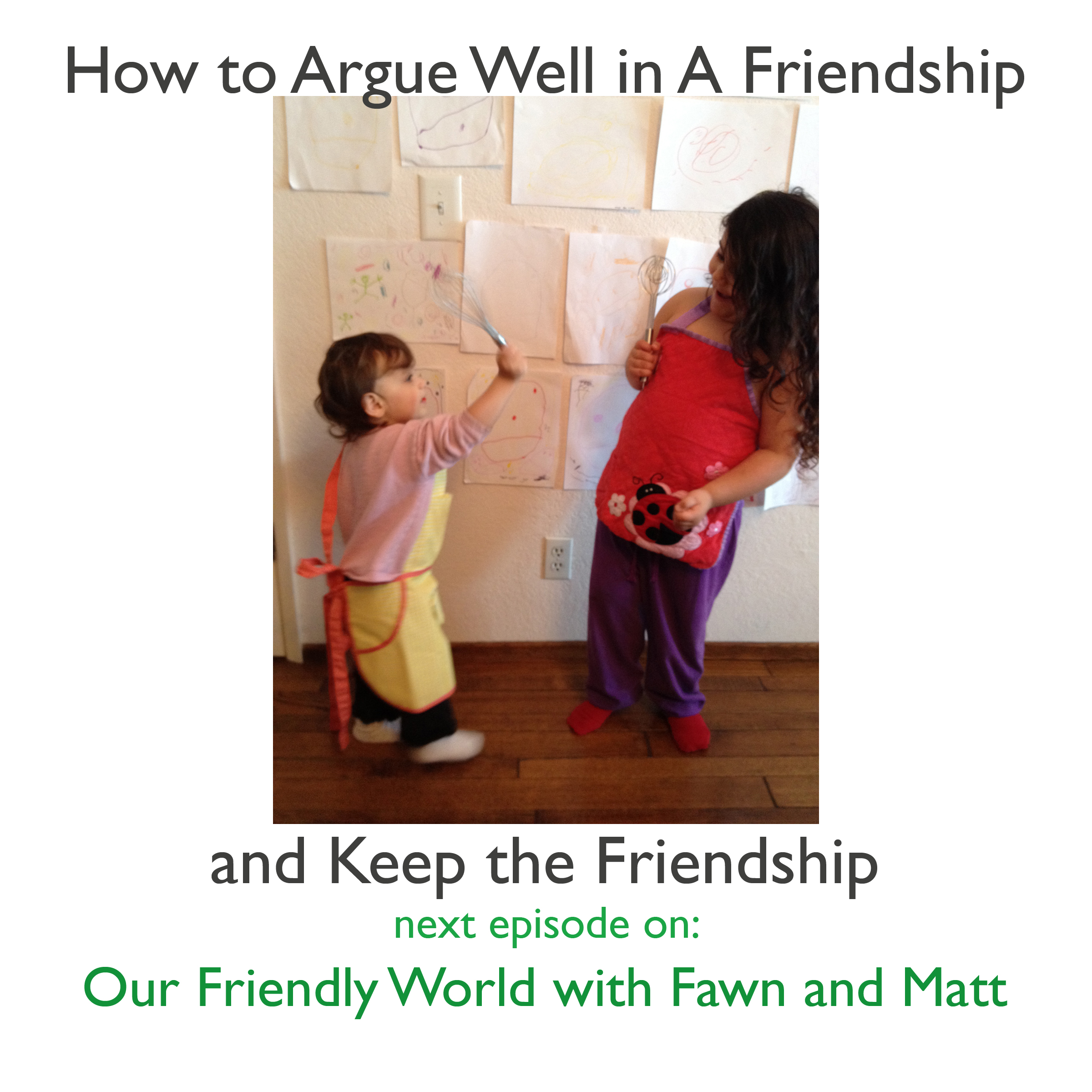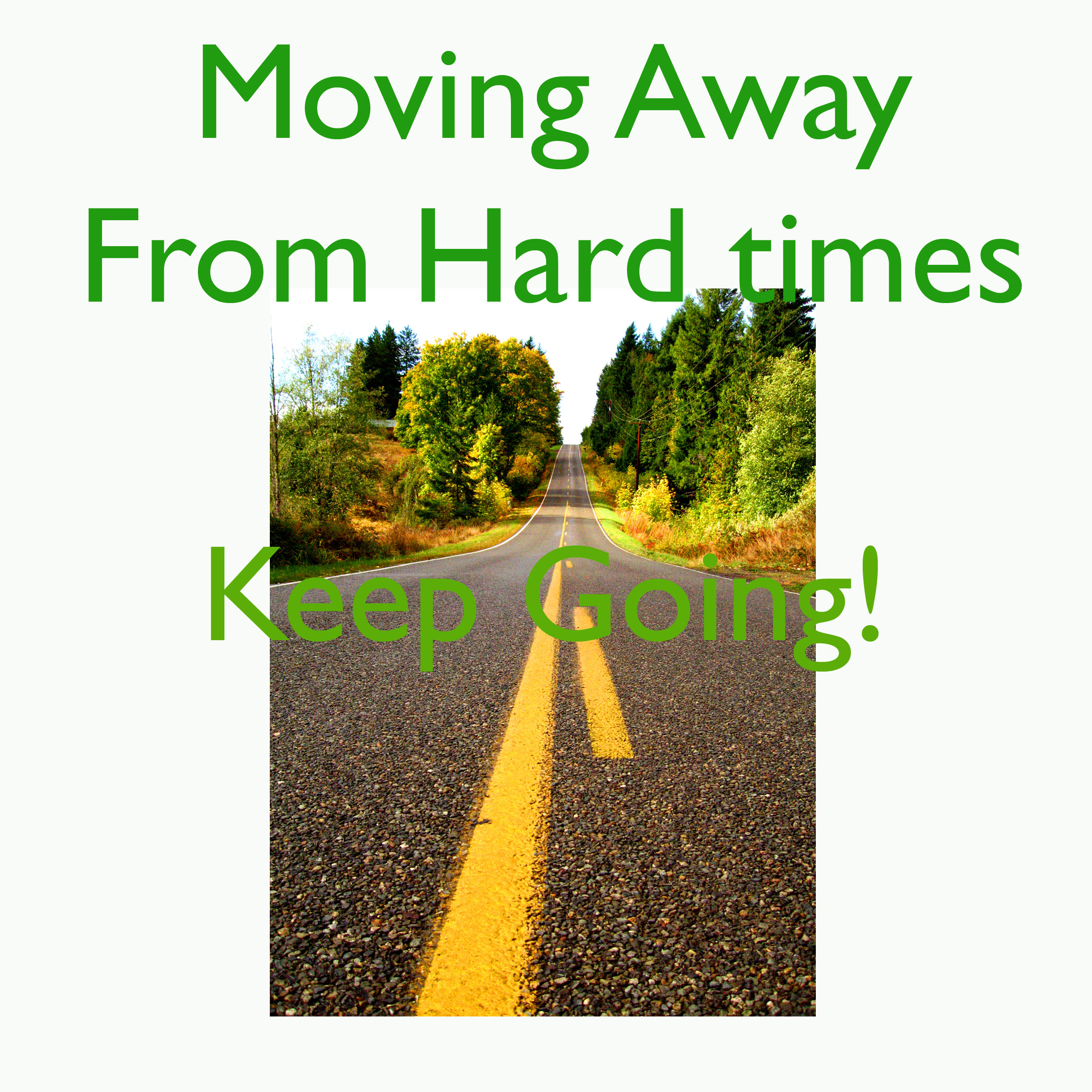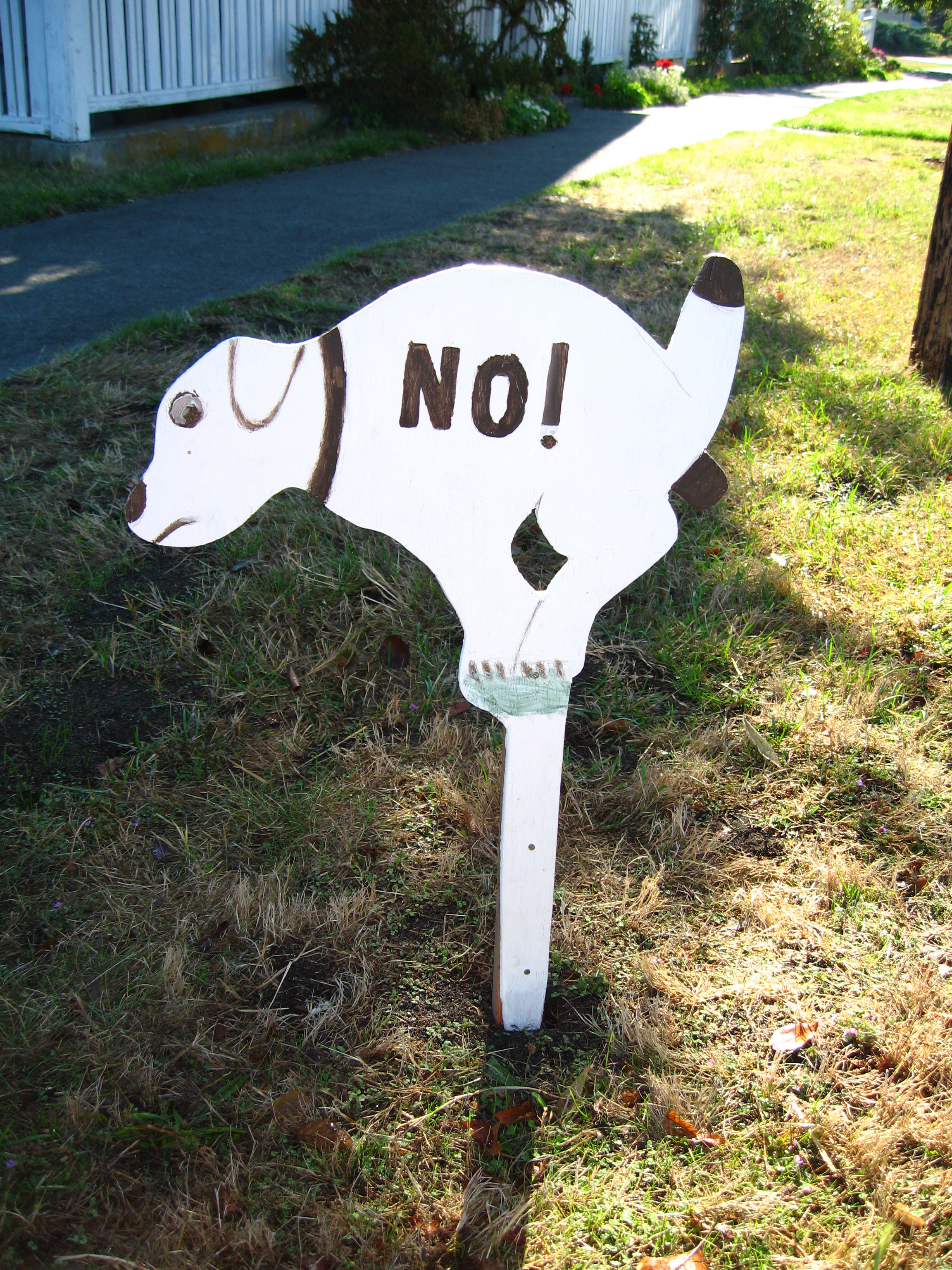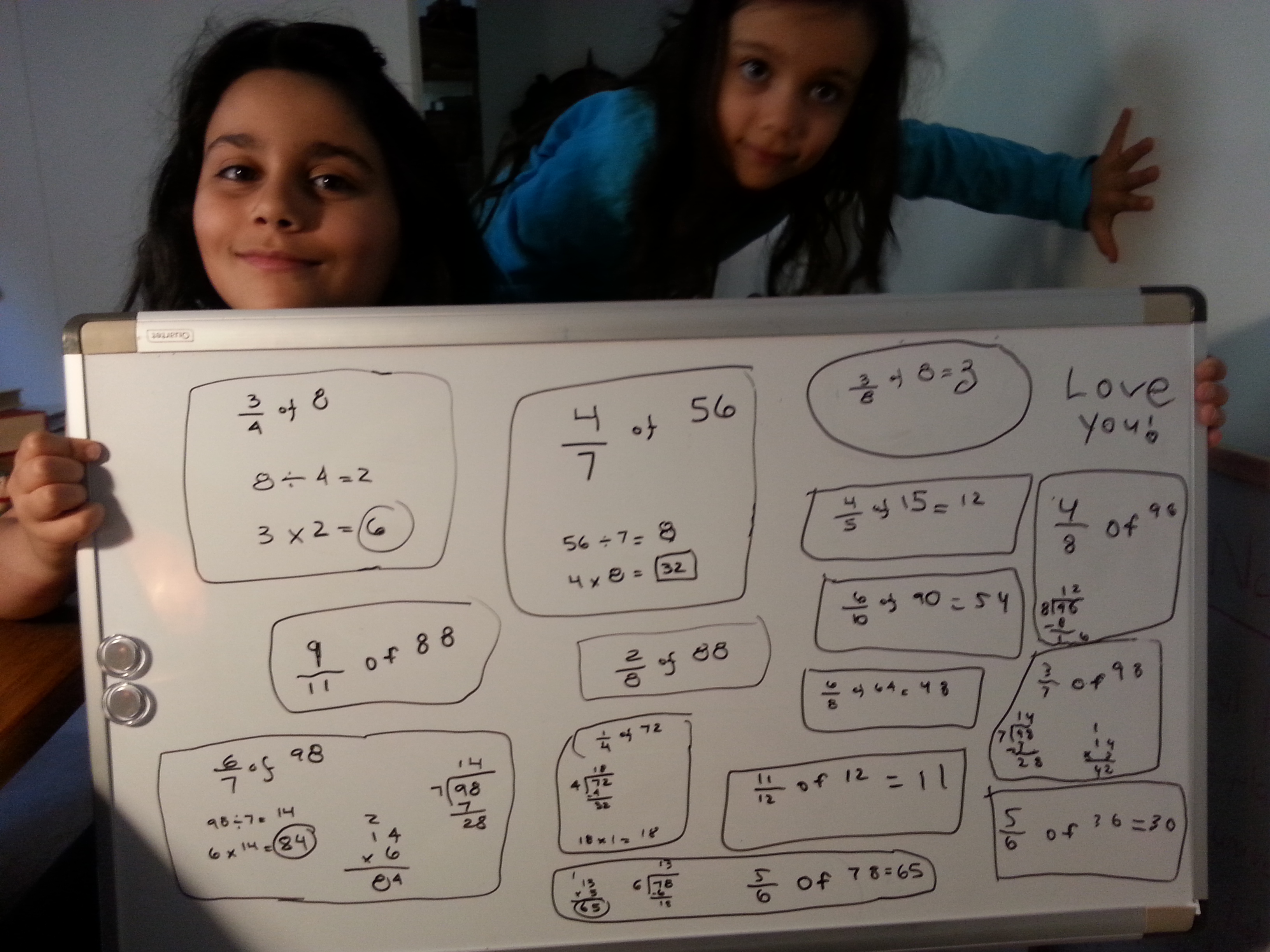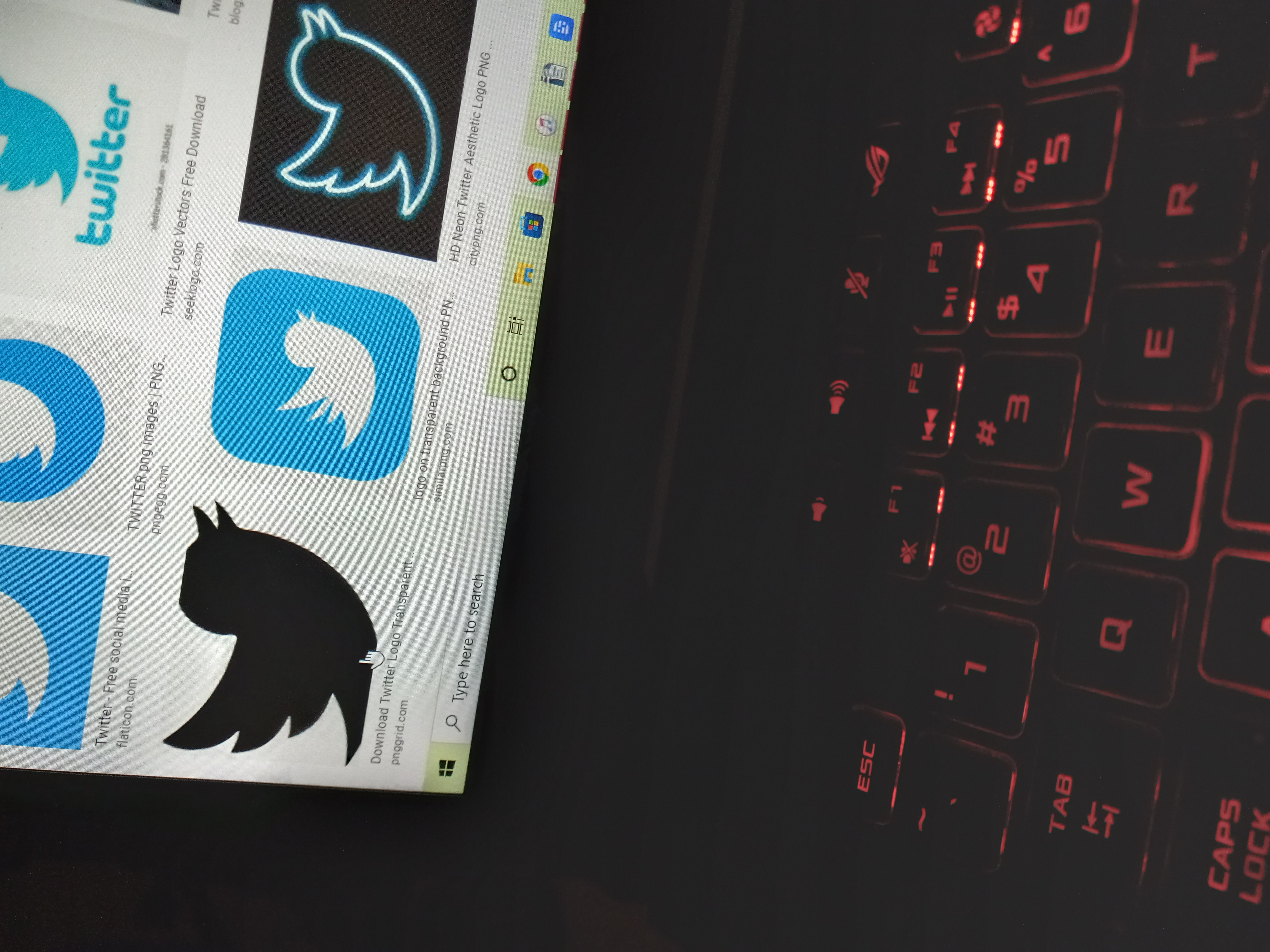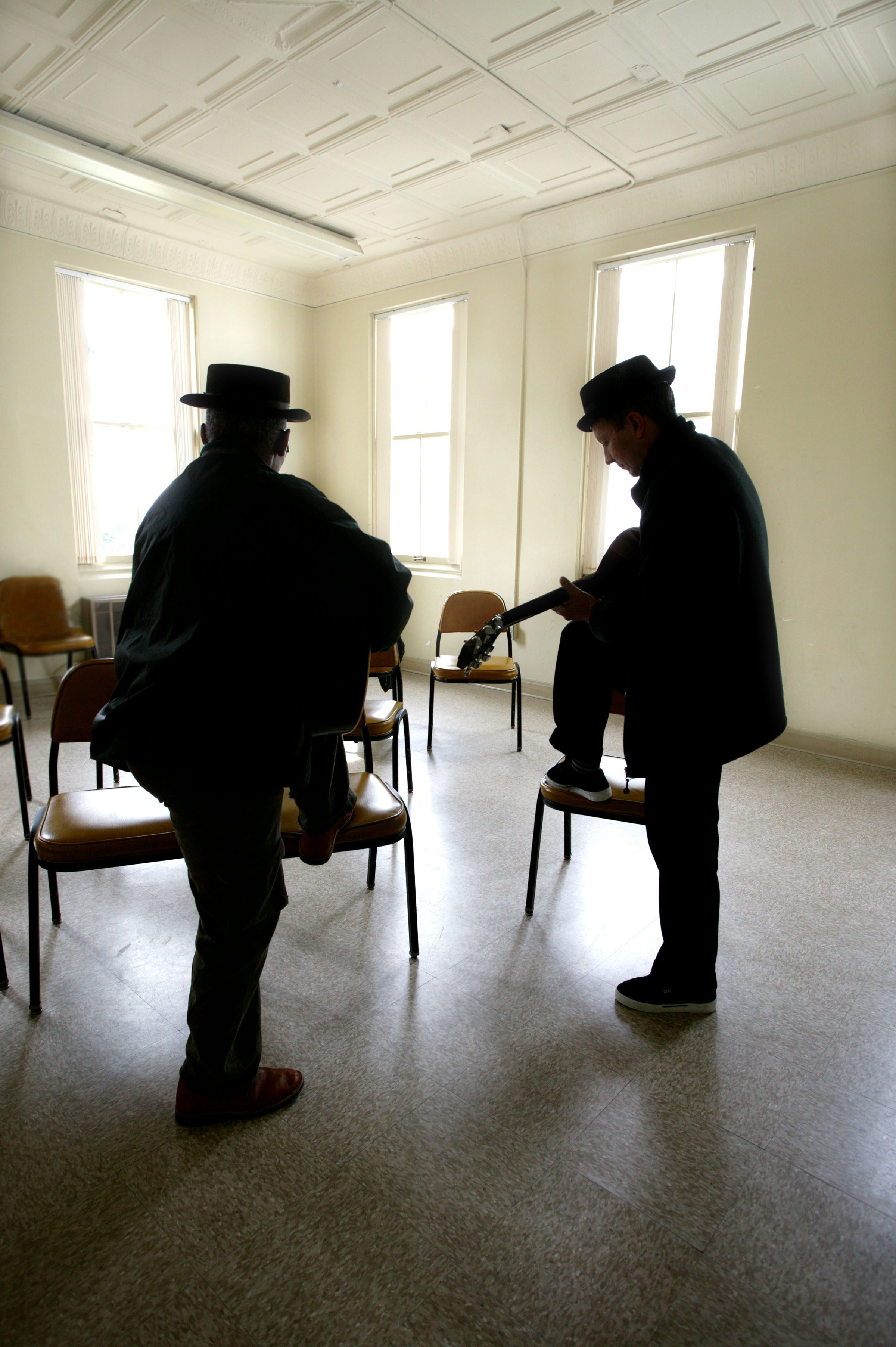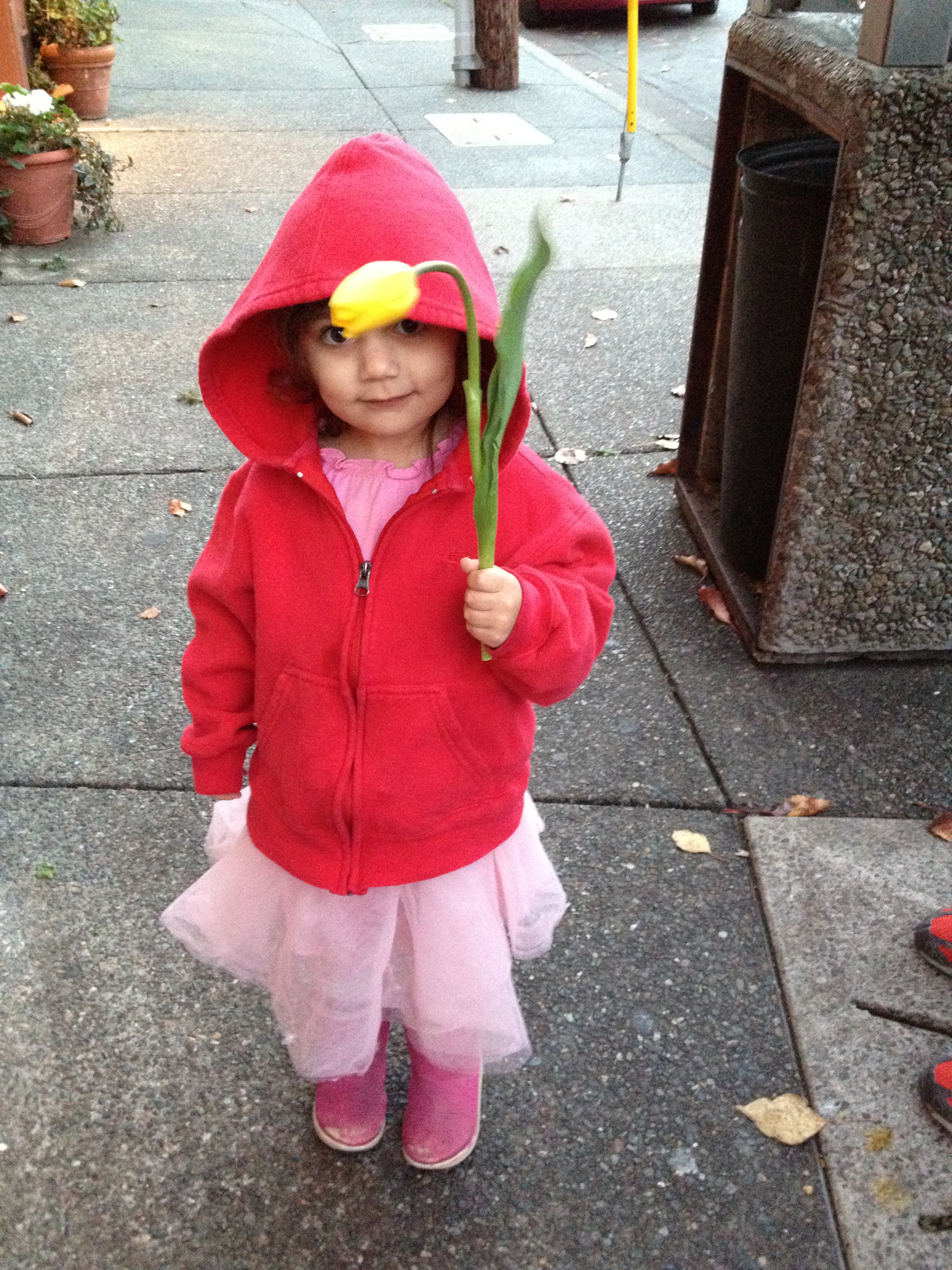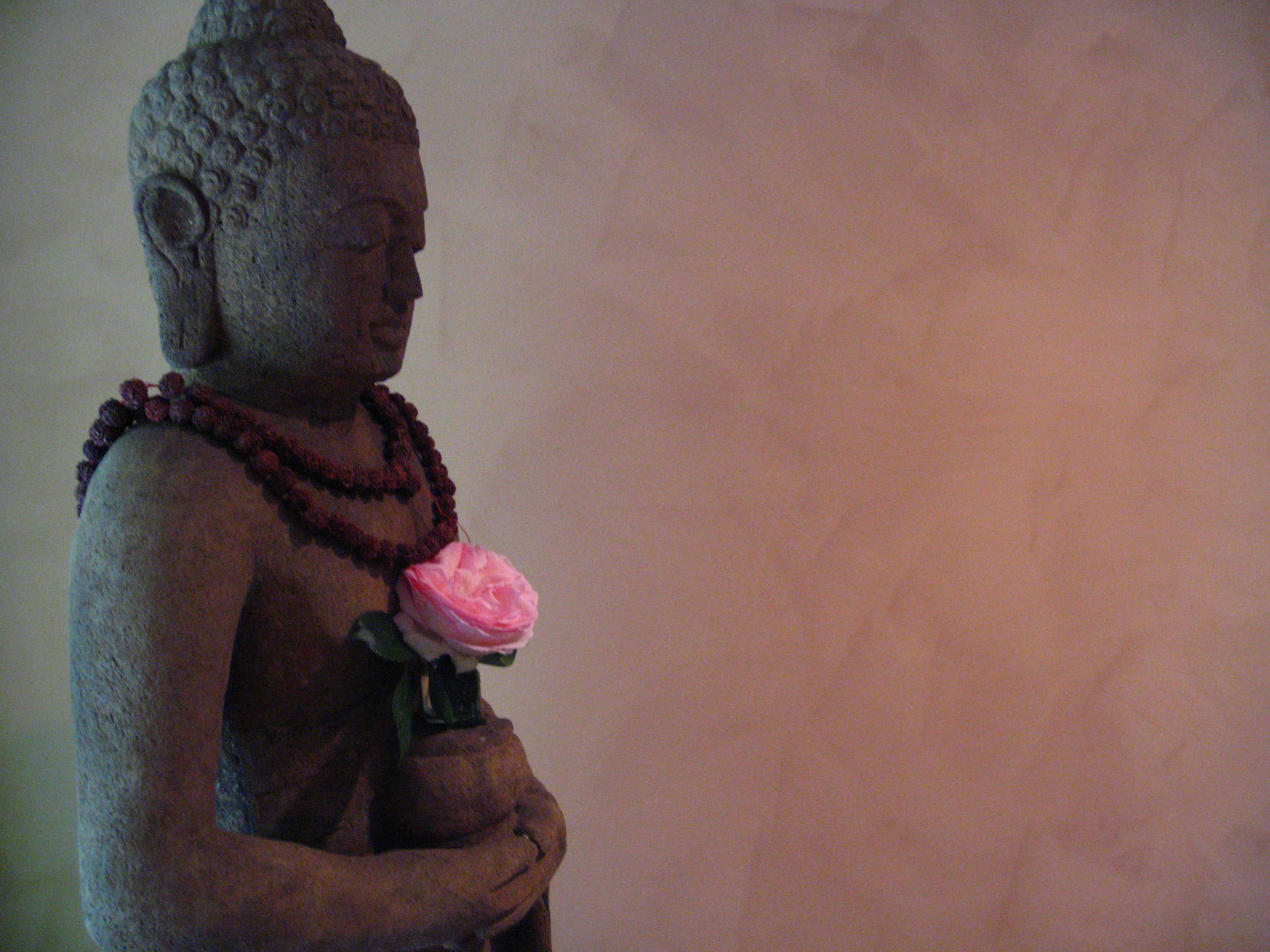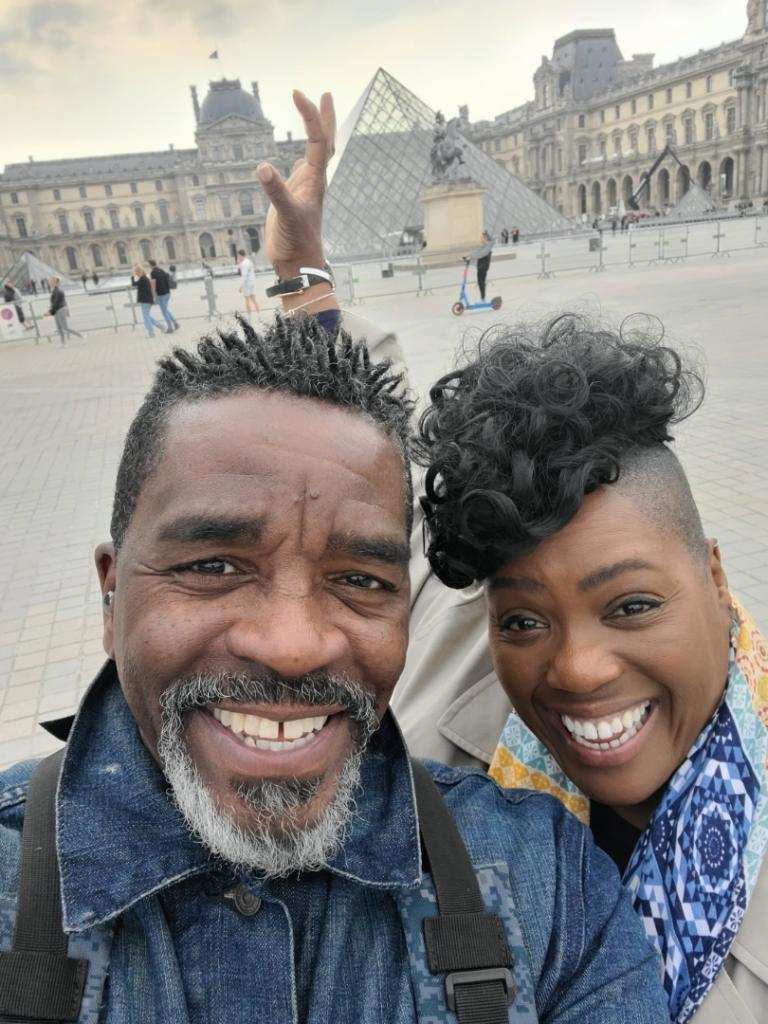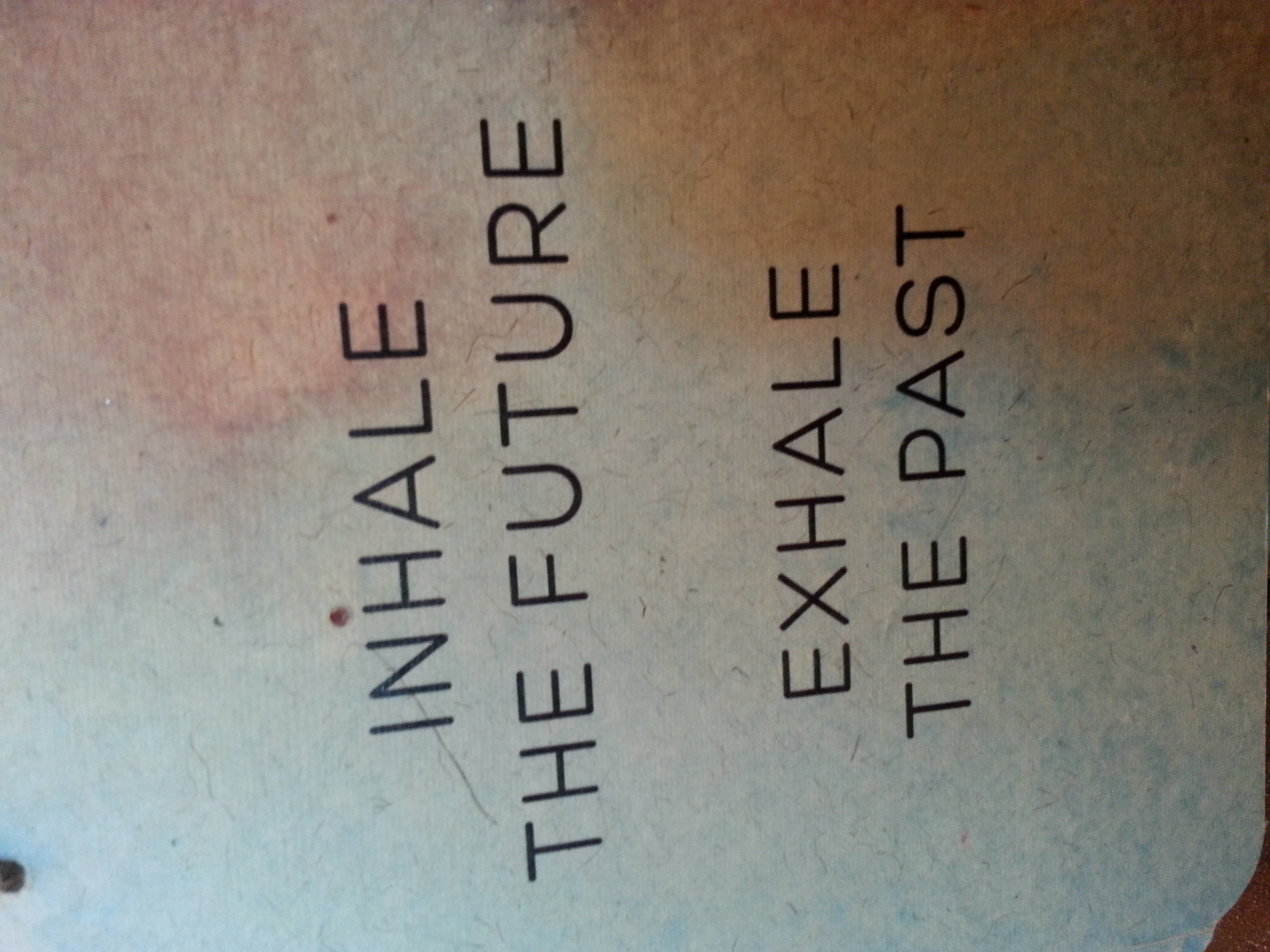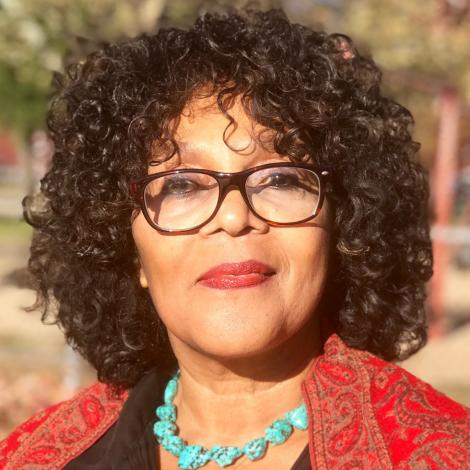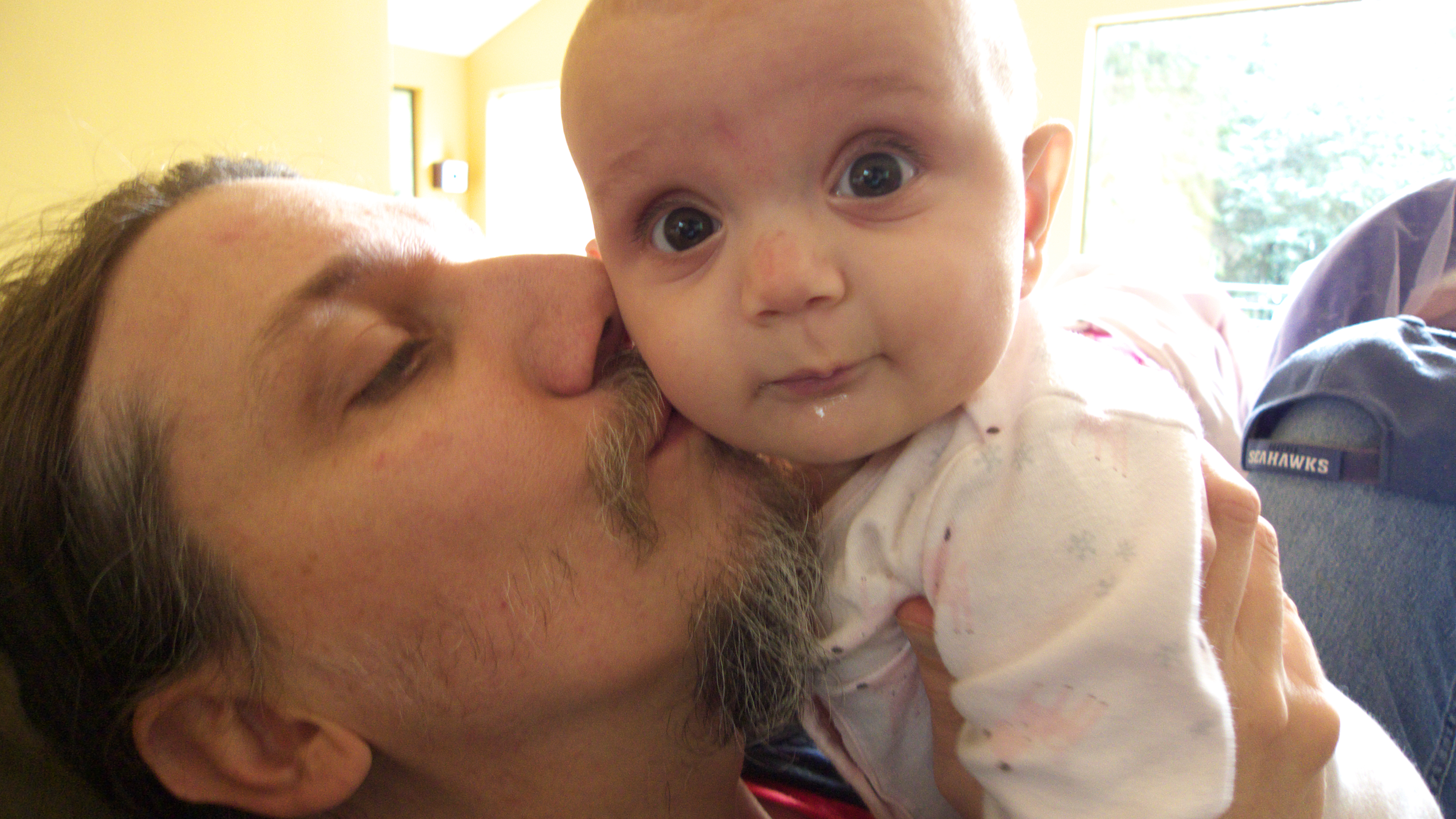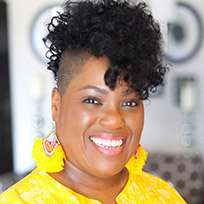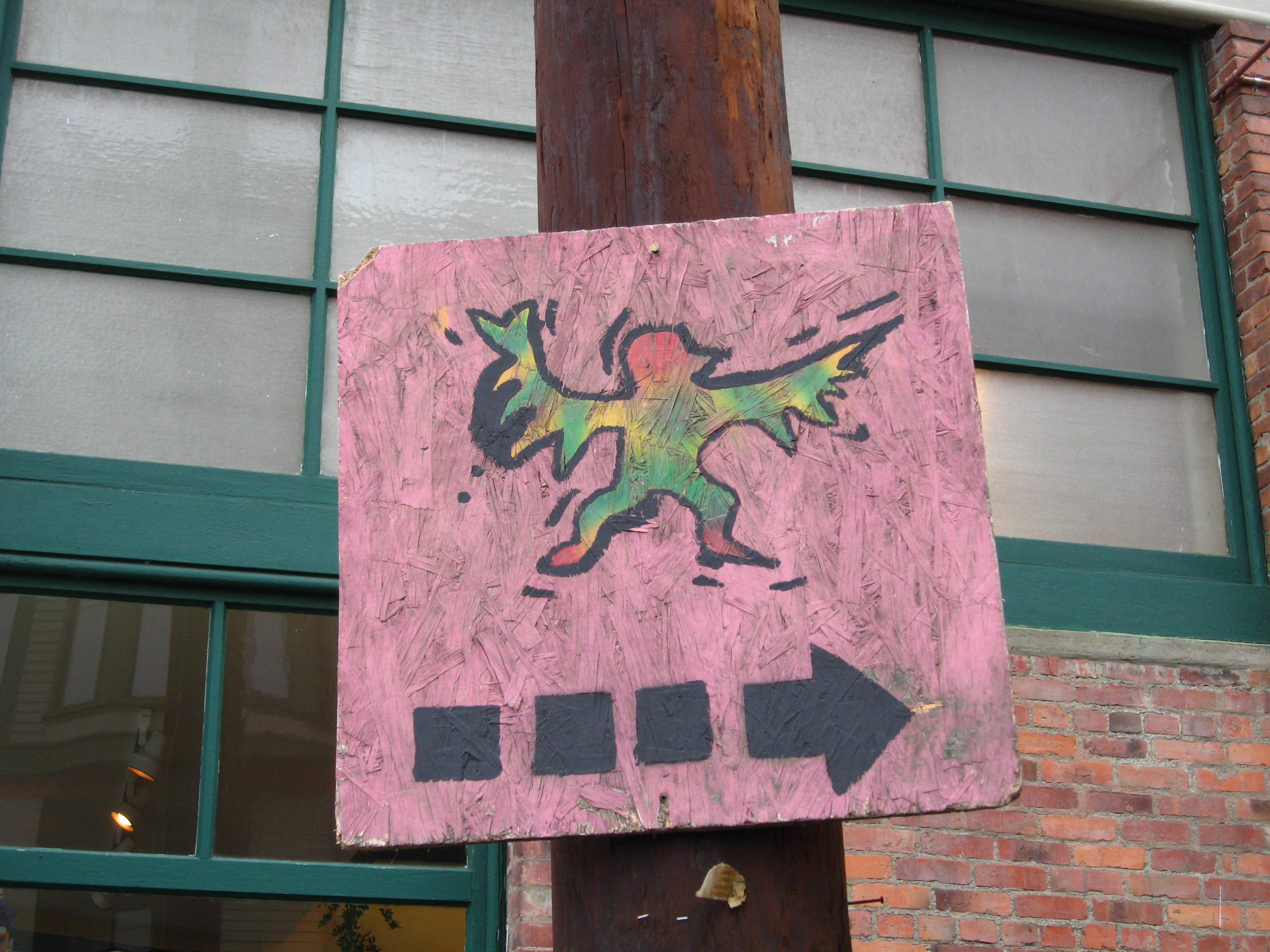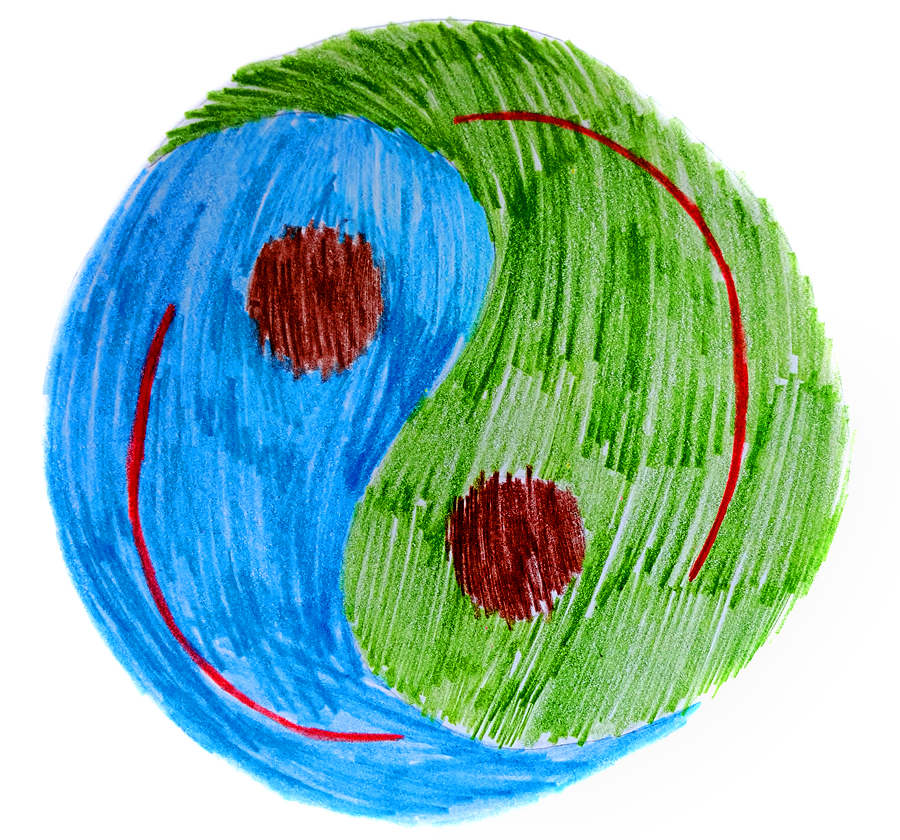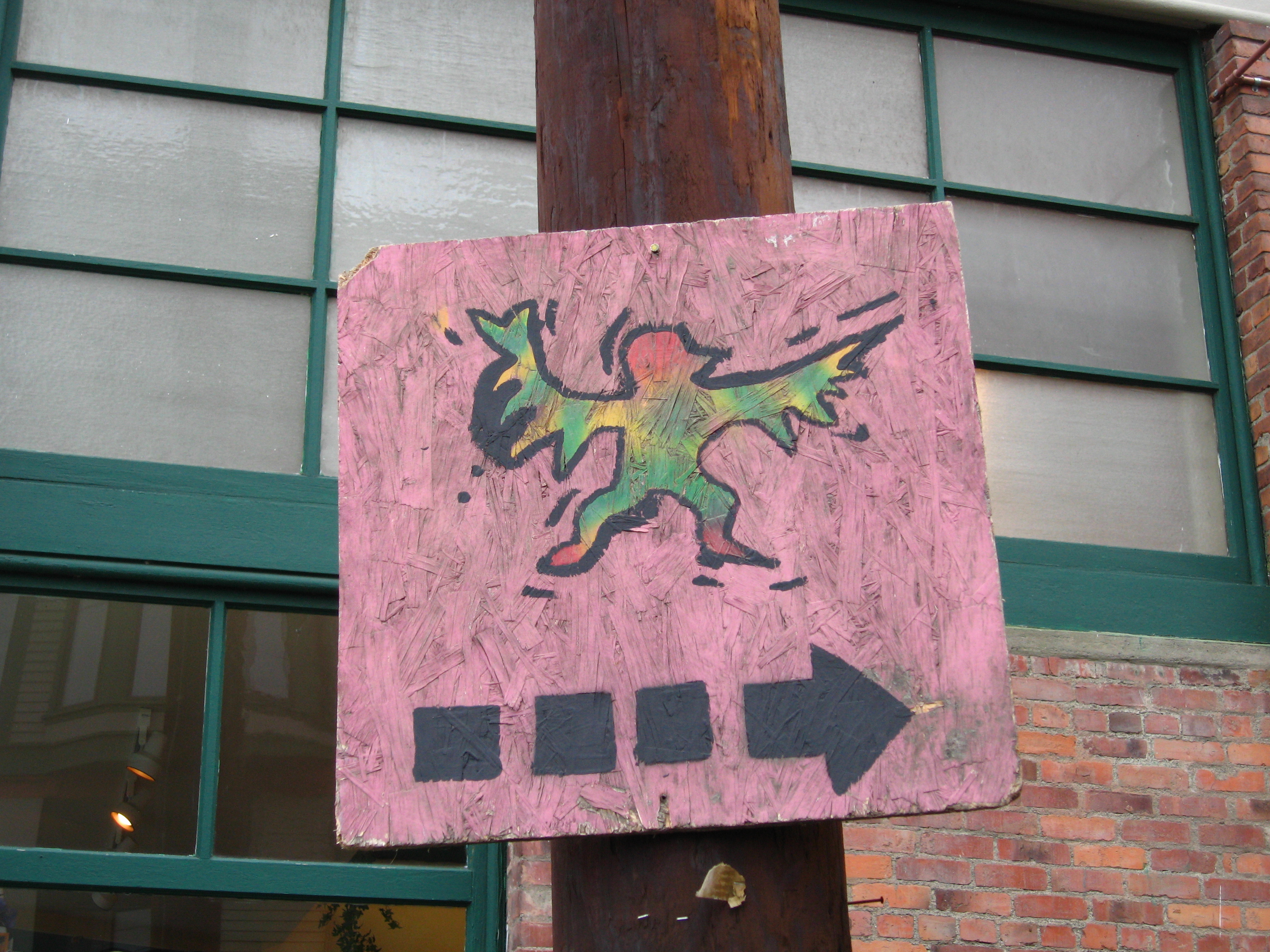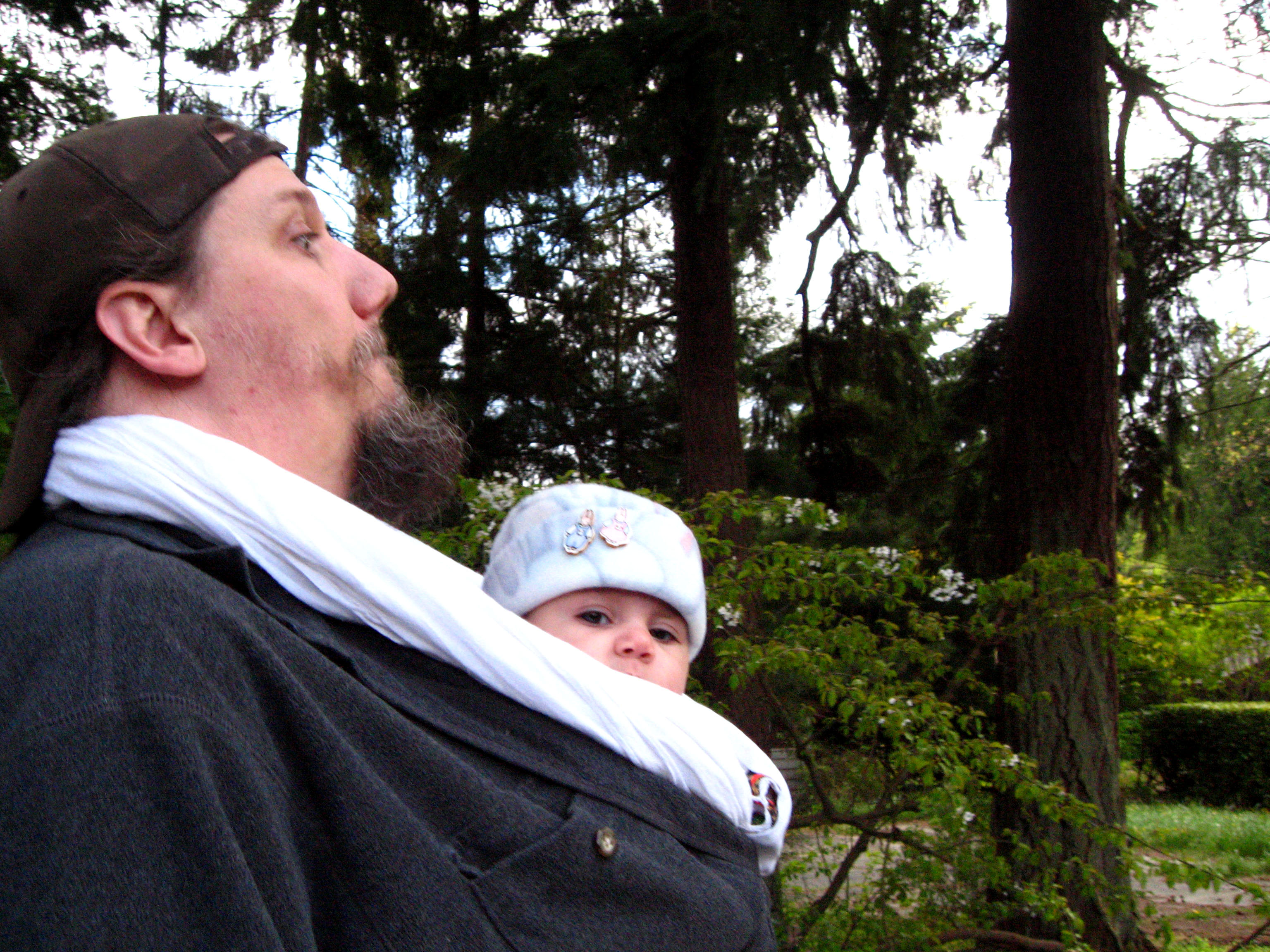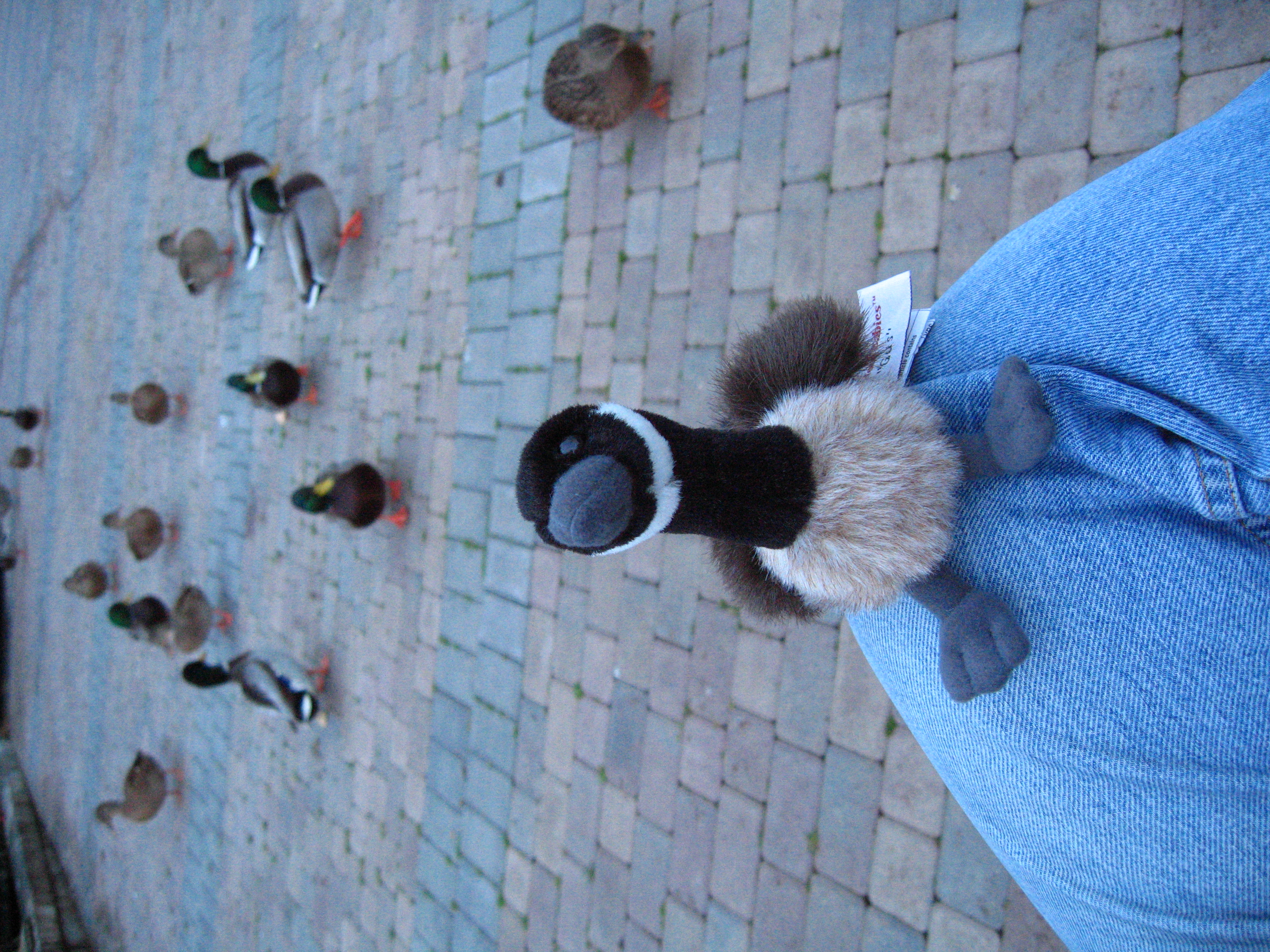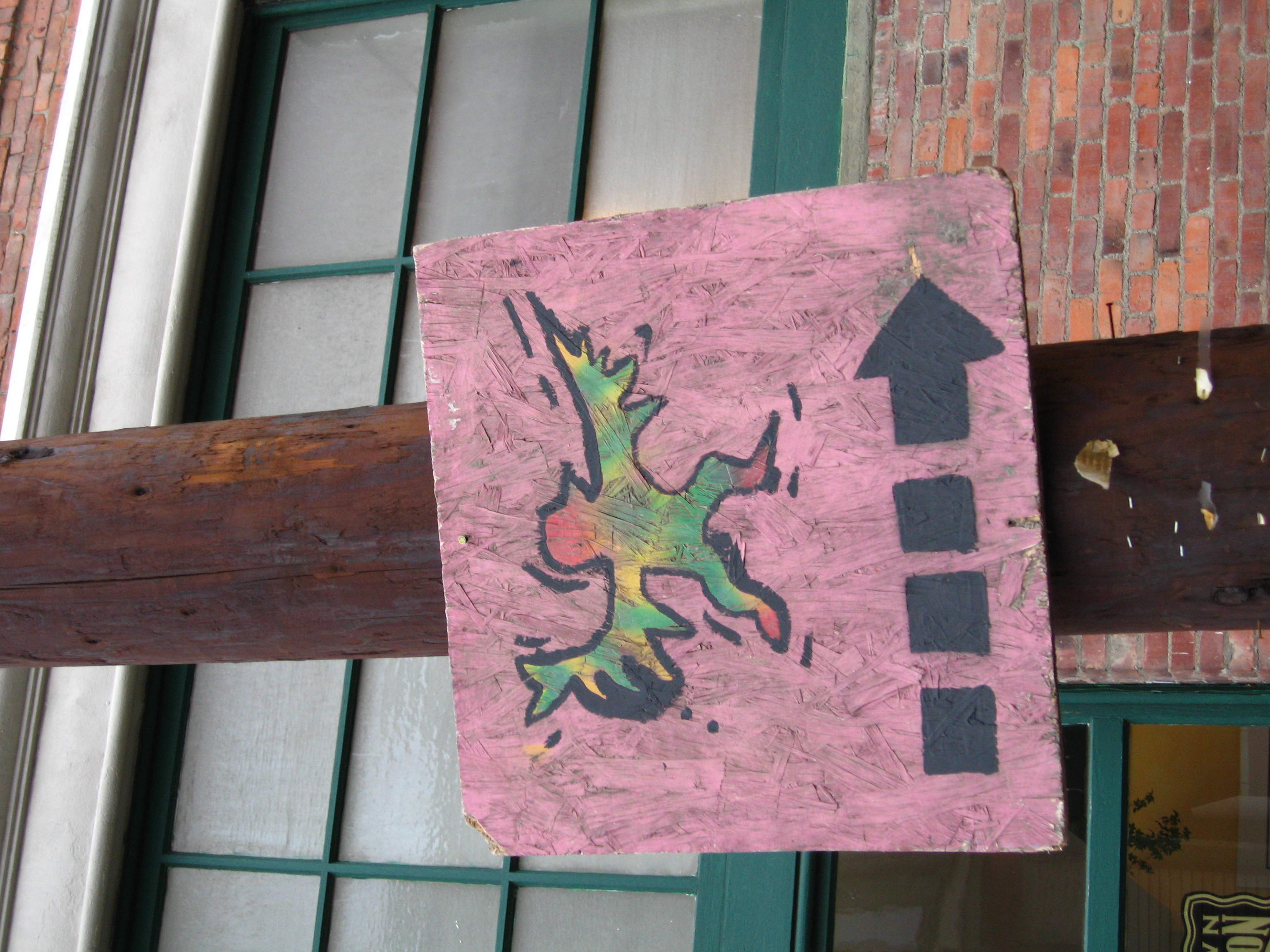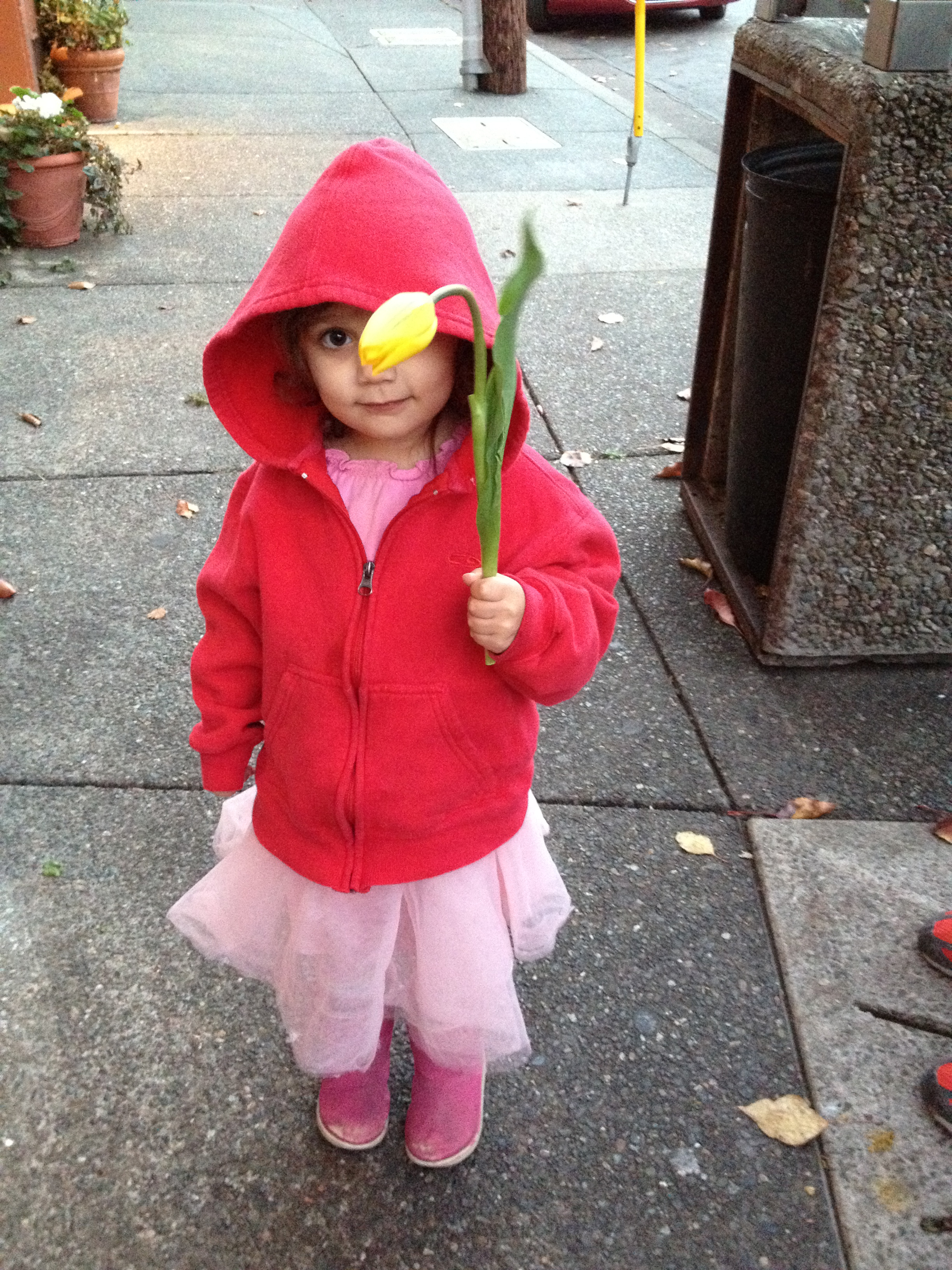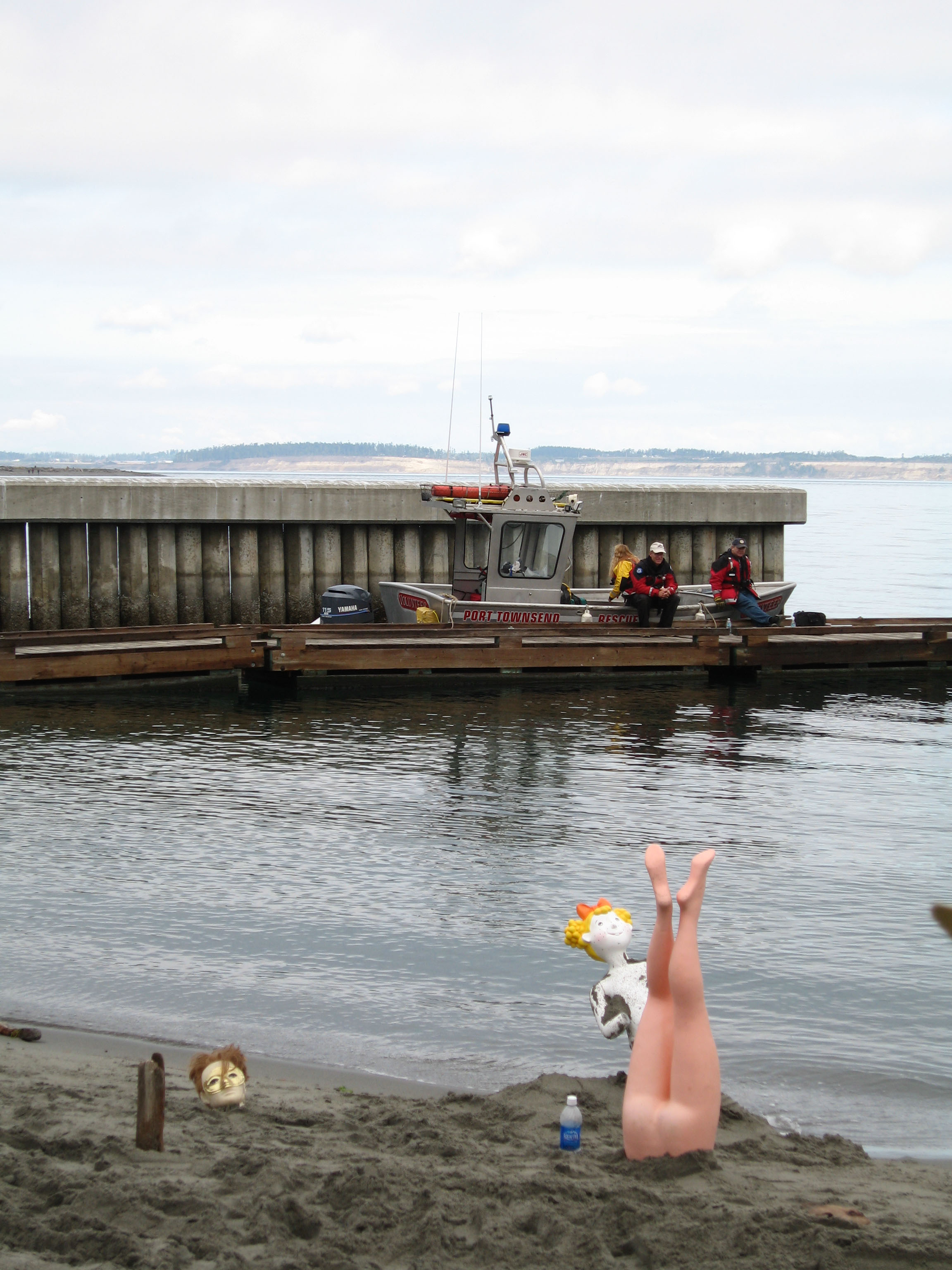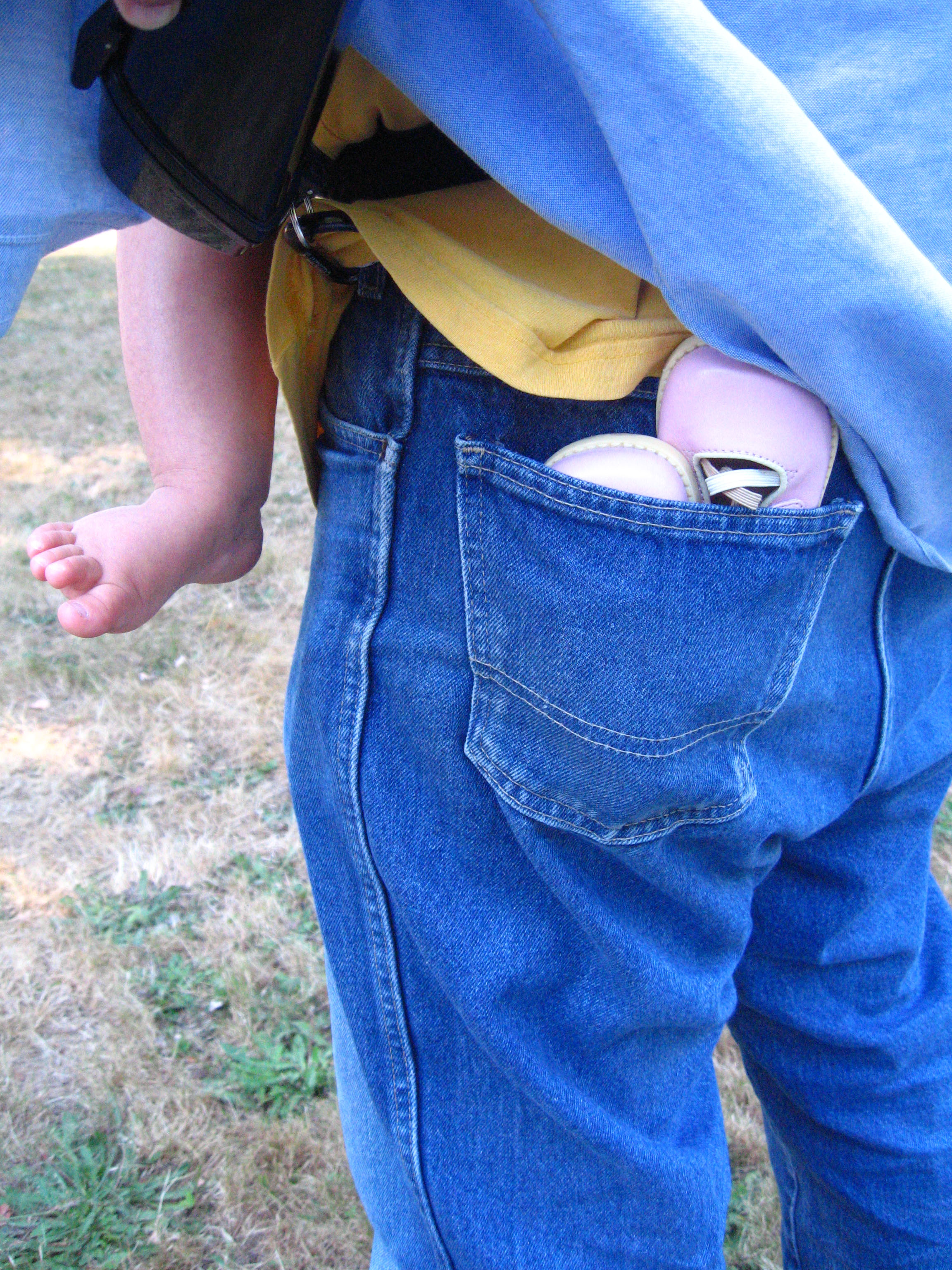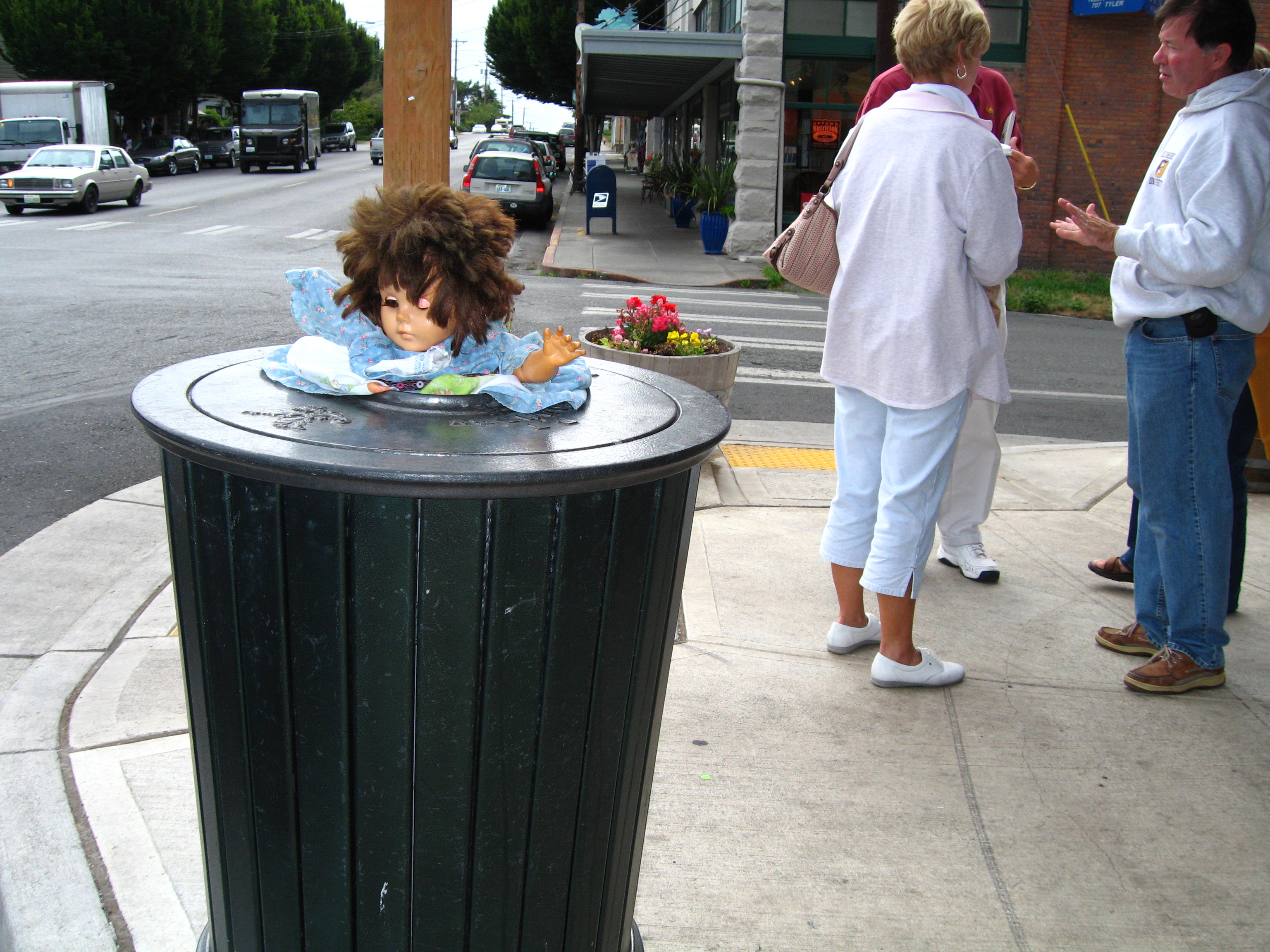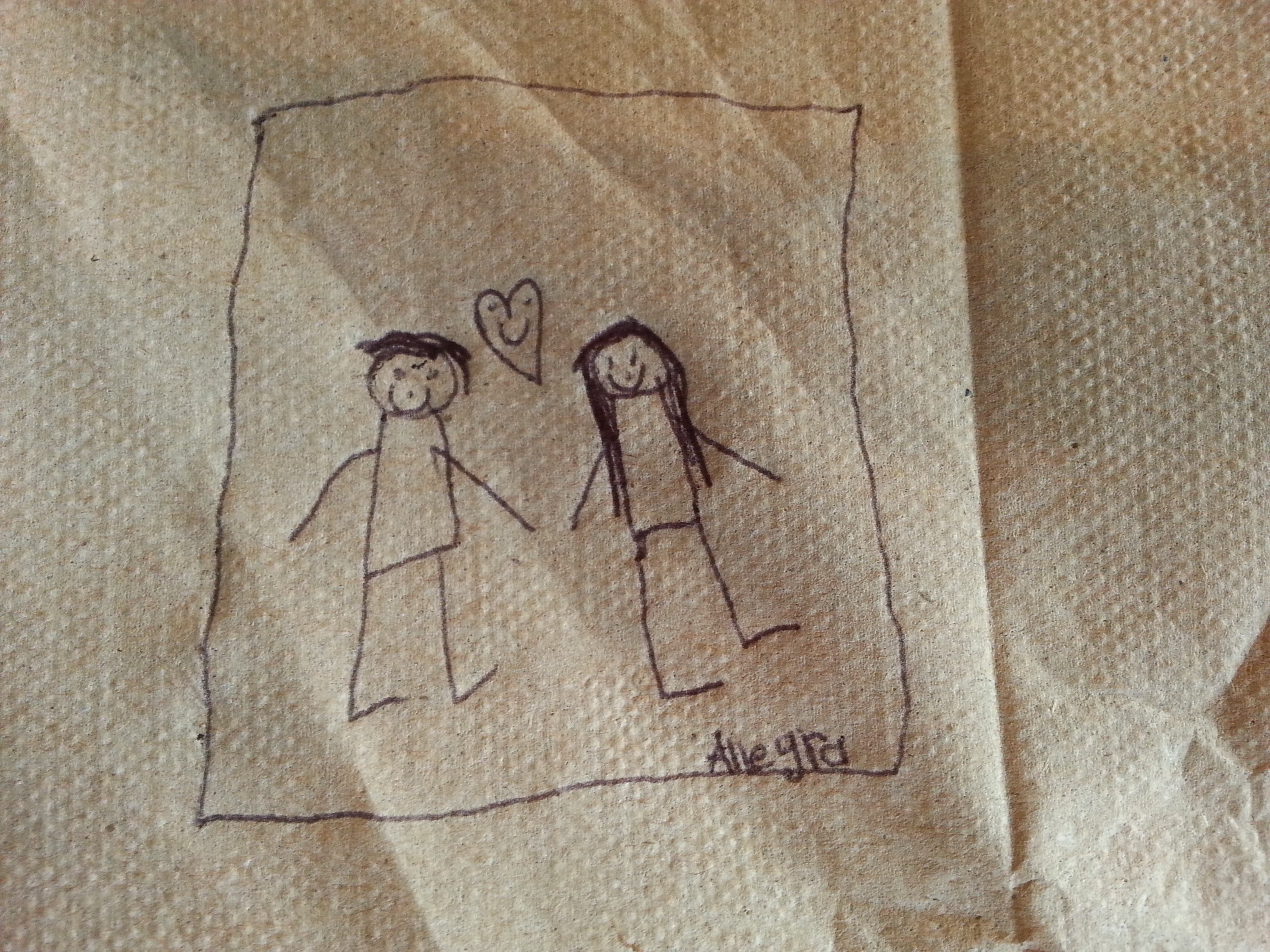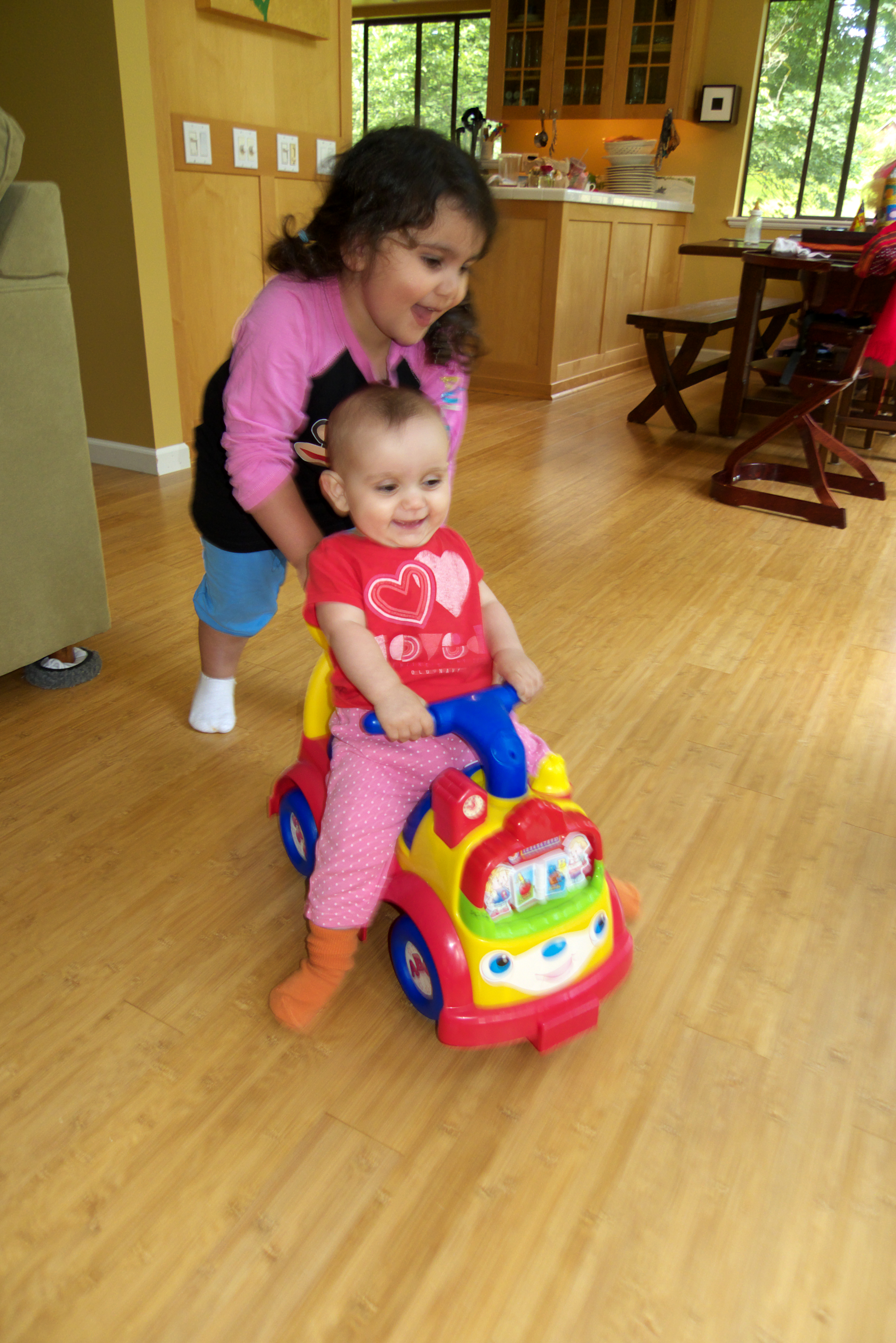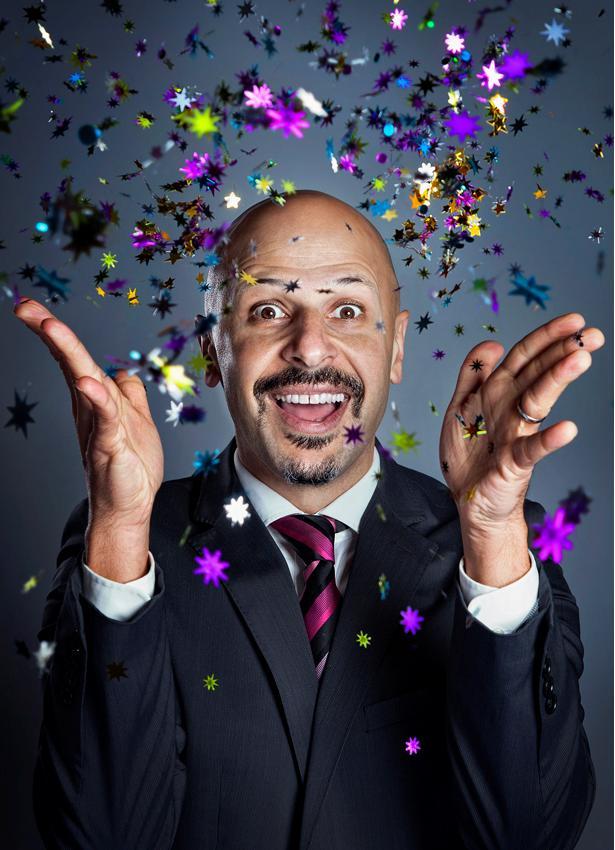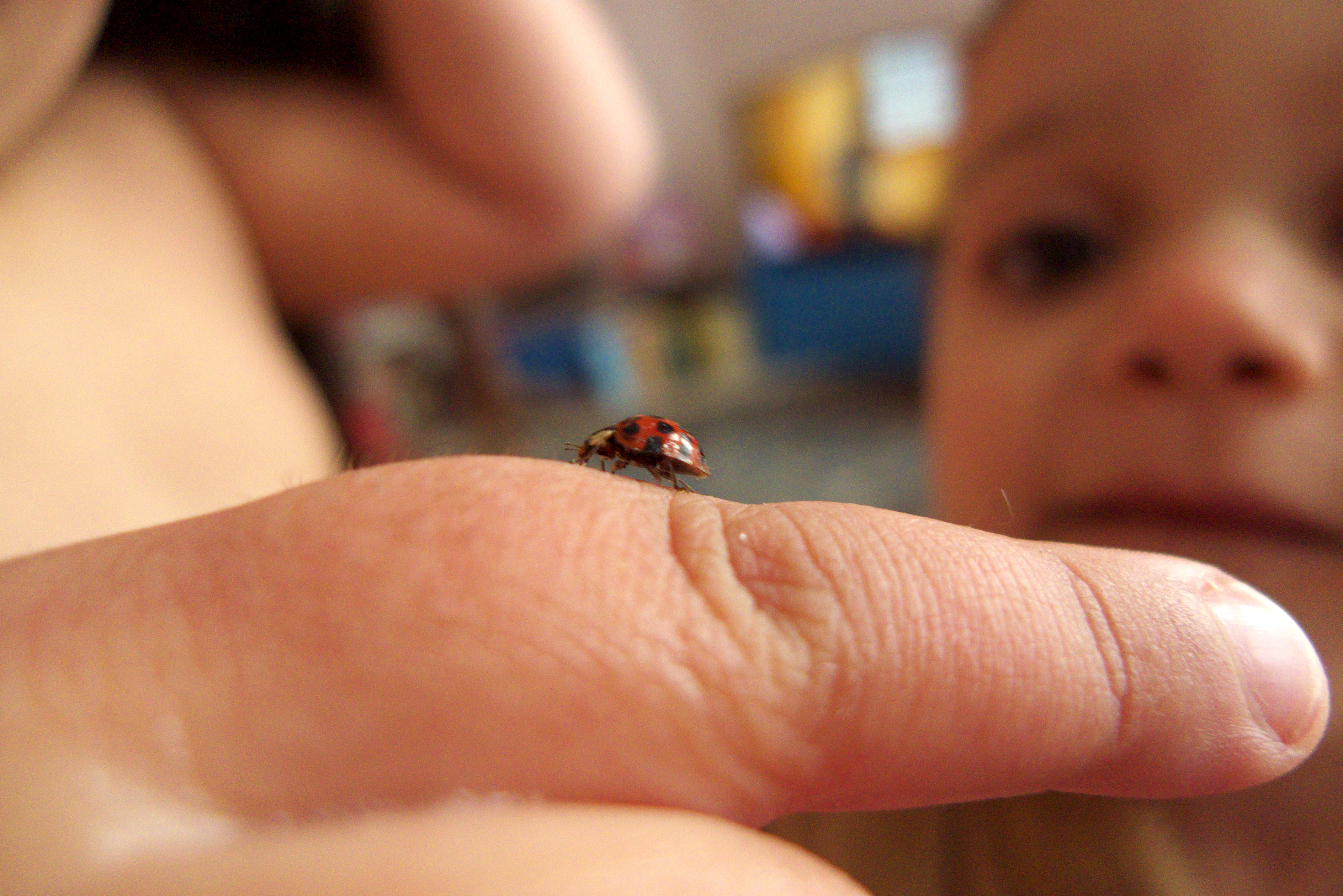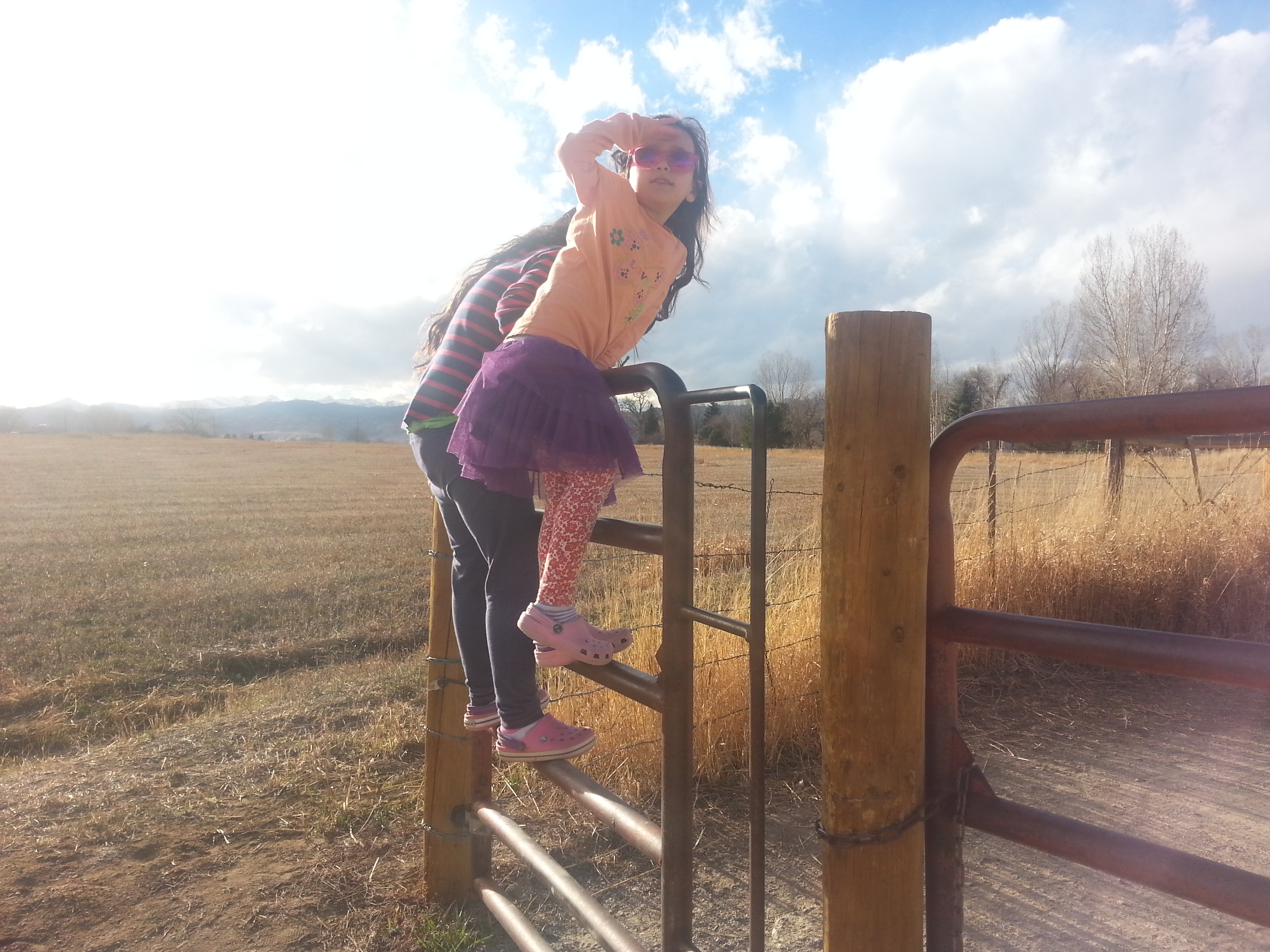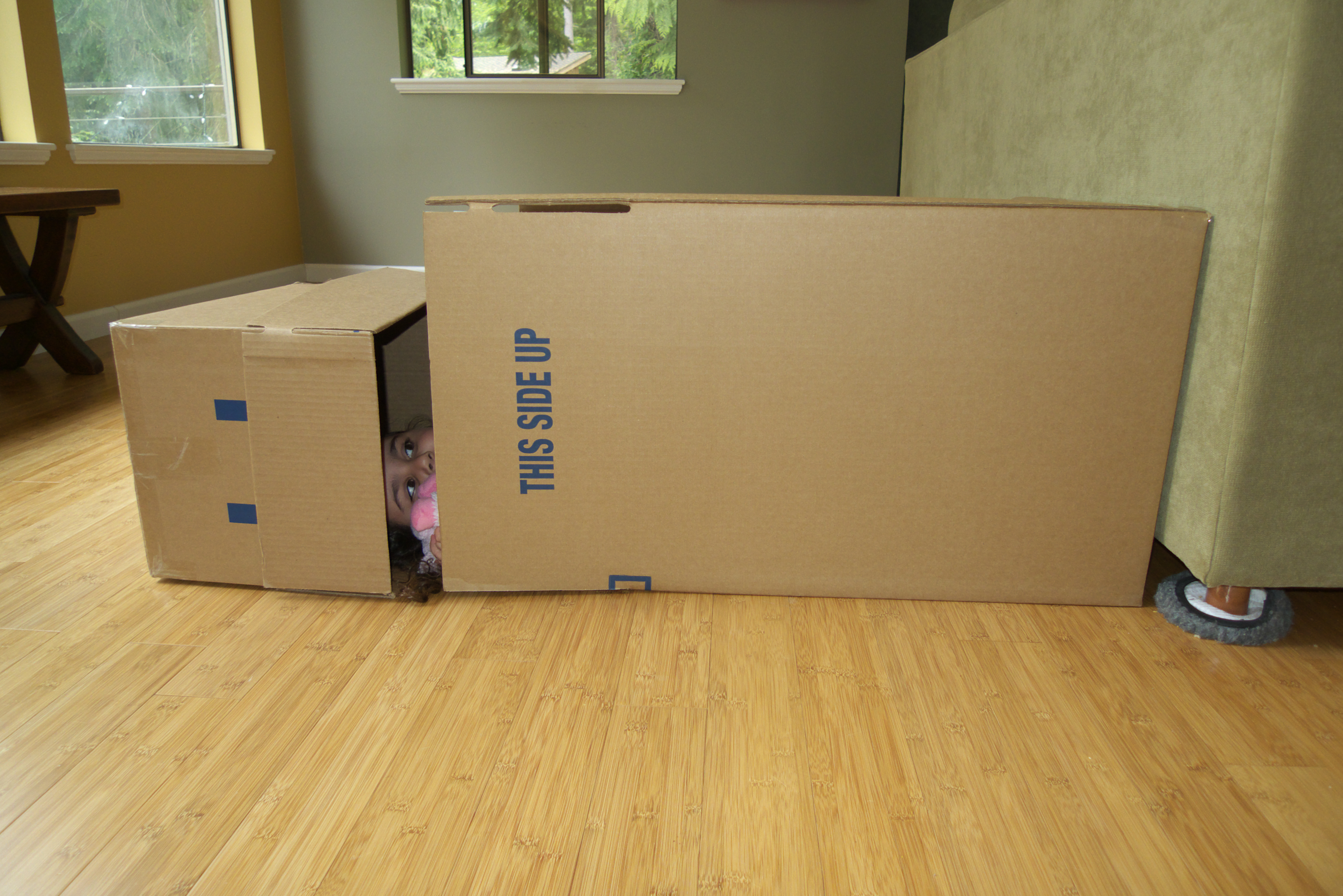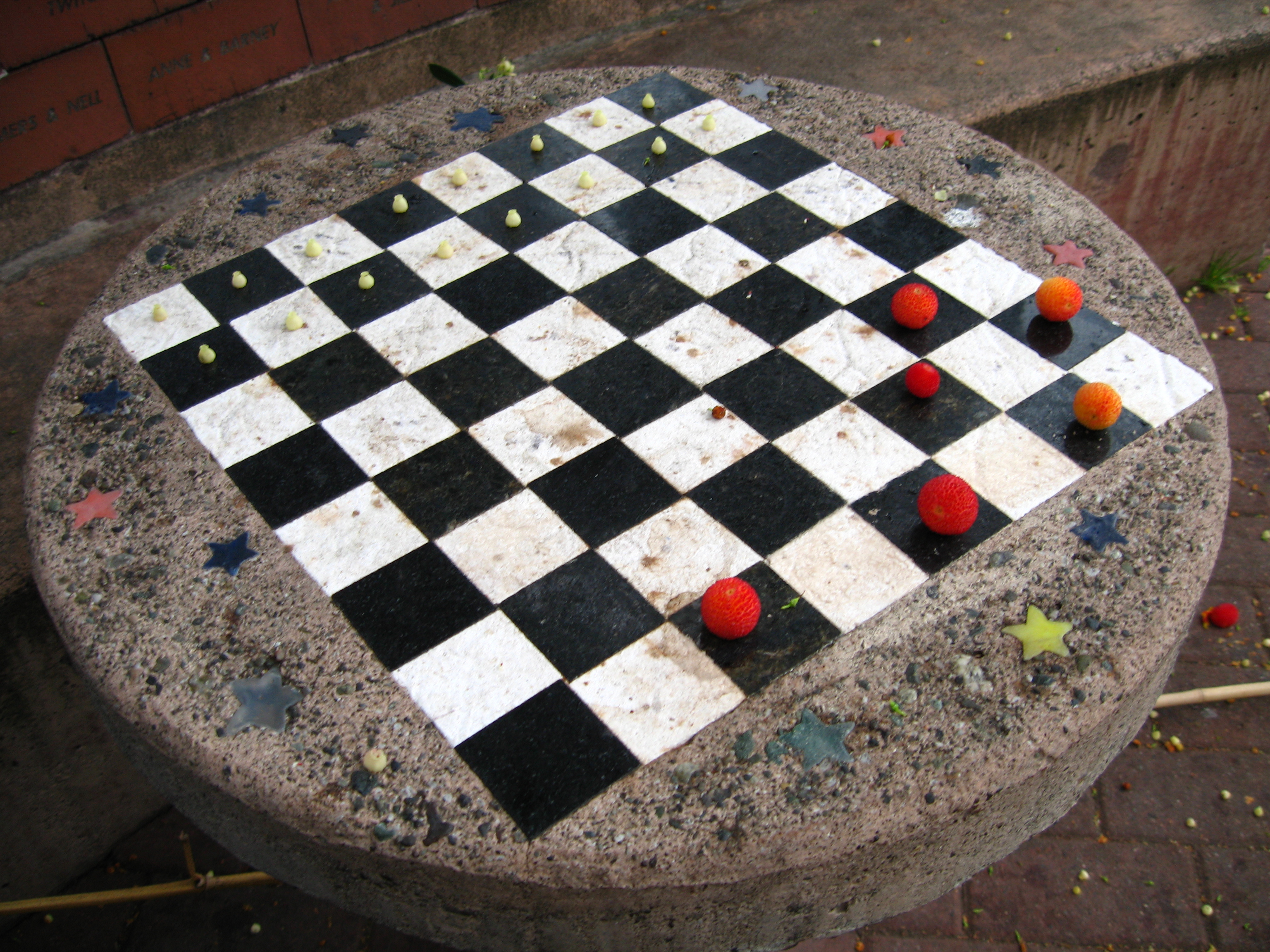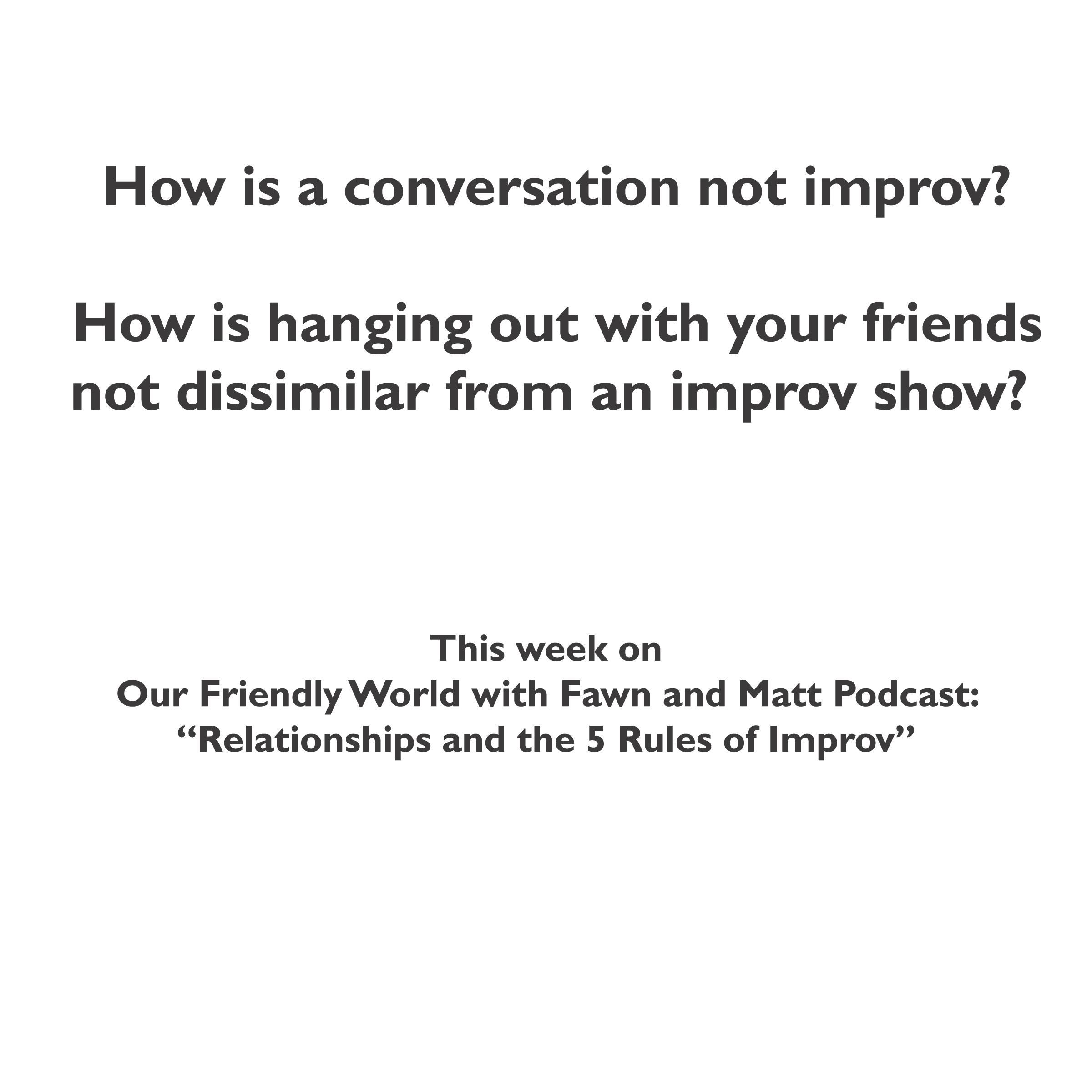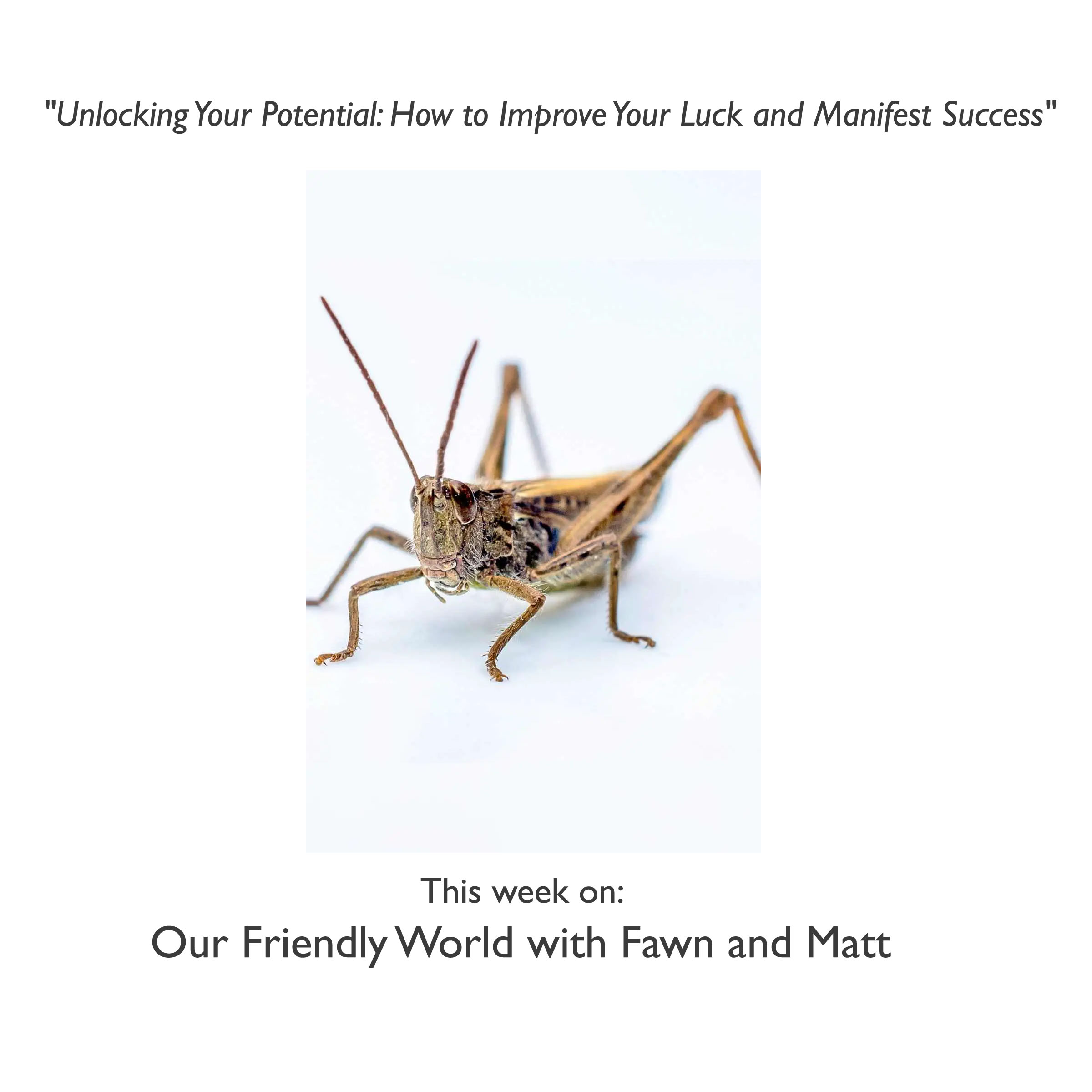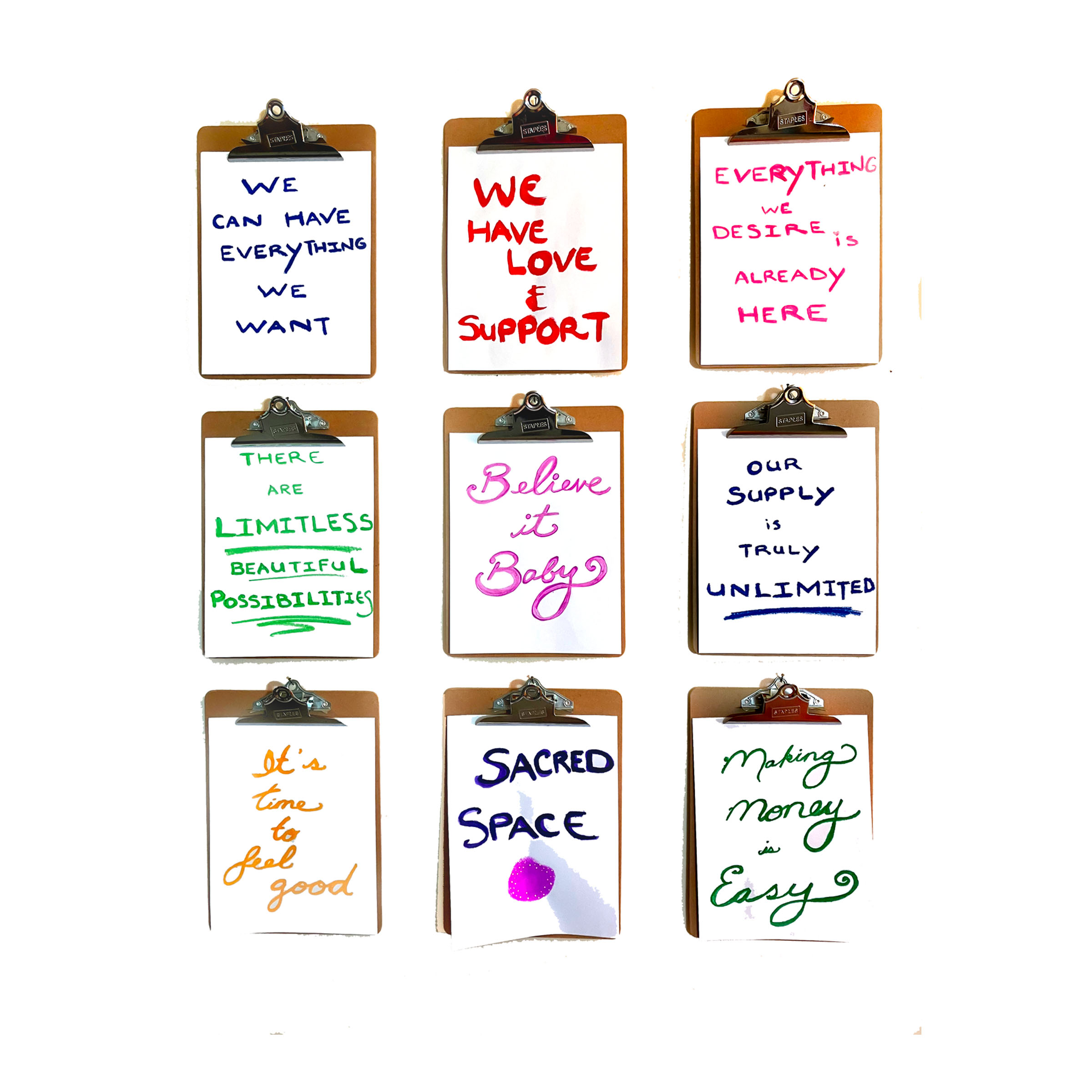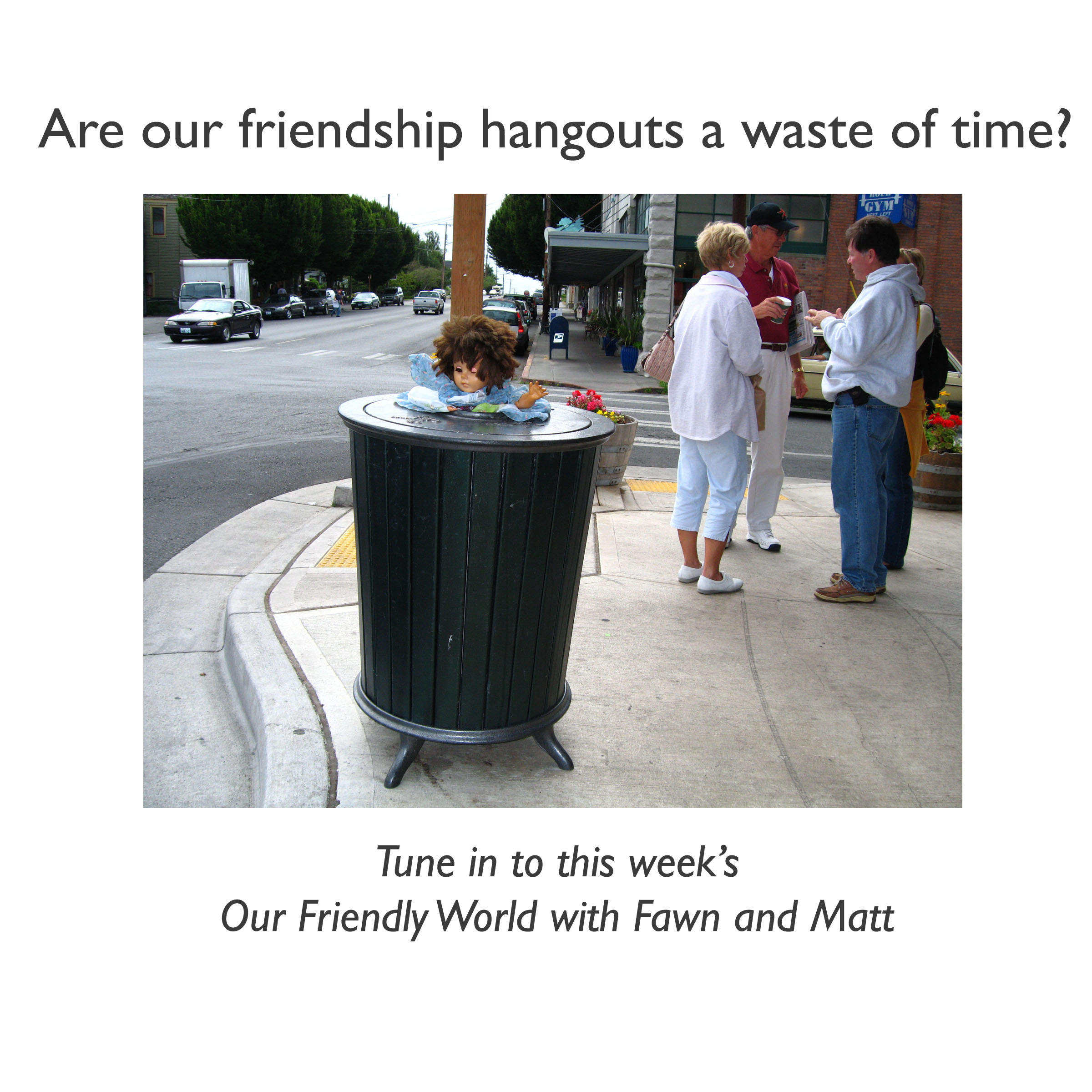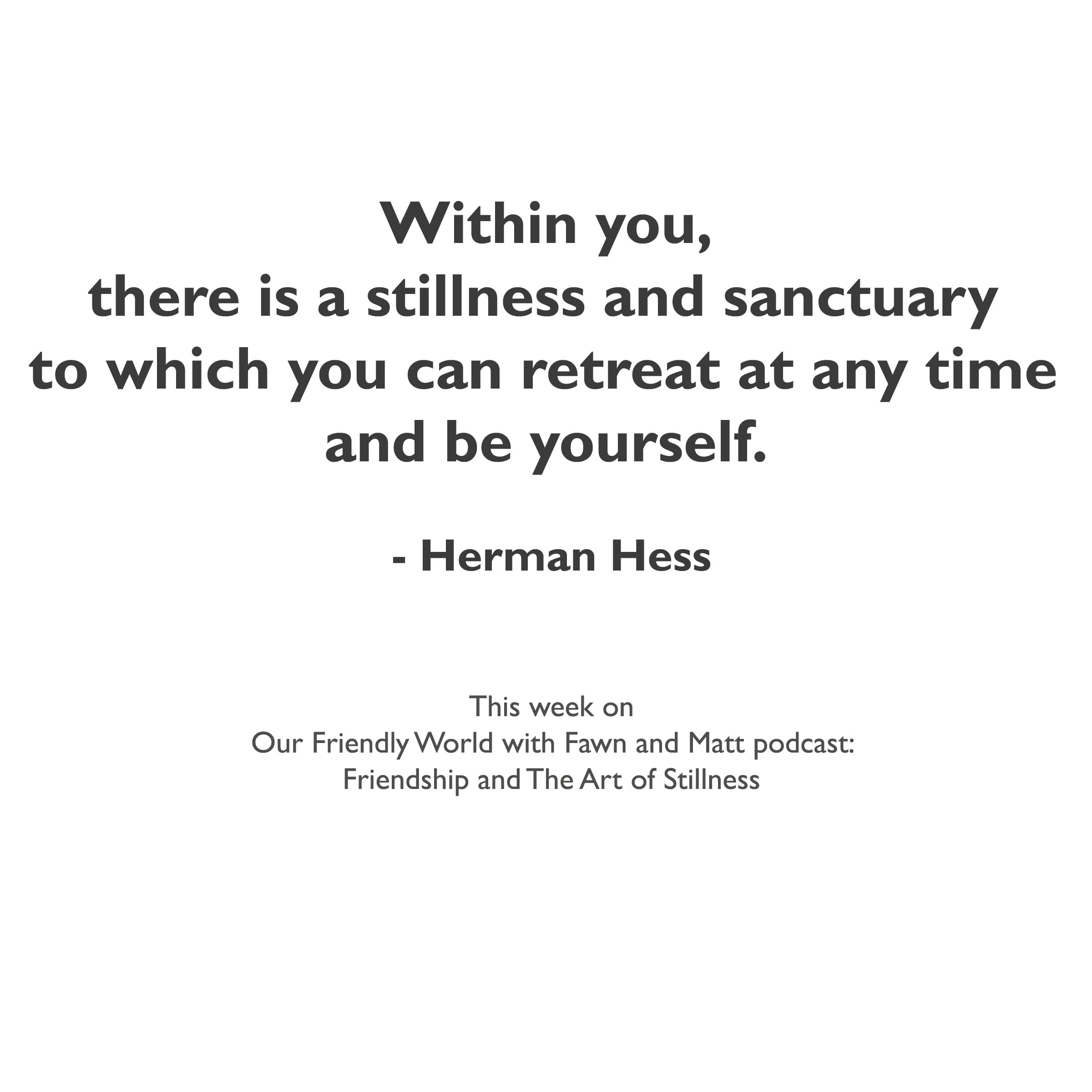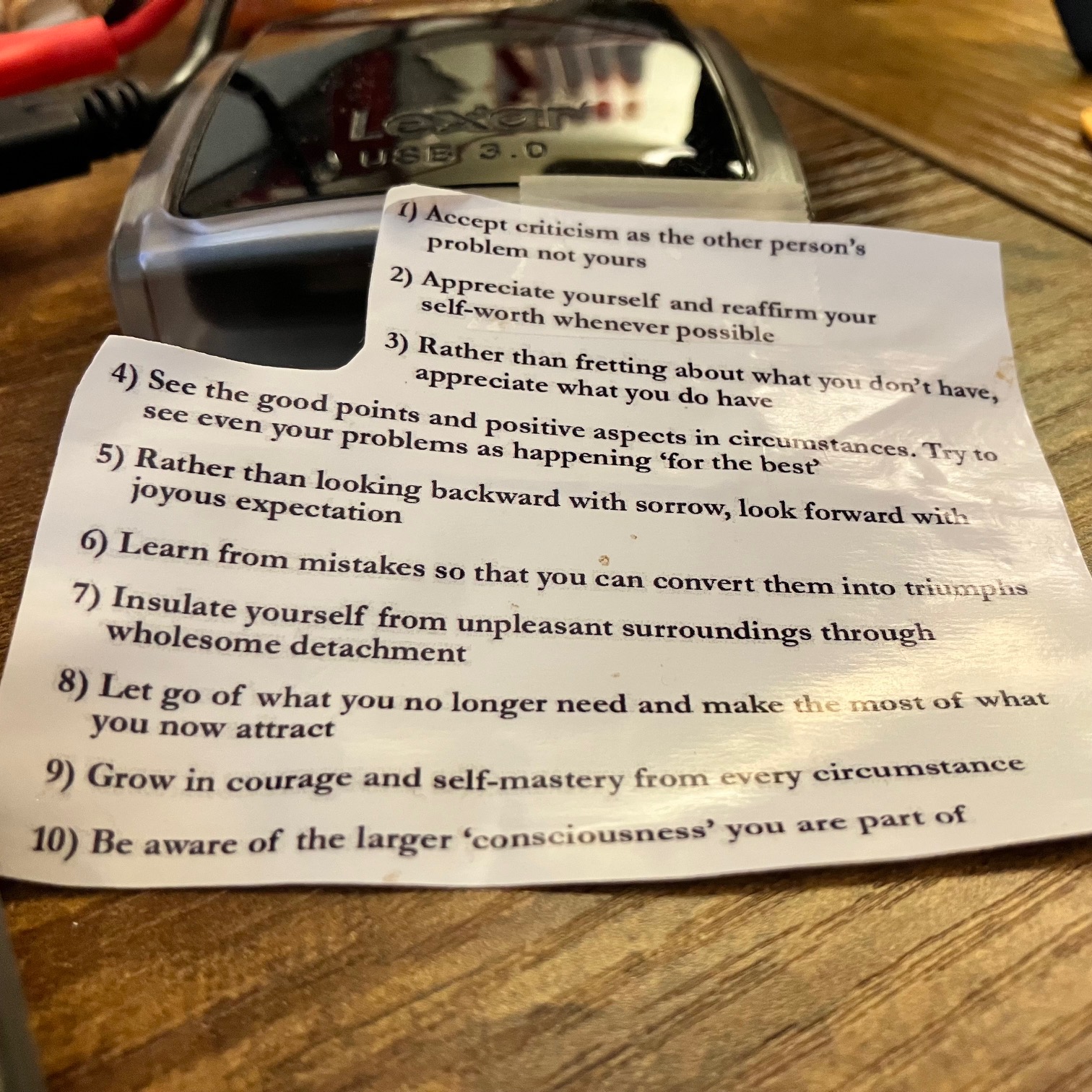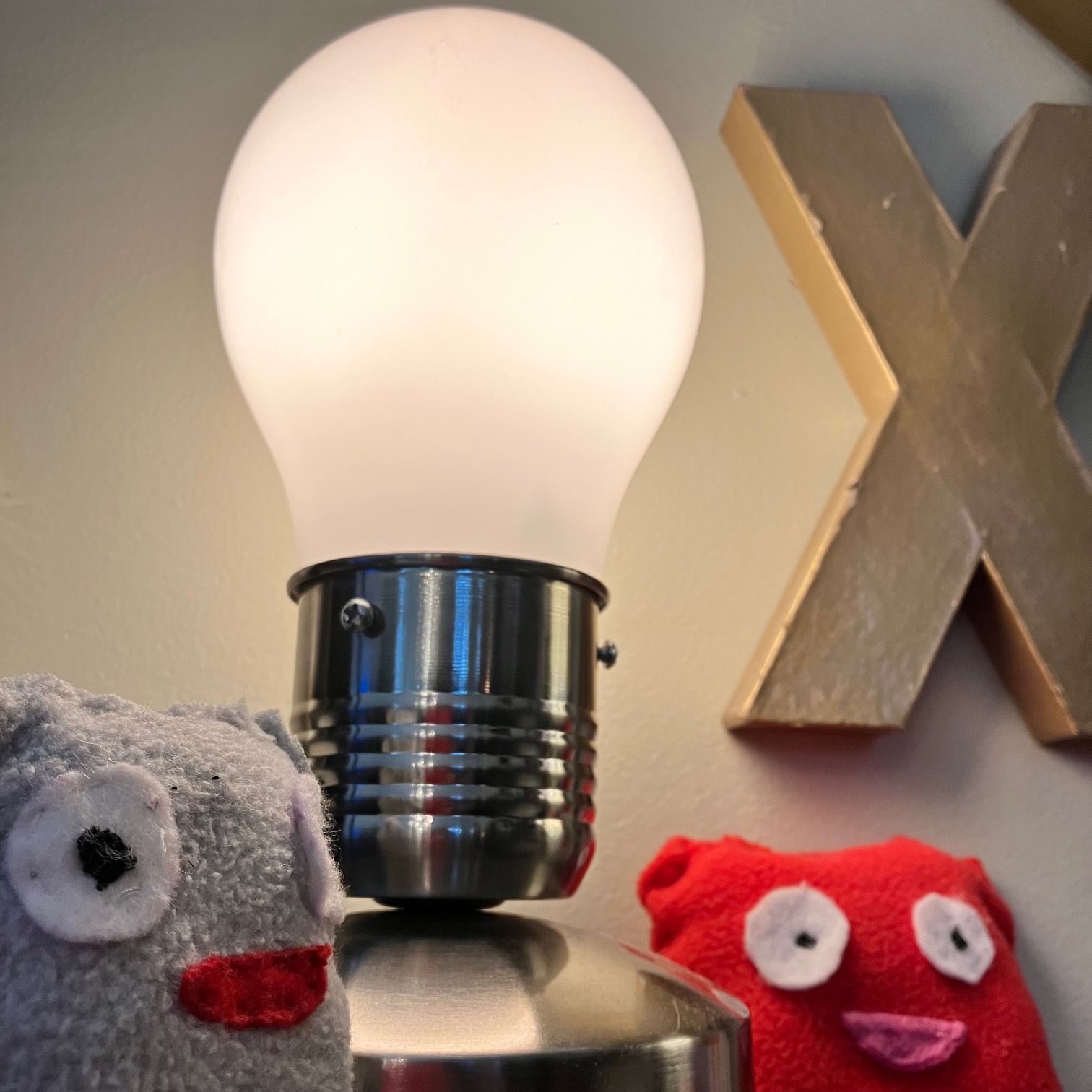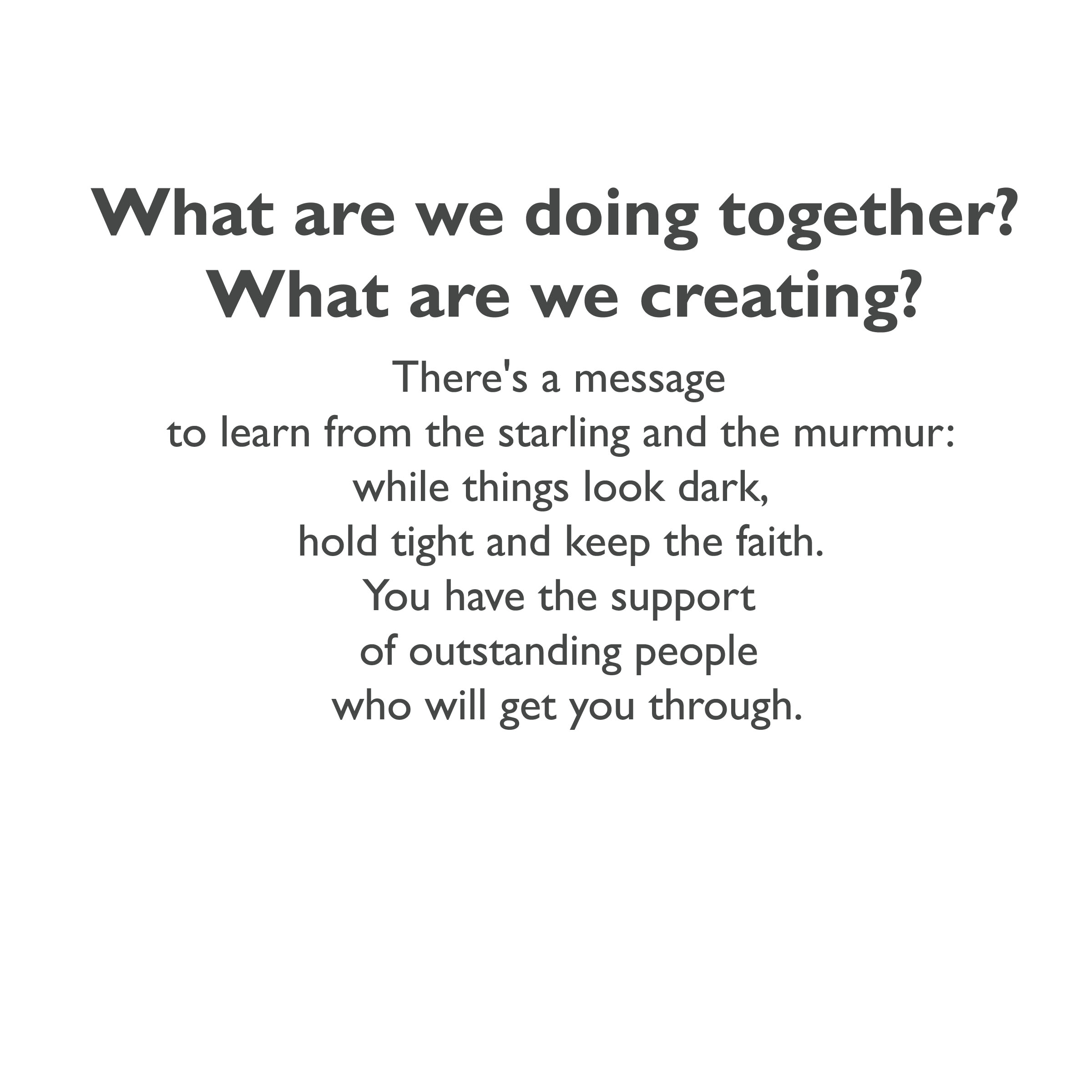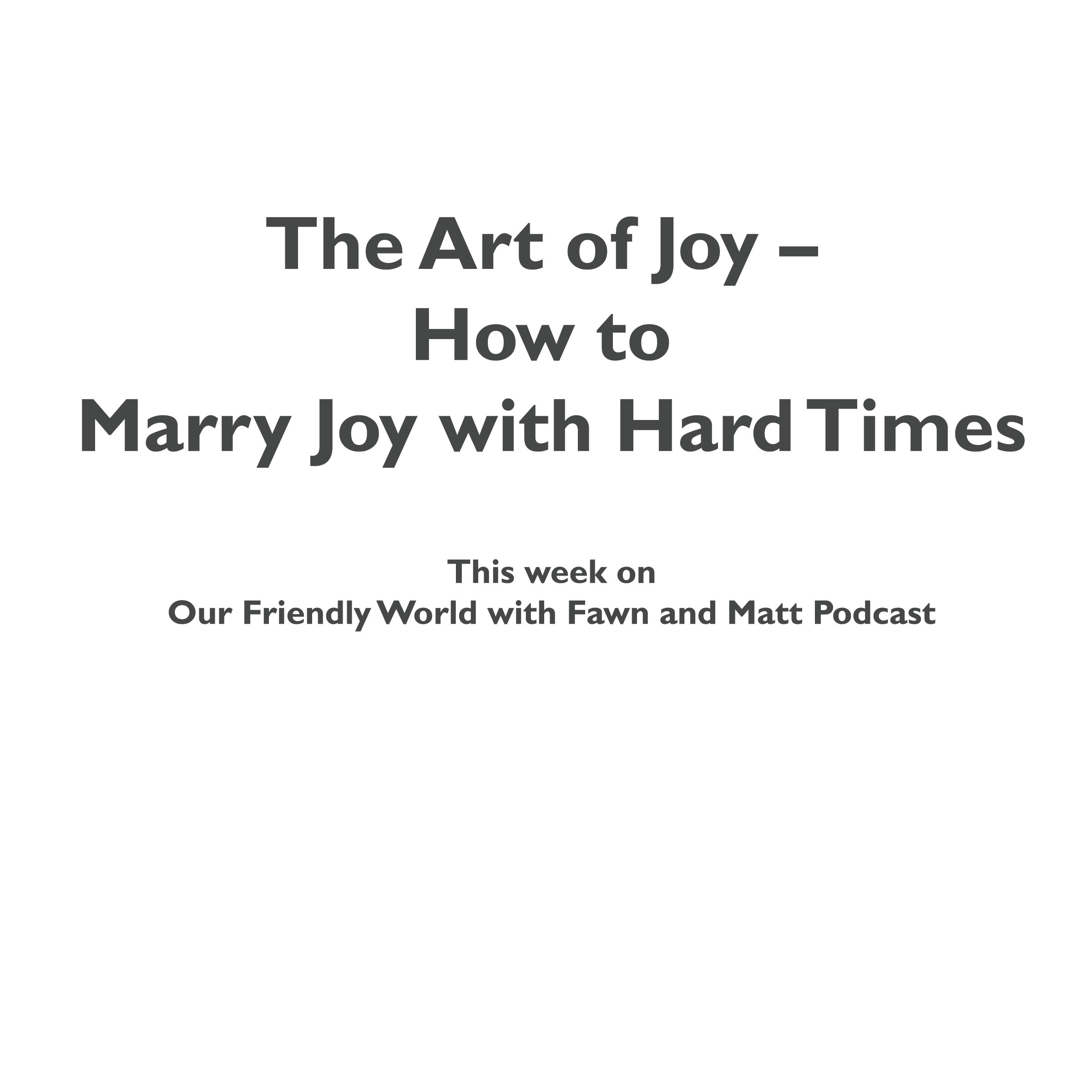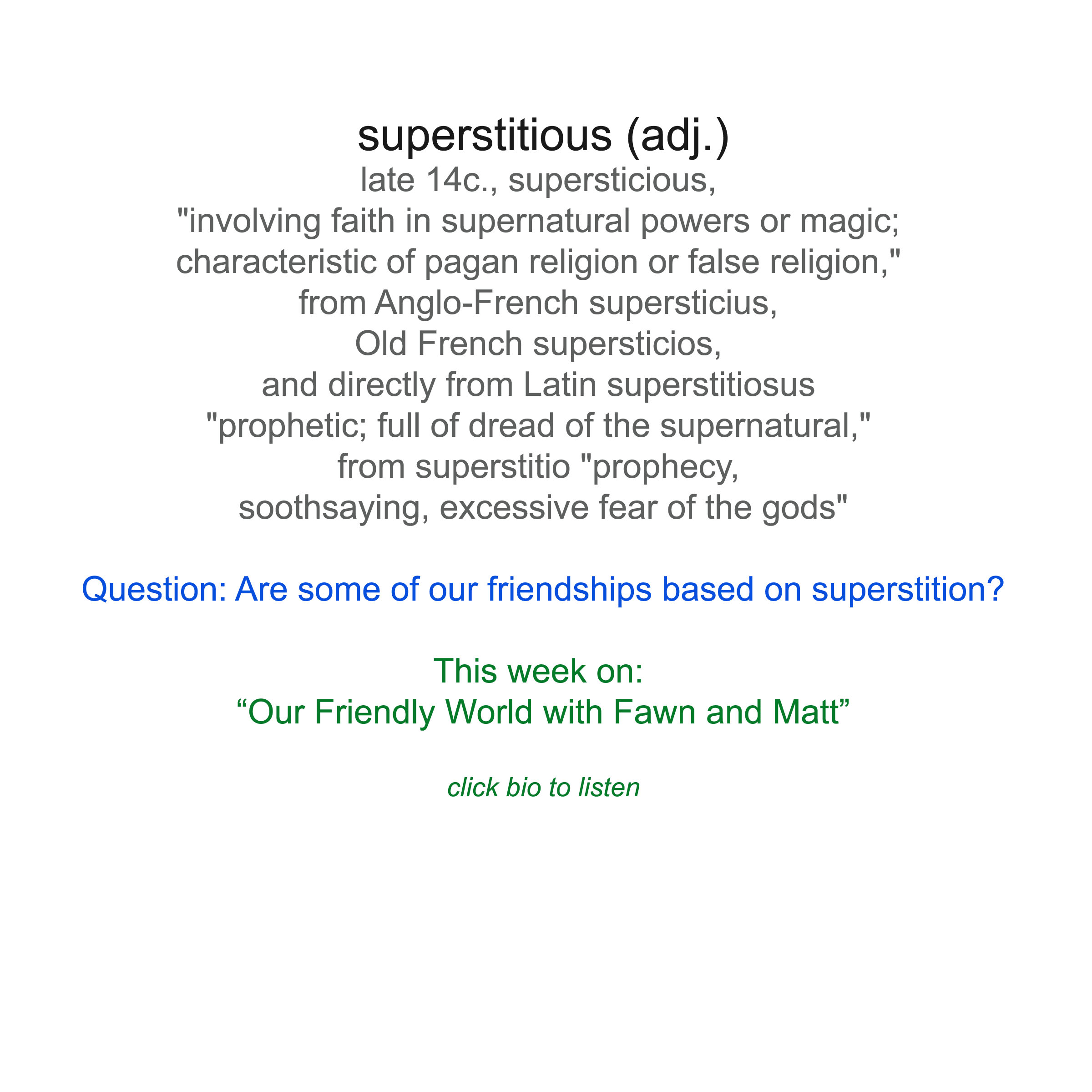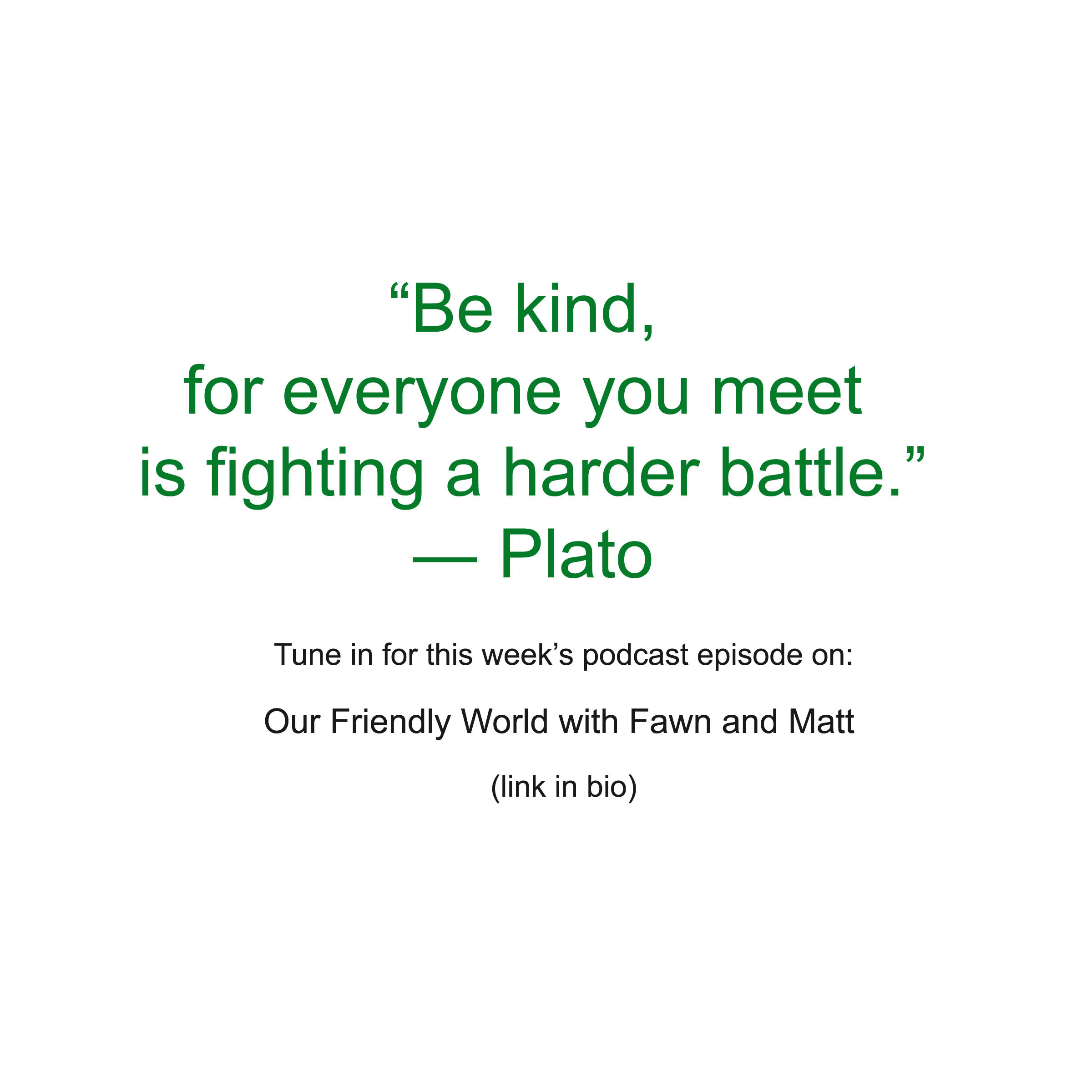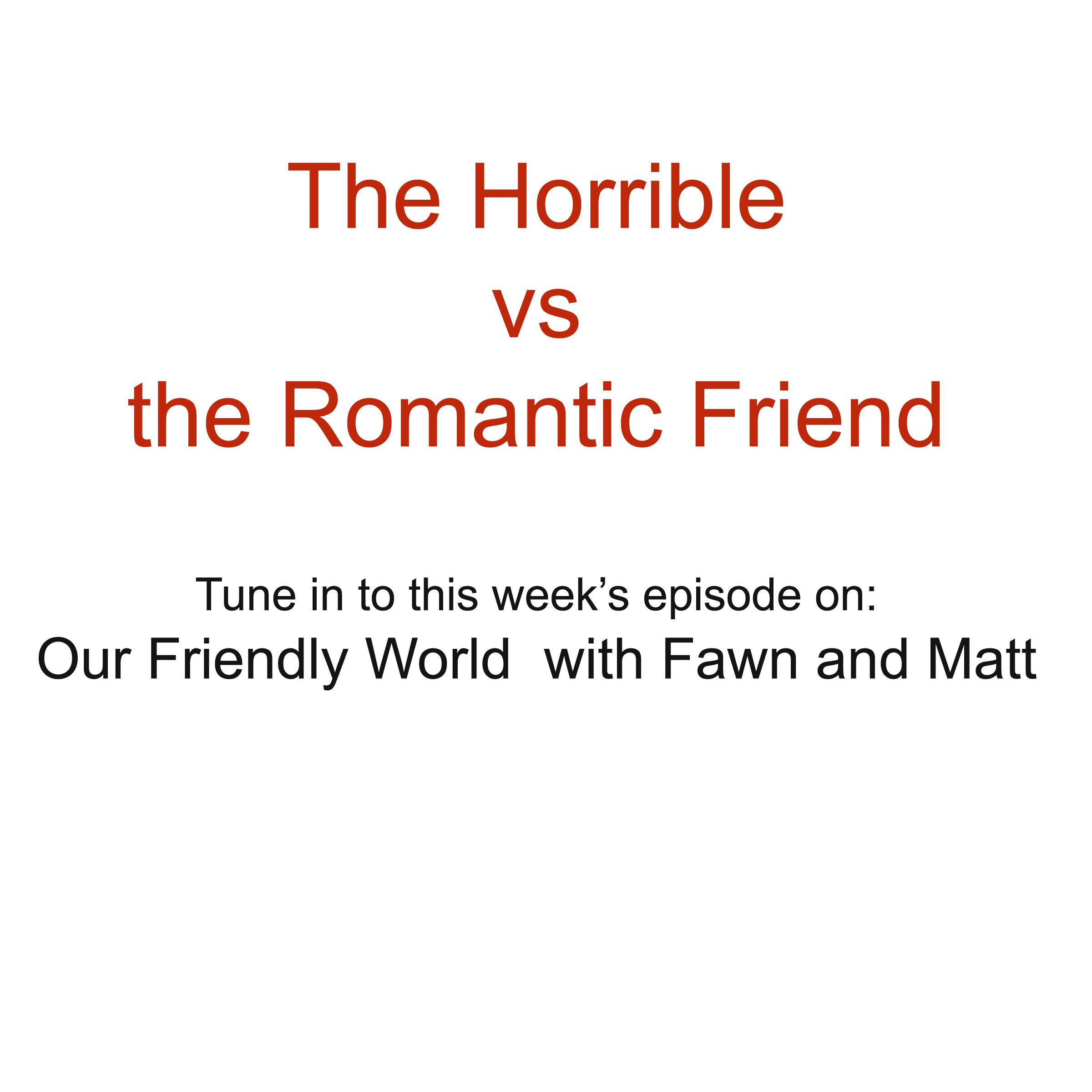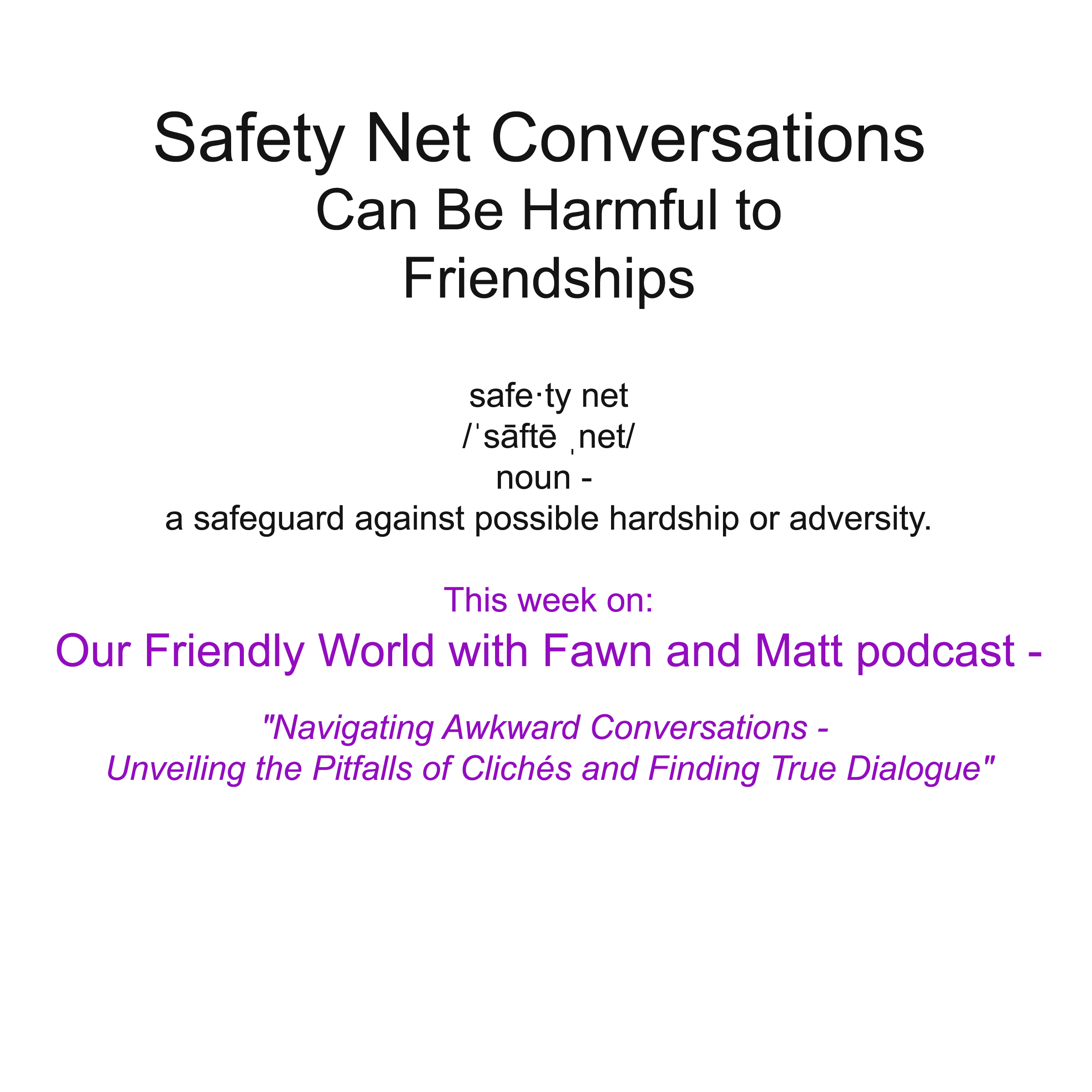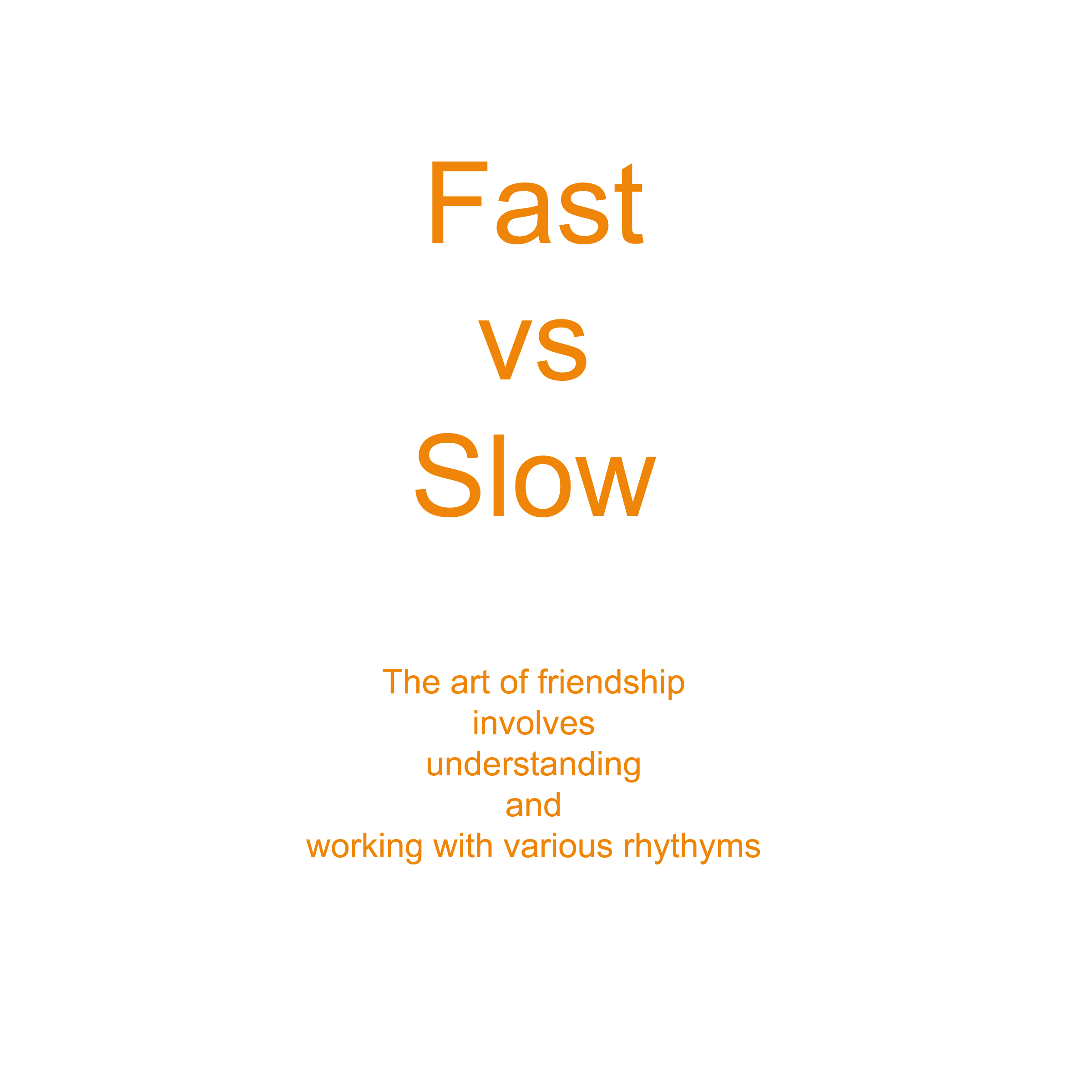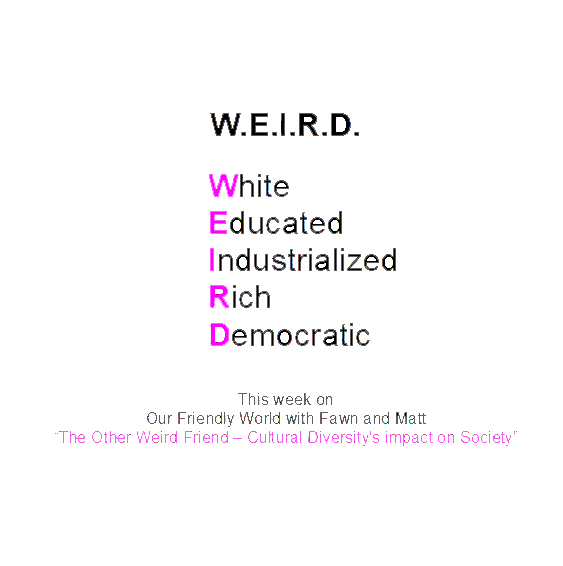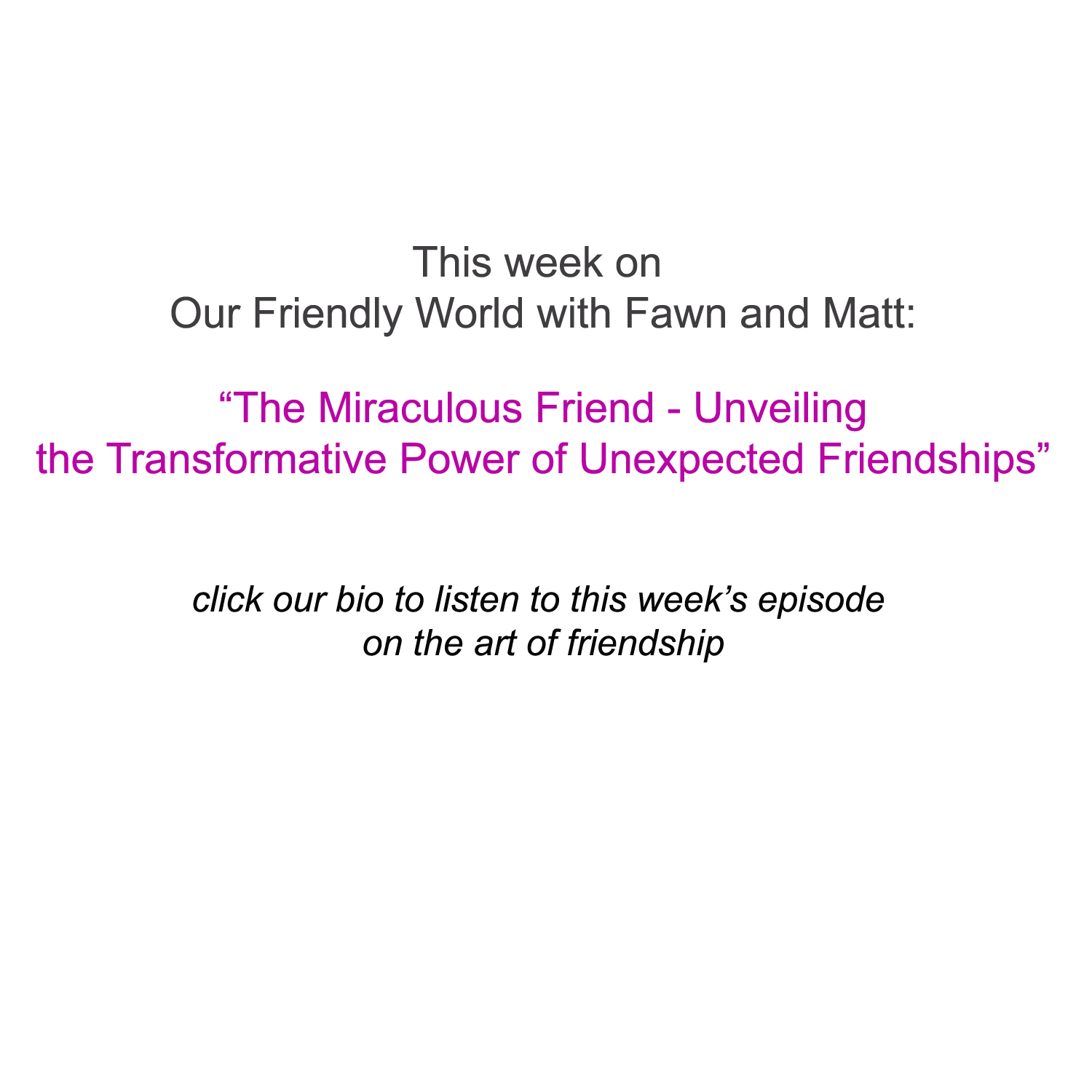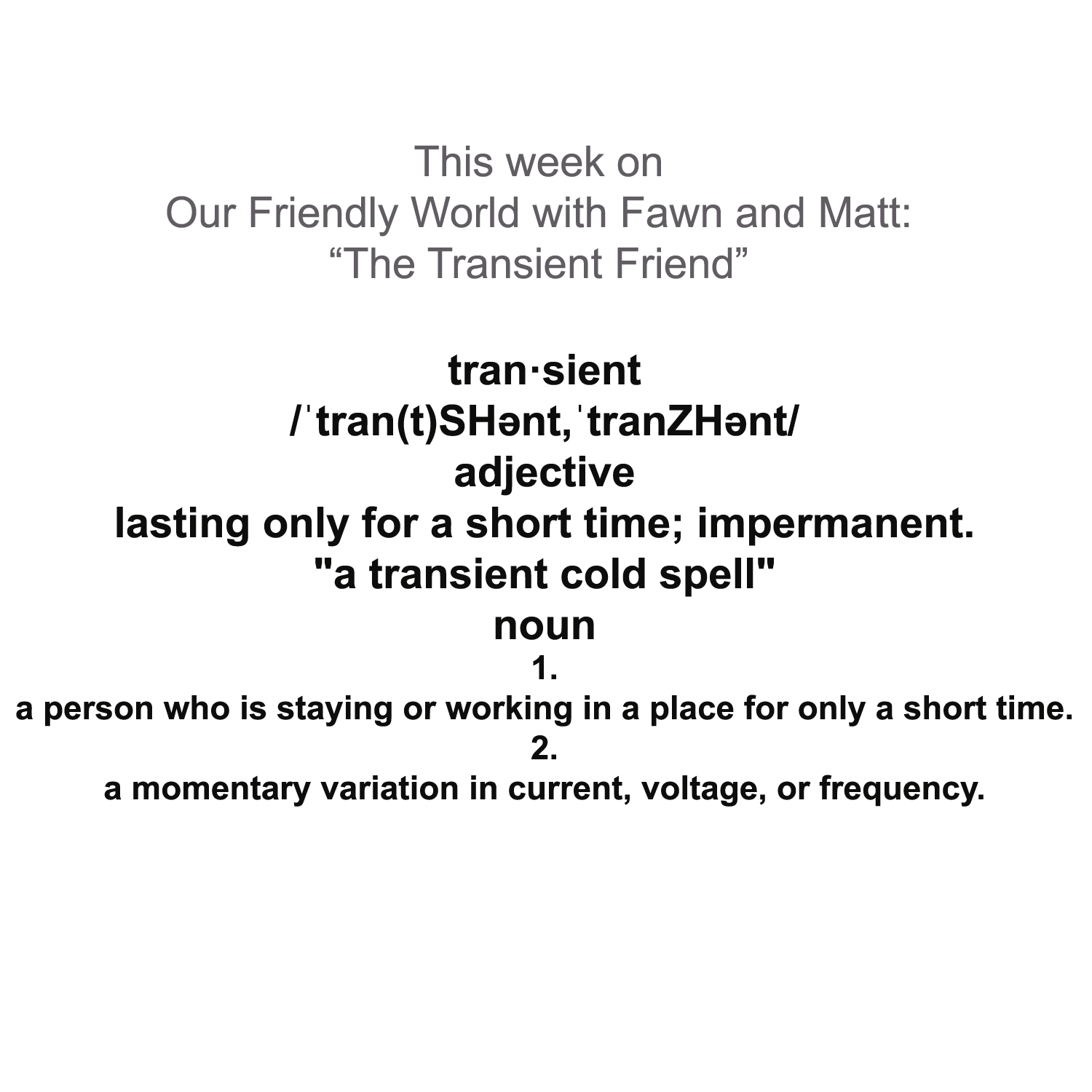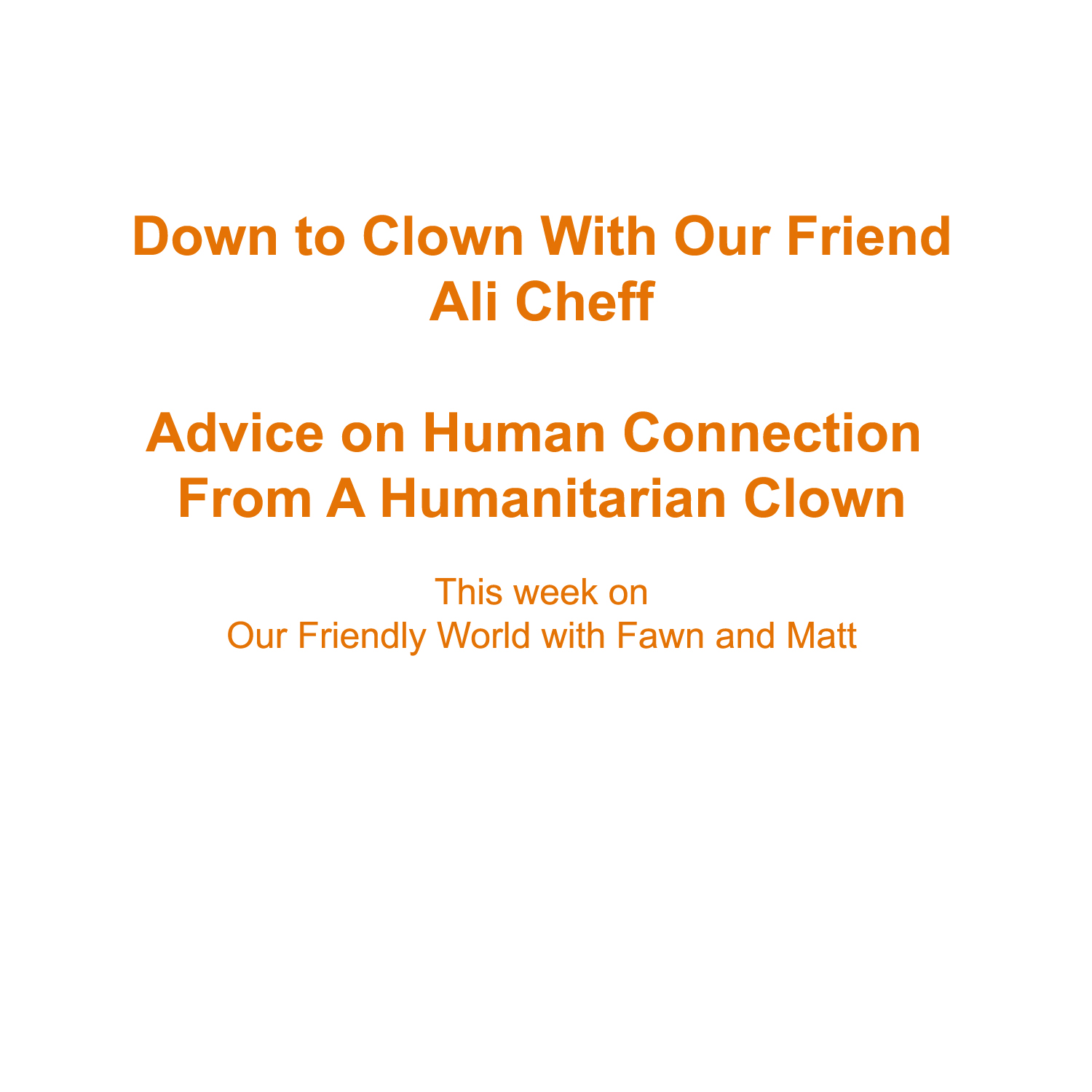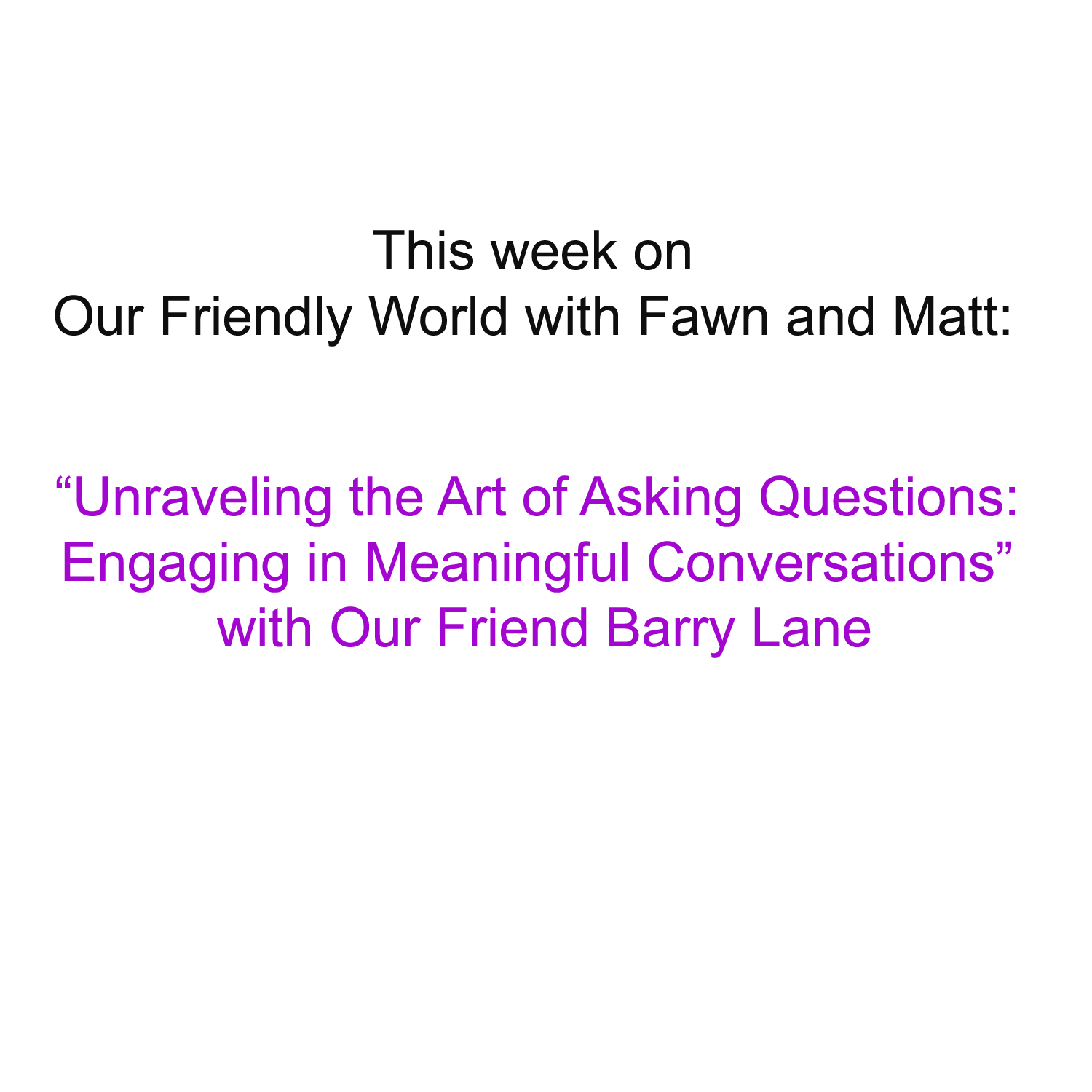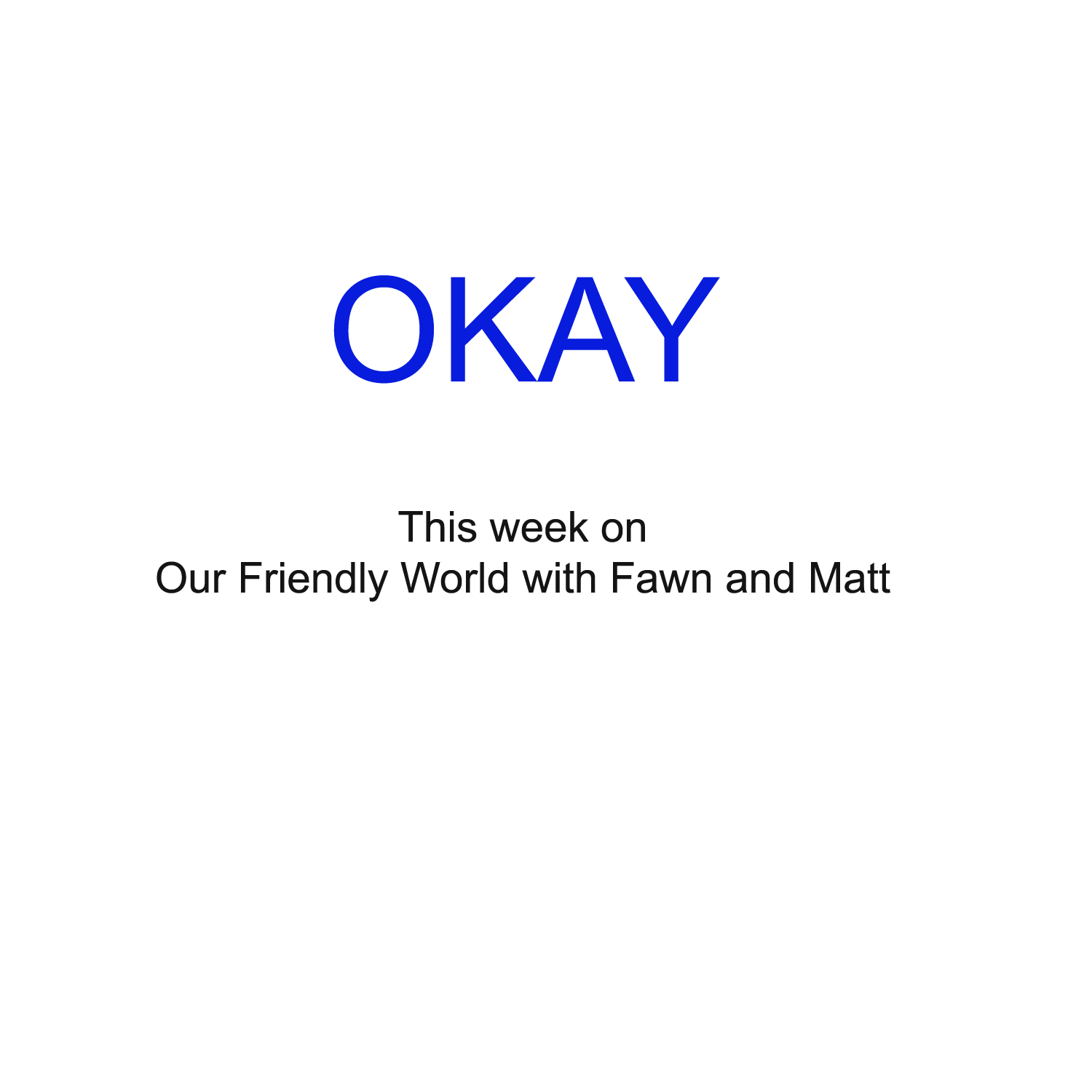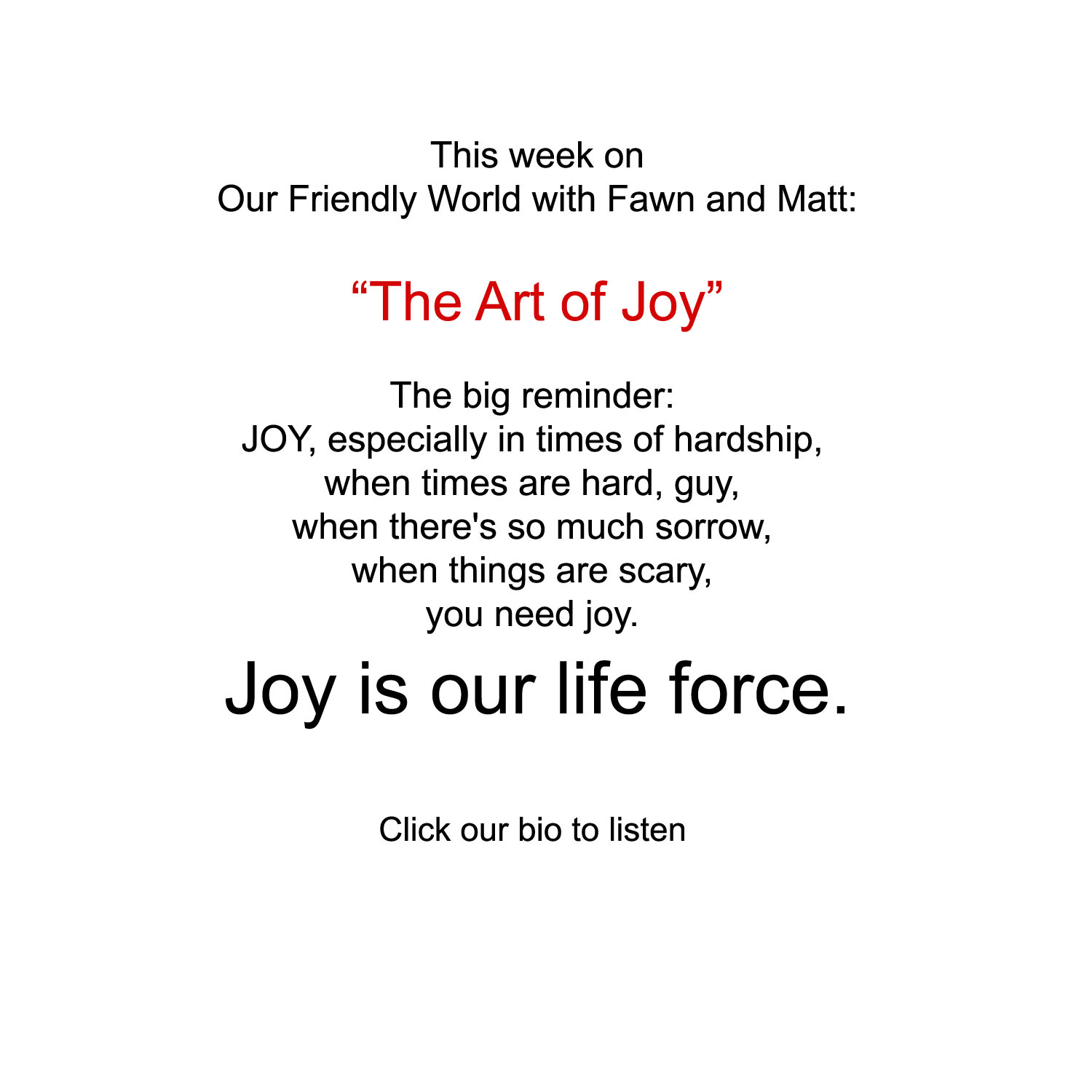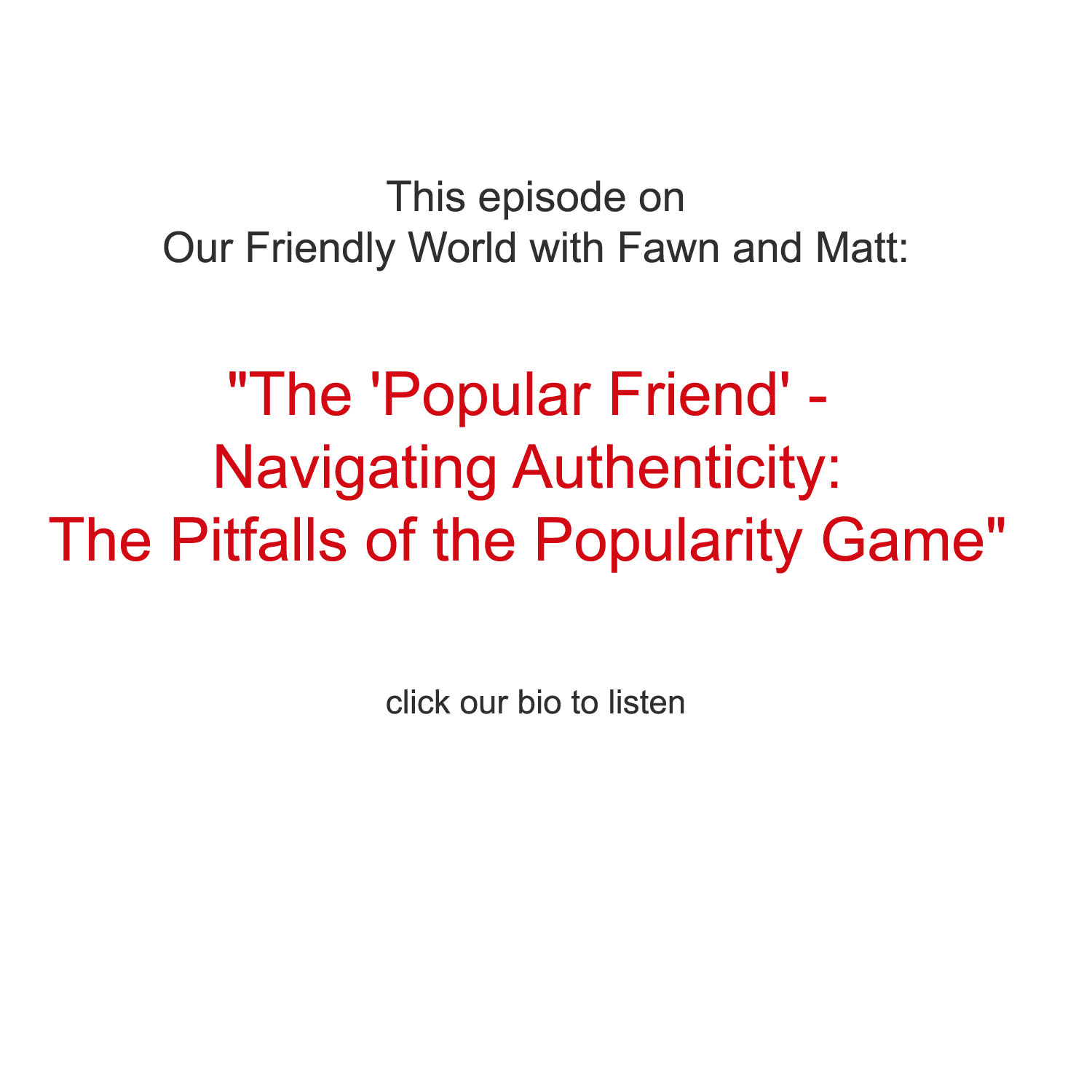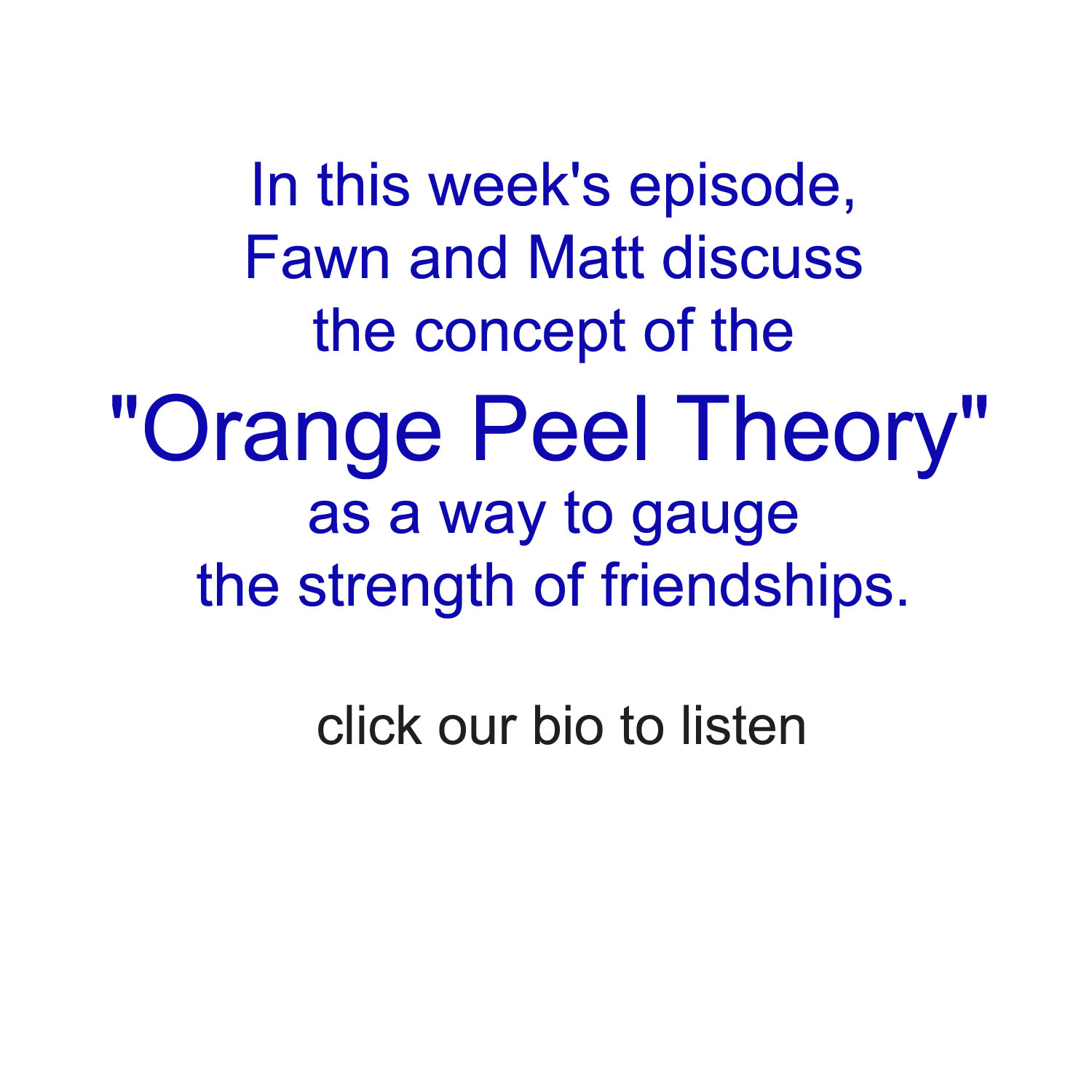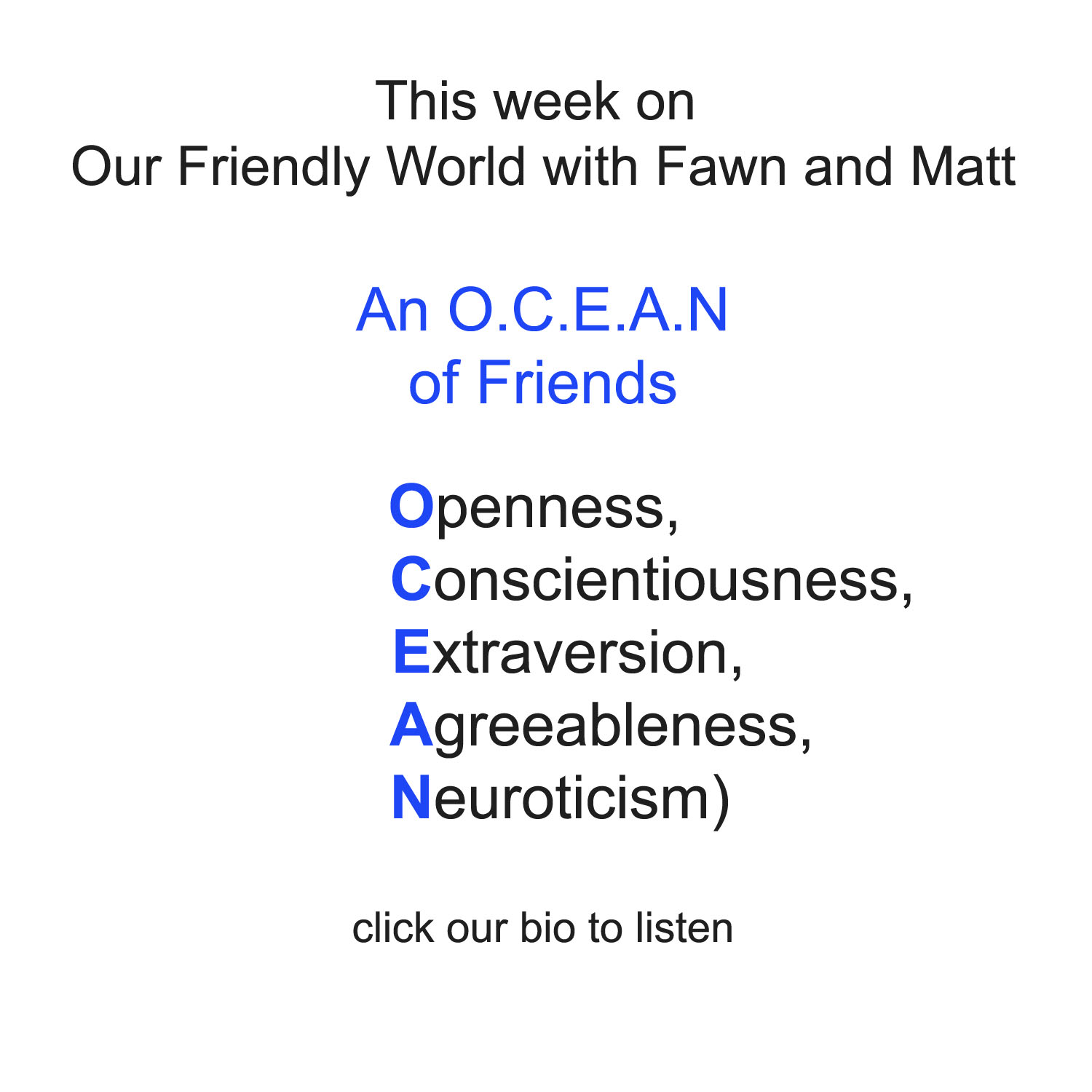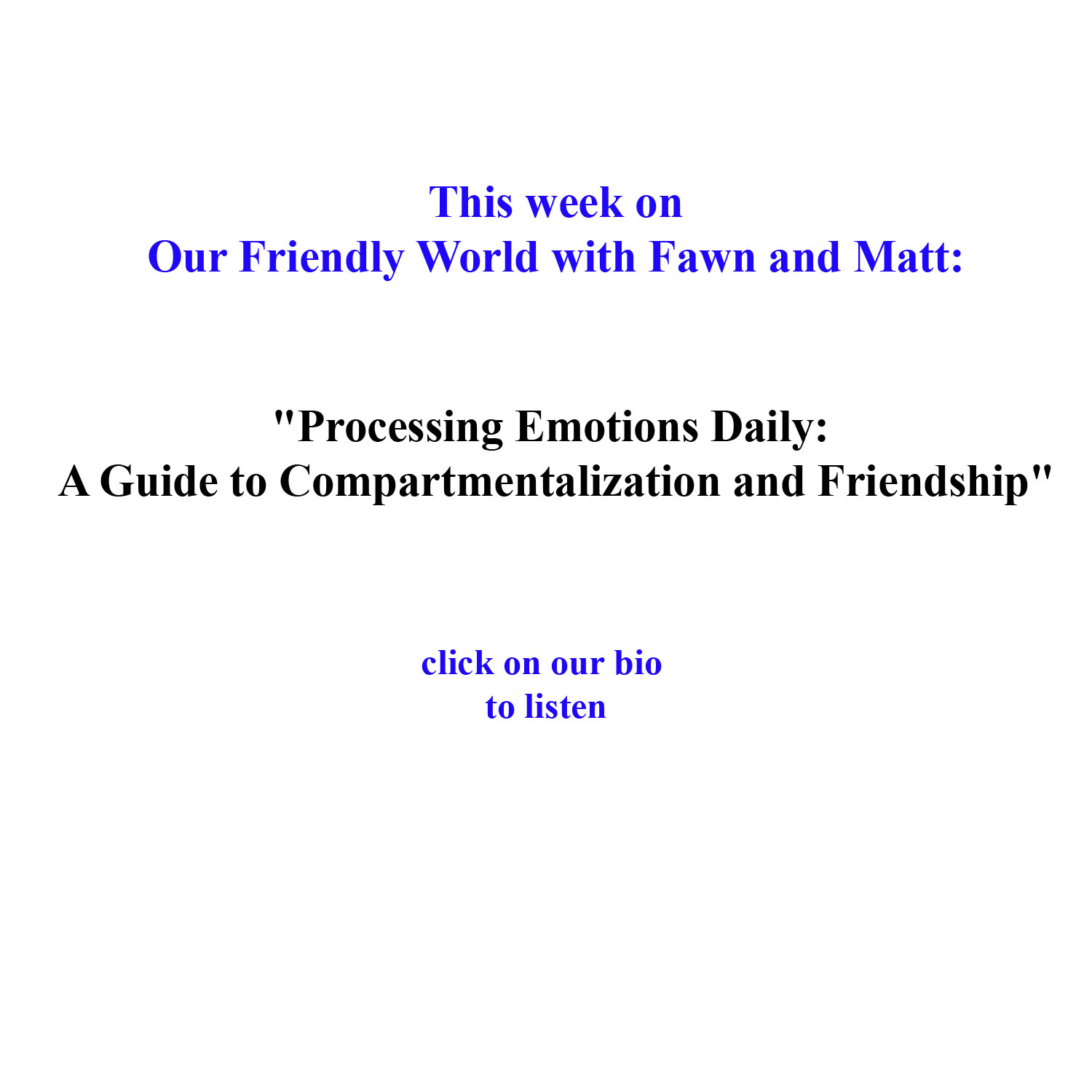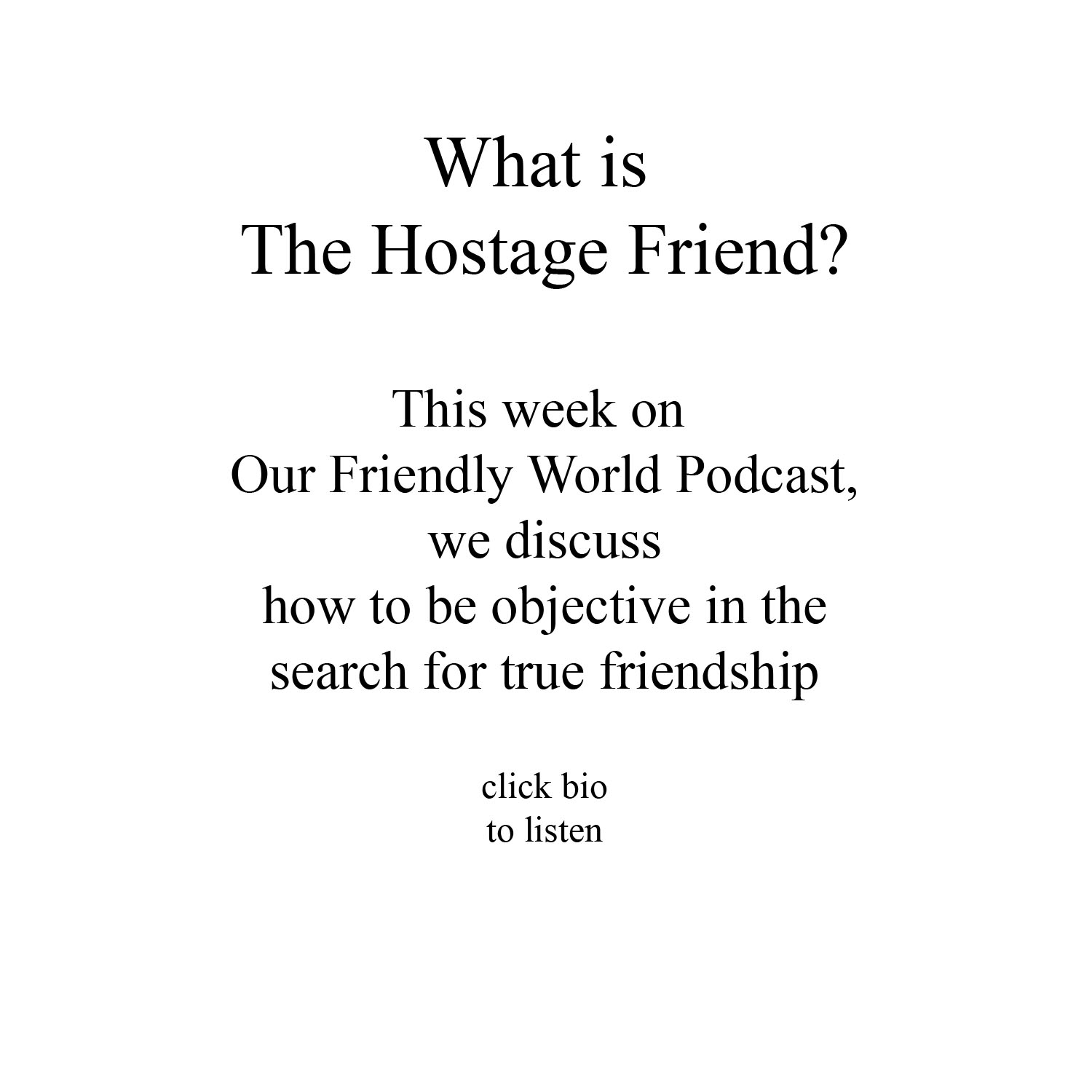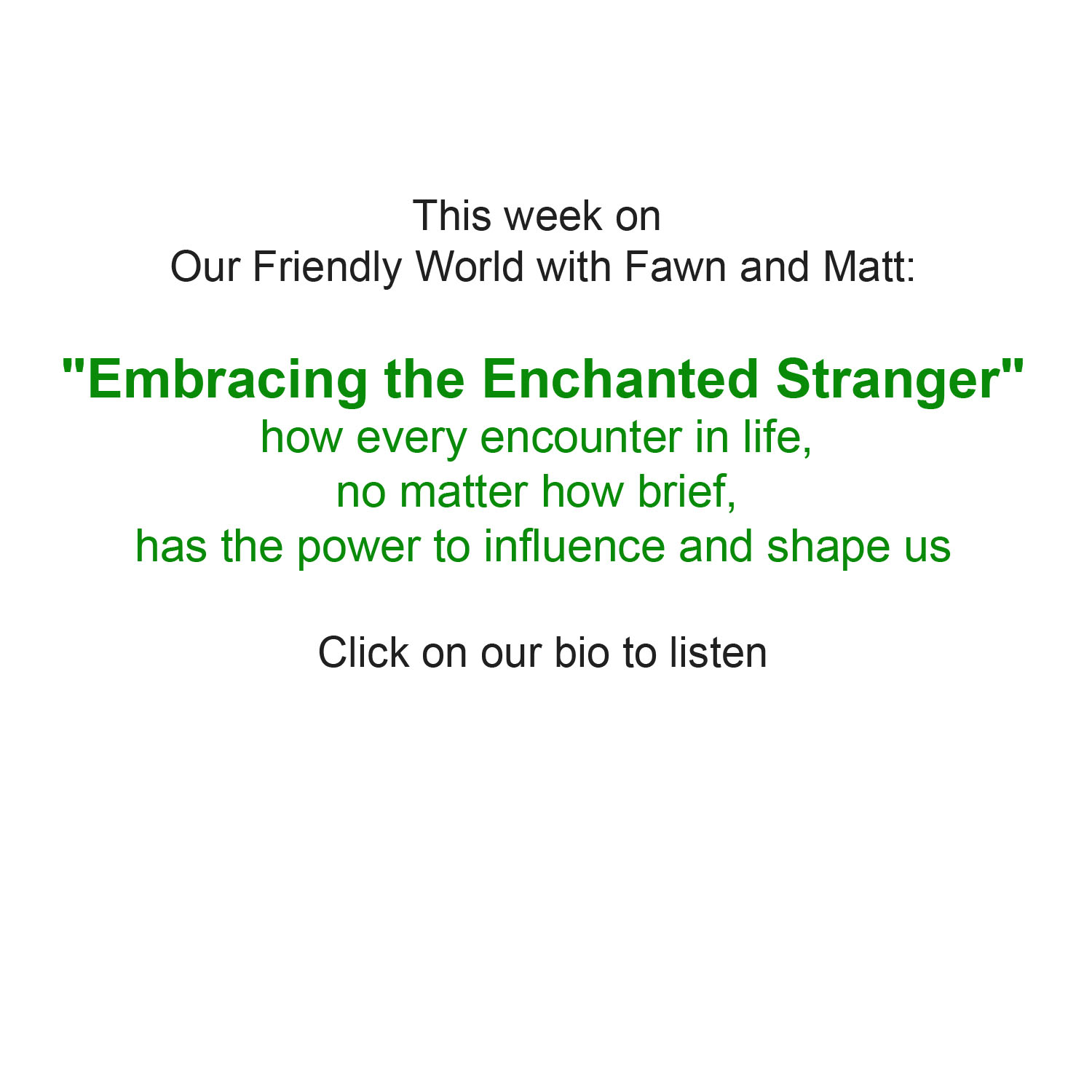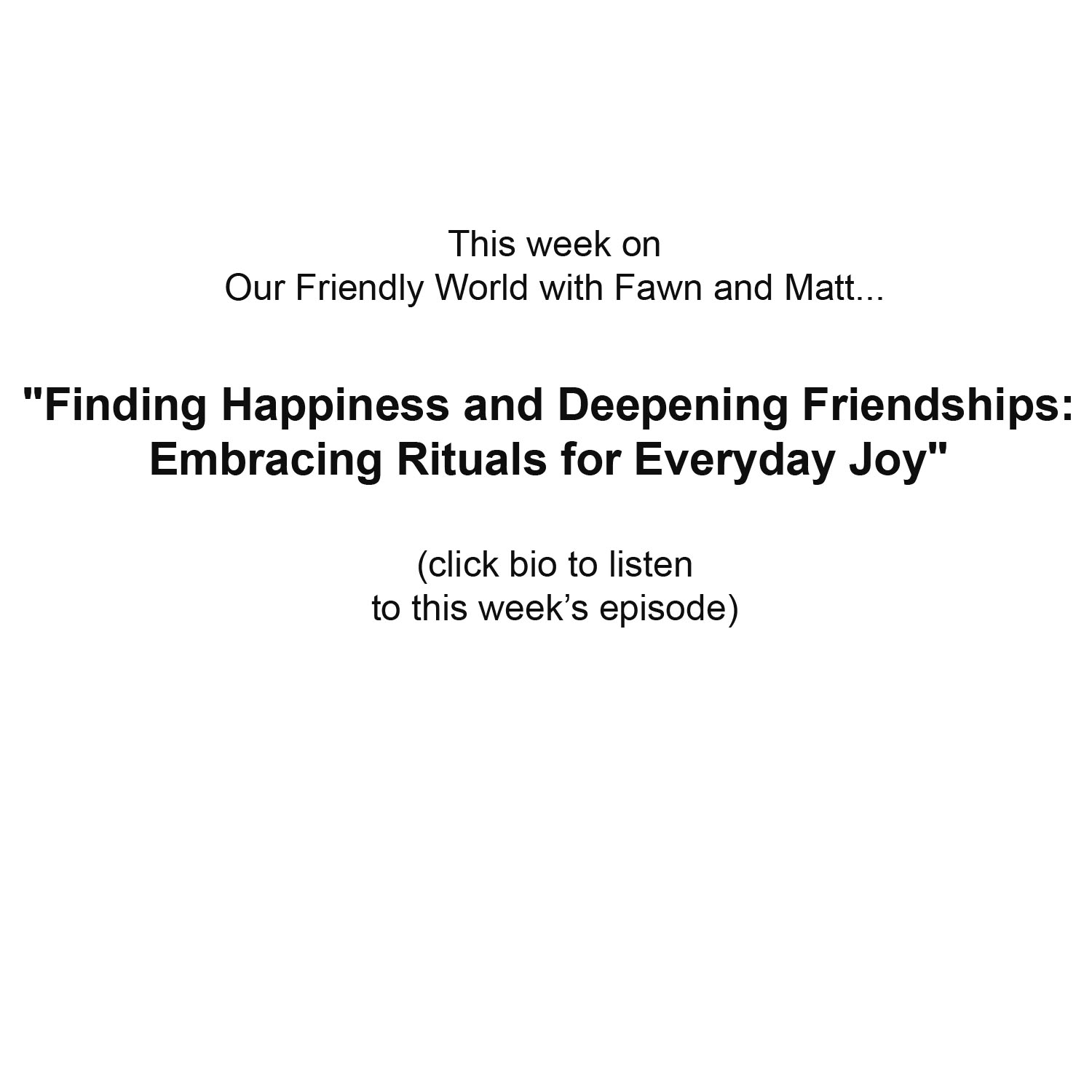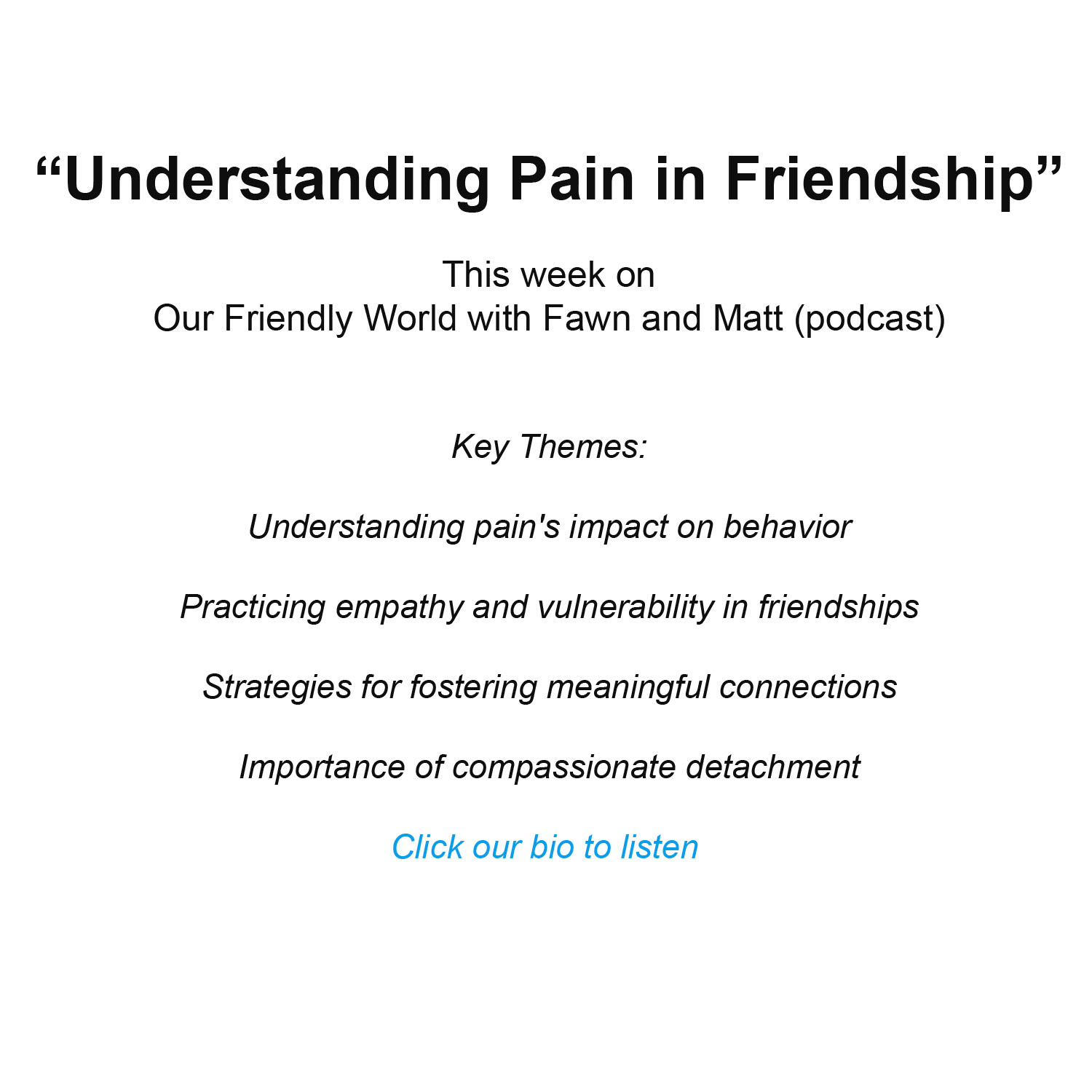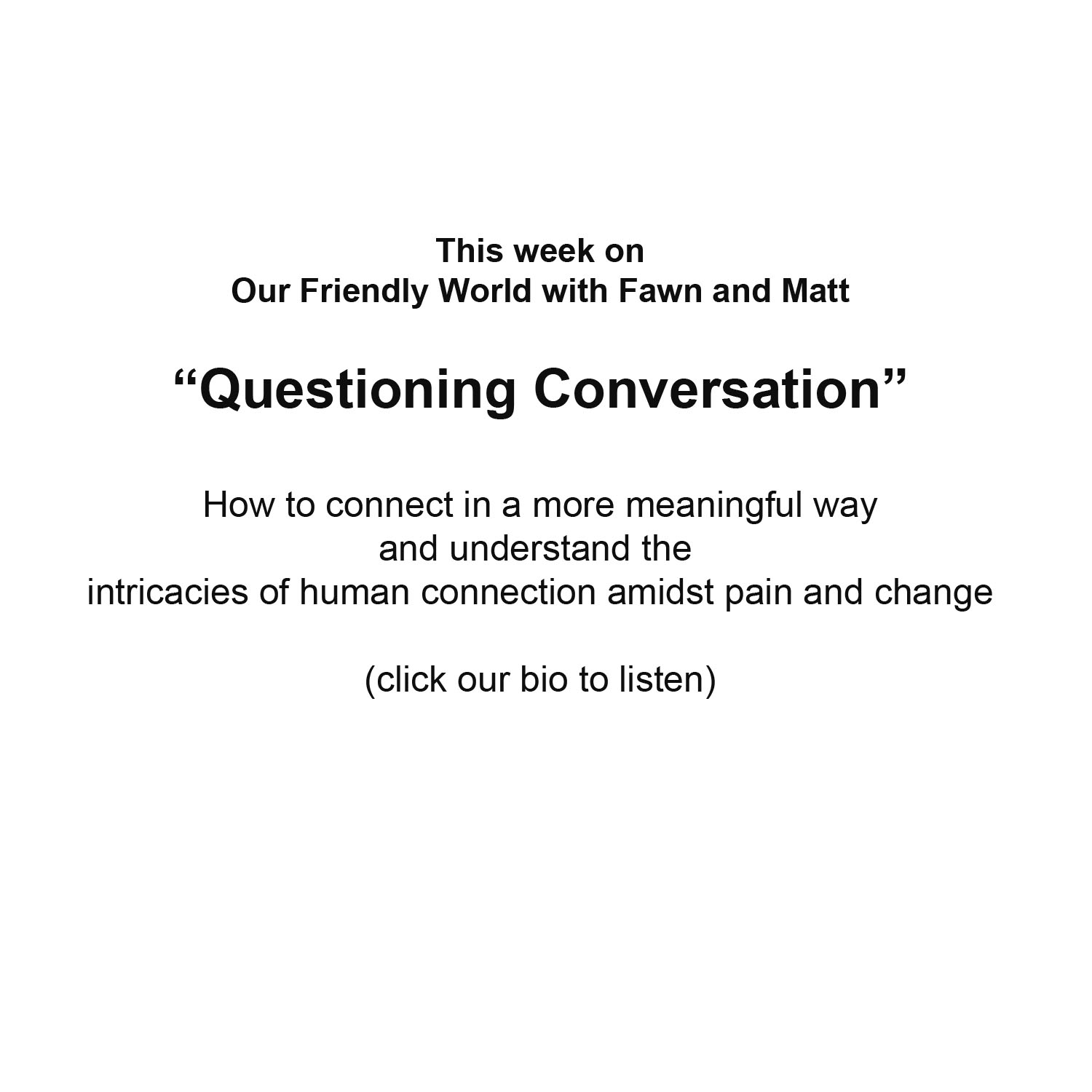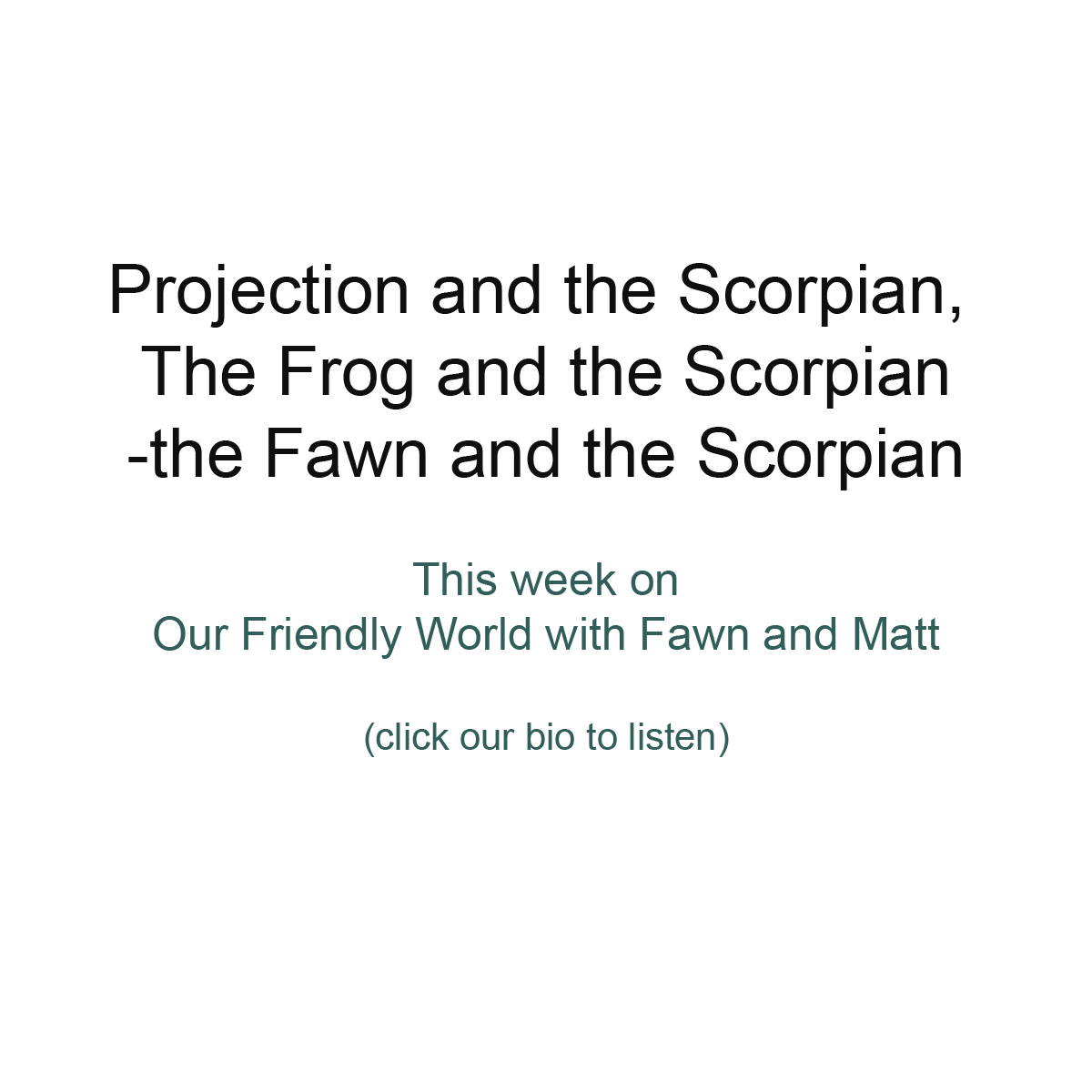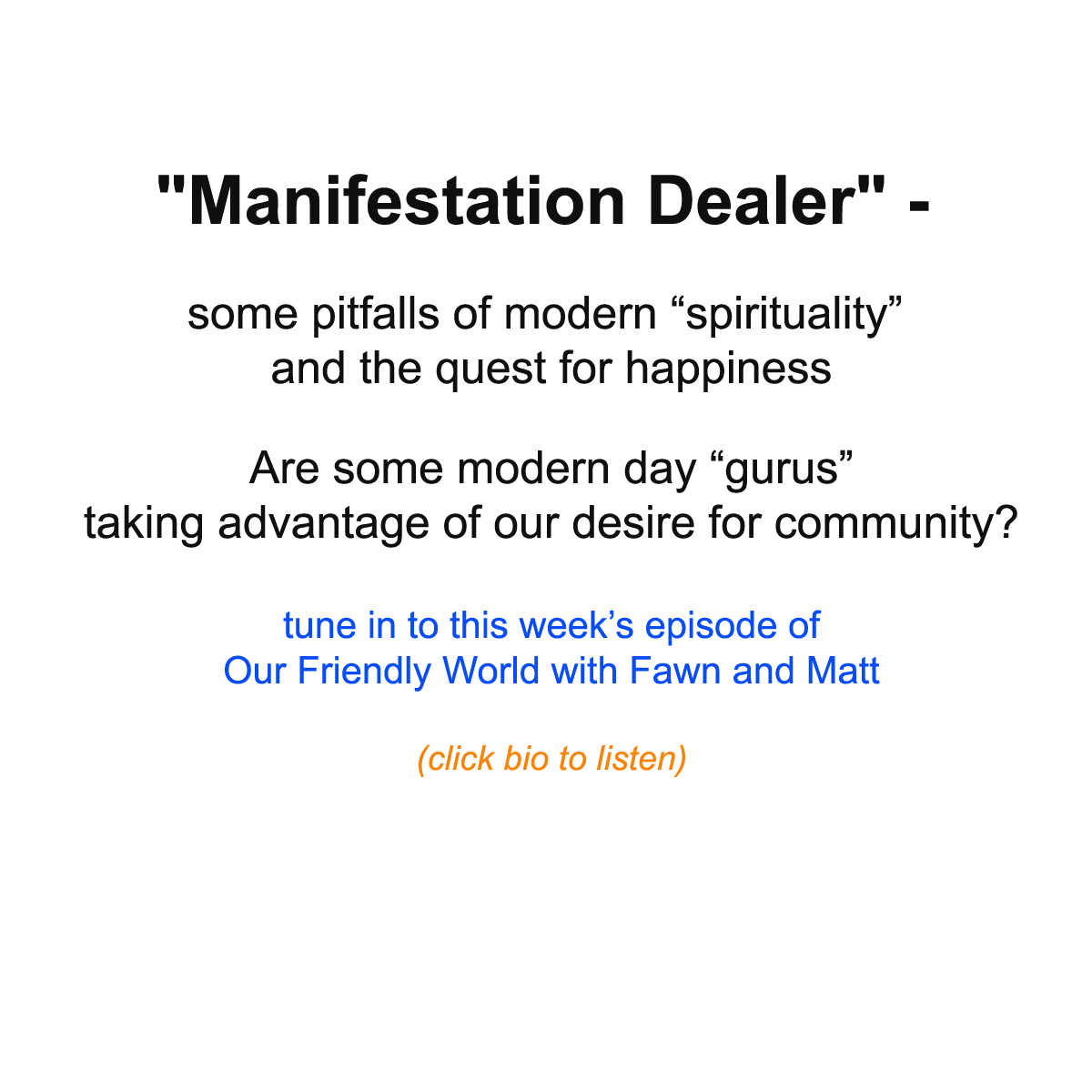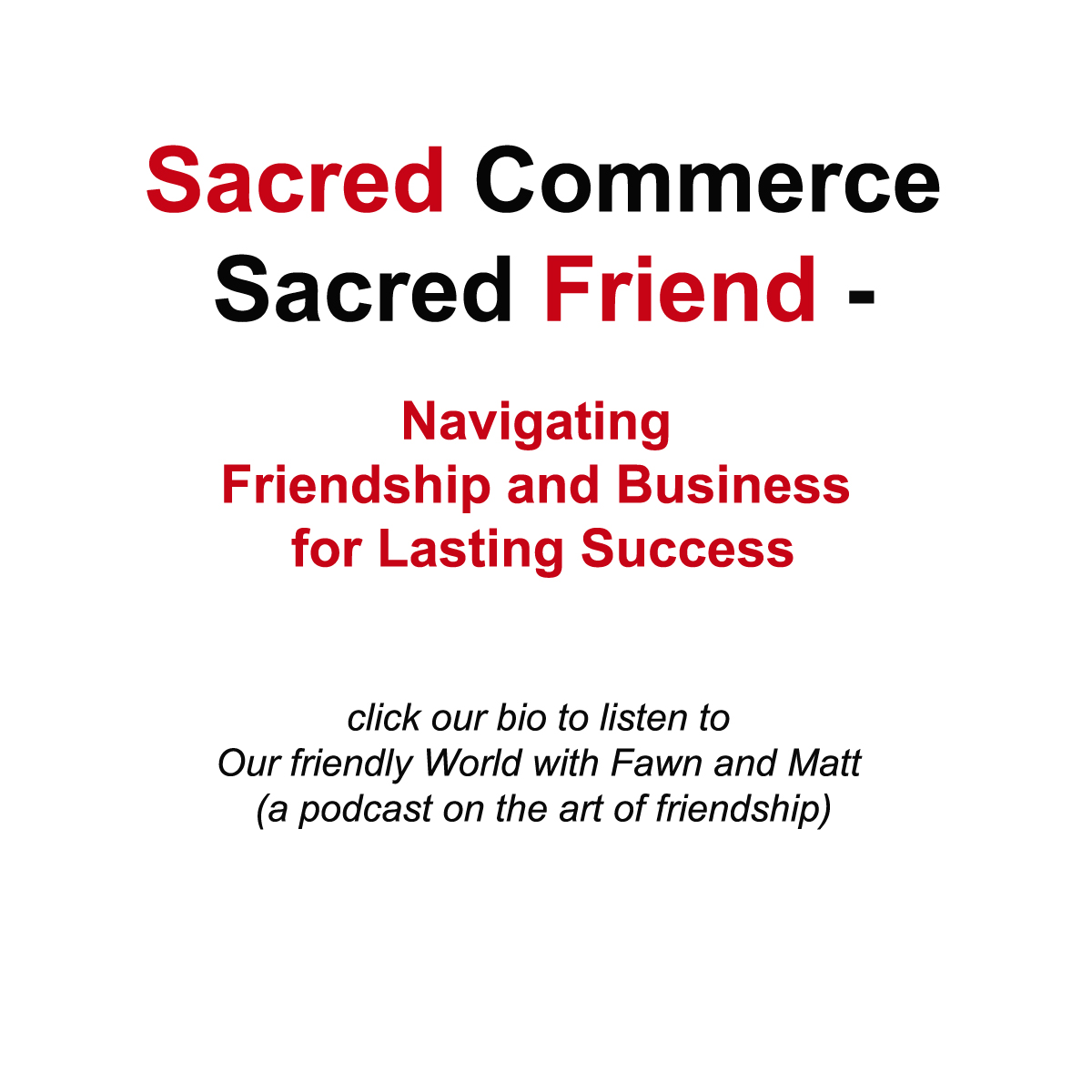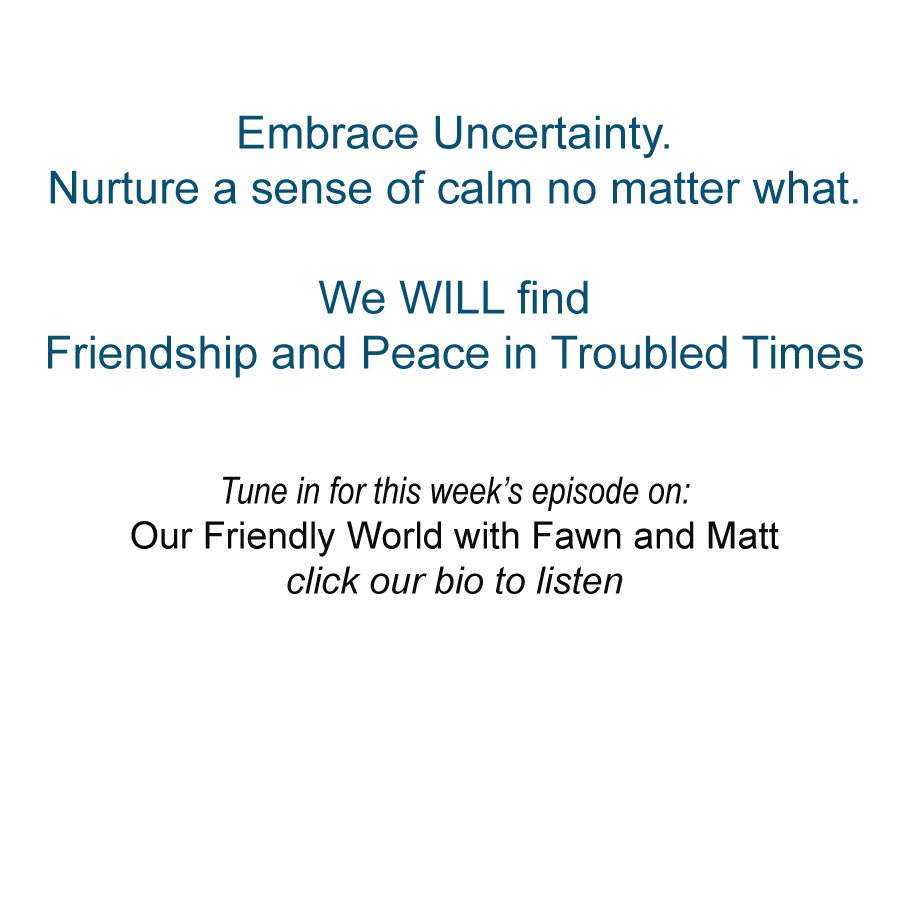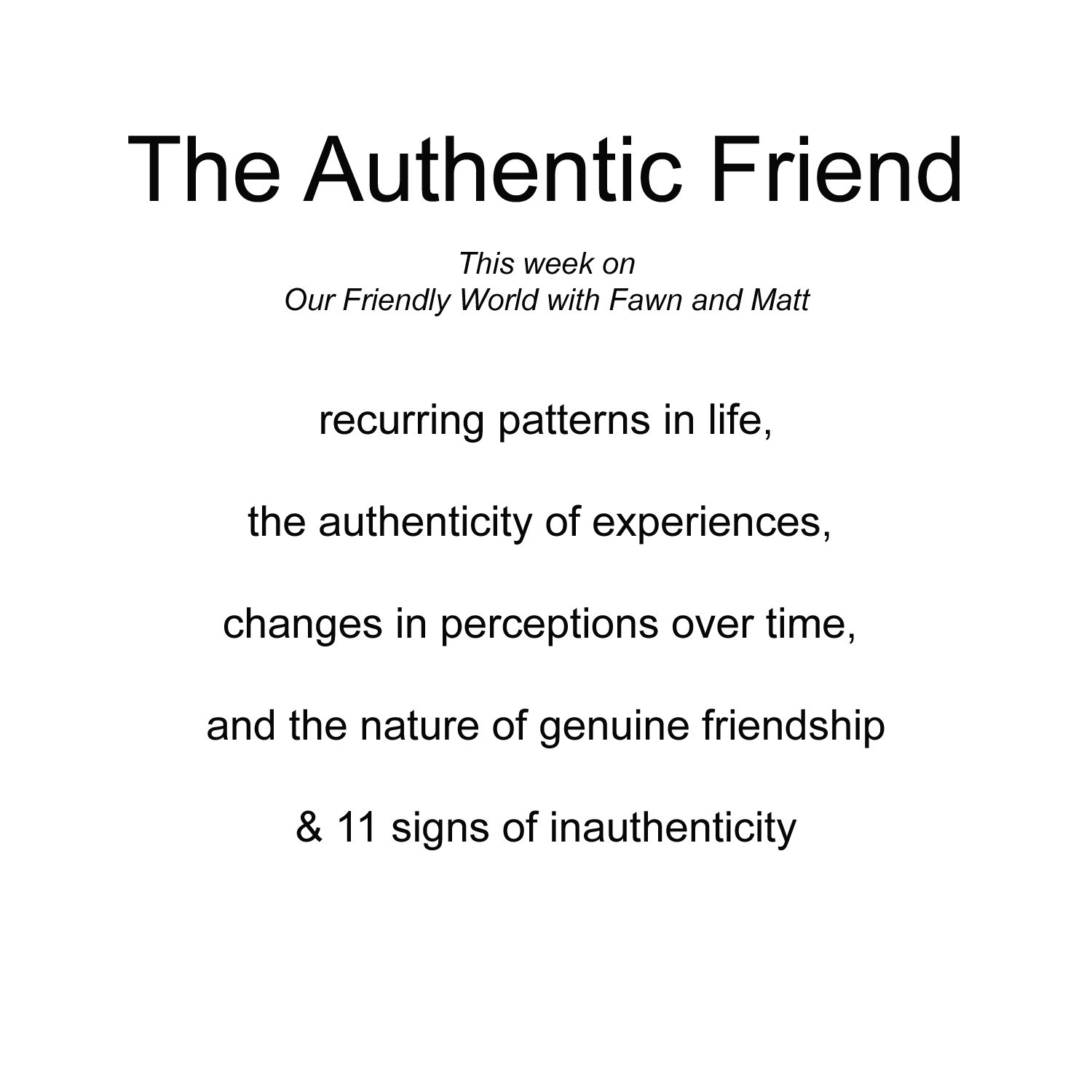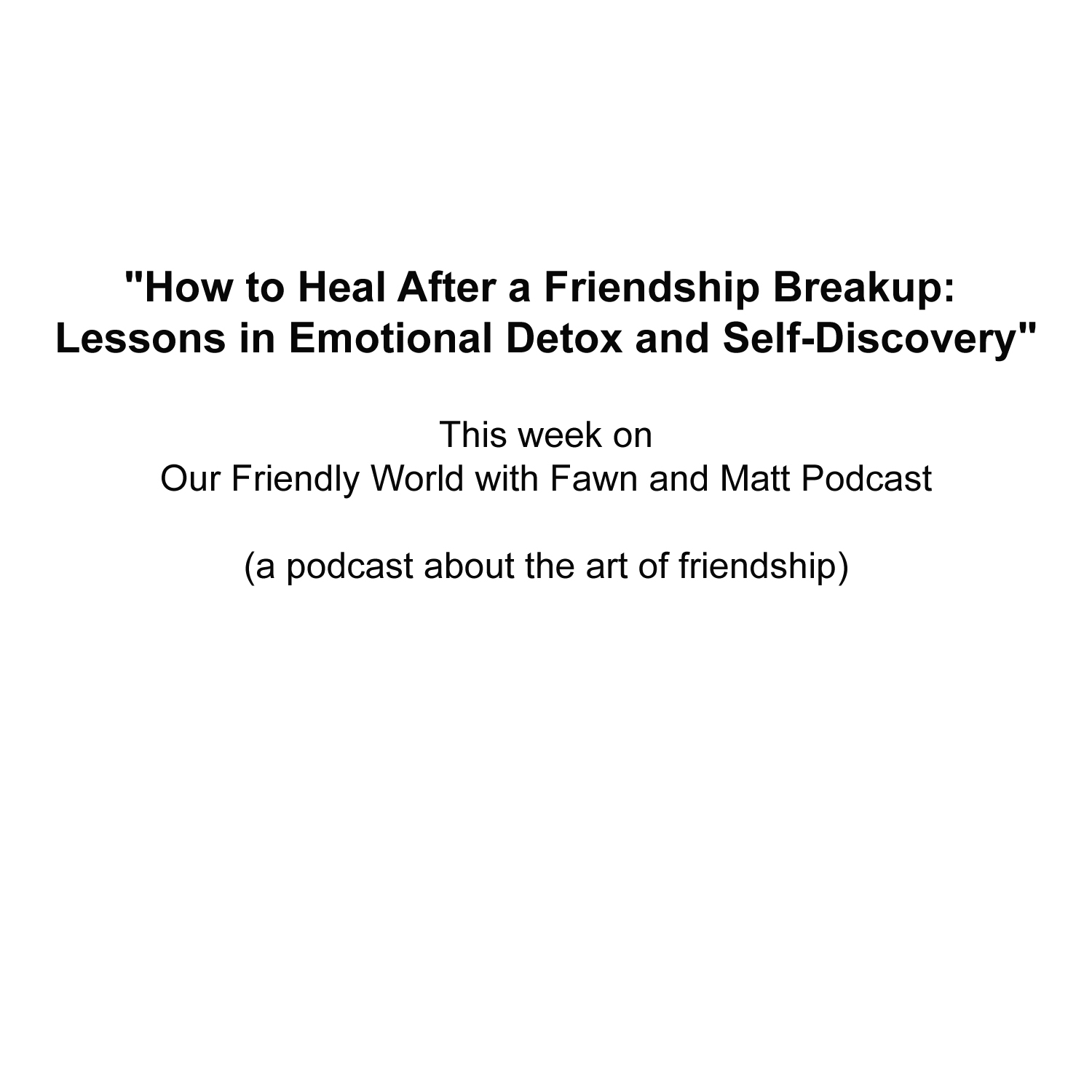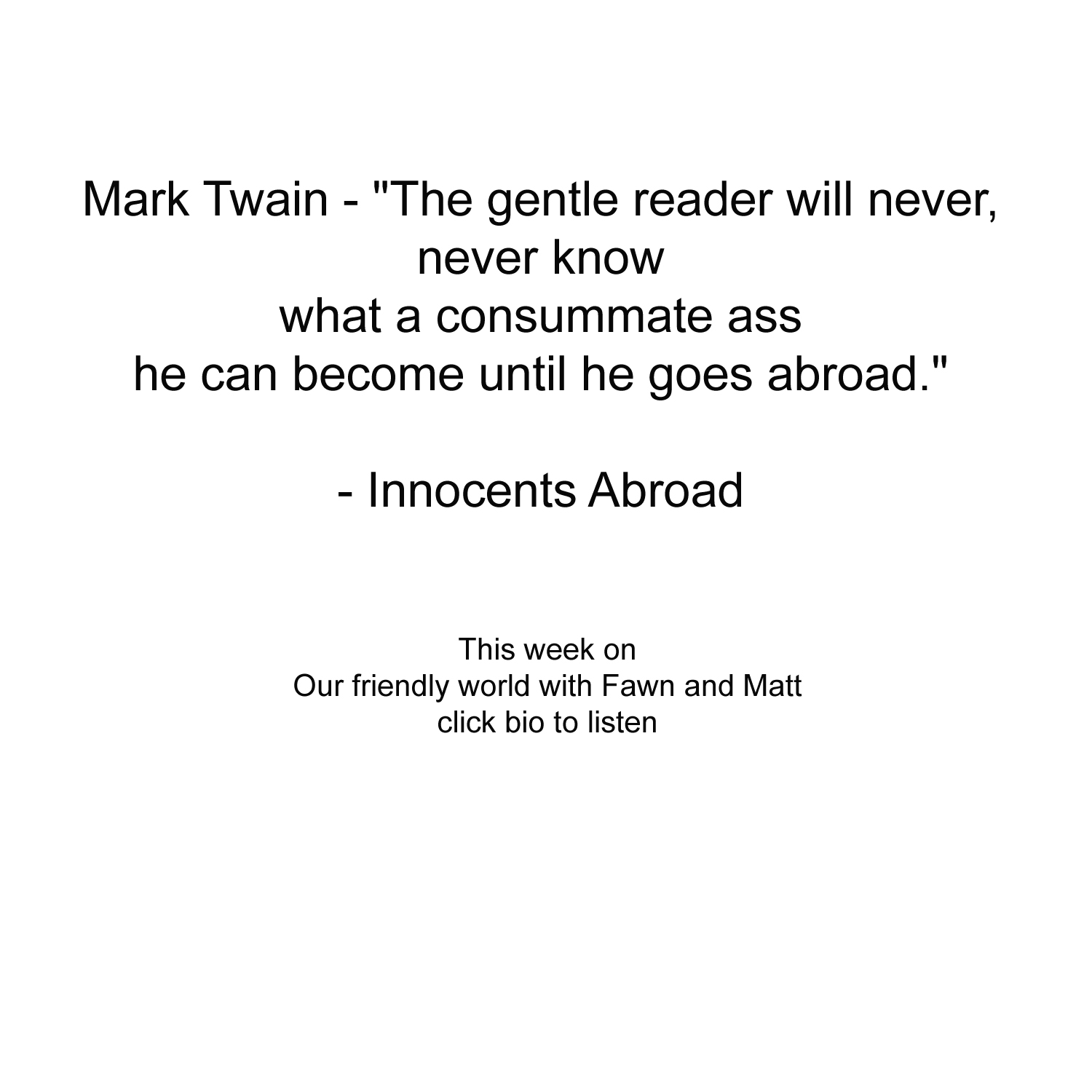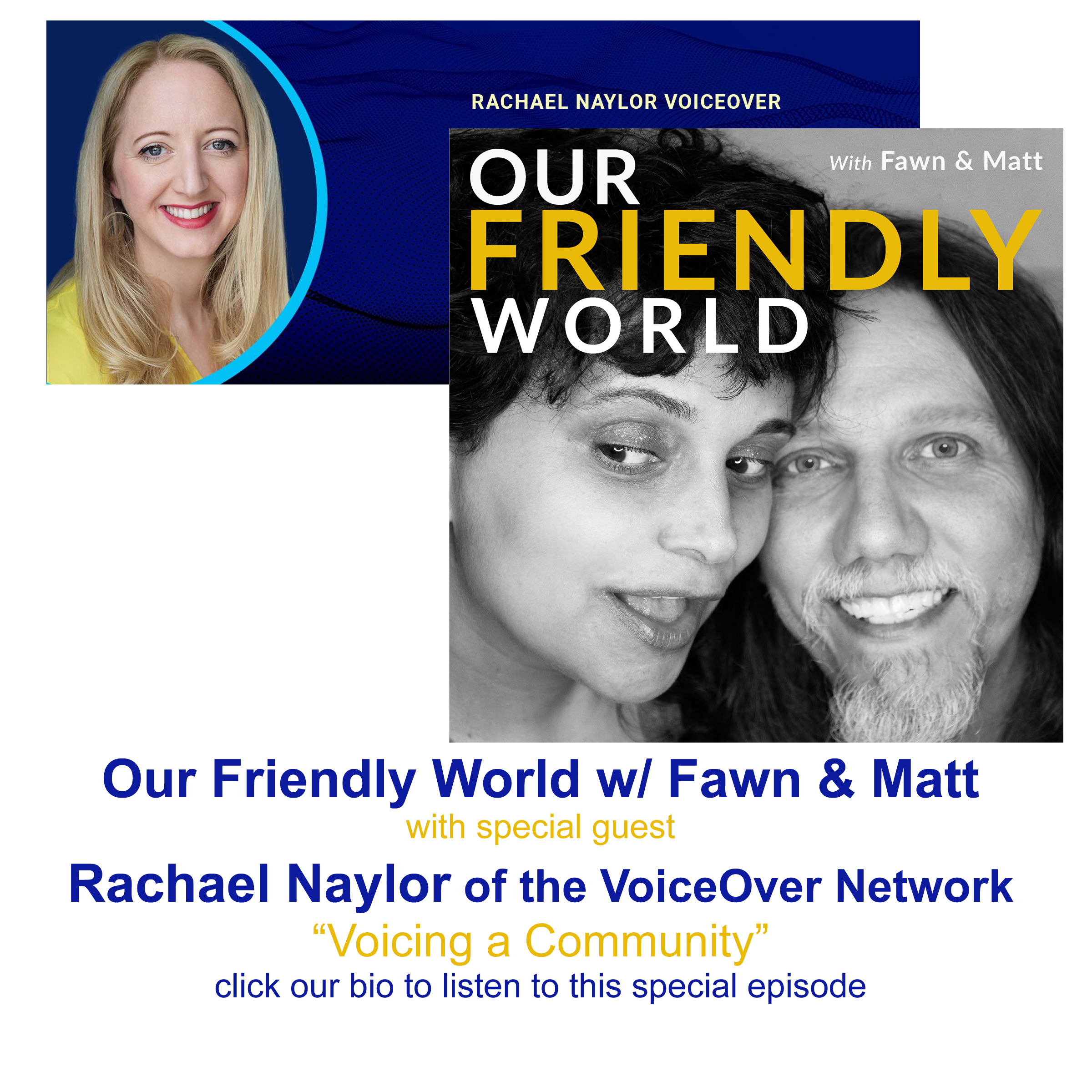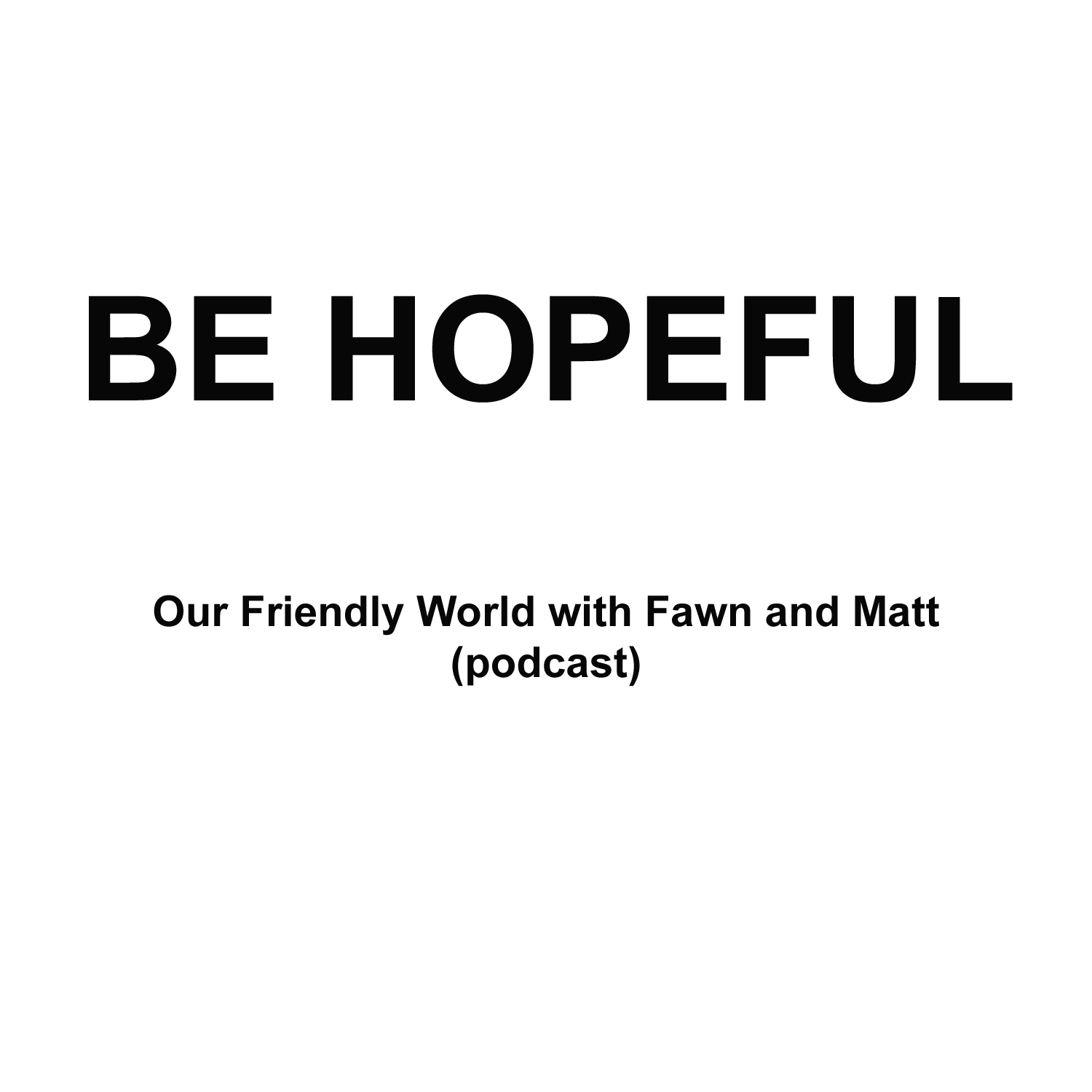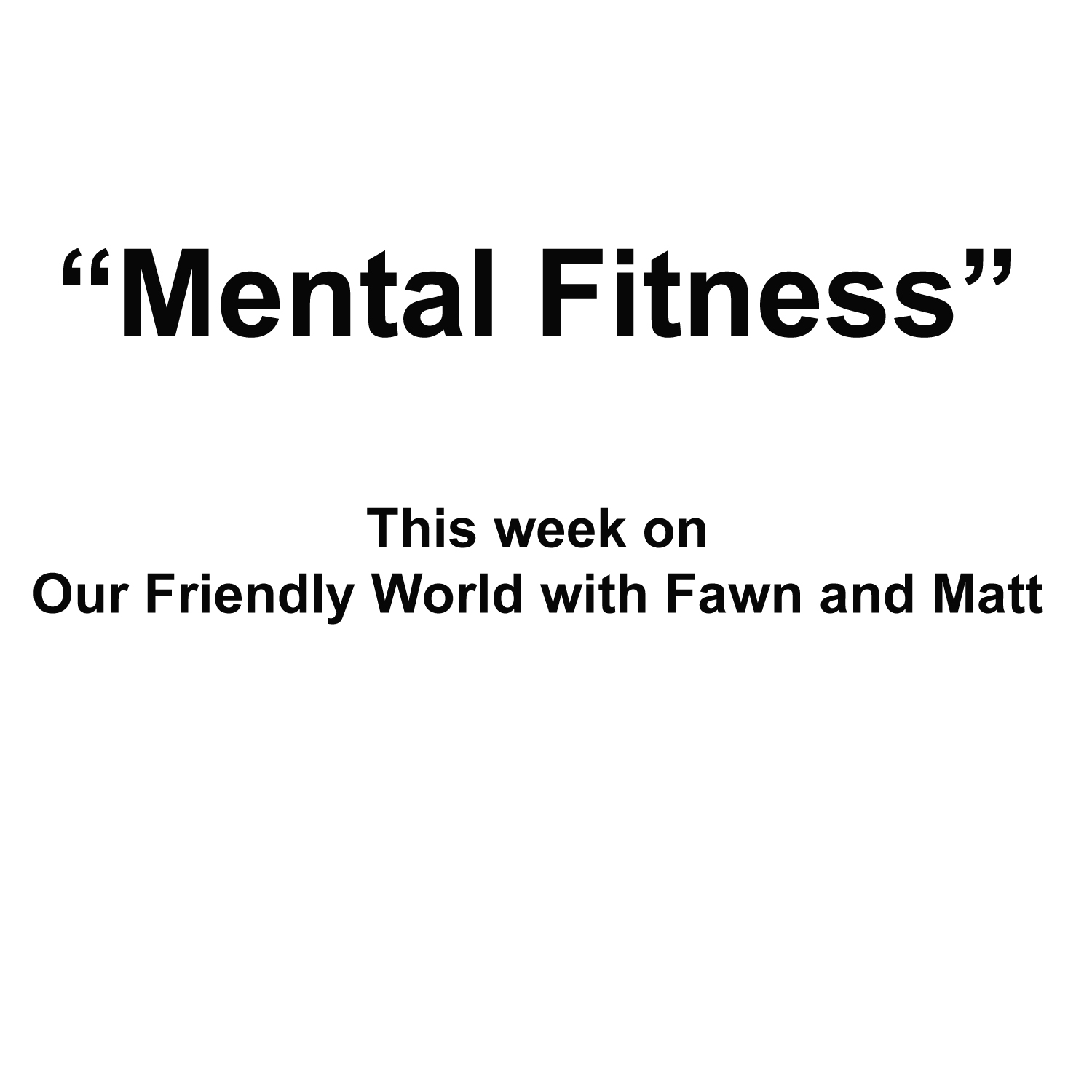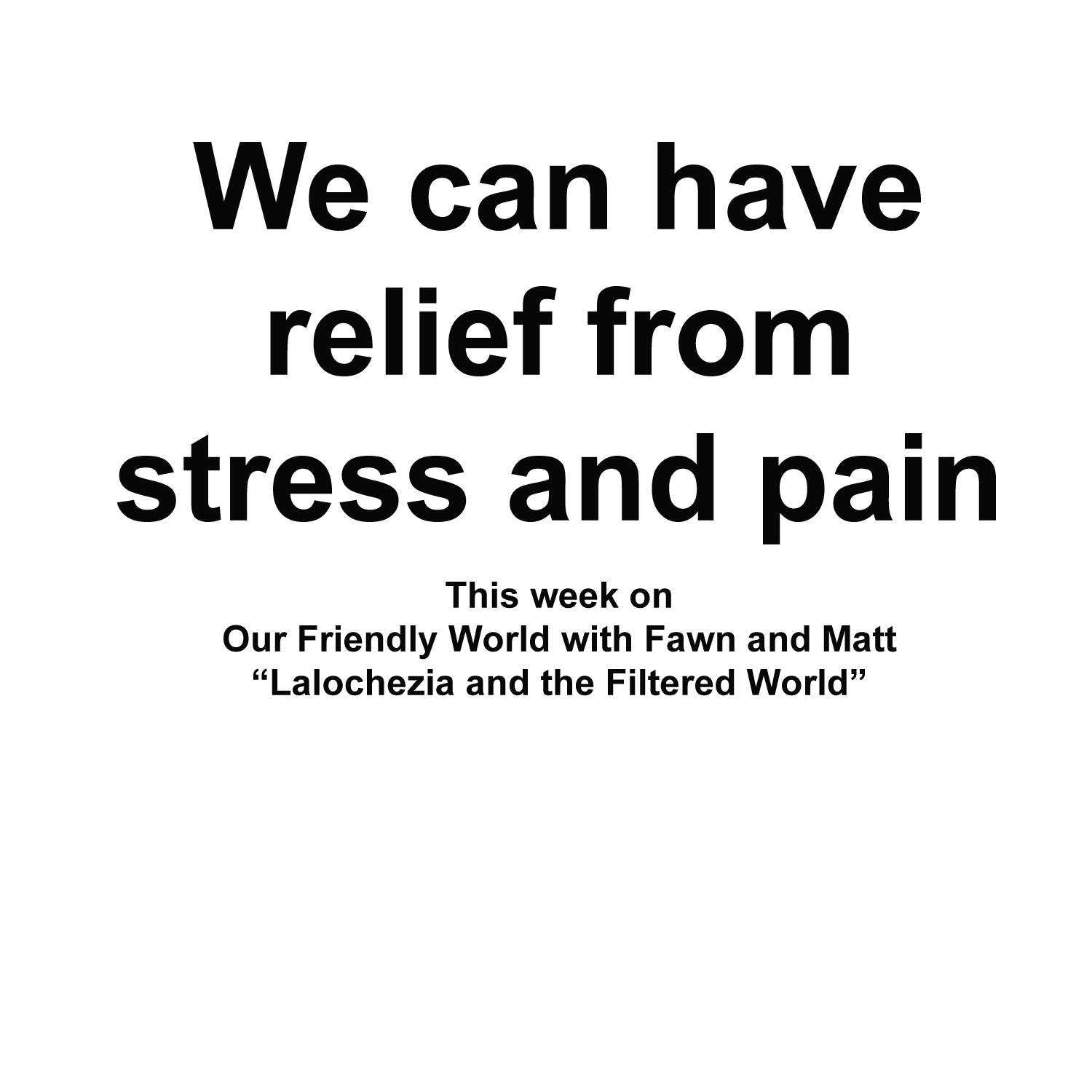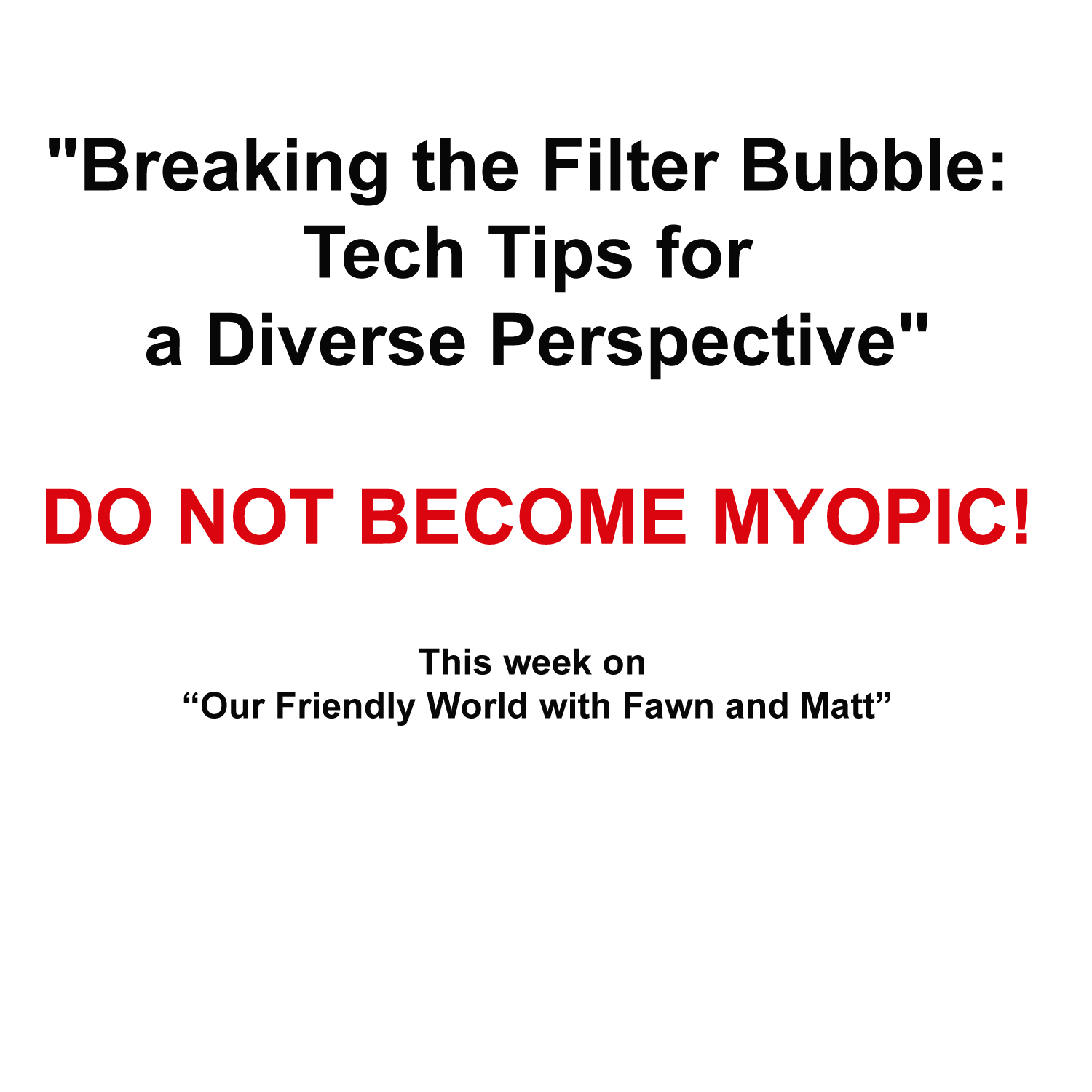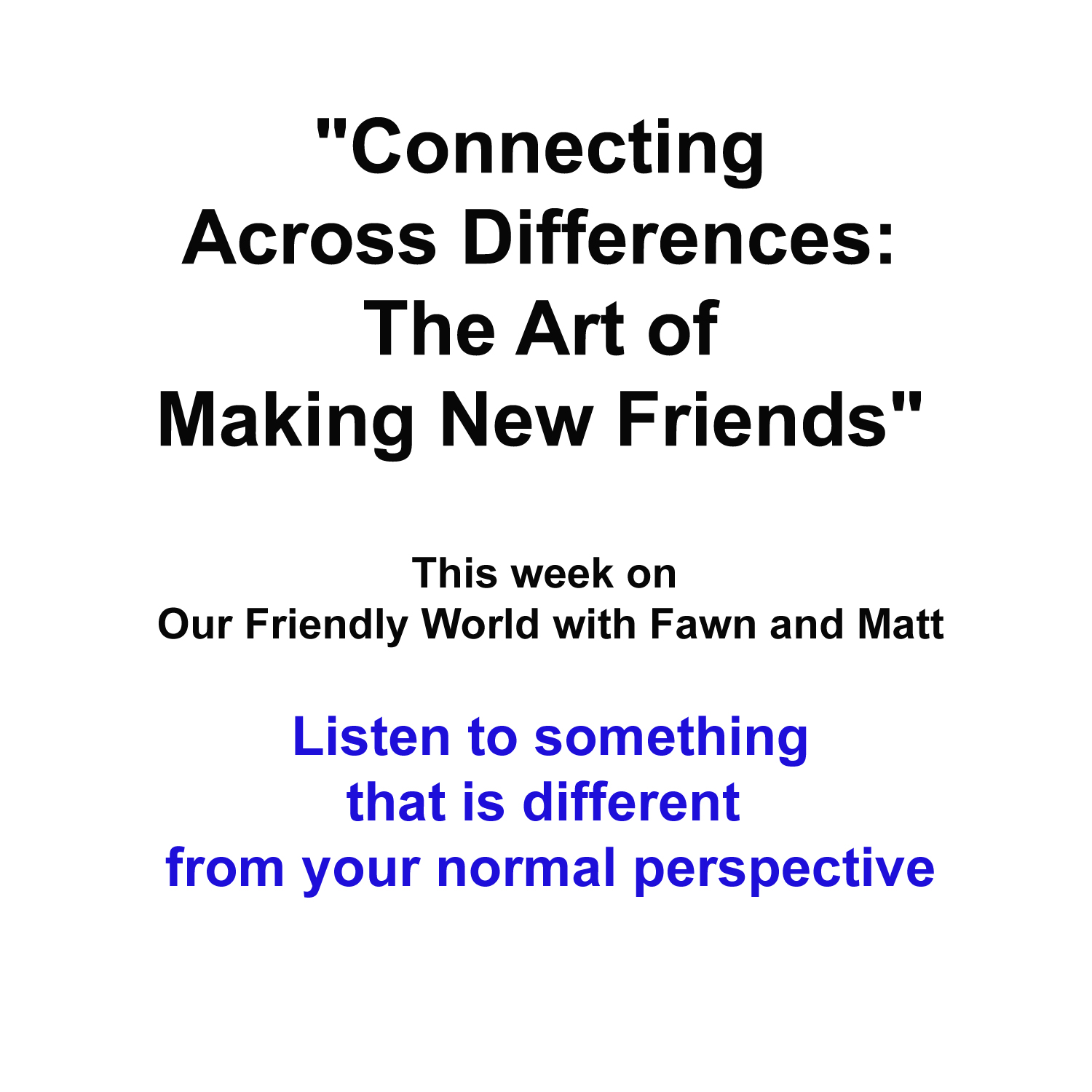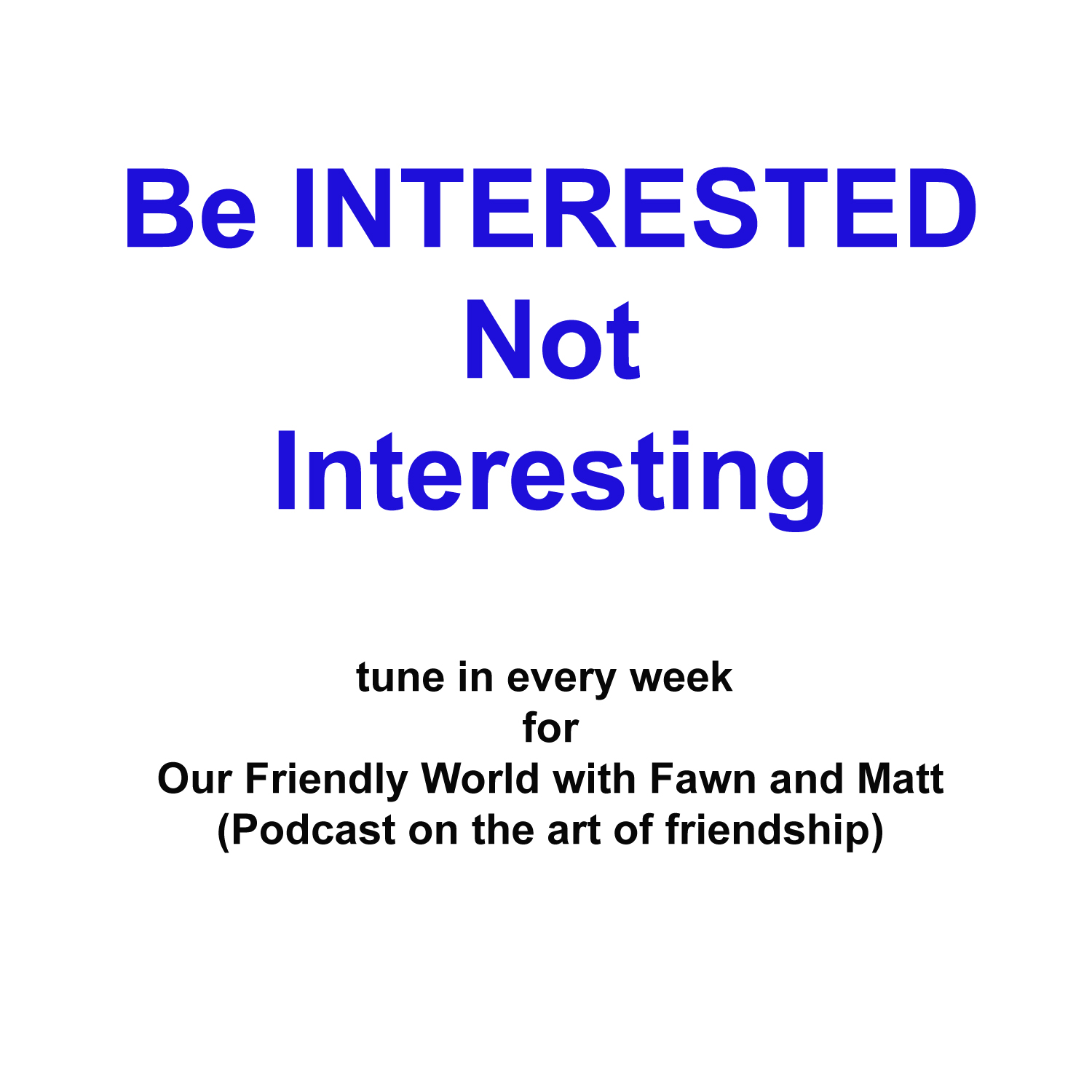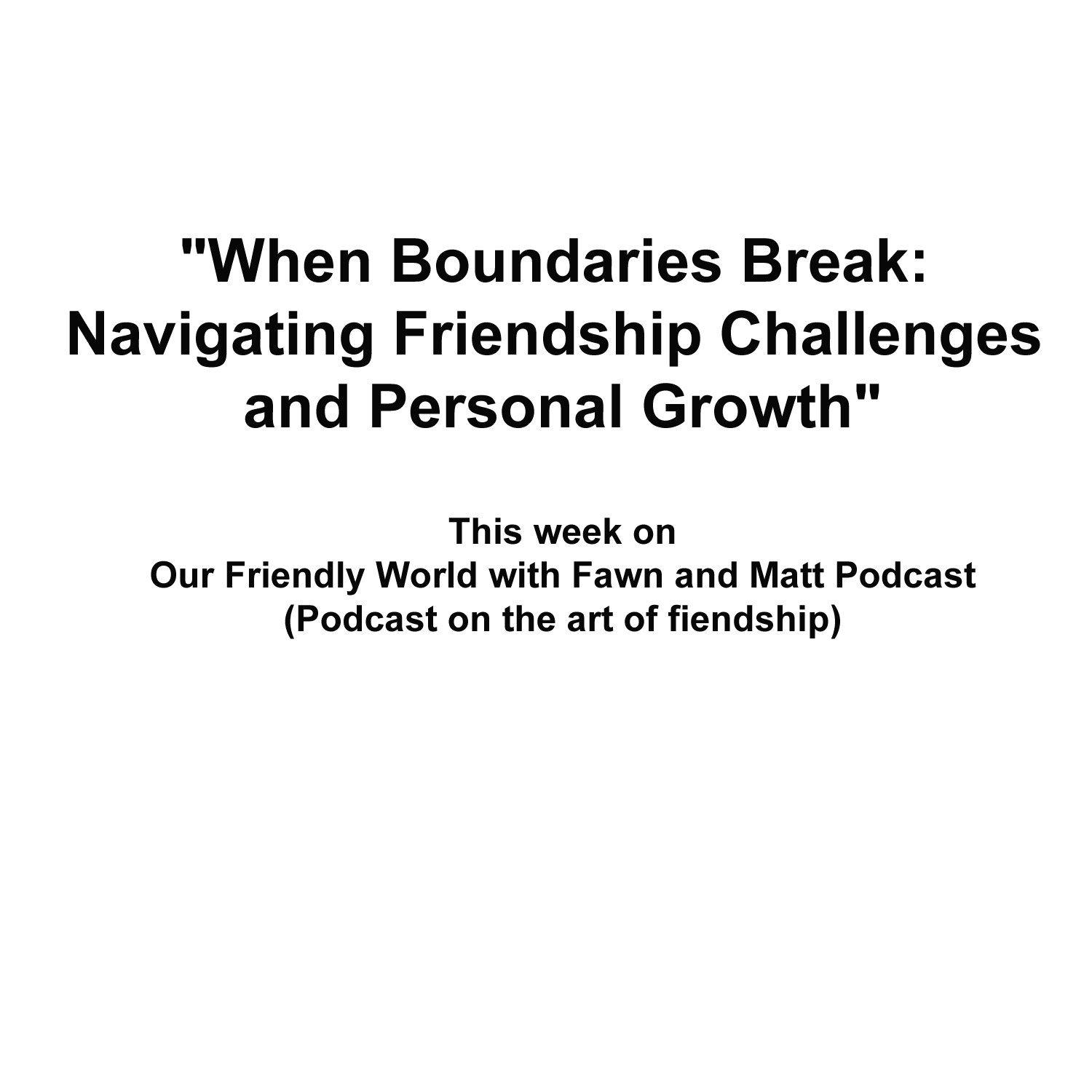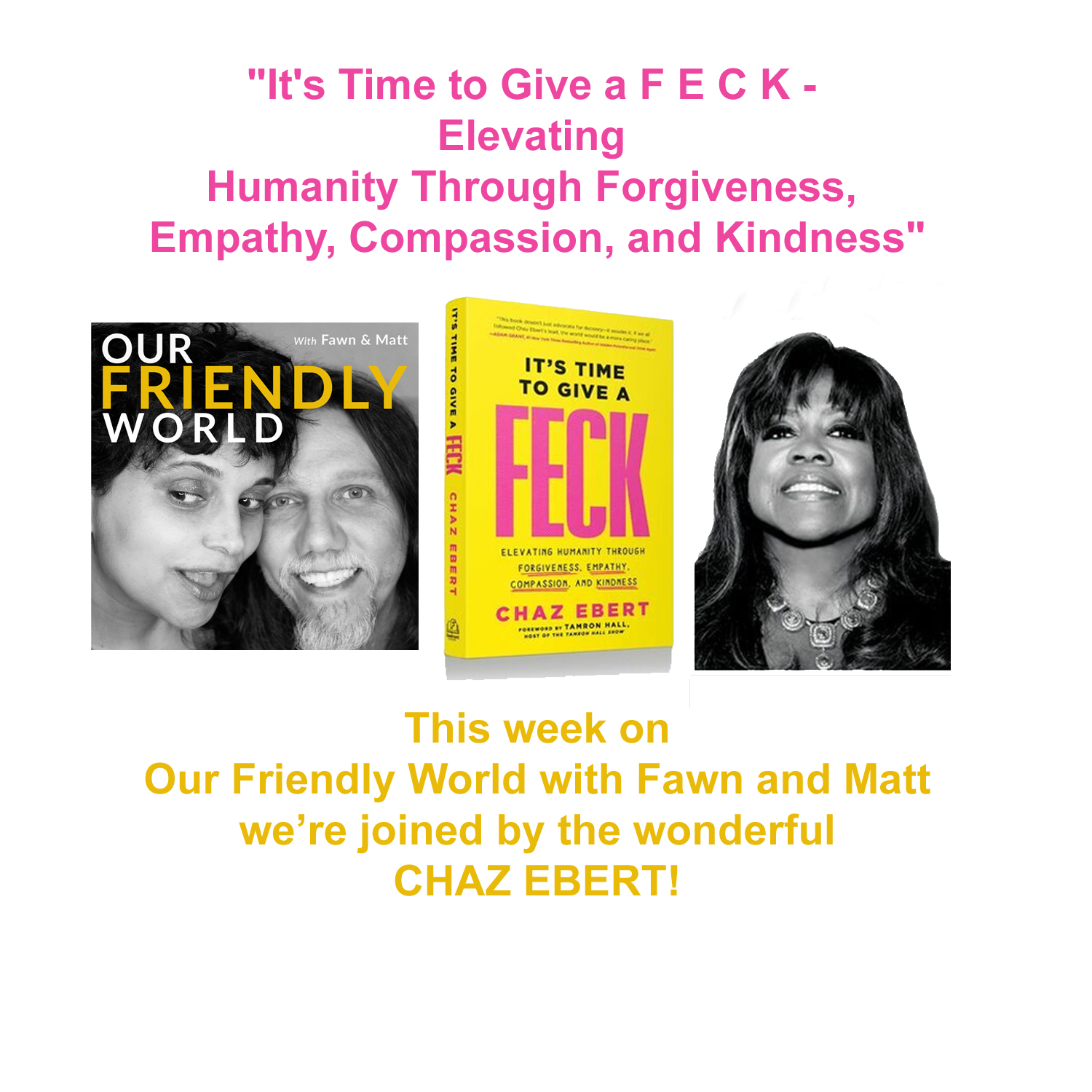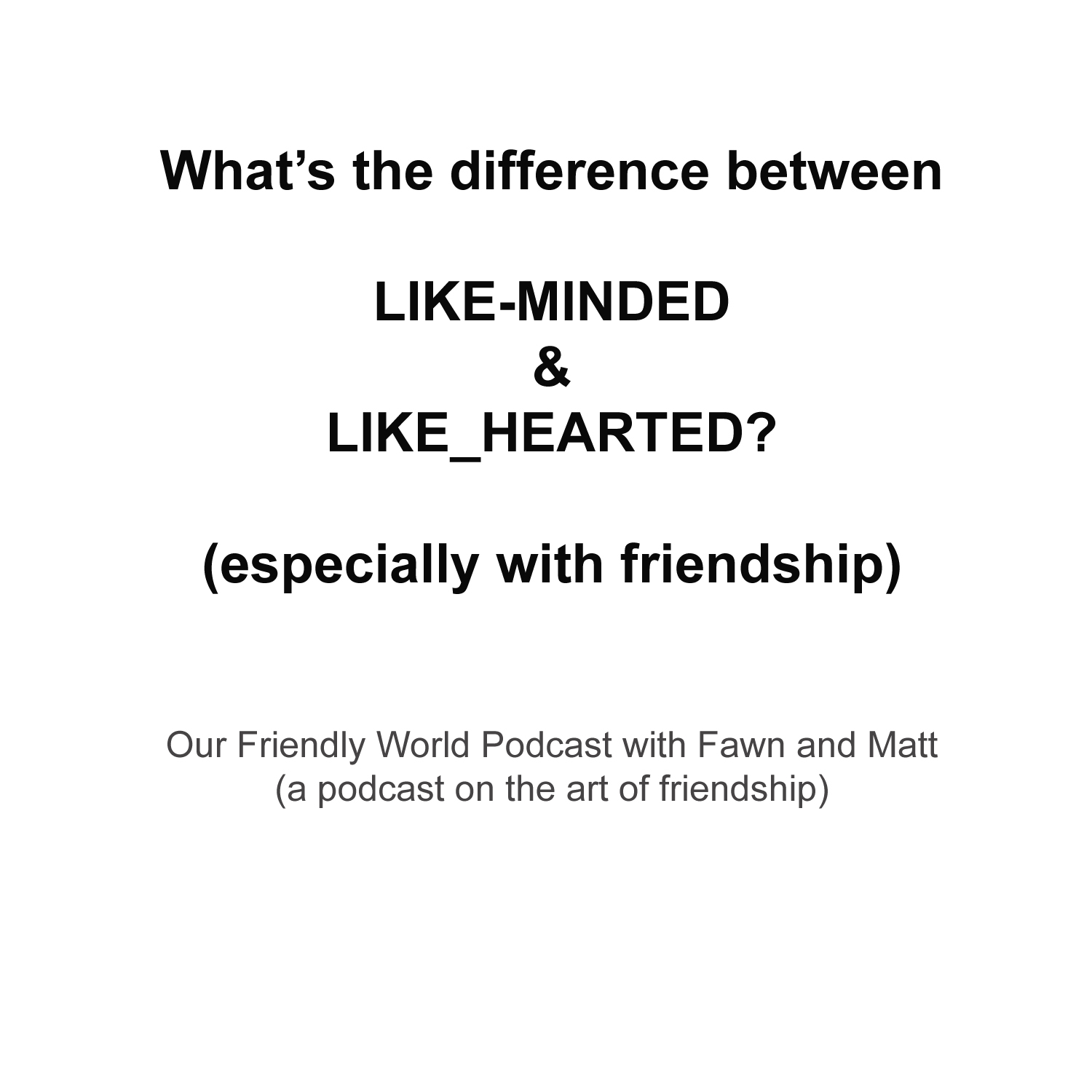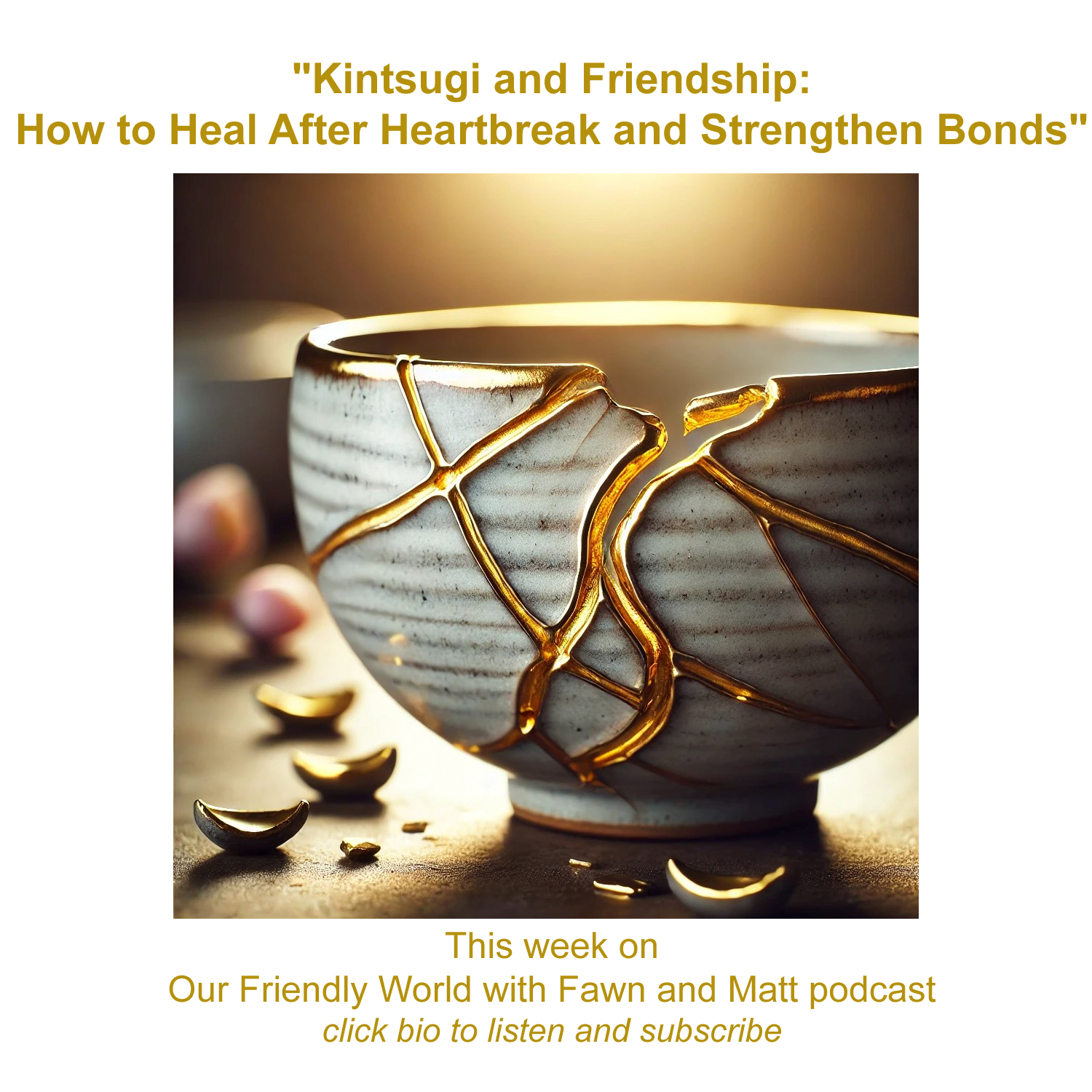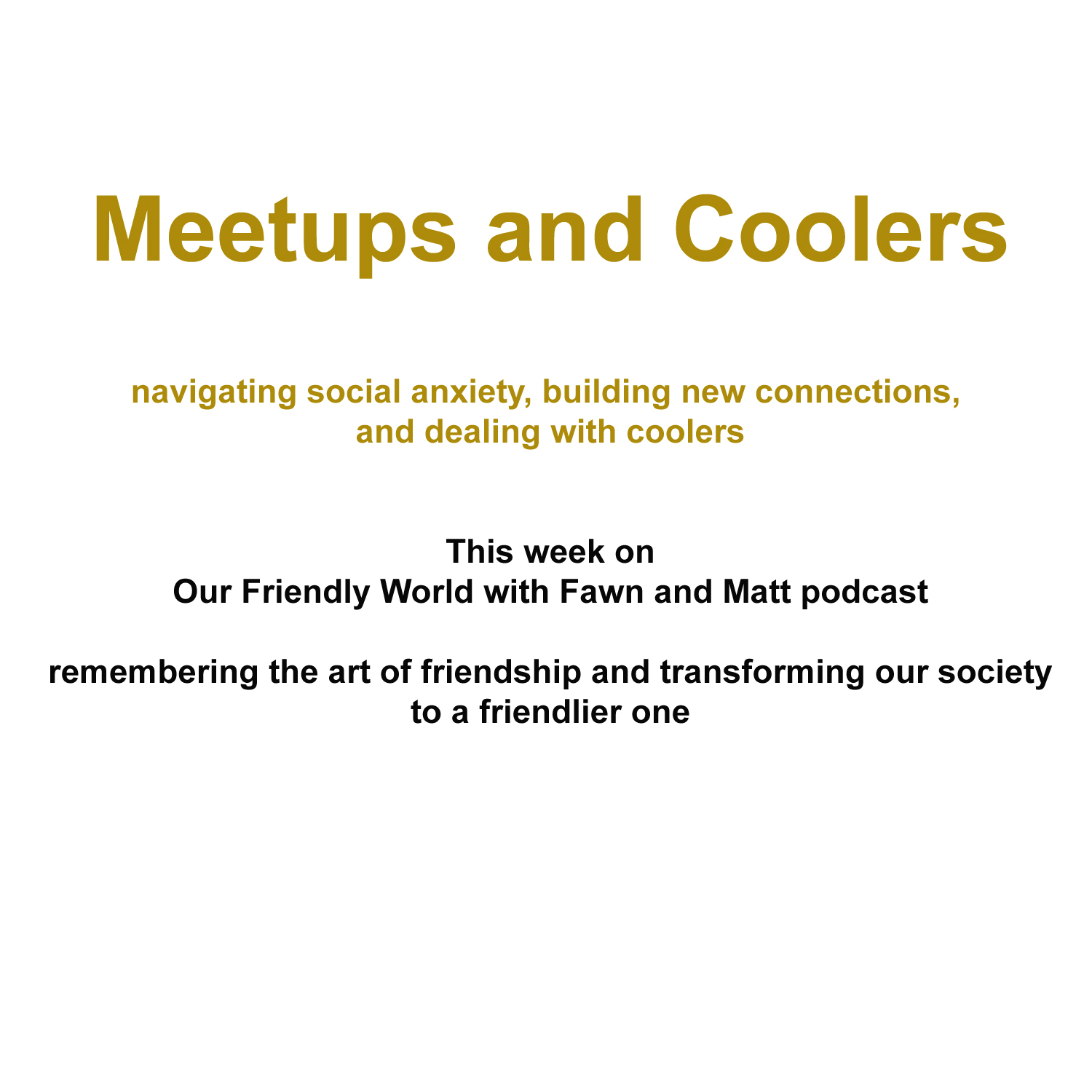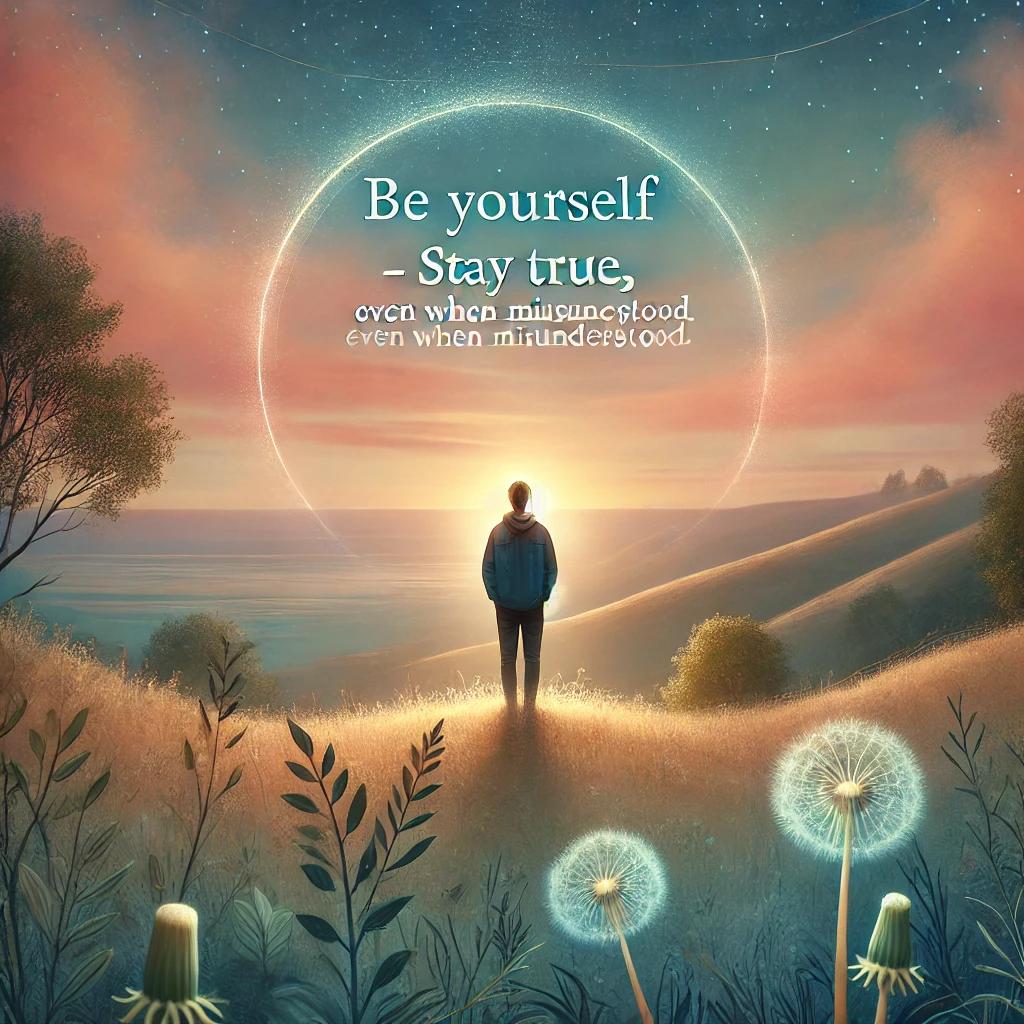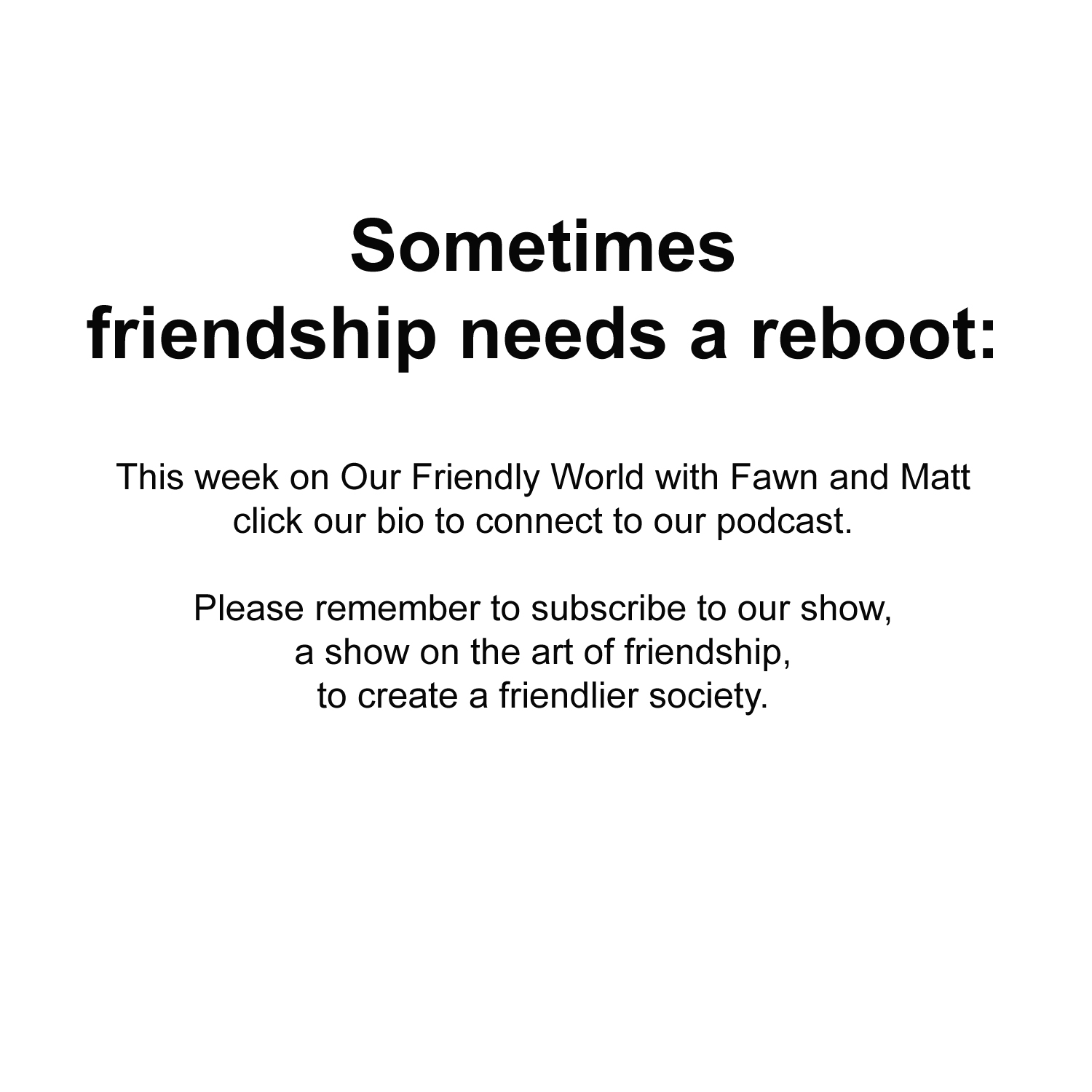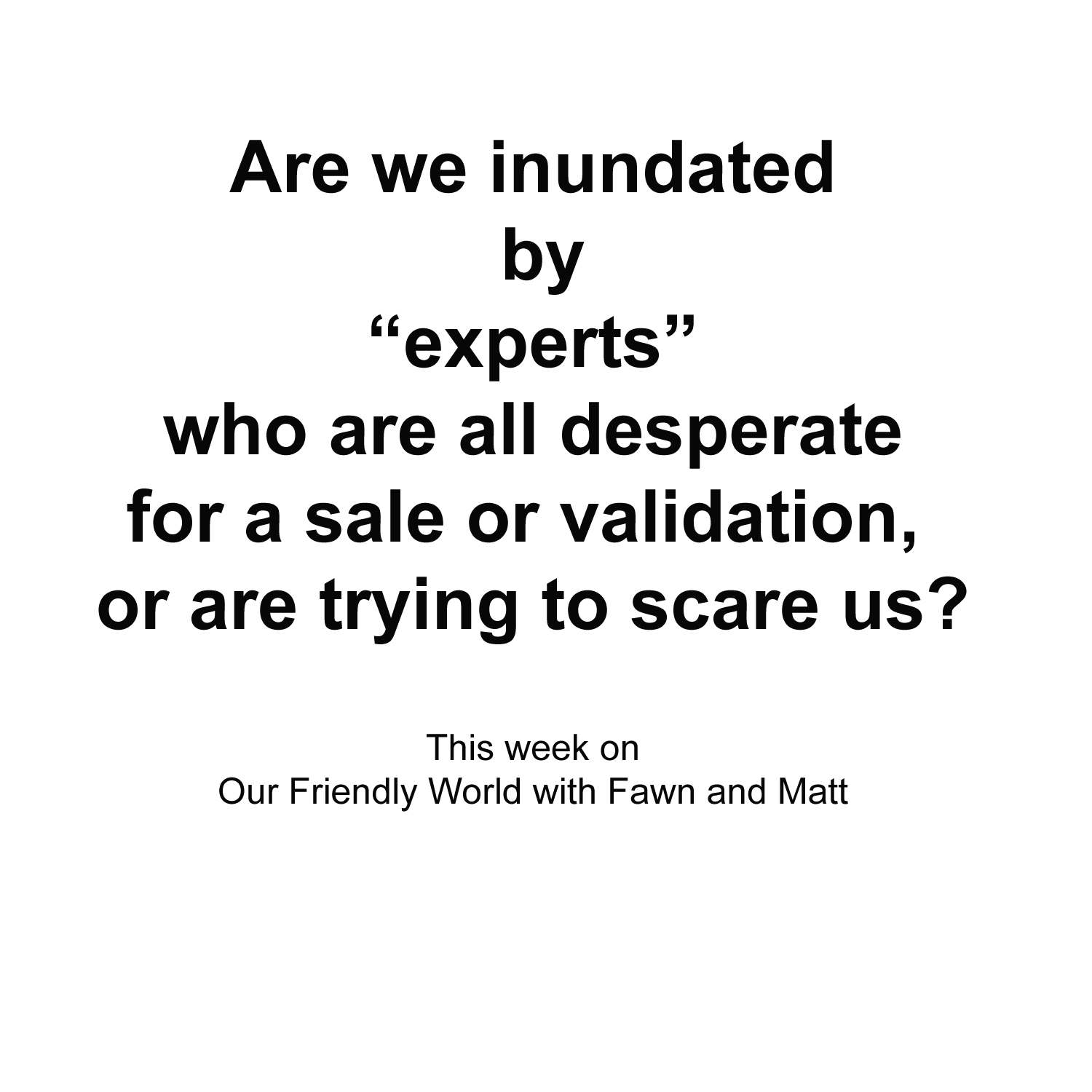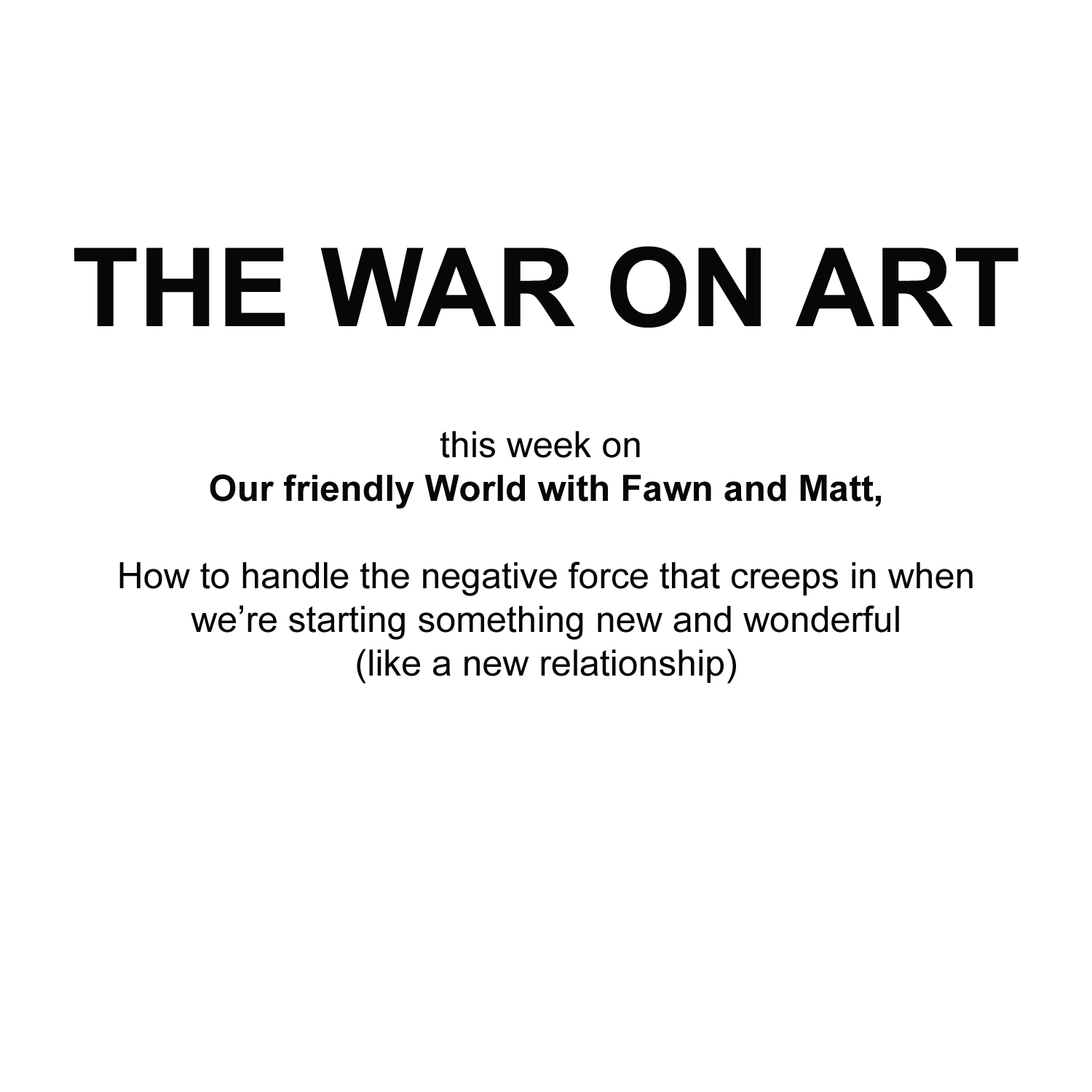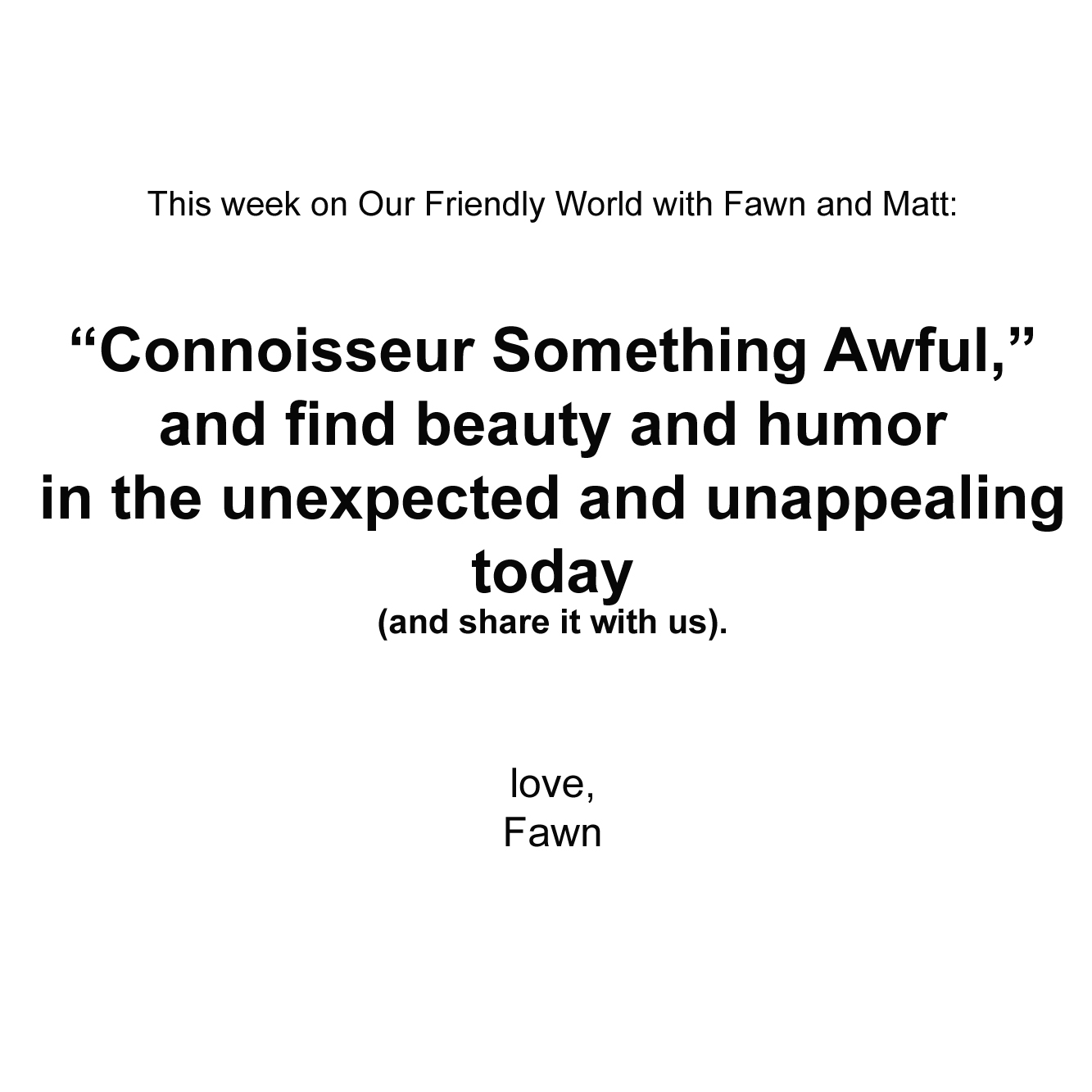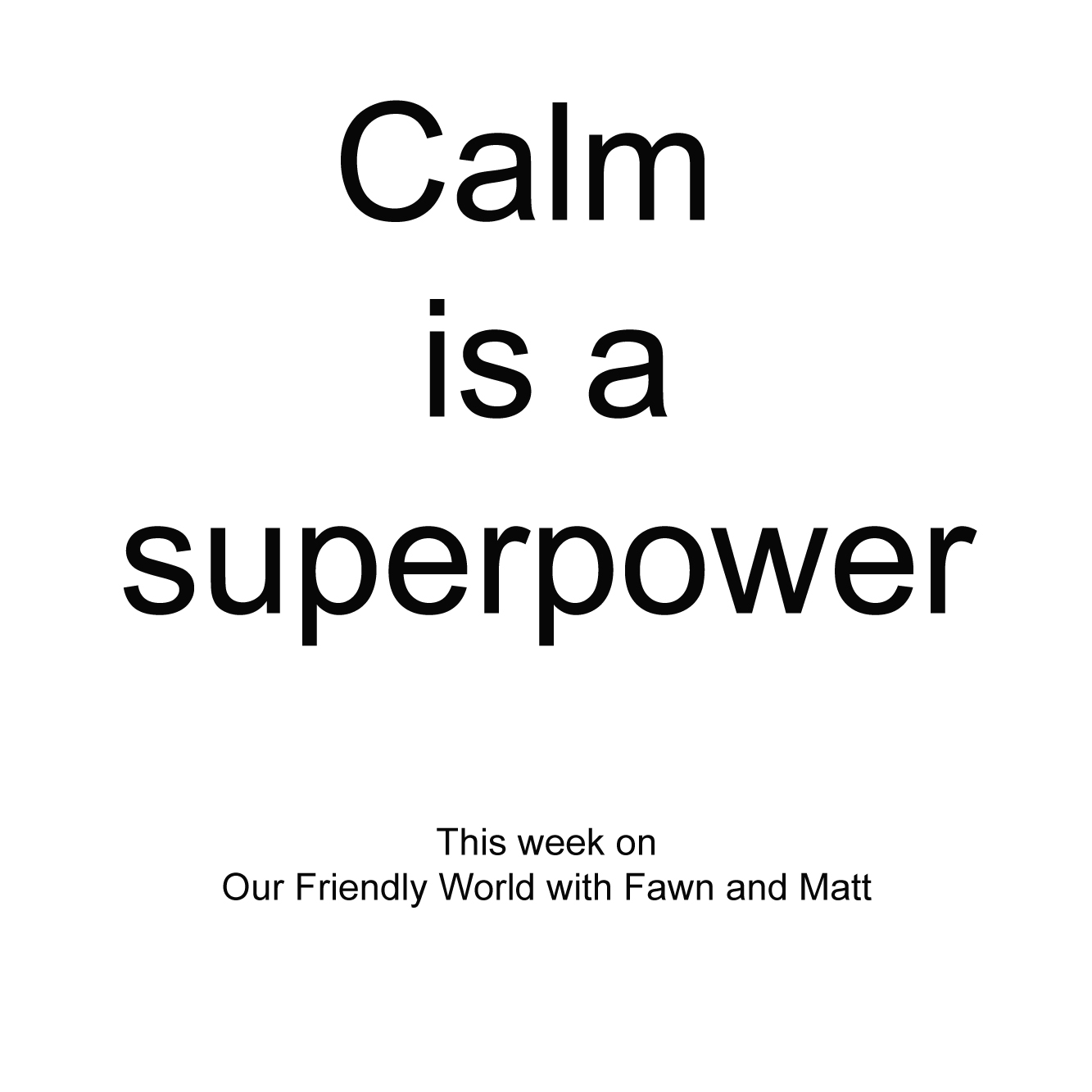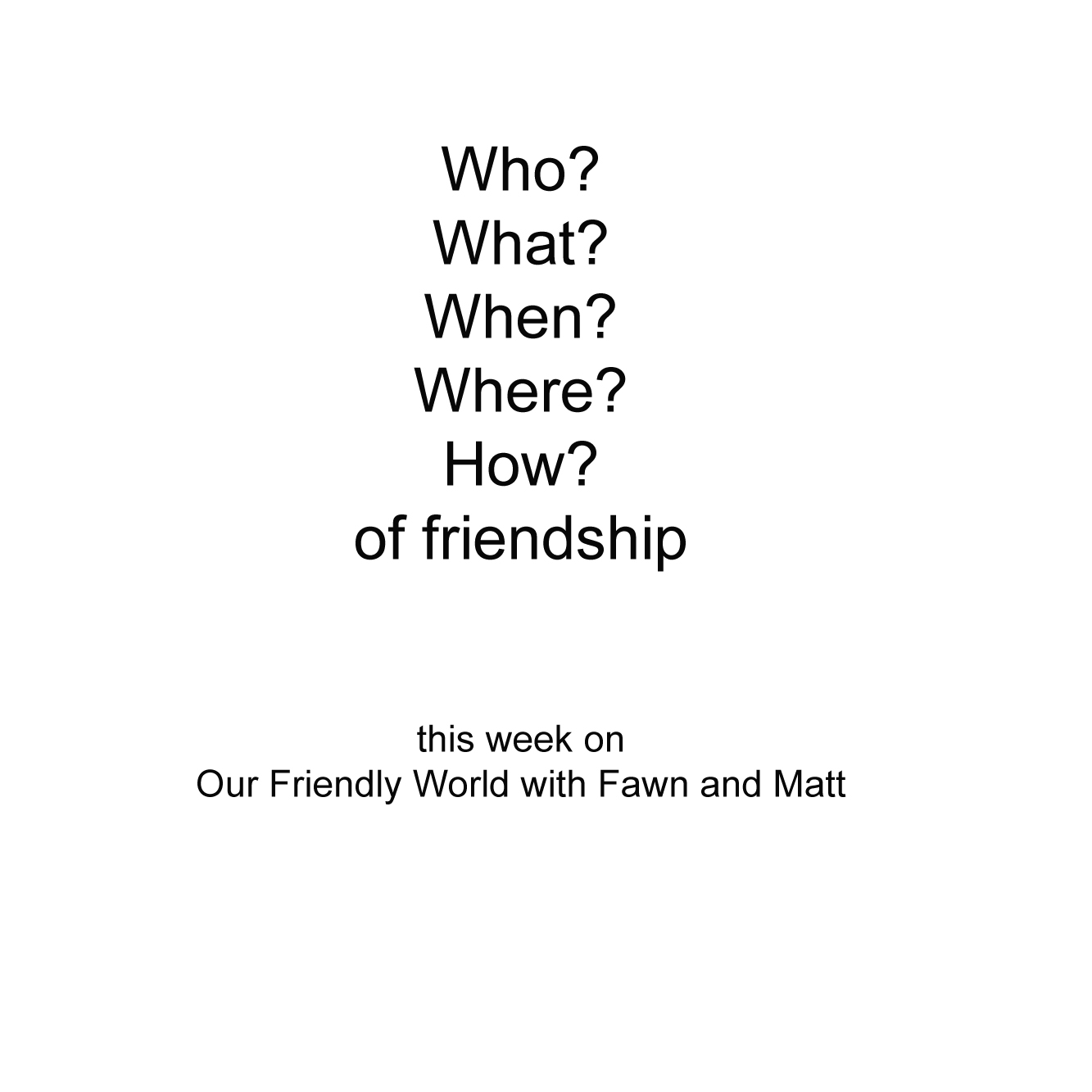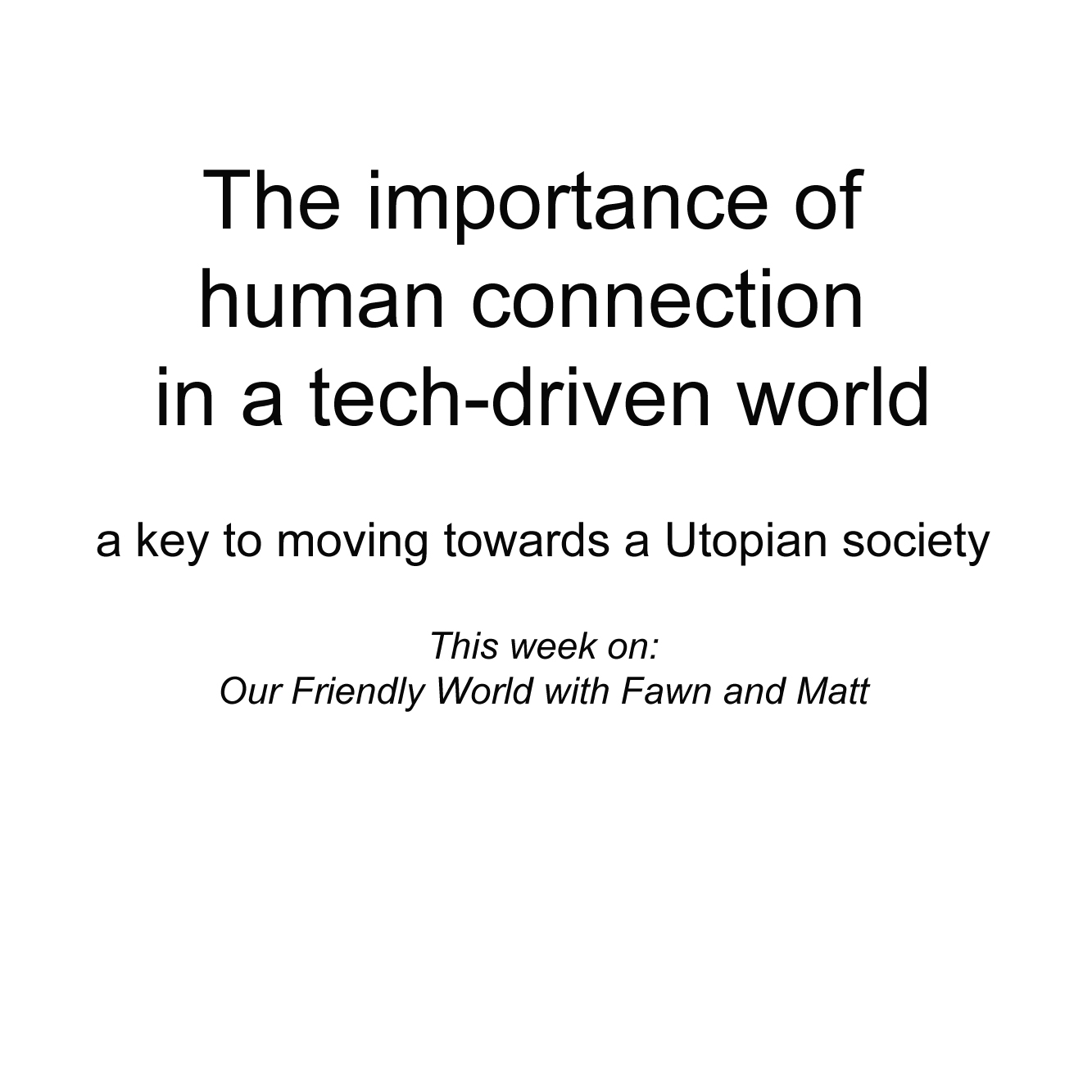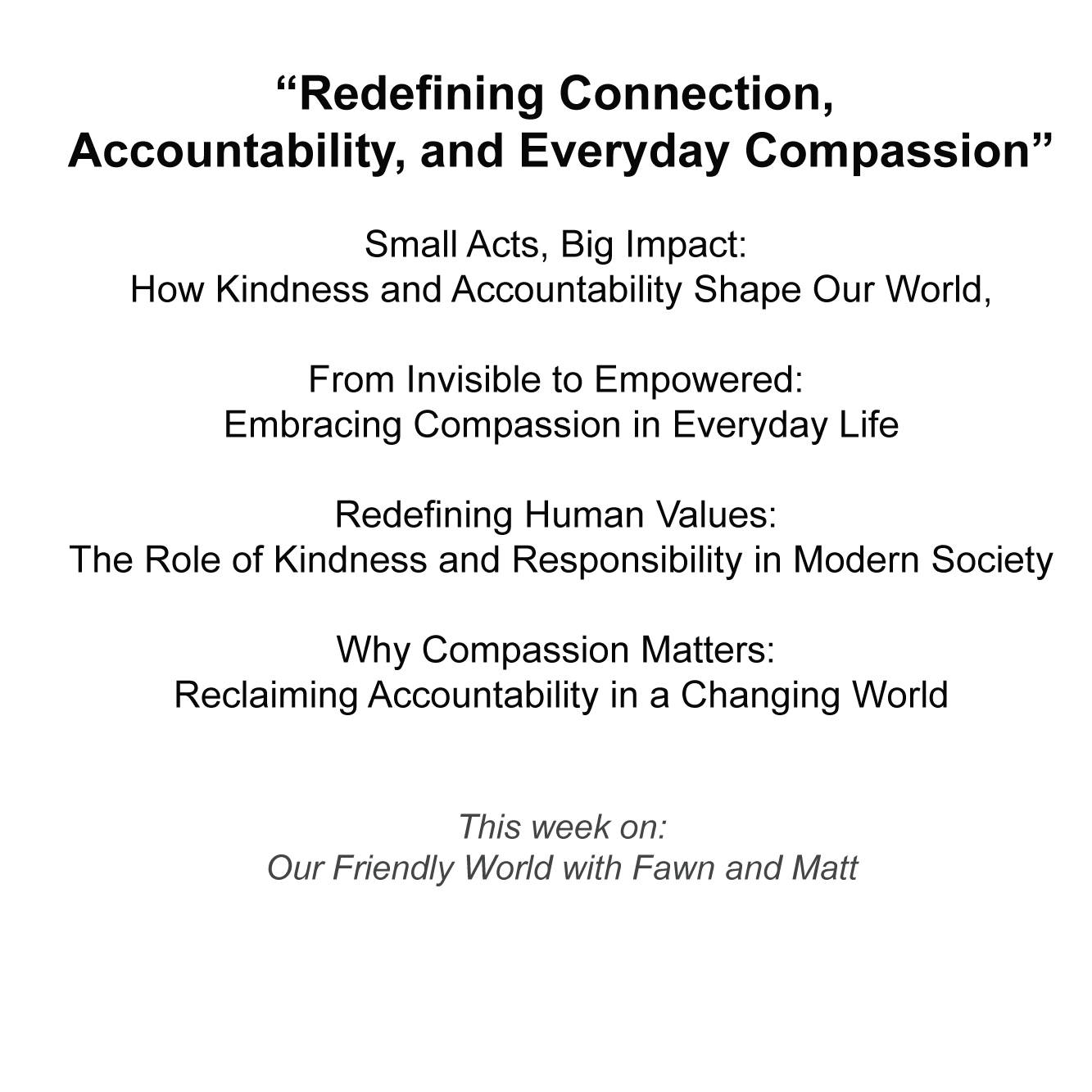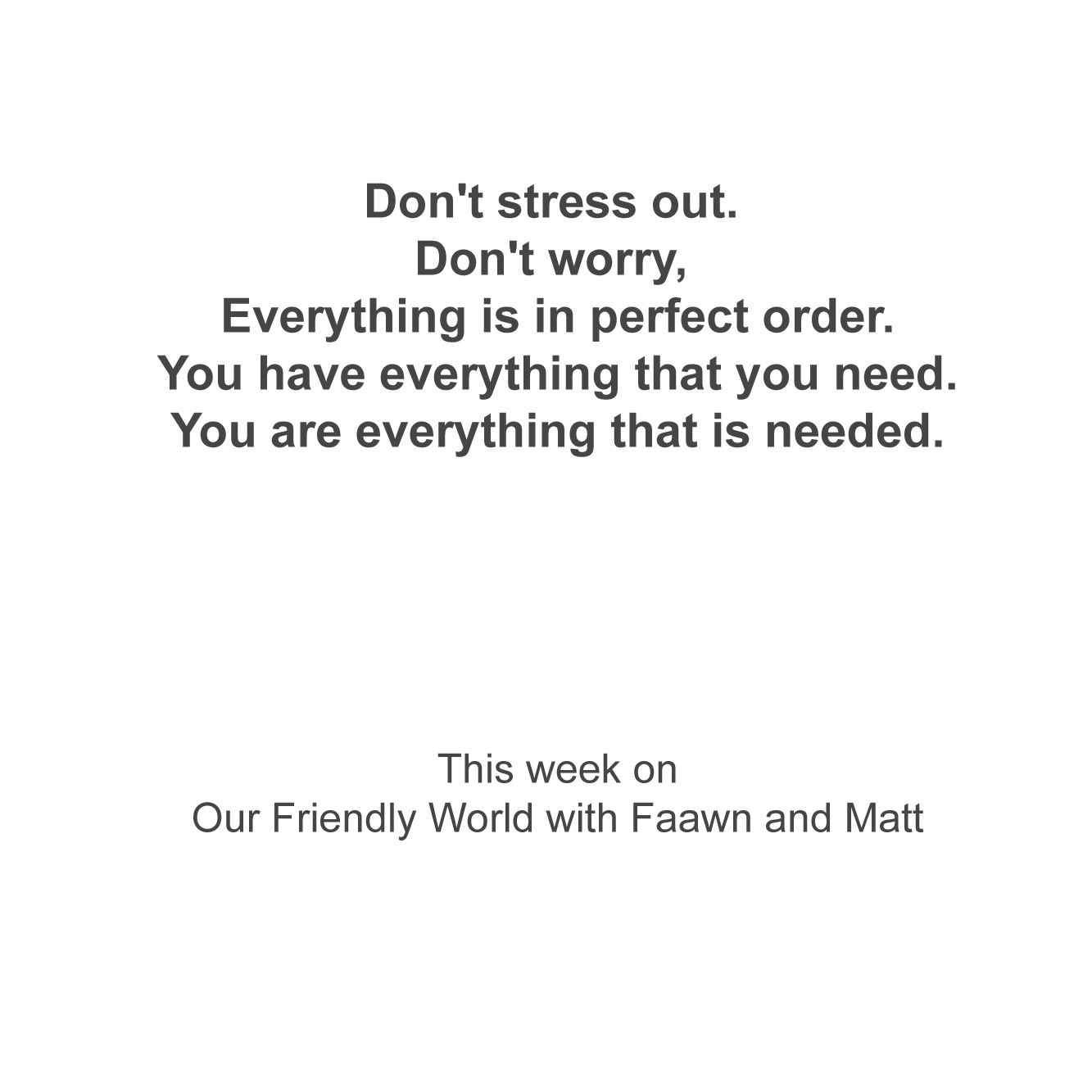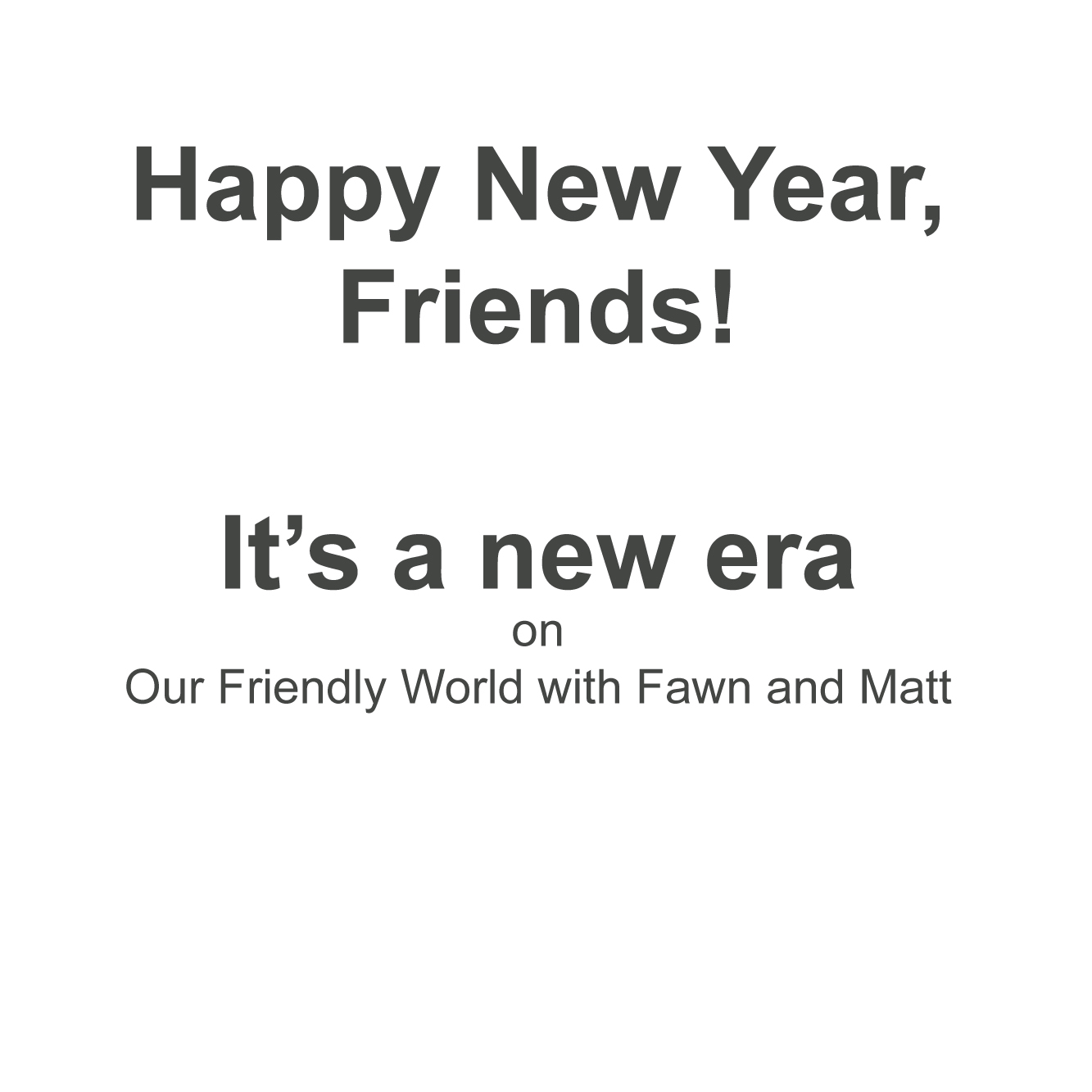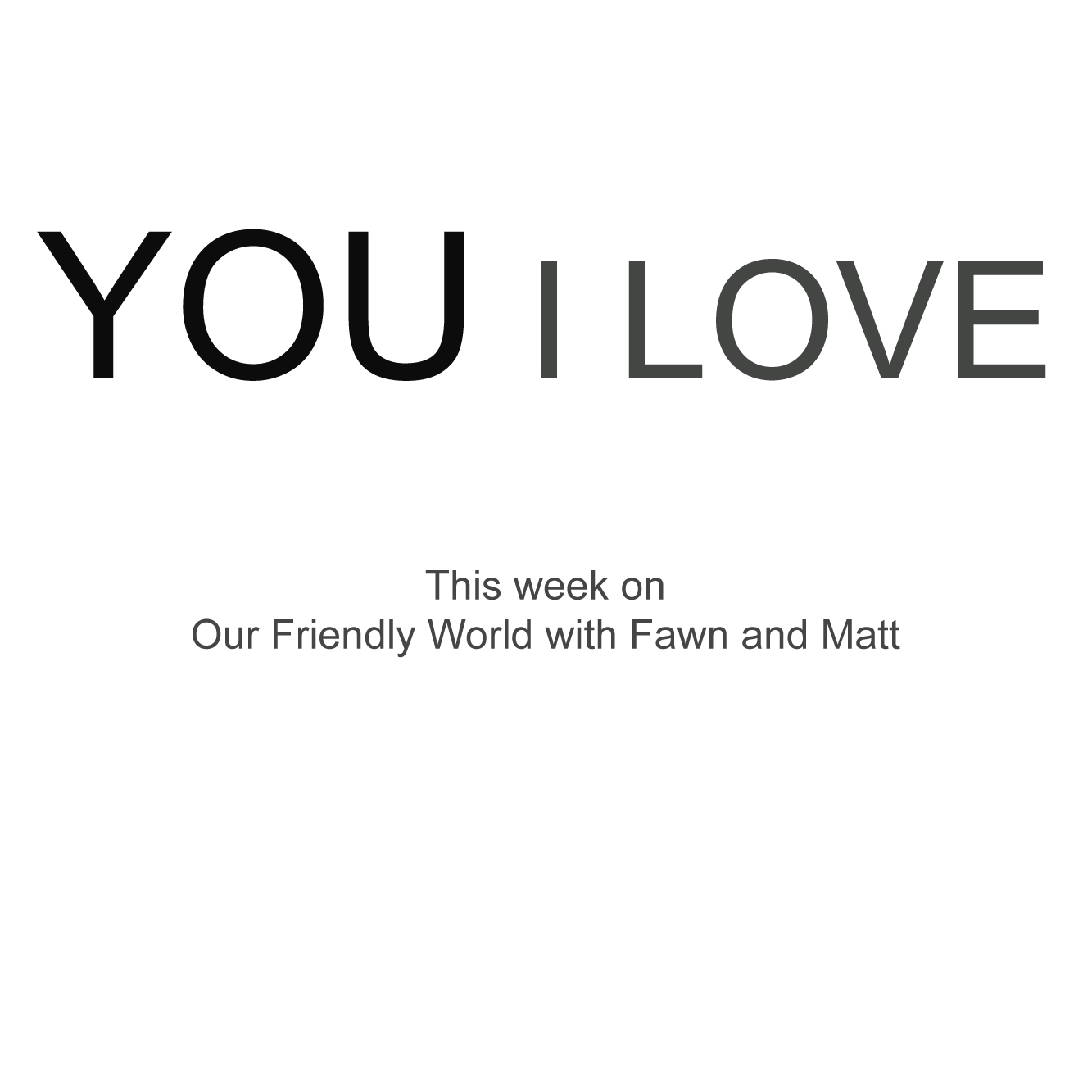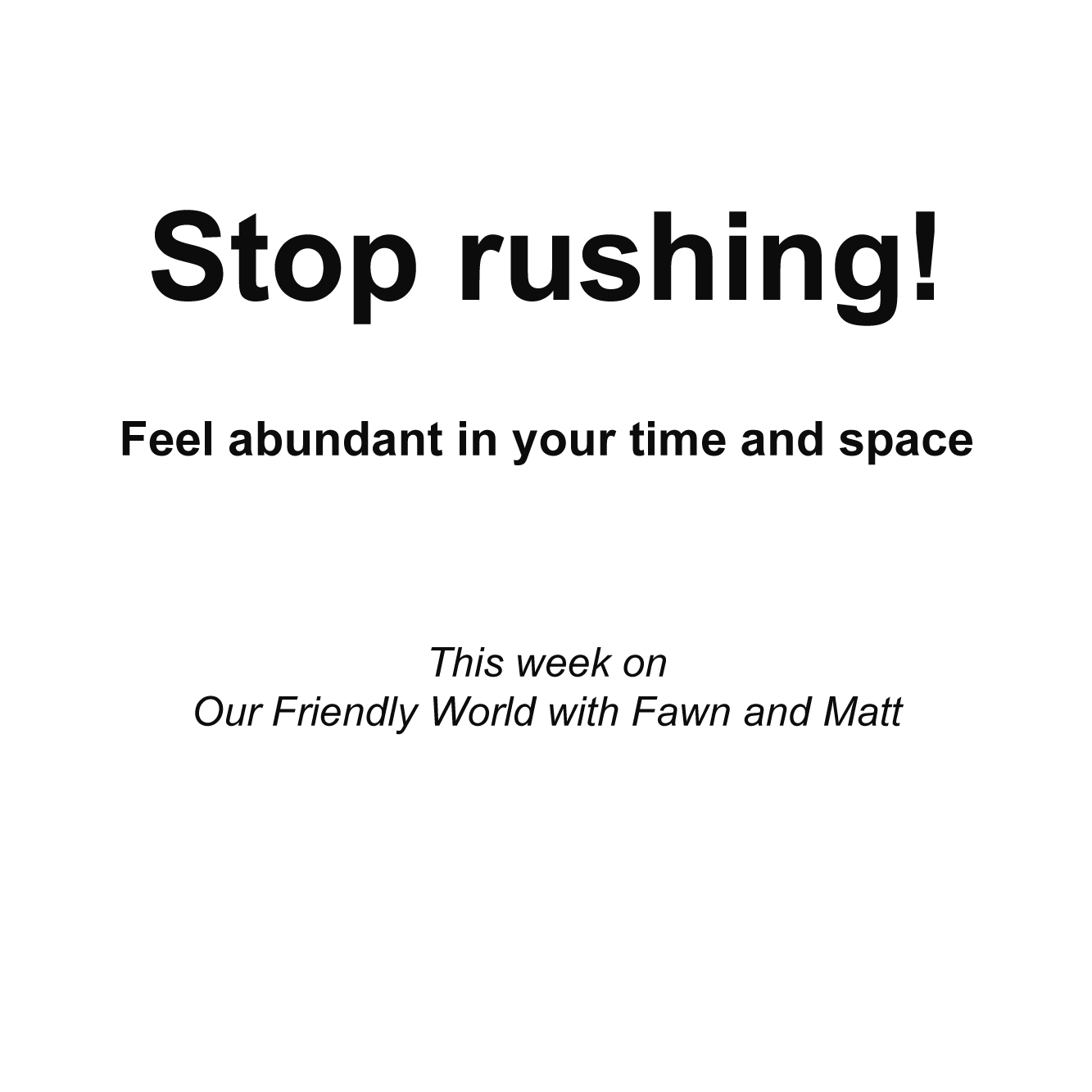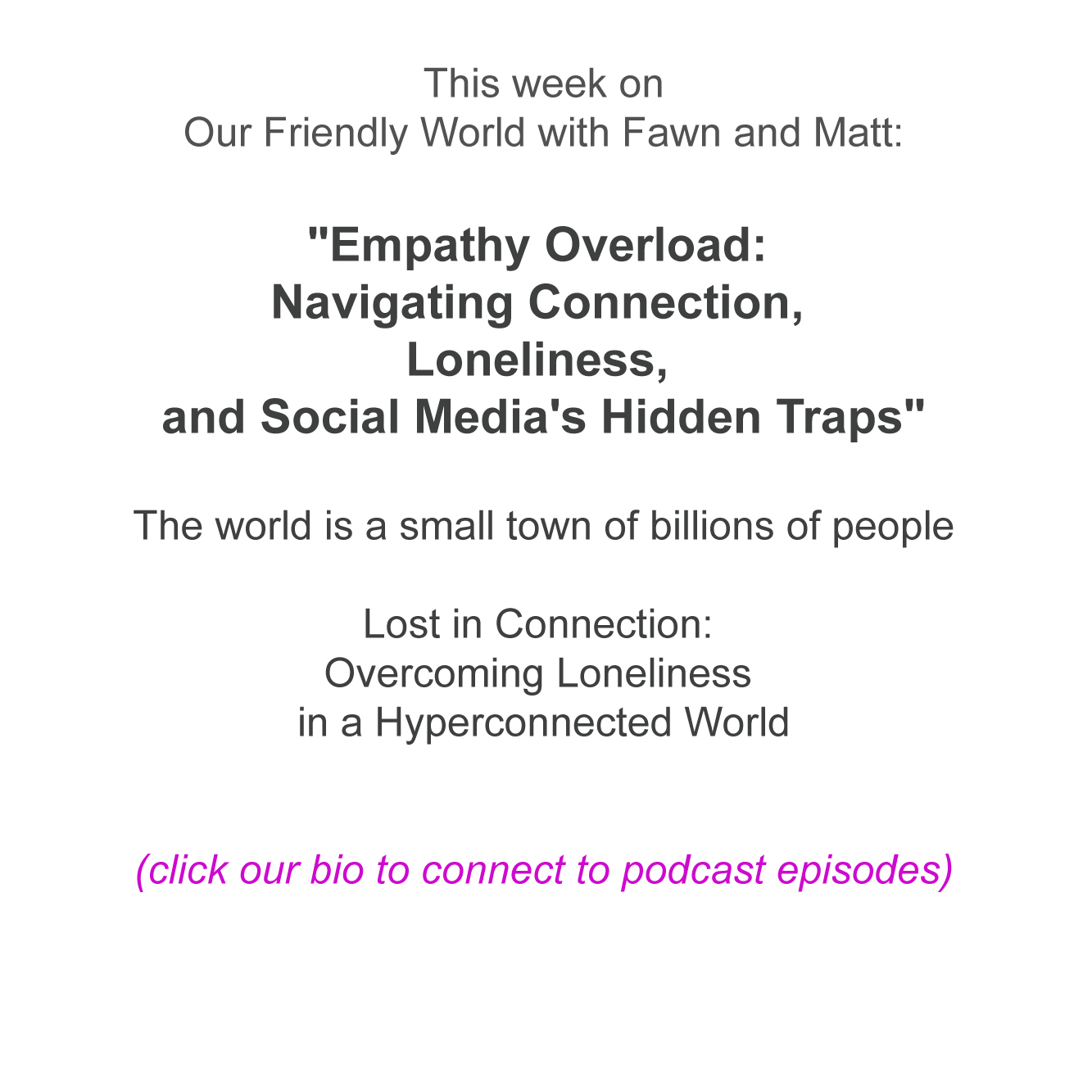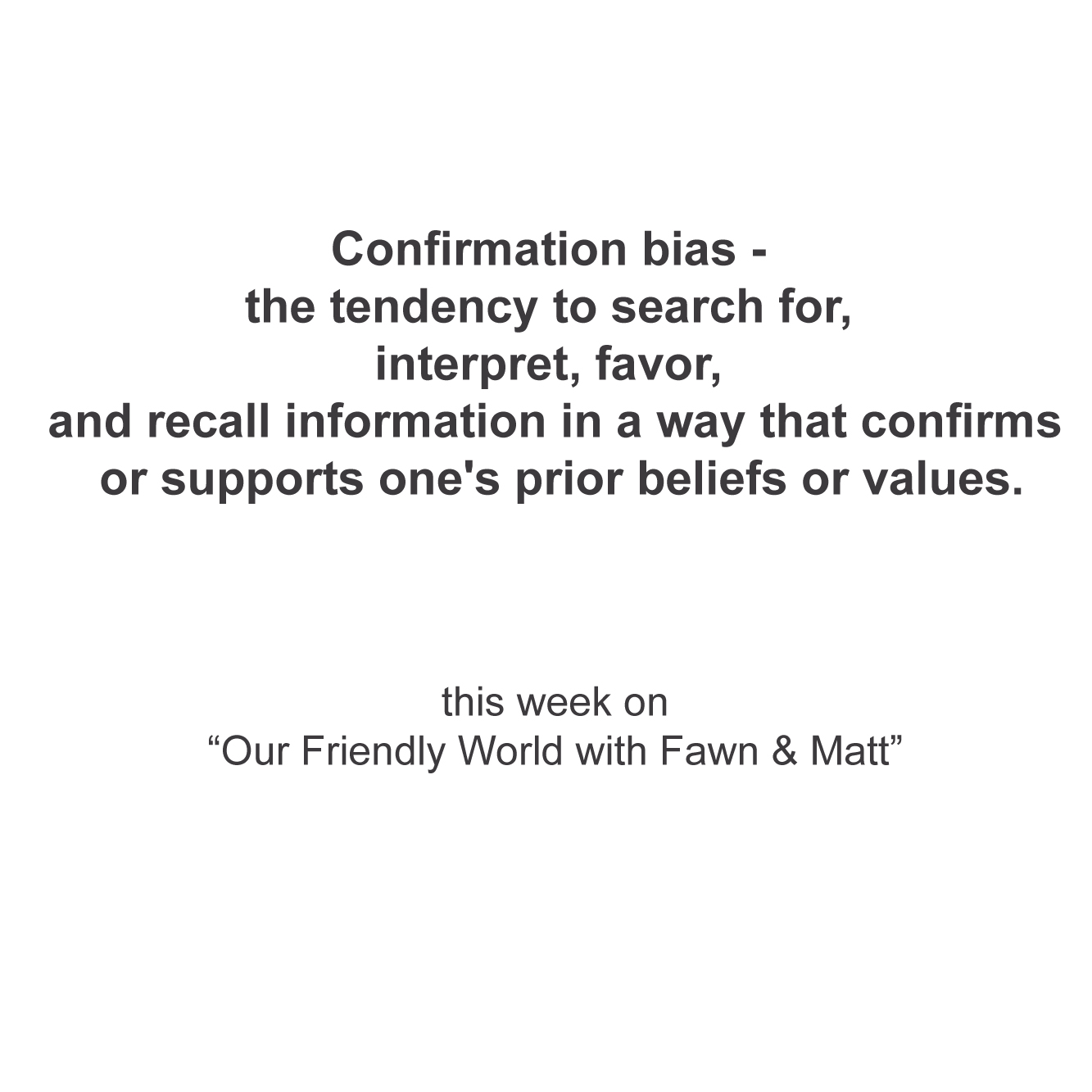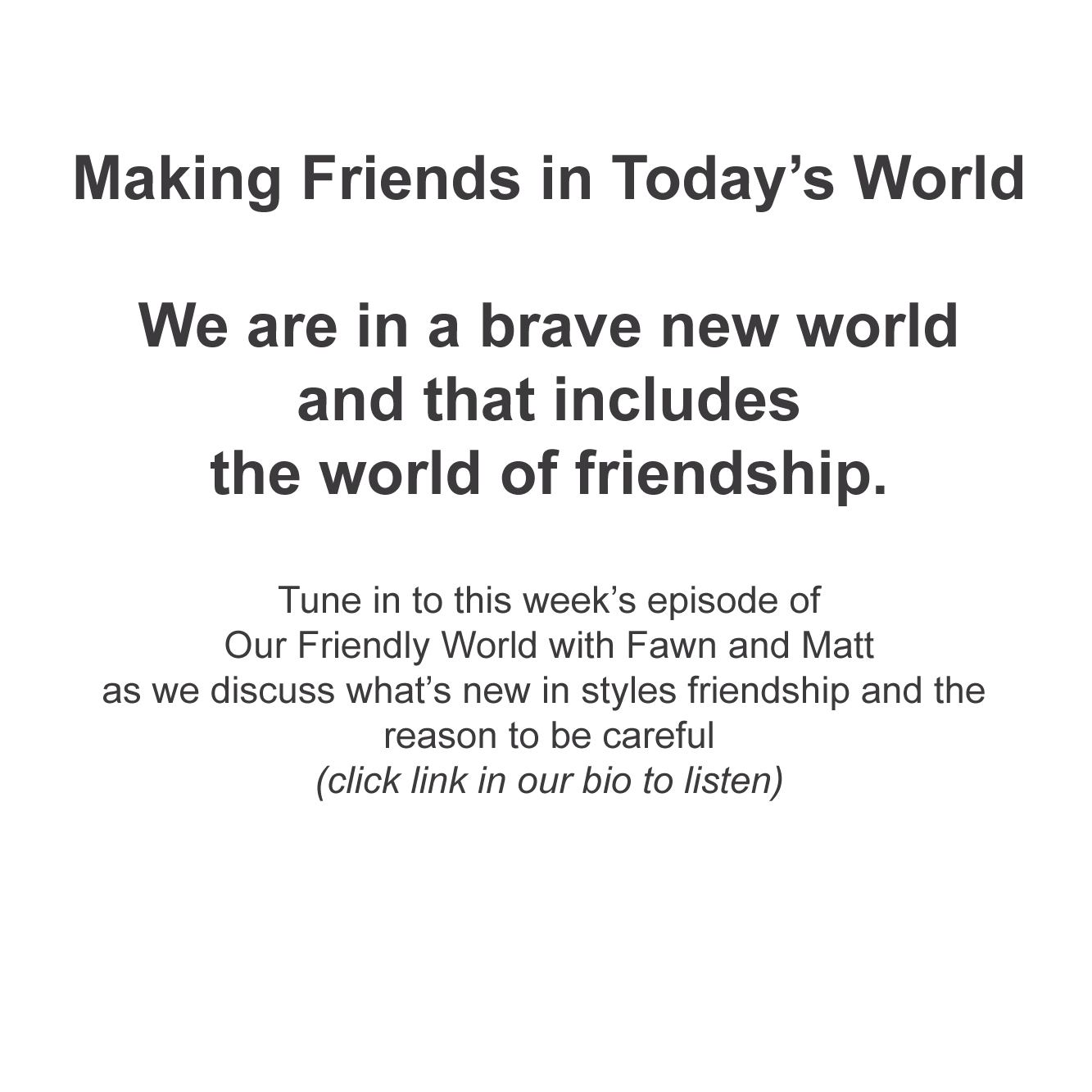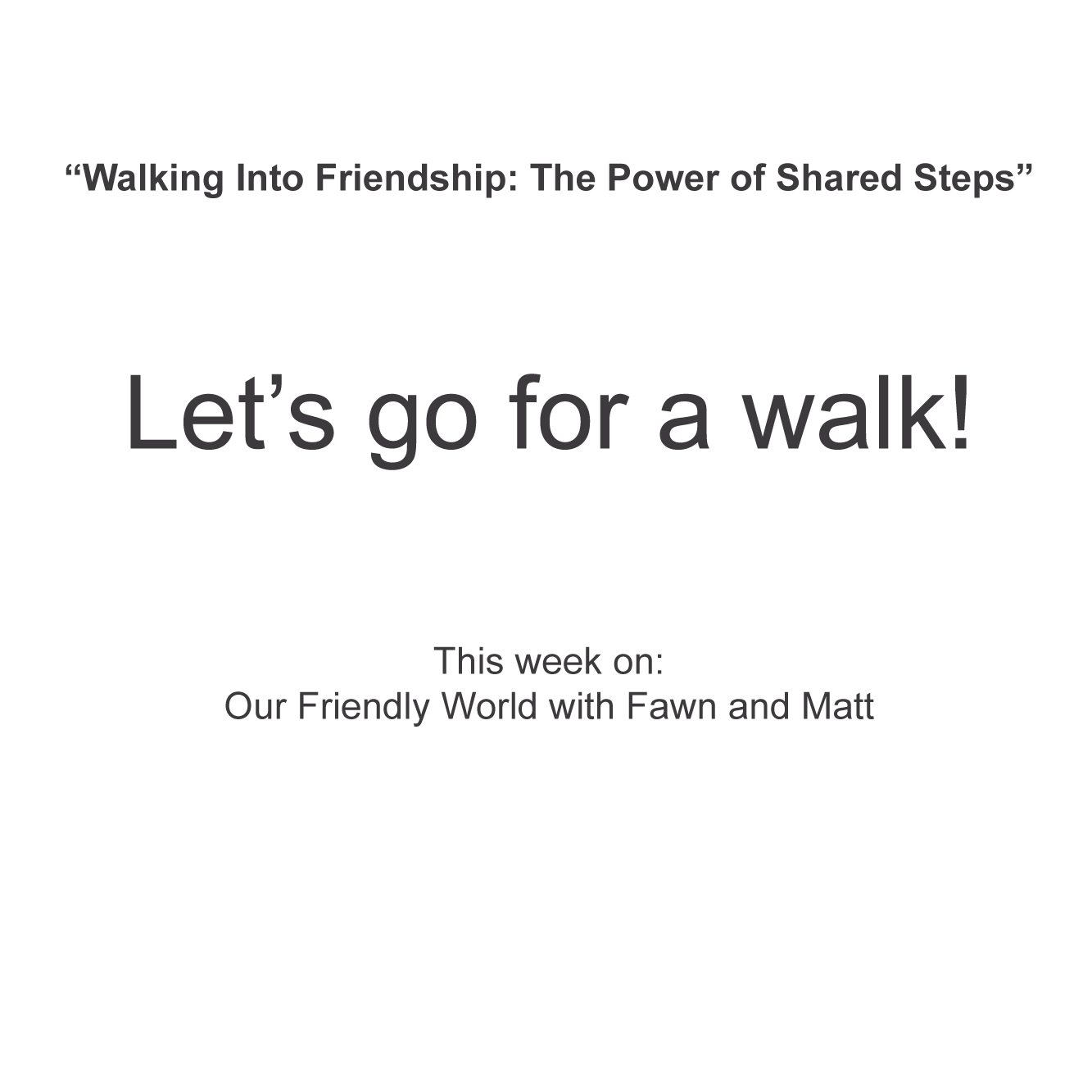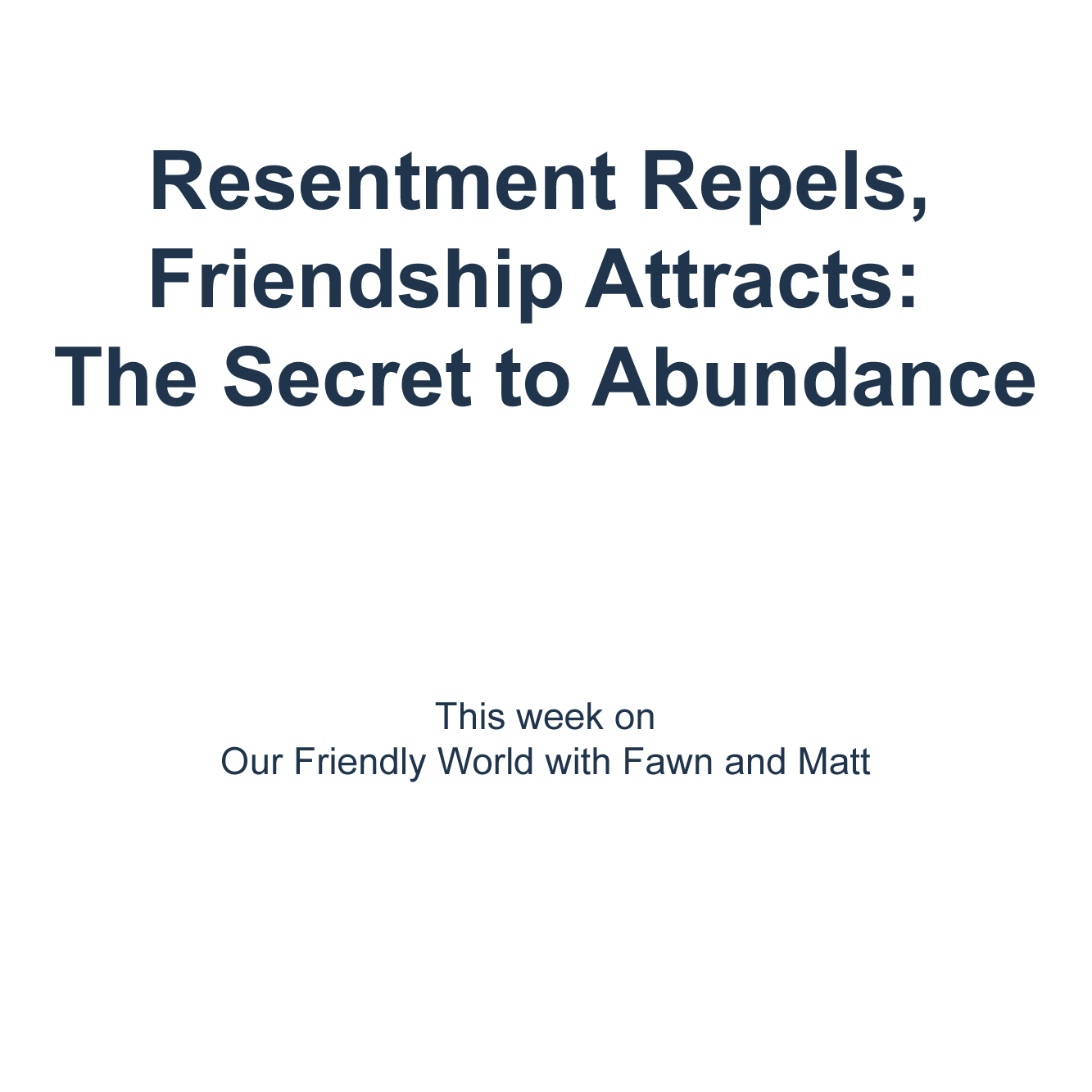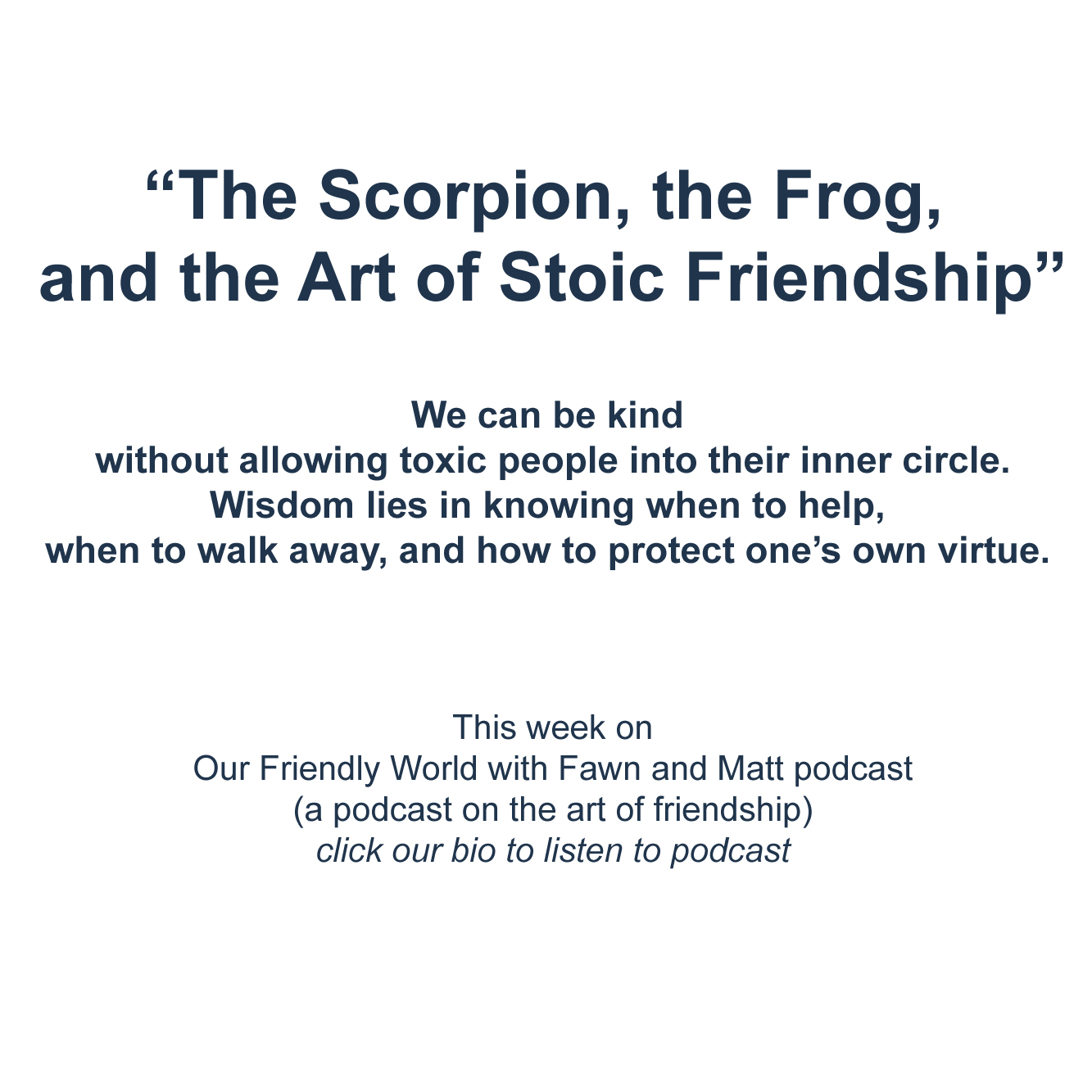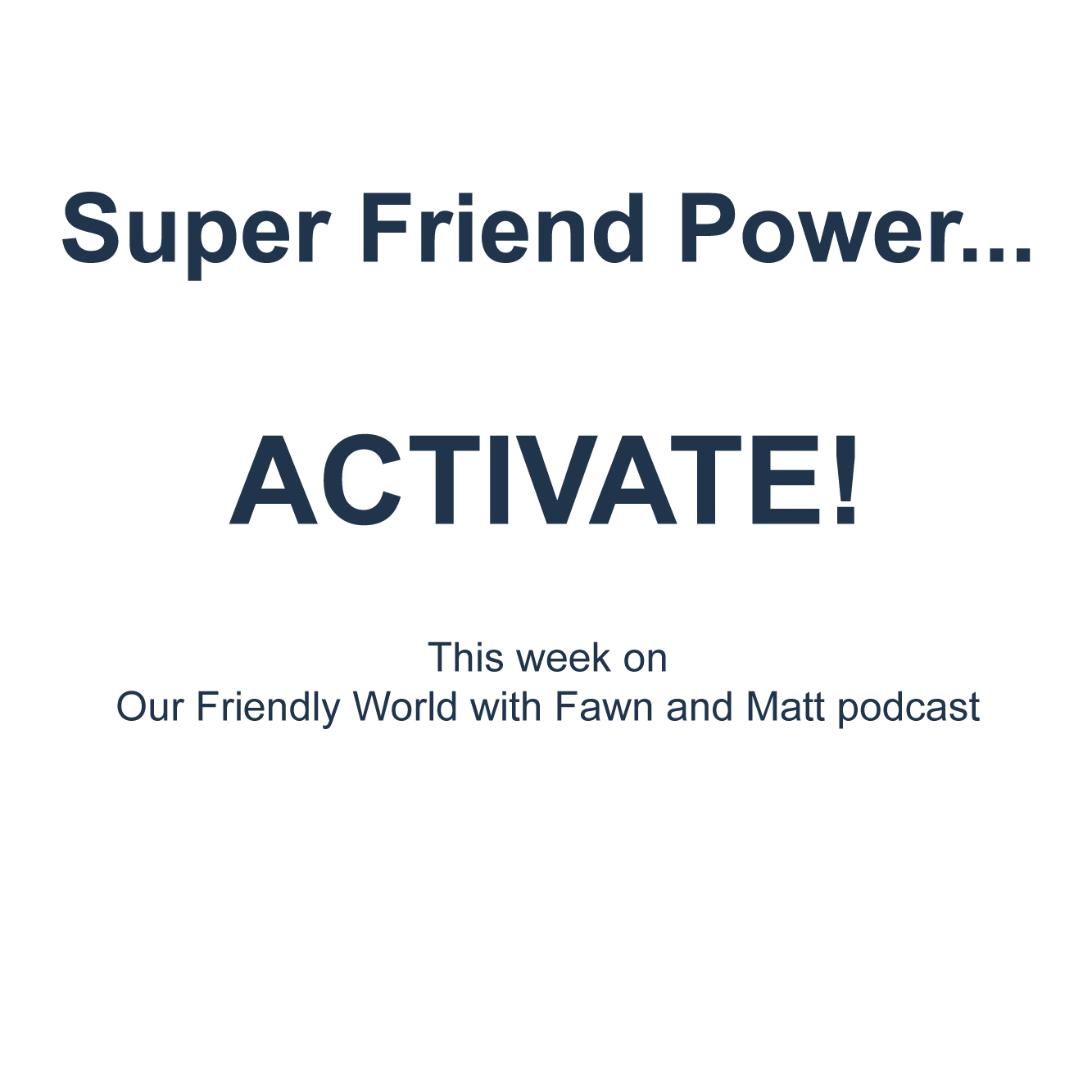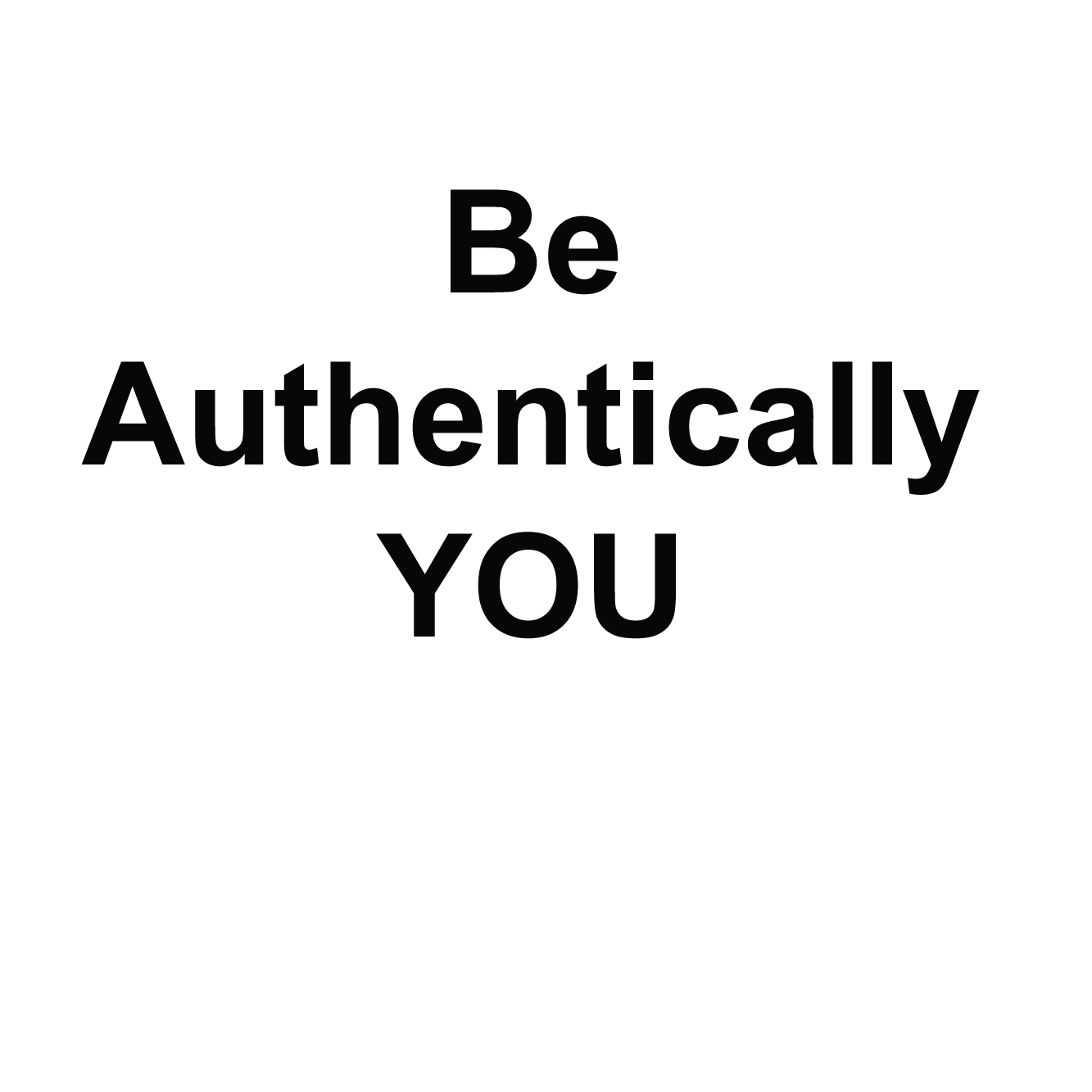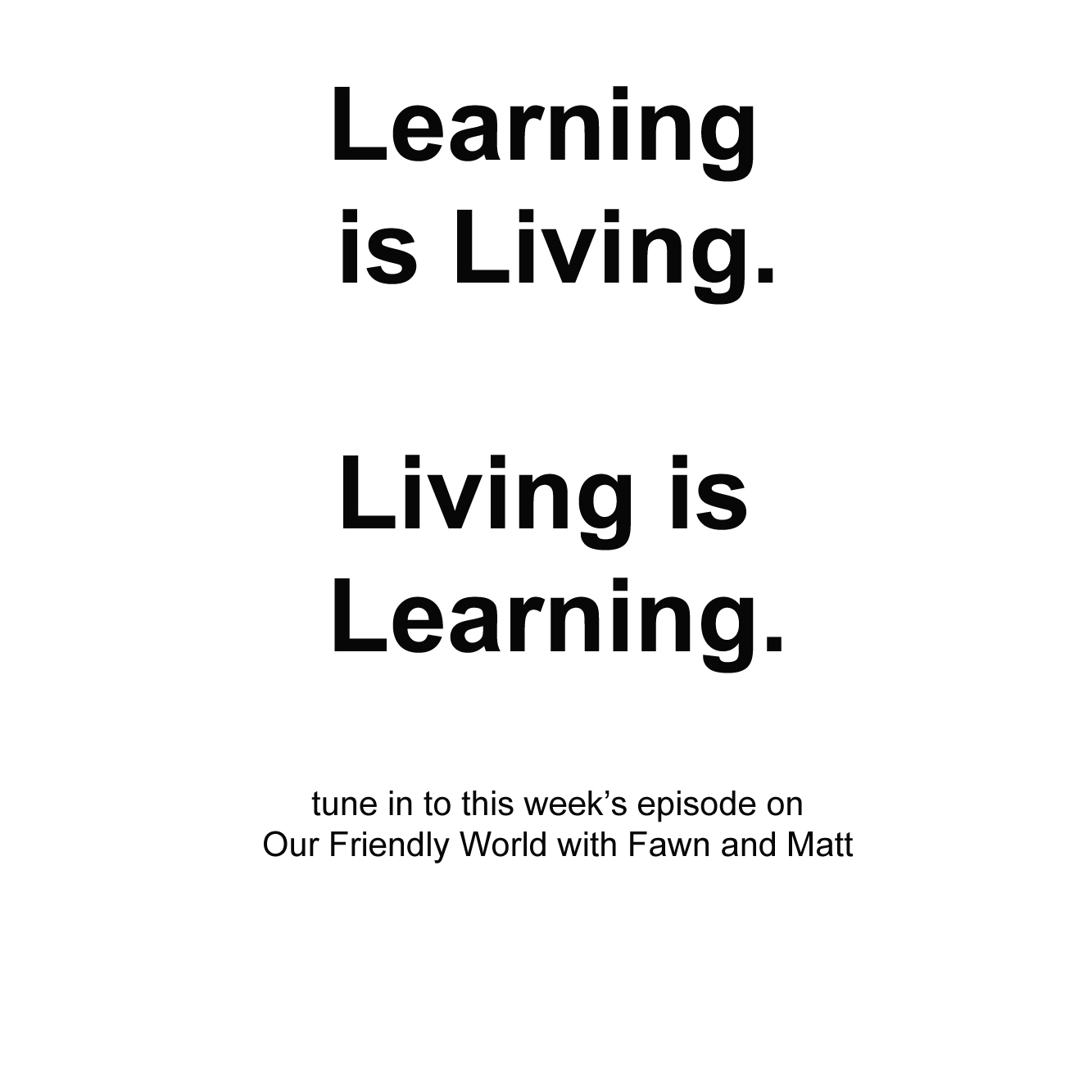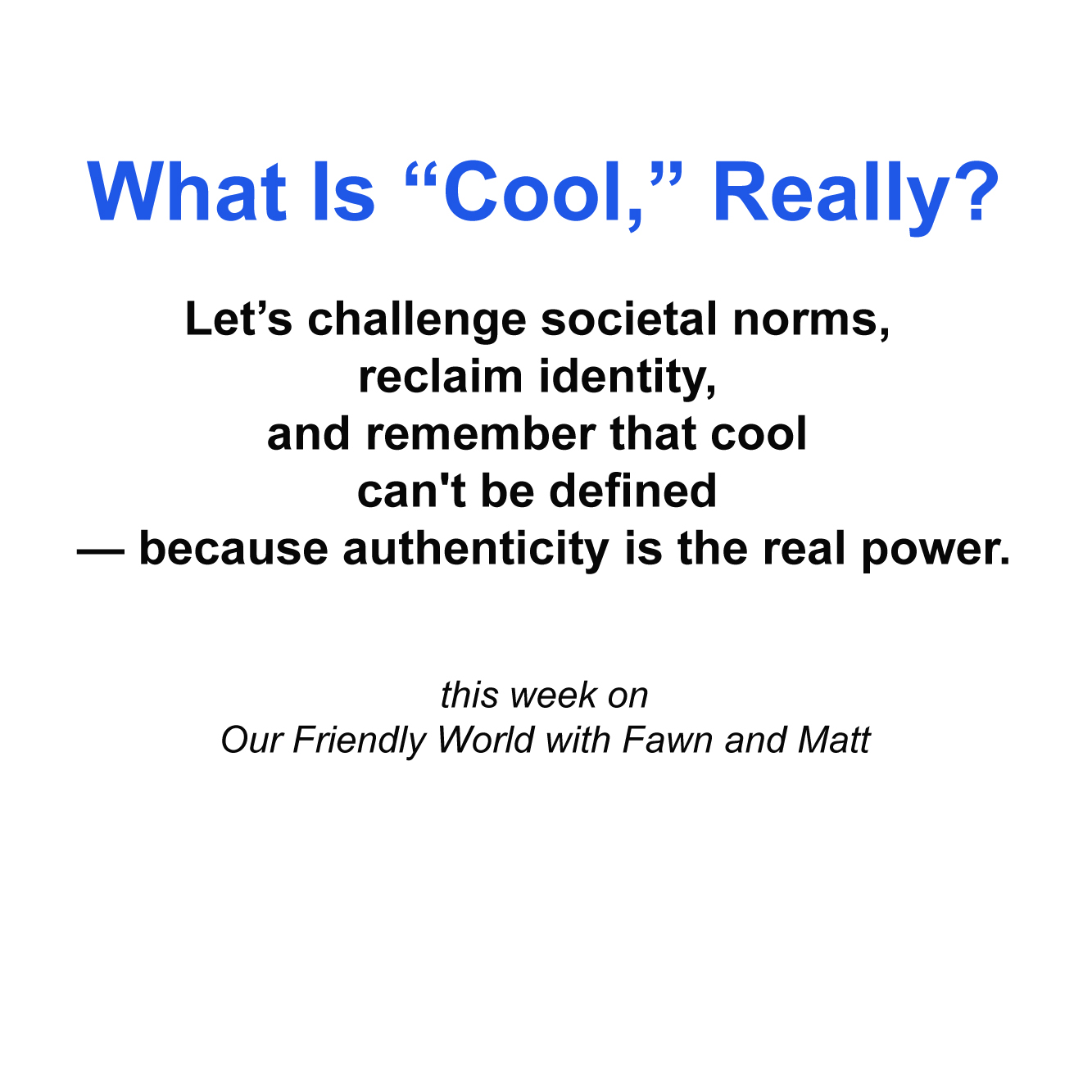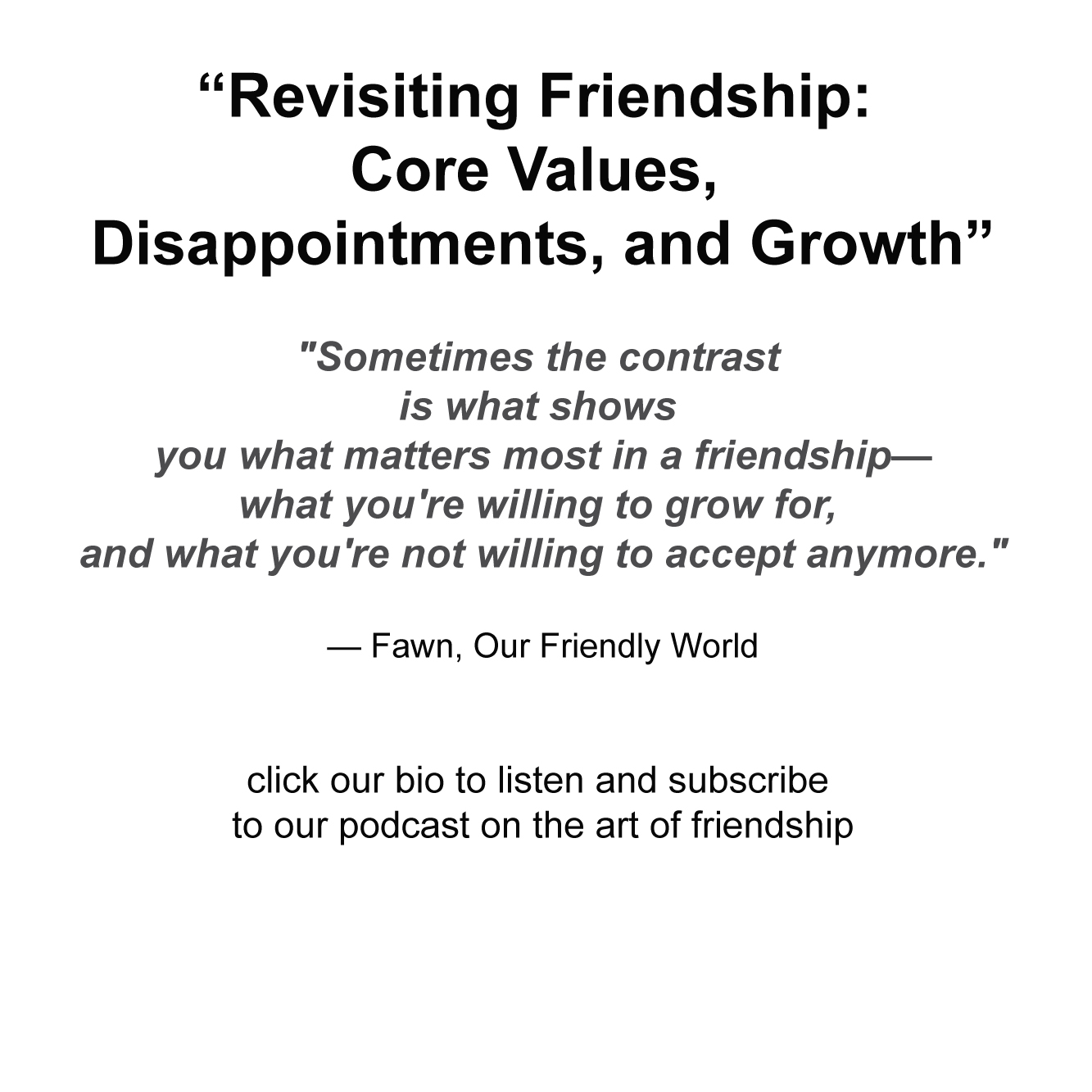The Yard Stick – How we measure up and what is the measure of a human?
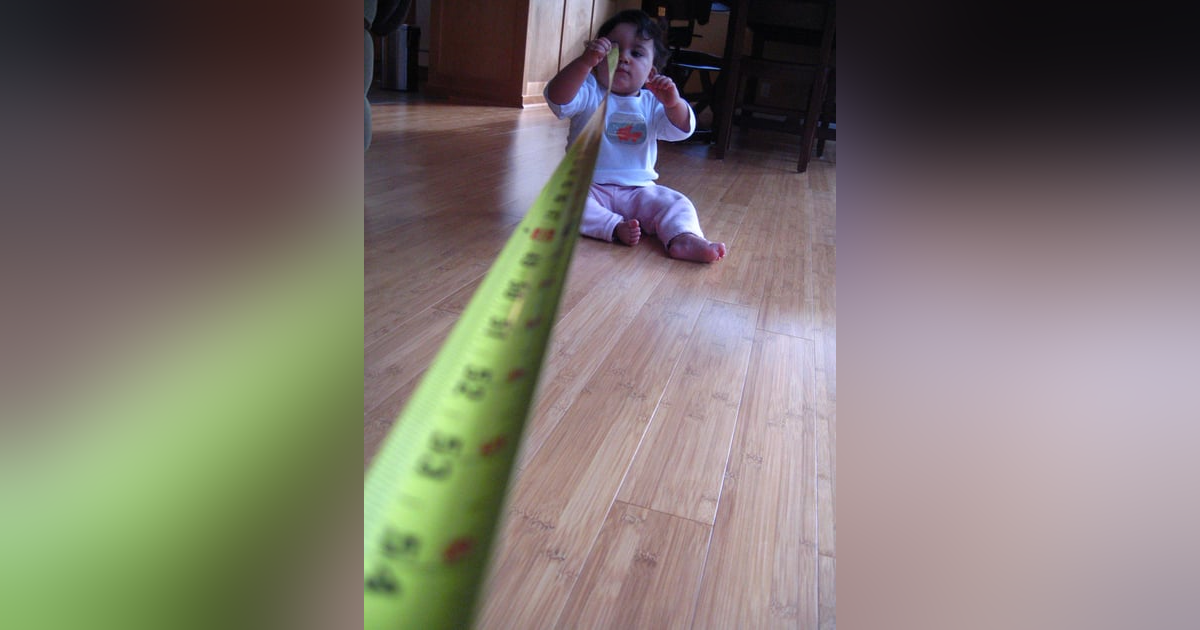
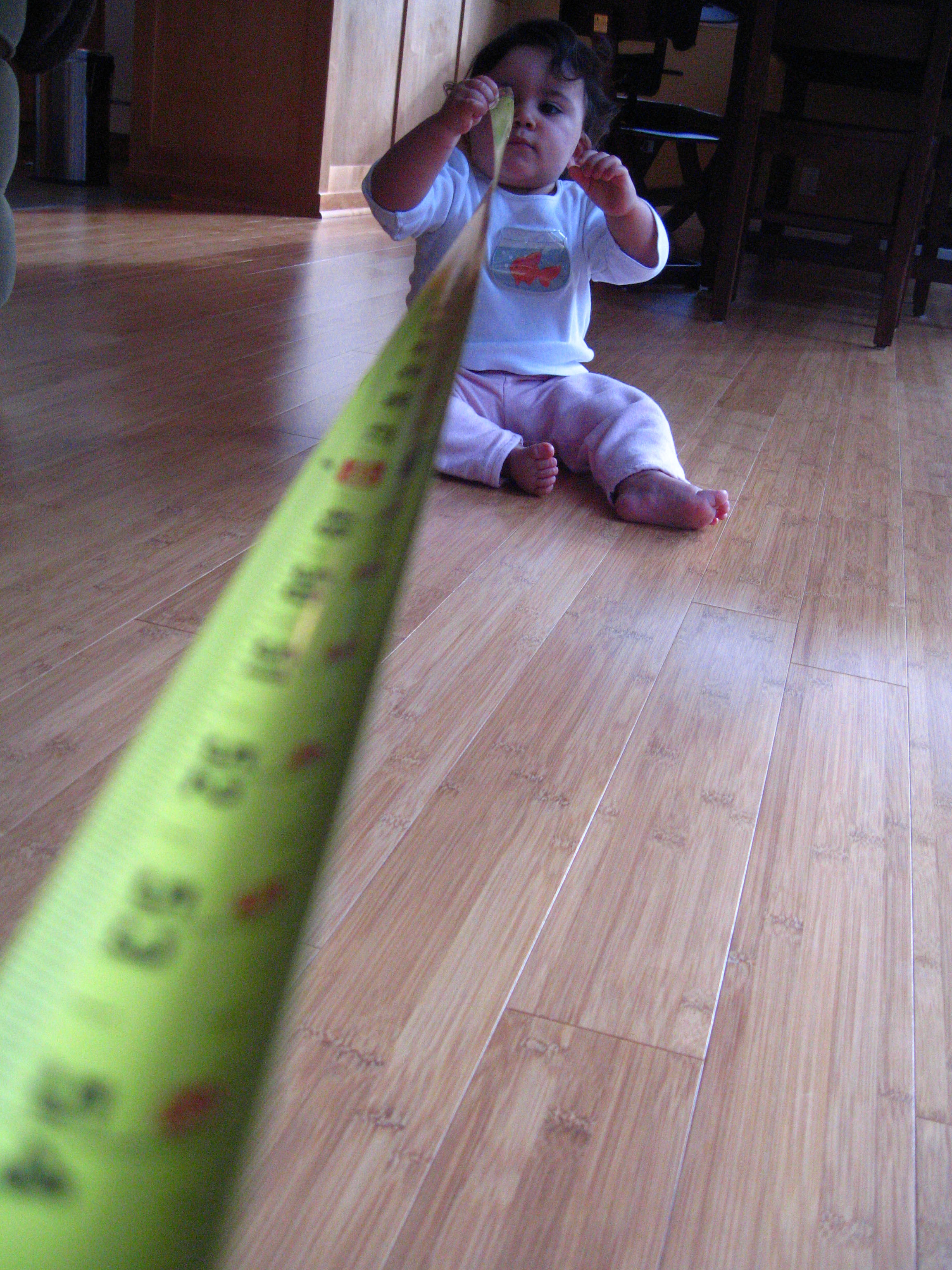
Hall of fame quote from this episode - Matt: Everybody has like one yard stick and that's a big problem because it allows us to measure everyone against this one yard stick.
Fawn talks about Ancient Greece, Sparta, and the similarities to the government style of rule in the United States, in a way, asking if we are treated as the same way these ancient governments treated people in their society.
How can we have equilibrium?
How does currency and war factor in the society? What is the price for a country like the United States (a country that has always been at war of some kind)? What kind of society has that created? What kind of feelings is now embedded within our bodies and our spirit from the generational violence that we don’t fully understand we take part in (that we have been part of)?
We also talk about how we measure time. Why is it that time seems to stand still sometimes?
Why do we settle for situations that are not life affirming?
Can you distinguish between your true desire, and desiring something out of envy?
Why does it seem like we always want more? Fawn has an answer.
When can we throw out and get rid of the yard stick? Matt has the answer.
Hall of fame quote from this episode - Matt: Everybody has like one yard stick and that's a big problem because it allows us to measure everyone against this one yard stick.
Fawn talks about Ancient Greece, Sparta, and the similarities to the government style of rule in the United States, in a way, asking if we are treated as the same way these ancient governments treated people in their society.
How can we have equilibrium?
How does currency and war factor in the society? What is the price for a country like the United States (a country that has always been at war of some kind)? What kind of society has that created? What kind of feelings is now embedded within our bodies and our spirit from the generational violence that we don’t fully understand we take part in (that we have been part of)?
We also talk about how we measure time. Why is it that time seems to stand still sometimes?
Why do we settle for situations that are not life affirming?
Can you distinguish between your true desire, and desiring something out of envy?
Why does it seem like we always want more? Fawn has an answer.
When can we throw out and get rid of the yard stick? Matt has the answer.
Matt: “Let the world surprise you.”
At the end of the episode (around min 58), Fawn has a very cool share that may help those of you frustrated with waiting for something big in your life to happen.
TRANSCRIPT:
[00:00:00] Fawn: [00:00:00] Here we go. Here we are. Here we go.
Matt: [00:00:05] Good evening. Good night.
Fawn: [00:00:06] Hello everybody. I just recently learned what GMT was. Cause I couldn't figure out when our show airs and I was telling everyone midnight, one minute past midnight folks! And my friends over in Seattle, they're like, we're hearing you at 6:00 PM at dinner time is when we listen.
I'm like, no, it comes out at one minute past midnight for those of you in the UK. That's when it comes out. Good morning. Good evening. Good afternoon. Hi everybody.
Matt: [00:00:33] Hello. See, I always knew what Greenwich Mean was because yeah, I had to book, I read and they said Greenwich effing Mean it was just funny.
Fawn: [00:00:43] So why is everything revolving around the UK and
not everything?
Okay.
Well, all right.
Let's not
Matt: [00:00:49] forget that once upon a time, the sun never set on the British empire and that was like a thing. What do you mean? Well, they had so much territory all around the world that. Anywhere, [00:01:00] like anywhere, like the sun was always up over one section of it because they own flipping everything right.
From India to Australia, to South Africa
to,
Fawn: [00:01:11] yeah, it's funny because when I would travel all the time for photography and everywhere I went, there was a stamp from the British, like there was something they left behind, you know what I mean? And it was usually a very scary, like I kill you here. All right.
Um, it was two 30 in the morning. There was an earthquake Santa Monica, and one of the biggest cockroaches started climbing up the wall.
Matt: [00:01:43] Is this a Nugget of Wisdom??
Fawn: [00:01:45] Yeah, negative. And, you know, I had Herman and Harriet visit me every Saturday night when everyone else was on a date, including these cockroaches, Herman and Harriet.
Matt: [00:01:55] Right.
Fawn: [00:01:56] That I called Herman and Harriet. I swear every Saturday when everyone [00:02:00] else seemed like they were on a date, these two () I already talked about this, but reminder ),these two cockroaches would come out and watch TV. It was crazy. I'd be watching a movie or something by myself and they would come out and I'm like, look at that.
They even have a date. Everyone has a date, but me, even these roaches, because one was slightly bigger and they looked like husband and wife to me.
Matt: [00:02:22] See, this whole thing is vaguely disturbing. Go ahead.
Fawn: [00:02:25] Anyway, this isn't about them. This is a different roach. This roach
Matt: [00:02:28] (Matt laughing...) This is a different roach. Awesome.
Fawn: [00:02:31] There were many in this building by the beach.
Matt: [00:02:33] Come to beautiful Santa Monica.
Fawn: [00:02:35] Well, no seriously, but apparently they weren't roaches. They were called a water beetles. They're really big. And when they walk, you could hear them and they're like tap dancing when they walk. It's loud. So this particular one really disturbed me for some reason. It could have been from the earthquake. I was already rattled in more ways than one and maybe the, because the walls were rattling, this guy [00:03:00] popped out and I was staring at it. And I, this day I got really freaked out. So I yelled for, for my friend. Michael seems to be a popular name.
It wasn't the Michael Flinkman that I talk about with the nuggets of wisdom, this Michael was my friend who was an architect who lived next door and we also talked through them plumbing. So it's two 30 in the morning. The earth shook and I'm like, "M I C H A E L !" Help. Michael comes running in his underwear, like, you know, his sleepwear,
Matt: [00:03:37] Eye to the chi...And during an earthquake.
And he'd had to know what the heck is happening to this poor guy. Yeah.
Fawn: [00:03:43] Never thought about it until now. Actually
Matt: [00:03:45] you could be pinned under some random thing.
Fawn: [00:03:49] Yeah. He did come with a total like hurry
Matt: [00:03:52] Right. Of course.
That's exactly what I would
do, but yeah.
Fawn: [00:03:54] I'm sorry. I'm sorry Michael. I totally didn't think of it like that.
The thing is I saw a Roach
[00:04:00] Matt: [00:04:02] anyhow,
Fawn: [00:04:03] but those roach. The energy of this roach really freaked me out. So here comes Michael and he's there and I'm holding myself really tight. So I think I, I, I mean, I don't think I was yelling, but I'm holding myself tight and I'm not saying anything. I'm just pointing to the Roach and he's like, "FAWN -. Don't yell." I'm like, I'm not yelling. He's like, don't yell, Fawn. I don't know. But I wasn't, I don't think I was so like, we were going back and forth. He's like Fawn, stop yelling. Don't yell. I'm like, I'm not yelling. You're yelling. Meanwhile, the music has been on the whole time in my studio. And guess what the song is while he's trying to kill this Roach with his flip-flops.
Matt: [00:04:51] "I'm walking on sunshine."
Fawn: [00:04:53] "What the World Needs Now Is Love, Sweet Love."
[00:05:00] Do you know how that goes? Can you try to sing it?
Matt: [00:05:03] (Matt singing) What the world needs now is love, sweet...
Fawn: [00:05:08] This music is BLASTING! It's like do, do, do do, please. Don't Sue us. That music was like loud because it was on before the earthquake. Right. And while I'm telling him to kill it, I'm hearing the irony of what is really happening in the song.
Ah, so anyway, that's the nugget of wisdom.
Matt: [00:05:33] Okay. What's the wisdom in THAT?!.
Fawn: [00:05:35] What the world needs now is love, sweet love. No matter what is freaking you out. Just remember that. Cause that stopped. That stopped me. I'm like, don't kill it. Just take it outside please.
Matt: [00:05:46] Oh, okay. So we didn't end up killing it.
Okay.
Fawn: [00:05:49] Actually my, my memory stops.
Matt: [00:05:51] Right, right. As the crunch sound. Woops, sorry.
Fawn: [00:05:54] NO!!!!!! I don't think he did. I really don't think he did, but my memory does stop right. When I [00:06:00] realized what the song was saying.
Matt: [00:06:02] Okay.
Fawn: [00:06:02] And so fade out from there. Nugget of Wisdom: what the world needs now is love sweet love, regardless of how rattled you may be, how scared you may be and whatever you're looking at, whatever is going through your mind, really what we need is that .
All right.
So do you want to lead today's talk, honey?
Matt: [00:06:24] Of course not.
Fawn: [00:06:25] Usually I start the show. Matt has no clue what we're going to talk about. So I'm like, okay, so you know what, today, these are the choices it's been a while since you and I just talk by ourselves,
Matt: [00:06:37] it feels that way.
Fawn: [00:06:38] It feels that way because we've had so many people on lately and that's right.
That's usually not our thing. Even though we have a round table, Where are we have friends talk and we all talk together. We just riff you and I ...just... that's what we do.
All right, I'll start. So, okay. So we were talking at the round table about ancient Athens and [00:07:00] Sparta, and we were talking about the 1% and we were talking about the CEOs and we were talking about democracy, oligarchy, monarchy, like all the different ways that our society is ruled and taking a really good look at that.
I've been really obsessed I'm not sure, but really taken by ancient Greece and how the United States totally I want to say resembles, but that's not the word I want to say. They really copy the ancient greek government
Matt: [00:07:30] in a lot of ways, for sure.
Fawn: [00:07:33] In almost every way from even the artwork that's hung and all the different buildings,
Matt: [00:07:38] right.
Fawn: [00:07:39] To the structure of the buildings, to the facets of the government, it's almost identical, like really?! And I say, really, because, when you first start, when you're a kid and you start learning about Greek democracy, you're like, wow, that was the best. And you know, that's what America touts, it's where the "best government in the world", [00:08:00] democracy, democracy, democracy.
But if you really look at it, we're actually an oligarchy and that ancient Athens never really had a democracy either. They tried, but they had different ways. The rich people preferred oligarchy and that's ruled by a few powerful men.
Matt: [00:08:16] Right. Yeah. And while, yes, indeed, officially, officially on the books, we are a representative democracy. Yeah.
And that's, that's also forms that they had a
lot of people throw around an awful lot of money to make laws that
they're going to like,
Fawn: [00:08:31] and that's an oligarchy.
Matt: [00:08:32] And so then that's affecting it like an oligarchy, yes.
Fawn: [00:08:36] And not, everyone was considered a citizen.
So ancient Athens, women were not considered citizens. Slaves were not considered citizens. And then there was Sparta and they had slavery too, but their society was actually more, even if you were, if you were to compare it directly to ancient Athens. Right. Right. So they had [00:09:00] slaves, but, Okay.
You know what? I don't want to get into all that. But so women in Sparta were equal citizens, and we were talking about how Sparta, didn't have money. They didn't want money because the leaders about that, it would create an unjust society that if you bring in coins, if you bring in currency that it would completely have an unequal standing with the people.
Like somehow people will have more money than other people, and it will create an unjust society.
Matt: [00:09:35] If I'm bartering, if you and I are both farmers and I swap my olives for your beef or whatever it is we swap we're done. We also have commodities that'll spoil. So certainly, but once, once you introduce money and money as this kind of, uh, you know, it doesn't wear out, it doesn't rot,
there will be those people who are always going to seek to amass, all of, as much of it as they can. It's human nature. [00:10:00] Unfortunately, greed is human nature.
Fawn: [00:10:01] What I've found interesting was they didn't use money until war came around. The only reason they started to use currency was to pay non Spartan soldiers to fight Macedonia. It started to make me think because you and I always talk about how isn't it interesting in the United States, we've always been at war. war of some kind. And whenever I say that, people look at me weird, like they look at me the same way they would look at me when I said, you know, uh, we're having a friendship problem in our society, in our culture, in the United States. I get the same look from people.
When I say the United States has always been at war. But think about it, they'd go about and how it started. Think about all the ways that they, they took the land. Think about what they did to each other during the civil war. Like it's never ending. It has been never ending.
Matt: [00:10:56] Right? I think it's one of those things that people get [00:11:00] want to be comfortable... people hate the word always because it's one of those huge words .
Fawn: [00:11:03] You hate the word always.
Matt: [00:11:04] Right. And if you splice it perfectly, I would say. But, but Fawn between June and August of this year, there were no Wars fought and all of a sudden, then I can say it's not always, but yeah, it kind of basically,
Fawn: [00:11:18] no,
it has been always because he may not be on our territorial space, but it's overseas somewhere.
Matt: [00:11:27] Well, again, I don't want to start splitting hairs, but I'm sure I could come with a week period, a week's worth of days, seven days that we weren't actually a war with somebody in the history of the United states.
Fawn: [00:11:38] I, I challenge that. I would like to be shown when that was. And isn't it interesting, we're saying for seven days, like, were there a few days where we weren't
Matt: [00:11:48] and that that's just it as a, as a computer programmer, you know, that's, that's how I handle these types of arguements..
Fawn: [00:11:55] I know, I know. I actually appreciate that about you. Cause I tend to say [00:12:00] always about things when I'm just over exaggerating. I really don't think I am here. You know, I don't have specific facts about every single day
Matt: [00:12:08] It seems like certainly in the modern age, we've always had at least tensions with other countries.
It's not like we've ever been at a point where we're like, yeah, everybody let's just be mellow. There's nobody upset with us or anyone
else. I know. Well, and there you go,
Fawn: [00:12:27] ...that you know of...Because anyway, um, uh, this is veering off to a different tangent. I will say that I remember a few years ago, listening to this man being interviewed, who decided to with his wife leave the United States.
And they drove, they drove to Canada, they moved to Canada and this was a pretty stoic person. He was saying that as soon as he crossed the border to Canada and he saw the Canadian sign. And that he knew in fact, now they were [00:13:00] now in Canada, living in Canada, he immediately started to cry. And that he was not a crier.
And he was saying, I never thought the amount of stress and pressure I felt being in this country, in the United States, the violence, the constant being at war. I never realized that I had that pressure on me until I left. And that made him cry.
Matt: [00:13:29] Right.
Fawn: [00:13:29] And in some ways that's how I felt every time I traveled outside of the United States to go photograph another culture, I felt so many different things.
You know, my big thing was the friendship that made me cry, that we didn't have the same friendship that I'm seeing existing and all these other places that I thought was just me feeling like the sense of friendship and the grandness of friendship and friendship being the most important thing to me, the way I [00:14:00] felt, I always felt like I was the only one who felt that way, but once I started traveling again, when I was old enough to just go on photo shoots and do things on my own, I realized, wow, it's not just me.
These cultures value friendship, the way I thought it was supposed to be valued, that we don't in the United States. So much like the same kind of epiphany he had about war and the tension. Right. And so going back to the currency thing that we were talking about at the round table, you and I always talk about, isn't it interesting that after a big war where everyone is definitely aware that we are at war,that the economy gets boosted every time.
Matt: [00:14:47] Well, this is one of those cases where the government has to throw lots of money at building planes and training men and building an army and paying for this army, et cetera, et cetera.
Fawn: [00:14:58] When I was reading about [00:15:00] Sparta, em, that they started using currency only because of war, it got me thinking, thinking about is this how they generate money? Currency is through war. Whereas shouldn't currency be a positive thing, shouldn't it come about from great self-worth great esteem. Being able to make money with the highest of standards, with the greatest of care and kindness and creating value to life rather than the opposite, which is to destroy and break down?
And just looking at currency, I was thinking about, wow, look at this piece of paper that we give such value to, but we don't give that same value to each other as human beings. We don't value life the same way we value this piece of paper.
And I'm not saying that other countries around the world do this, [00:16:00] but this is the culture that we've been raised in you and I am at. Right? And it seems like that's the most valuable thing and relationships are not, people are not. And if you look at the terminology, if you look at the words that are used, is there to dehumanize people, to make us feel like this group over here is not worth anything.
So if the message subliminal or not, if the message is constantly out there saying these people are not worth anything, not even calling them people. So when the atrocious things are done to certain groups, certain social groups, more people are apt to look away, not say anything and not say, Hey, that is wrong. Stop. What are you doing?! That needs to stop! That never should have happened. And instead we're using words now, now that we're [00:17:00] finally having more people speak up, you're hearing words like "enough is enough". And when I hear "enough is enough", that really bothers me like, Oh, so at some point it was okay.
For you to say enough is enough. Like, okay, that's enough. It never should have happened. Do you understand what I'm saying? Do you understand what I'm saying about the enough is enough? Why are we saying enough is enough? Like that means it was okay.
Matt: [00:17:26] It infers for sure. Absolutely no argument. It's just a question of saying, okay, I'm going to draw.
I'm finally, we're finally going to draw the line in the sand and not that it was ever okay. But that now it's literally, it's ridiculous. And everybody needs to stand up and do something.
Fawn: [00:17:42] But now it's ridiculous? What I'm saying.
Matt: [00:17:45] I know, I know
Fawn: [00:17:46] You know. No. What I'm trying to prove is how words are so embedded in us that we don't even realize we're using it and what it really means. Going back to estimations and [00:18:00] esteem. We were looking at the word estimate and esteem. They both have the same core meaning, which is value. And so you brought up some good questions for us today.
Matt: [00:18:12] Well, it starts with, we kind of view people differently based upon what we perceive to be their social group. So if we are, you know, if somebody is a valet or a waiter, we treat them differently than we treat someone who is a CEO of a company or our boss.
Fawn: [00:18:36] Yeah. Is that because they're attached to that note, to that currency
Matt: [00:18:40] or that uniform in some cases, and I think there's a lot of people. People don't tend to see the person checking them out at the grocery store. You know, this is just hello.
Fawn: [00:18:51] People don't even see me. I'm standing
in line.
Matt: [00:18:54] Right? Exactly. But this is just a functionary here that you murmur a pleasantry to. But heaven help you if they [00:19:00] get the order wrong, if they mess up on your, checkout, , or they're too slow or they're too anything. Oftentimes we won't even necessarily see people who are queued up with us at the supermarket either.
They're just an obstacle in my way. They're not actually people.
Fawn: [00:19:15] And I can understand everyone listening right now say, well, I don't do that. But even I do that like the other day I was out and I was worried and the person and I were talking this person that was in front of me. And later when I went home, I'm like, I couldn't tell you what she looked like.
I couldn't tell you the color of her eyes. I couldn't tell you the color of her hair. And we were together for at least 15 minutes talking and she was actually a nurse that I was dealing with. Right. She was giving me a shot. And why is that? I totally didn't really look at her. I was under pressure. I had a lot on my mind.
I was scared a little bit. I was in a situation that was new. So there are many [00:20:00] factors why we do this. So I'm not saying, I'm not trying to say, Hey, you know, look at us. We, if someone, I'm usually the one saying, Hey, you know, you guys don't see me. You guys think I have a certain coloring and a certain look.
So you think I'm here to wash your house. You here, you think I'm here to clean your house. And I get ignored all the time. Right? So I have been behind the counter. I've had many jobs and yes, people totally treat you differently. They mistreat you most, most of the time, but even being a customer, just like standing in line, people ignore me all the time.
You know, it's the same thing. I'm not trying to say, Hey everybody, we're all racist. It goes beyond race and class structure. It's also just being so in your own head and your own thoughts and in your own troubles and in your own world. It's so simple to just stop that for a second and take a [00:21:00] breath of fresh air and smell what's going on around you and take a look at the sky and maybe notice the flower that's out there trying to wave to you.
It's the same thing when we're in front of each other with people; to really look at someone. It doesn't take any effort really. And it gives you more energy when you do that, because it expands you. It expands your myopic way of thinking and feeling.
Matt: [00:21:26] That is definitely true.
Fawn: [00:21:27] Myopic being, having tunnel vision.
Right. Right. And not even tunnel vision because at least with tunnel vision, you're still looking out there. But to have the sense of mind to notice, Ooh, there's a tree here. You've been ignoring this tree. Or there's air that I'm breathing. Let me take a deep breath. Ah, okay. And then you start noticing more.
And if we just do that, not only does it help you to feel better, but you end up connecting with your fellow human being or your fellow animal out there, your [00:22:00] fellow.
Matt: [00:22:01] Well, I think we need to stop looking at people as obstacles and look at, you know, because I'm late because I'm busy because I have 85 things to do, and everybody always says 85 things to do.
But do you remember when you used to slow down? I mean, for me personally, when I would slow down, it seemed like I could get more done.
Fawn: [00:22:20] You have more time.
When I was a baby? Yeah. I did weird things even when I was in diapers and I can remember them, but I remember looking at the clock and trying to slow down the second and the second hand, meaning the seconds that it counts.
Right. And then later much, much, much, much later I realized that's a meditation technique. Right. I knew very early that this whole time thing was just some rule that we have in our society. Like it's going to be this time. This time is when this happens and then age, this age is when this happens.
No, no, [00:23:00] you can just realize that all of that was manmade, That, and if you think about it, if you look at Einstein's work and the theory of relativity, there is no, it's not linear. Everything is happening at the same time.
Matt: [00:23:14] Yeah. But Einstein was, was nutter, I mean, he came to the conclusion that he had to throw out time as a constant kind of factor.
And so he did because that's what he could see and that's where we follow. But absolutely. But yeah, there are those periods of time where time seems to stop AKA when you're in detention. Well, why is that? Is it just because you're still, is it just because you're only focused on one thing, which is probably getting the heck out of detention?
Fawn: [00:23:43] That's a good question. I don't know if we can put it into words. How does it stay still? You know, when you have scientists that are teaching meditation now, like the scientists they try to break it down to, and we talked about this, like being in the gap, minding the [00:24:00] gap, you have to get into that place of nothing, the nothingness where you're nothing and there's no, there's no thing. There's nothing .You're in that space. Like even when you break cells down, if you keep magnifying a cell and you re they realize that things aren't actually happening within a cell, it's on the outside of this cell, where there seems to be nothing. And it's in that space where the true magic is. That's where you can manipulate things.
That's where you can change things, right? So maybe when you're quiet, you're accessing that space of nothingness and you're able to manipulate, you're able to change experiences and you're able to step outside of that manmade structure of time. Right? Slow things down,
Or, maybe when you're really bored, your brain speeds up because it wants to find something to do.
Matt: [00:24:55] And in the process of your poor little brain speeding up, it means that time [00:25:00] starts to elongate in your head.
Fawn: [00:25:02] No..
Matt: [00:25:03] (Matt laughs).
Fawn: [00:25:06] No, it's when your brain slows down. When things speed up, we feel like we don't have any time.
Matt: [00:25:12] When things speed up. Yes. But,
Fawn: [00:25:14] and when you speed up, yeah. Right? All of a sudden you have a meeting at nine Oh five followed by another one at nine 26, you have, in the meantime, you're multitasking, you're doing all these things.
And then this is getting your attention. That needs your attention. And what are you really doing? Nothing,
Matt: [00:25:32] Maybe.
Fawn: [00:25:33] I mean, out there, have you noticed the past couple of years, the meetings have increased. If you have a job job, like a job, if you have an office job, how many meetings are we all in back to back to back to back and how much work is being done?
Matt: [00:25:48] I don't know 100%. I'm not a hundred percent sure. That's fair. I mean, certainly at the position I'm at right now, yeah, it seems like we have a lot more meetings. I don't know if that's universal. That's all, but it does certainly feel that way for me.
Fawn: [00:25:59] What I'm [00:26:00] trying to say is you get yourself. There's the four letter word busy.
You get yourself busy. And what do we really accomplish? When people are really busy, when friends are really busy, you're taken away from the main source you're taken away from the main path that you have your true desire.
Matt: [00:26:18] Well, you're certainly distracted. It's a lot. Yeah. That was going to say it's all about distraction.
Can you, can you read the other questions that you had read all the questions again, just read the questions that you had.
What were they again? Um, and, uh, complete derail. Let's, let's go off on the rails for a second, but why do we feel that we always get what we deserve or get what we feel we deserve?
Fawn: [00:26:46] I don't feel like I get what I deserve.
I deserve great accolades for my photography
work.
Matt: [00:26:52] Okay. We're talking about people with normal esteem or normal self-esteem or
Fawn: [00:26:58] are you talking about people who [00:27:00] just settle? I think I might be. So could it be a better question to say, why, why are we settling?
Matt: [00:27:06] And perhaps
Fawn: [00:27:08] because we can't dream bigger because we don't think we can. Because there's no hope
Matt: [00:27:13] or because this is what we see all around us, you know?
Um,
Fawn: [00:27:17] again, being myopic right?
Matt: [00:27:20] In my neighborhood, in my, you know, there I am, I've got my lovely tract house that's just like the one next to it. And my next door neighbor buys a new car. So then I buy a new car and
Fawn: [00:27:32] I think there is a difference between following the Joneses, which how do we explain what that means in other countries?
There's a difference between wanting something because you're feeling envy because the person in front of you has it,
Matt: [00:27:48] or the person next door. Yes.
Fawn: [00:27:50] I mean, you're not even really, truly thinking, is this what I want? Right. You think it's what you want because you're trying to achieve a certain status. [00:28:00] And why are we going for that achievement of the certain status?
It comes to value again, self-esteem. There's something missing inside of us that we're not getting. So you think, well, if I have the car, I'll get it. If I have this house, I'll get it. Really the core of everything is to have all your basic needs met, first of all; that you're healthy, that you have proper food and water to drink shelter, and you have shelter; that you are safe.
But there is that feeling of not feeling safe, much like that guy I was talking about who drove to Canada, who moved to Canada. And immediately once he crossed the border, he realized how much duress he was actually under the whole time. It was a subliminal thing. It was something he he didn't even know was there.
Like whenever there's something that's bothering us, there's a noise that's bothering us. And not until it stops, do we realize that noise was there and it was really bothering us. [00:29:00] Am I the only one who's got that? Have you ever felt that? Yeah, absolutely. Like when you turn off the sound in the background, you're
like, Oh yeah.
Matt: [00:29:07] Uh, much, much more tangible is I've worked at jobs that have been very stressful, extremely stressful. And after a while you get quote unquote used to it.
Fawn: [00:29:17] Right.
Matt: [00:29:18] And when I left that job or maybe was asked to leave, let's not, let's not split hairs. Um, the first thought that goes through you is what just happened.
And then the second thought that went through me was thank God, thank God I am free.
Fawn: [00:29:34] Right.
Matt: [00:29:35] So yes, no, no, no, no. And that's certainly a much more tangible, I think think God help me. I hope not everybody has been in that situation, but it seems like another one of those kinds of universal things, which is, you know, your work is asking more of you than perhaps it should
Fawn: [00:29:50] Right. And, or you were in a really bad relationship. You know, of nothing else. So that's normal. And then you start craving that normal because it's at least [00:30:00] something that's familiar to you. Right. But when you step away from it, you're like, Oh, thank God I'm out!
Matt: [00:30:08] Right. Yeah. Well, it's certainly once you gain that perspective, for sure.
Absolutely.
Fawn: [00:30:11] So could you repeat that question again? Cause I, now I'm like off on so many tangents in my head. I forgot the question.
Matt: [00:30:18] Oh, why do we get what we feel we deserve?
Fawn: [00:30:20] Yeah.
Because we don't dream better and bigger. And when we do think we are dreaming better and bigger, it is through envy and not true source.
So what is your dream,
Matt: [00:30:34] right? Well, yeah, like, uh, one of my Aikido instructors said, you know, do you move from love or do you move from fear?
Fawn: [00:30:43] Do you think envy is lumped in there with fear?
Matt: [00:30:47] See,I would say, do you move from positive emotions or do you move from negative emotions? You know, that's kind of the more universal way of putting it, but fear and love certainly makes things a little more makes it makes things [00:31:00] clear enough.
So envy is another form of fear of missing out or a fear of someone getting ahead of me and mine or, you know, that kind of stuff. I mean,
Fawn: [00:31:10] it's everywhere. Like when we drive, have you noticed cars want to be in front of you. And you all end up at the same spot, not spotlight, you all end up at the same stoplight, but they just want to be in front of you.
Like little things like that, that happened in our culture really trip me out. I'm like, wow, why did that car want to be in front of us?
Matt: [00:31:31] Right.
Fawn: [00:31:32] I just want them to go in front of us actually, because I don't appreciate their, vibe behind me. It stresses me out. And I, I feel like I'm a safer driver if they're in front of me. Because if you're going to drive unsafely like that, just to be ahead, please be in front of me because I'd rather see what's in front of me as opposed to if they're driving so recklessly, I don't want them to rear
end me.
Matt: [00:31:57] Right. Yeah. And I, I get that. Where I get [00:32:00] worried is, okay, so this, if this, if this Nutter gets in front of me, is he going to cause an accident in front of me?
And then I have to figure out what to do about it versus if he's behind me and I can keep him behind me, then you know, he can't get to me on some level. Like if something bad happens to him, odds are it won't be with me and him. So I will be fine. So it's it's and there's a trick to it. So if I let them pass me, I like to let them go way
past.
Fawn: [00:32:27] Yeah, I want them to just to get away.
Matt: [00:32:29] I want them off the horizon,
Fawn: [00:32:32] right? And they usually do until there's a spotlight. It's why do I keep saying spotlight until there was a stop light? And here we are again,
Matt: [00:32:41] I know, I know, but fortunately, because the town we live in, which is the world, everyone's our friends, you know, it's probably just, our buddy just needs to get somewhere and things are a
little urgent right now.
Fawn: [00:32:52] Yeah. That's a, that's uh, a quote I got from, I think it was Christina Ricci. How do you say her last name? [00:33:00] Christina Ricci. V T R I CCI. And she was asked a question a long time ago and she said, I just treat the world. Like it's a small town and everyone's on my side.
Matt: [00:33:08] It's probaby how she deals with negative reviews.
It's just a buddy trying to help me out. I mean, it's not like they're trying to slam me, you know, as a person, they're just said, you know what you did today? Kind of blows..
Fawn: [00:33:18] But I like that. I like, you know, ever since I heard that years ago, I, I say that all the time to the kids, like, okay, our friend over there is having a bad day.
But they're our friend, let them go. They're like, they're not our friend. I'm like,
Matt: [00:33:35] I don't know them.
Fawn: [00:33:37] I'm like, look, just, I'm going to call them instead of human or this person. I'm just going to say, friend, just go with me here. They need to go to the bathroom. They're in a hurry. Let them go. Don't get so heartbroken over their treatment of you.
It has to do with them. Our friend is in a hurry. Our friend is having a bad day, and has nothing to do with you. If you start thinking [00:34:00] like that, like, okay. And I believe I've been in a situation where I need to drive the car really fast. Cause I, it was an emergency. Right. But the person doesn't know that,
right. That that is in another car we got.
Matt: [00:34:13] That's my theory of the universal a-hole. No one can be an a-hole a hundred percent of the time. It just can't happen.
Fawn: [00:34:19] I know. It's weird. I disagree with you.
Matt: [00:34:22] There are very few people who I would say that their mothers actually hate them. That they're like that despicable of a person, 100% of the time.
Fawn: [00:34:30] Well, you know what that reminds me of, you said something once you said no one is, well, I forget the word you use, but no one I'll just use the word despicable. If you're looking at them close up.
Matt: [00:34:42] Which of course, I think that in the, in the realm of the sound though, in the realm of the soundbite Wars,i.e. Could you, could you nail me on the soundbite?
Yes, you can. It's one of those challenging beliefs that doesn't pass the soundbite test, but yeah, I do tend to believe that. Now, could you [00:35:00] find that one person who is thoroughly despicable 100% of the time? I think you could. I think they're an exception and not a rule, but that's maybe that's just my Pollyanna ish sense coming out or my eternal optimist.
Fawn: [00:35:13] Well, I mean, yeah, anybody, if we sit down with them, we could have a conversation with,
Matt: [00:35:18] well,
Fawn: [00:35:19] no, maybe
Matt: [00:35:19] I can!
Fawn: [00:35:20] I just, okay.
Matt: [00:35:20] Now I can, I don't know about you baby.
Fawn: [00:35:22] Oh, lately. No, I've had no patients, like I'm starting to do things that are not okay. Like, just speaking with your parents, I check out now. I'm like, I can't.
I can't, I cannot carry a conversation.
Matt: [00:35:39] Right.
Fawn: [00:35:39] And that's bad on me. At the same time, I feel like it's all I can do to not get my heart racing and not end up yelling.
Matt: [00:35:49] Right.
Fawn: [00:35:50] Or saying something disrespectful, even though I feel like they're being disrespectful to me.
Matt: [00:35:55] Right. And that's because we need to perhaps practice our empty [00:36:00] jacket much more often and not providing them with the emotional levers because you know, people love to push other people's buttons because it shows emotion, it shows connection.
It shows that you still care. It's a messed up thing, but that's where people get to.
Fawn: [00:36:14] So do we carry conversations? I mean, I'd rather not talk anymore.
Matt: [00:36:18] Right? Well, I'll talk about innocuous things for the most part.
Fawn: [00:36:21] What a waste of time. I can see the weather. I don't want to talk about the weather.
Matt: [00:36:26] Right. I know. Trust me.
Fawn: [00:36:30] So what are we really getting out of these conversations?
Matt: [00:36:32] Well, okay. I think we're giving out of these conversations.
I don't
think we're getting, and you know what we are giving and,
but it's also good practice for our kids to see us communicating with people who we don't agree with as well as it's a good opportunity for them to experiment with their own topics of conversation and going through them with an adult in an adult manner and gauging the reactions.
And, [00:37:00] you know, if they say something that's completely out of bounds, we'll talk about it later. So they get a sense of appropriateness, which is not necessary, which is a really good thing I think. Because again, if we want to take us back to different social groups, right? How can you communicate across social groups?
You know, I like to believe I'm very good at it, but I'm not good when it comes to socioeconomic social groups. I'm good with talking with different people who believe differently than me, but more kind of on a similar level. As far as our quote, unquote class class being upper class, middle class, lower class.
You're not?
Fawn: [00:37:40] Okay. Tell me what things you're not good at talking to a socio economical
group.
Matt: [00:37:45] It can be hard when somebody is,
Fawn: [00:37:48] what does that mean? Does that mean you don't know how to talk to the (Matt and Fawn talk over eachother)?
I
Matt: [00:37:51] don't know how to talk to people who are richer than me.
Fawn: [00:37:53] You don't?!.
Matt: [00:37:54] NOOOOOOOO. It's very, I know we're talking like
that.
Fawn: [00:37:57] Wouldn't you speak a normal human speak [00:38:00] though? Would there be a difference??
Matt: [00:38:01] You would think so, , but then the topics they bring up, they can, they can strike. Oh, like, um, I have a guy I talked to who's, he's actually a really, really great guy and he might even be listening to this. So I'm going to keep things perp. No, I can't keep it vague. Josh love you. But sometimes it's hard talking to him when he's talking about the big suitcase full of money he had once upon a time. All right. That he took a picture of, and you know, um, yeah.
Fawn: [00:38:28] Why did he have money in a suitcase?
Matt: [00:38:31] He had, it's a long, complicated story. He borrowed money from a friend. He borrowed like $50,000 from somebody like, here you go. And he was paying him back while he was being yes. And he was being kind of an ass because he wanted to give him a big suitcase full of money.
Fawn: [00:38:47] That's funny.
Matt: [00:38:48] Yeah, it is funny. And that's part of his sense of humor, but you know, this is somebody who has, you know, he owns three houses and he's got a massive stock portfolio. [00:39:00] It's hard sometimes to talk about stuff like that, because I start to feel envious. I, and you need to own it.
You need to own your own. Exactly. But you know, it, it feels like life is a race and I feel better when I'm in first place. And when I'm talking with somebody and you know, it's, it's, it's a matter of, I always talk about it as your yard stick. Everybody has like one yard stick and that's a big problem because it allows us to measure everyone against this one yard stick and you know, okay, fine.
So let's, let's, let's do the, how much money do you have a yard stick? Well, that's great, but what if you're talking to the Dalai Lama, your yardstick sucks. You can't measure him that way you can't measure the Pope, you can't measure.
Fawn: [00:39:57] Why do you have to measure the Dalai [00:40:00] Lama as opposed to Joe Joe over here ?
Matt: [00:40:03] Well, I'm measuring joe and the Dalai Lama.
Right. And, and it's a way of, as a programmer. I love, and I think as a person, but again, I don't know if I'm just weird or I'm just, you know, it it's a quirk of mine cause you never know. But we love to categorize people.
You know,
Fawn: [00:40:23] you do.
Matt: [00:40:24] Well, yeah. And I think people do. I mean, even when we talked to Mostafa, he mentioned, what was it?
Barnacles, butterflies, one time friends. And, you know, he literally took
it labeled the sales labels
and he put people in four little boxes, right. Because as opposed to this is Fawn
and this is Matt.
Fawn: [00:40:43] But see, I can't do that. Like I have trouble with those boxes and trying to be an entrepreneur. And like having people become my mentors, they were forcing me to put things into boxes and I could never, ever, ever do it.
And I always failed that part
[00:41:00] Matt: [00:41:00] because my wife is like the one person on earth who does not have a favorite color or even a favorite, two colors or three colors
or four colors.
Fawn: [00:41:08] And is that why I've had so much trouble in my career because I cannot do that.
Matt: [00:41:13] Well, you need to. You need to find the people who think like you do and then figure out how they do what they do and what they do, which is a whole other story.
And that dehumanize again, putting people into boxes, dehumanizes them. And I realize I do that. And I've been very fortunate to have people who you wouldn't necessarily measure on a single yardstick with a particularly large number and who have, who have absolutely stunned me with their generosity, with their kindness, with their friendship, with their, with the joy that they bring me. Which has really forced me to say, I need to throw out my yard stick, but realistically, I've just got like eight yard sticks now, but that's another
story.
Fawn: [00:41:58] The yard stick to me is [00:42:00] exactly like how we drive and you get upset if someone drives crazy behind us and does some crazy maneuver to get ahead of us. You don't want them ahead of you. So then there's this game that you play. For me, the suitcase is the same exact thing as being on the road and getting upset because this person is now in front of you or wants to get ahead of you and you don't want to, you don't want to be the one left behind. For me, I'm like, please, everybody get away from me. Go ahead, go in front. Let me figure out my lane. I want, I'm trying to figure out how to get to where I'm getting, please. I don't want the distraction of you driving crazy around me with your Lamborghini. I don't care. I'm trying to figure out how to get off this exit.
Where's my exit. Where's my, do you know what I mean? Do you know what I'm trying to say?
Matt: [00:42:52] I completely and utterly get it, and this is one of the reasons why we drive each other crazy
Fawn: [00:42:58] I drive you [00:43:00] crazy?
Matt: [00:43:00] Of course you do.
Fawn: [00:43:00] WHAT?!
Matt: [00:43:01] but it's a good thing
Fawn: [00:43:02] What drives me crazy about you.? I mean, what the other way around.
Matt: [00:43:07] Well, let's
just talk the car, shall we?, you know
Fawn: [00:43:09] what
Matt: [00:43:10] I like them behind me. I just do.
And you don't,
Fawn: [00:43:15] but they can rear end you.
Matt: [00:43:17] Yeah, but they're not going to get in a multi-car collision.
Fawn: [00:43:20] But if they do
avoid, you have to swerve. If you're not see, that's the thing, you drive too close to people. I do not, Oh my God.
Matt: [00:43:28] You're going to have me down as being like the world's worst driver, babe. I am a reasonably safe driver.
Fawn: [00:43:32] You are, but it still scares me because I have a different energy when I drive. I operate on pure energetics and I stay away from people. Right. Right. So you may say I drive way slower than you do. but it's it's I forgot what I was saying.
Go ahead. Gosh,
go ahead.
Matt: [00:43:54] Um, I dunno. I feel like I've made my point and defended it..
Fawn: [00:43:58] No, I had things [00:44:00] to discount, but now I forget what it was. I feel upset. I drive you crazy. What have I done that drives you crazy? No, go ahead.
Matt: [00:44:09] Love you sweet pea...
Fawn: [00:44:10] no love is not winning right now. Whenever we get into fights, one of us has to shout:
"love is winning," and if you try it, it kind of makes you even more upset for a second. But something else happens when you say love is winning, but no. What, what about me do you not like I don't. I want to know. Oh, hell no.
Any who..., what were the other, what was the other question?
Matt: [00:44:43] Why does it seem like we always want more?
Fawn: [00:44:47] Because we are empty on the inside. It's like eating a meal. If you eat a bunch of junk food, you eat it, you you're full. You feel like you're full, but you'll be hungry again because you haven't had [00:45:00] proper nutrition.
You haven't had the right vitamins that a true food is there to provide. When you're eating empty calories, you're starving. So if you're constantly going after the Lamborghini and the penthouse and the boat and whatever it is, the suitcases filled with money, what are the true basic needs that you really haven't had?
Have you really had proper nourishment? And what is that? And that to me is relationships. It could be a relationship to source. It could be relate both of them, actually, not just with source, but your relationship to your fellow man, fellow human beings, fellow nature, earth. All of that when that's missing, you can never get enough.
Matt: [00:45:47] True. True. And I also have to say you know, part of it, I think for me, and I think I'm more guilty of this than most is also that I want, I crave the respect of my [00:46:00] peers.
Fawn: [00:46:01] And
that's not going to happen if you don't have relationships, if you're not talking, but if you're relating to your peers only from suitcases of cash and money and status and positions at work, that's an empty shell right there.
Matt: [00:46:14] That is true.
But I also, people I'll say men don't like being vulnerable either, and it can be hard to, uh, you know, show who you are.
Fawn: [00:46:23] Yeah. Because we were taught being more vulnerable as weak,
Matt: [00:46:28] and it is,
Fawn: [00:46:29] but really being vulnerable if someone can, this is why I want to do a whole series with the martial artists that I'm trying to reach.
So. You can make yourself vulnerable, but you can have someone, you can tell someone, Hey, here, punch me in the gut and they'll punch you in the gut. That's vulnerable. Right. But once you realize I've opened myself up and that punch didn't hurt me because at my core, I am strong. You're not [00:47:00] vulnerable.
Matt: [00:47:00] Well, yeah, no, no, no, no.
And I was going to say exactly the same thing. We're going through a project at work right now. And it's very, very funny because, um, programmers are kind of ultimate egoists. We can't, we kind of can't help it cause we're typing and creating worlds and solving problems and we seem, it all seems, it can all seem quite magical from the outside, which is pretty awesome.
And God knows, I love it. Um, the trick is, is that because we are these, these little tin plated gods that, uh, it's very hard for us to admit our own weaknesses and yet to the point where we're working on a project way too hard inside of the timeframe we have for it. We were choosing the appropriate moment, which is very early in the process to say, Hey, look, we don't think we can make our deadline.
And you know what? It confuses people that we say it because they're not used to hearing that they're used to hearing excuses or, and always we have to say is we suck, or we're not saying we suck, but we're [00:48:00] saying there's too much work here. And as we dig deeper, we keep finding more work. And so I don't believe we can get it done.
There's no admission of ... There obviously is an admission that we're not going to make the schedule, but I'm not saying it's because of a lack on my part. And there's no inference of a lack on my part because we're doing everything we can do. I just don't believe it can be done. And this is confusing to the bosses because they're not used to hearing this.
They're used to hearing excuses. And we don't, we're not offering up any excuses. We're saying this is who we are and this is what all we can do. So, yeah, I totally agree, but it can be hard to have the emotional distance and clarity to see
this.
Fawn: [00:48:46] It's only hard because we don't normally operate like that.
So if you're a truly honest, and if you're truly like, let your guard down the quote unquote guard, [00:49:00] I'm not talking about letting your core strength down, I'm talking about that shell. A shell can be easily cracked. So if your shell is always like, Hey, I'm the best. I'm not emotional. I don't let things get to me.
There's that empty space inside where you are totally feeling all those things that you're building this wall around to protect. That wall can be cracked so easily. But if your core is strong, you are strong. So there is no weakness. You're not vulnerable. You're vulnerable when you have the walls up.
Matt: [00:49:33] You're also vulnerable when you're not honest with yourself. If you don't own your inner Popeye, then yeah. Your inner Popeye will at some point own you.
Fawn: [00:49:42] So, I mean, there you go, folks, right?
Matt: [00:49:46] There you go.
Fawn: [00:49:47] I don't like people can say whatever they want about me, all the things they don't like about me. I don't care. I'm strong at my core.
Now it does hurt my feelings that people will behave certain ways and say [00:50:00] things, but you're not destroying me. I'm hurt by actions because I'm sad. I feel sad that you behave this way because it's not just you it's society. Right. And you were taught in so many different ways that it's okay to behave like that.
And that's where I get sad. That's where I feel hurt, but you're not hurting me. Right. You're hurting yourself in every big part of society. Right. And that's what I'm here standing, trying to say is, or sitting on my yoga ball, trying to say right now is this is really what's going on. The yard stick, the, the measure of a person, the measure of life, what in the world has taught us that this is okay. That w what we think is normal is okay. And if we step out of it, we're going to be horrified by our actions, our actions in business, our actions within our families, our actions within [00:51:00] just every aspect of society. When can we reach a point where we can say, Oh, thank God we're out of that.
Matt: [00:51:08] Right. I get it.
All right. Do you have any other things you want to talk about? Ah, I'm good. What is the measure of a person?
It's sublime and it's complicated and
Fawn: [00:51:24] it's not
Matt: [00:51:27] for me. Okay. The measure of myself, I think is different than my measure of someone outside of myself. And then I start getting into the, I started getting into the, um, um,
Fawn: [00:51:38] you have to explain that.
I don't know what you just said,
Matt: [00:51:40] I know, I know, see my, the measure of my worth, excuse me. The measure of my worth is basically confronting my inner Popeye. You know, I am what I am understanding who I am understanding all my foibles and looking at myself honestly and openly, you know, and then [00:52:00] as far as measuring others. First of all, I shouldn't do it. And I know, but I can't help it,
Fawn: [00:52:06] but there is no, if you really measure your core, it is infinitely out there. It's a sphere that is infinitely expansive. So you're measure and someone else's measure is the same measure. If you, if you look at your core, your true measure is the source that you're connected to, that you are, which is love.
It is infinite. It keeps going out and out. You can't measure it. There is no measure and it reaches everybody else. And if you keep stepping back away from it, that that ripple is actually touching everybody else. And so we are all the same measure. It's when we look at the superficial stuff and the Lamborghinis and the houses and our rankings in society, and, looking at each other to [00:53:00] each other, as servants and leaders and all these different labels, that's when or fracture happens.
Matt: [00:53:06] Right.
Fawn: [00:53:07] Reticulation: back in the day with photography, you would take your film when we had film. When you use the chemistry and the water and you're processing your film. You take pictures and you get your negatives.
There was a process called reticulation where you would have drastic change in temperature, and it would split the silver, the emulsion into these cracks, like the cracks you would see on the desert floor, you know, those cracks I'm talking about. If there's a dried Lake,
Matt: [00:53:39] I do.
Fawn: [00:53:39] And it would make these designs like cracked, like separate all these tiny, it would take the image and totally turned it into like a shattered piece of glass.
And that was called reticulation. That's what happens when you have so many labels and you try to [00:54:00] measure things and figure things out, as opposed to staying with the constant of just one simple thing, which is love, which is just whatever you want to call it; beauty and love God, whatever. If you stay with that, it's pretty simple.
And I can say that right now because it's peaceful right now. There's no one threatening me right now at this particular second. Do you know what I mean? I have not been listening to the news this instant, right. And I'm pretty centered right now, but with the commotion of the world, with all the noise that can easily be taken away from me.
So going back to that nothingness and just trying to be still and try to slow down time or time being slowed down that, that state of nothingness, if we can just capture that. And that's what we did in martial arts. Right? Right. You had a soft eye, which meant that you're not focusing on your opponent's [00:55:00] eyes.
You're not focusing on anything with your opponent. You're seeing, you're kind of crossing your eyes to the point where you're seeing everything at the same time. And it's not just about seeing what you're feeling what's coming next. Like everything kind of melts into one thing and you are able to transcend time and you are able to transcend whatever force that's about to come hit you, and you can maneuver around it like the Matrix.
He slowed down and he could bend in different ways your body normally doesn't bend without falling. There's a reason why all this art is created. That is real.
That's it.
Matt: [00:55:41] Okay.
Fawn: [00:55:42] Okay, what?
Matt: [00:55:43] I said. Okay. Thank you everyone.
What's. Is that the end?
I think so. I don't know.
Fawn: [00:55:50] What did we even talk about today? What did we talk about?
Matt: [00:55:53] Uh, we talked about, you know, what the world needs now is love. Sweet love do, do, do, do, do. All right. And, uh, [00:56:00] and, and esteem and self
esteem
Fawn: [00:56:02] again, back to love, which means
knowing your value
Matt: [00:56:06] and understanding what you do and don't deserve.
Finding peace with, you know,
we deserve greatness. Yes. We deserve greatness.
Don't confuse envy with greatness. Don't
exactly. And also, yeah,
Fawn: [00:56:21] don't let envy determine the greatness,
Matt: [00:56:24] the, and throw
out your yard sticks.
Fawn: [00:56:26] Yeah, I guess, yes. I don't know. I don't know why I'm having a weird reaction to that, but okay. All right. Anything else?
Matt: [00:56:35] Let the world surprise you.
Fawn: [00:56:38] Yeah, well, I mean, it's a movie, right? Oh my God. Can I just share with you the lesson I had to learn this week? Someone told me to wait and I got so angry, like frustrated, like I wanted to yell all kinds of explicits. How do you say the word XSplit tip expletives. XSplit what [00:57:00] expletives. Expletives. Those would be naughty words. Folks. She told me to wait, like how much longer do you want me to wait? I've been on this planet for this amount of time, man. How much longer do I have to wait?
You tell me to wait. I'm here to create, I'm here to like build things and she's like, that's the problem? Stop and expand. Like what I was saying with the you're expanding your love, like expanding that core. She said, expand. Well, she said, expand your aura, expand, but like, let your arms be out open for receiving at the same time, be patient in your waiting and be, just be okay with waiting while you have your arms open. And when she told me that I was still very angry and I didn't think I got it. Cause I thought, Oh man, that's really [00:58:00] hard. I don't know how to do that. And, but just her saying that to me, me seeing that vision, something weird happened that had nothing to do with what I'm trying to create.
But because I was in that waiting with my arms open, something that we were trying to do, that was hard for us immediately just happened without any effort. I thought I'd pass that along.
Matt: [00:58:27] Gotcha.
Fawn: [00:58:28] All right. I guess talk to you in a few days we have, um, some great things coming up. be on the lookout.
We'll talk to you in a few days. Once again. Our friendly world.com or our friendly world podcast.com. Share your thoughts. Leave us reviews, help us spread the word about the art of friendship. Help us to spread the core of light around the world. And thank you by the way, all our listeners around the world, [00:59:00] all the different continents now.
Thank you,
Matt: [00:59:02] indeed.
Fawn: [00:59:03] Thank you for listening. Thank you for being our friends. We are so grateful. Yes. I will talk to you in a few days. Everybody be well, bye.
















